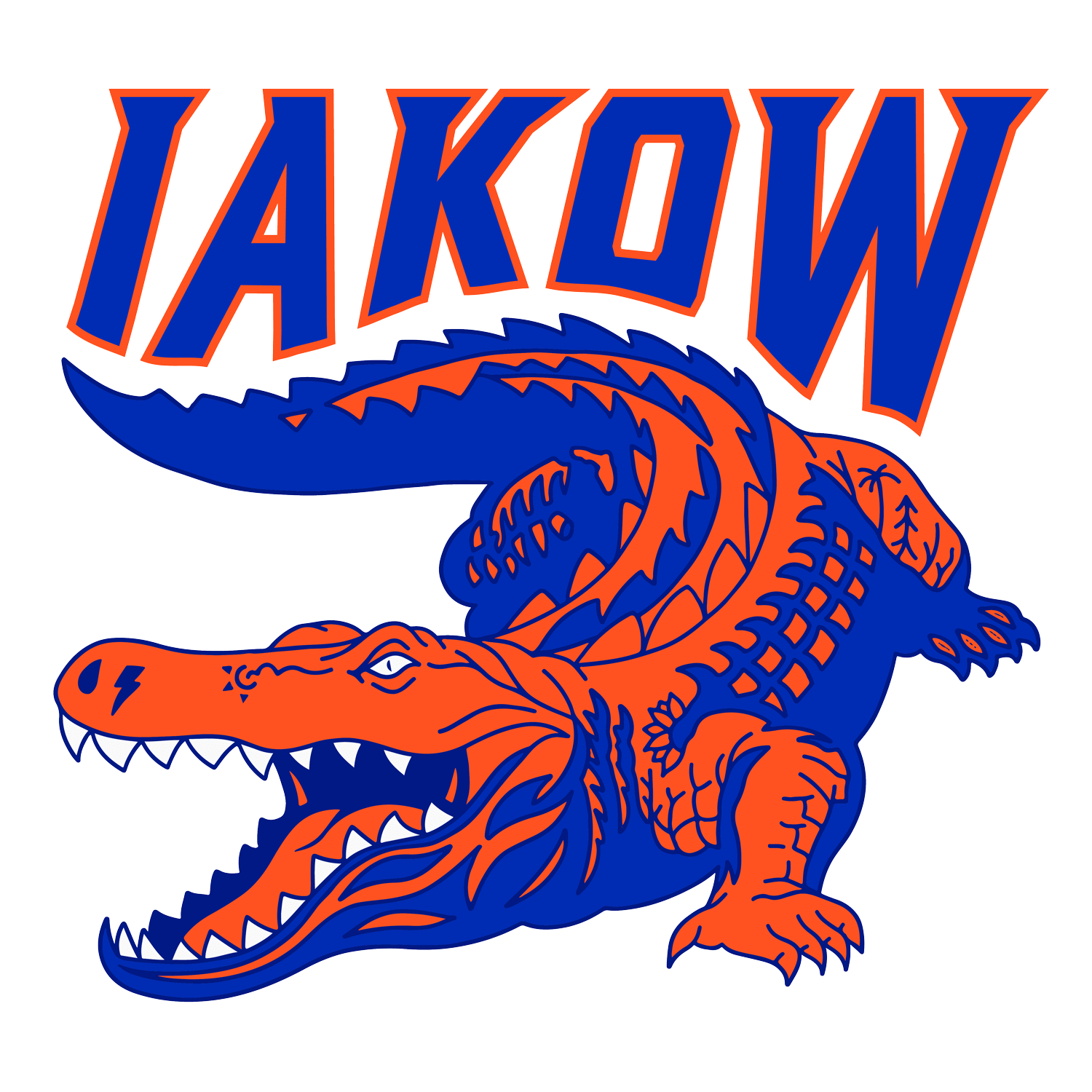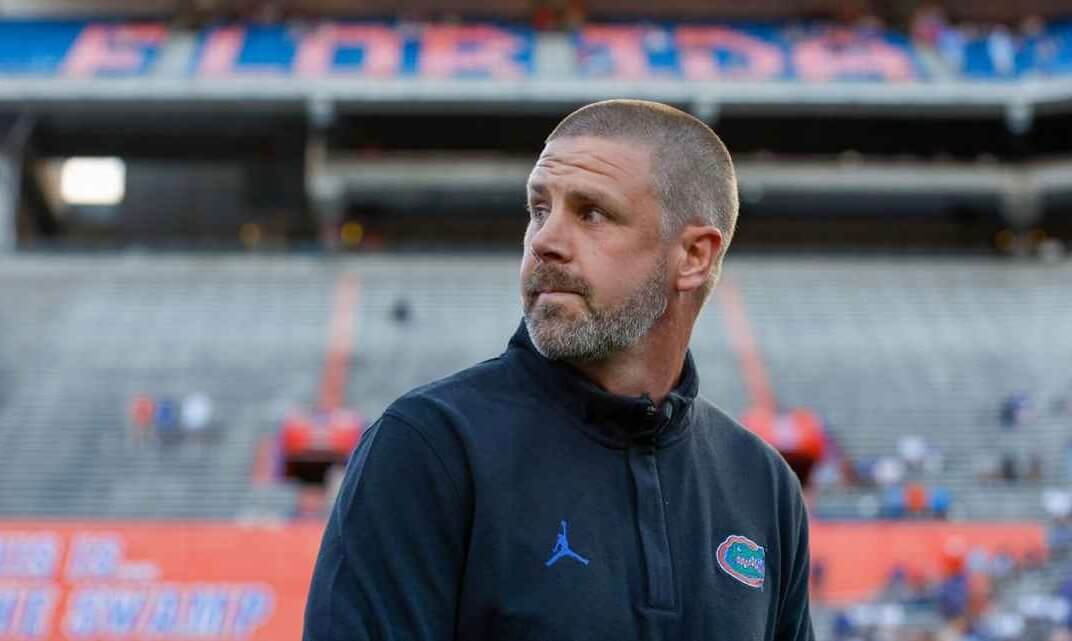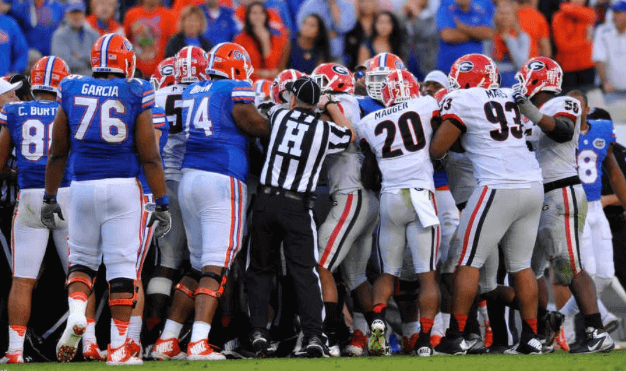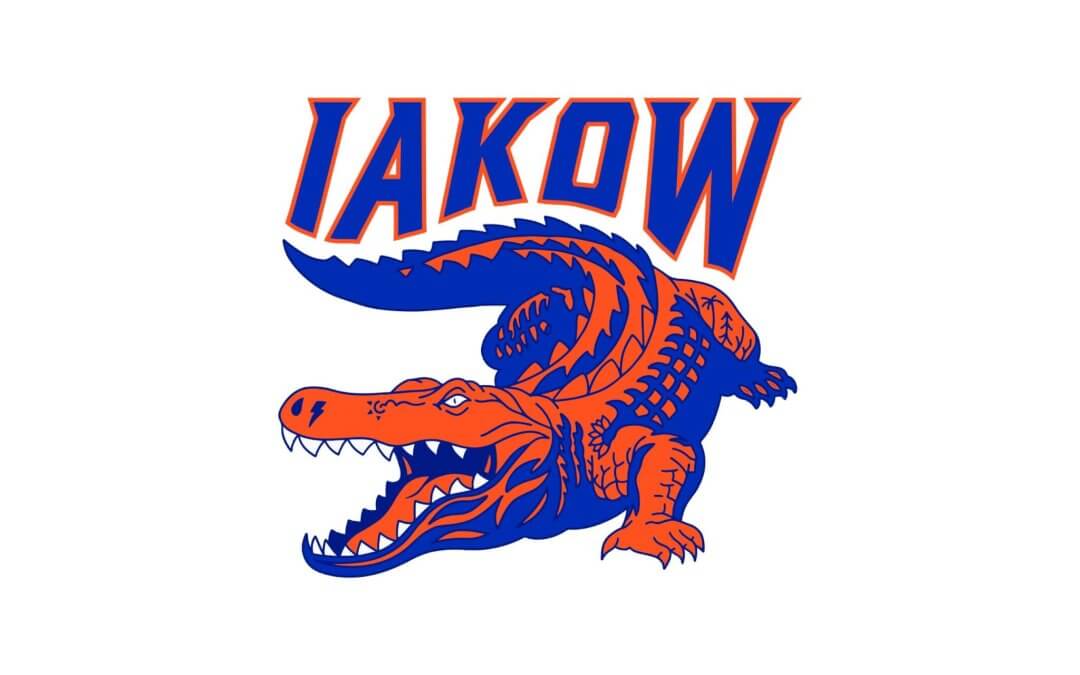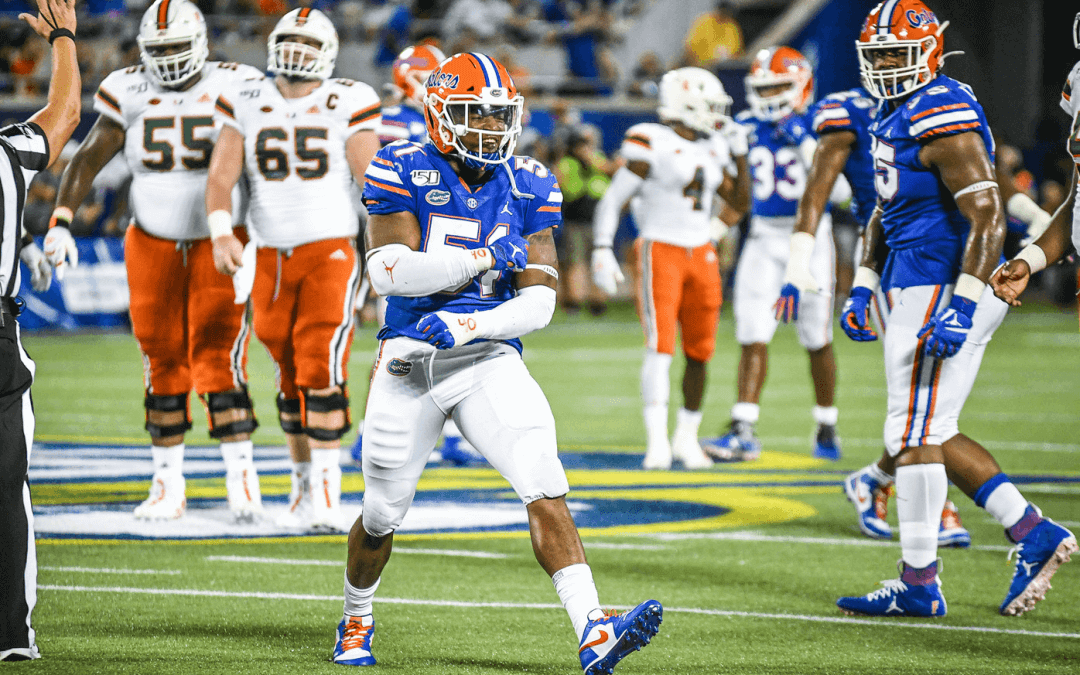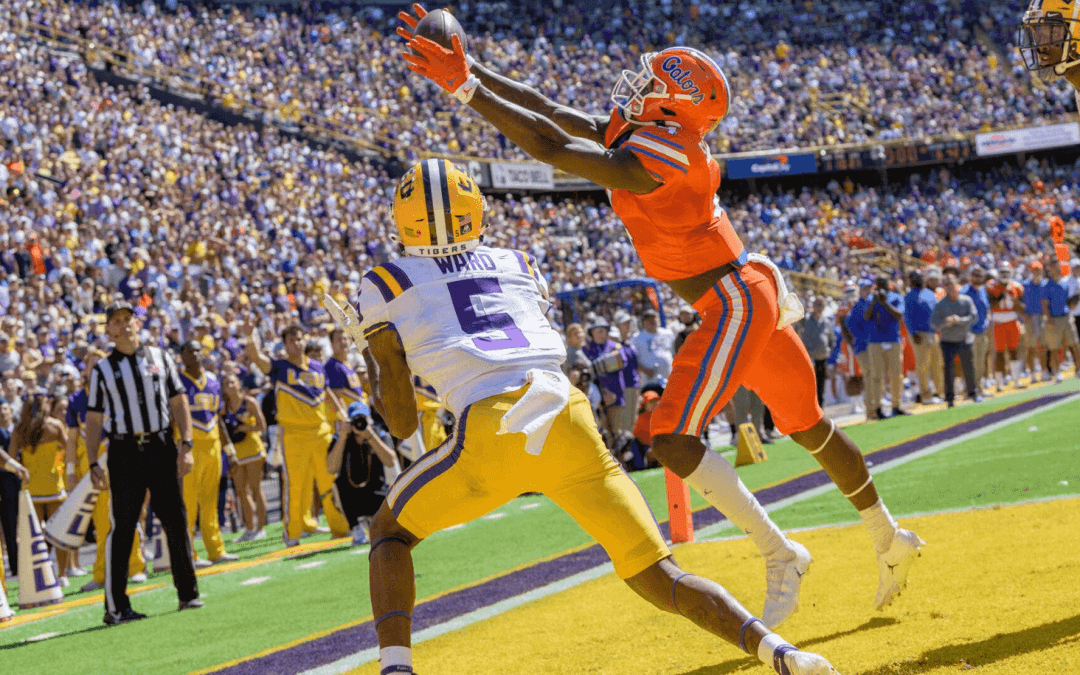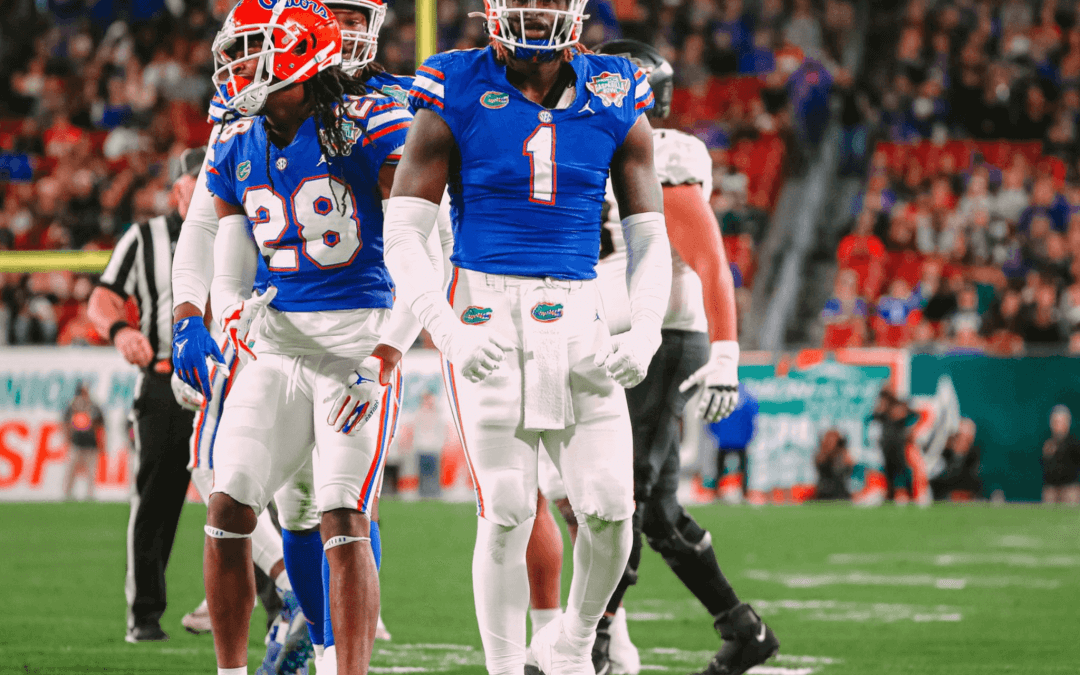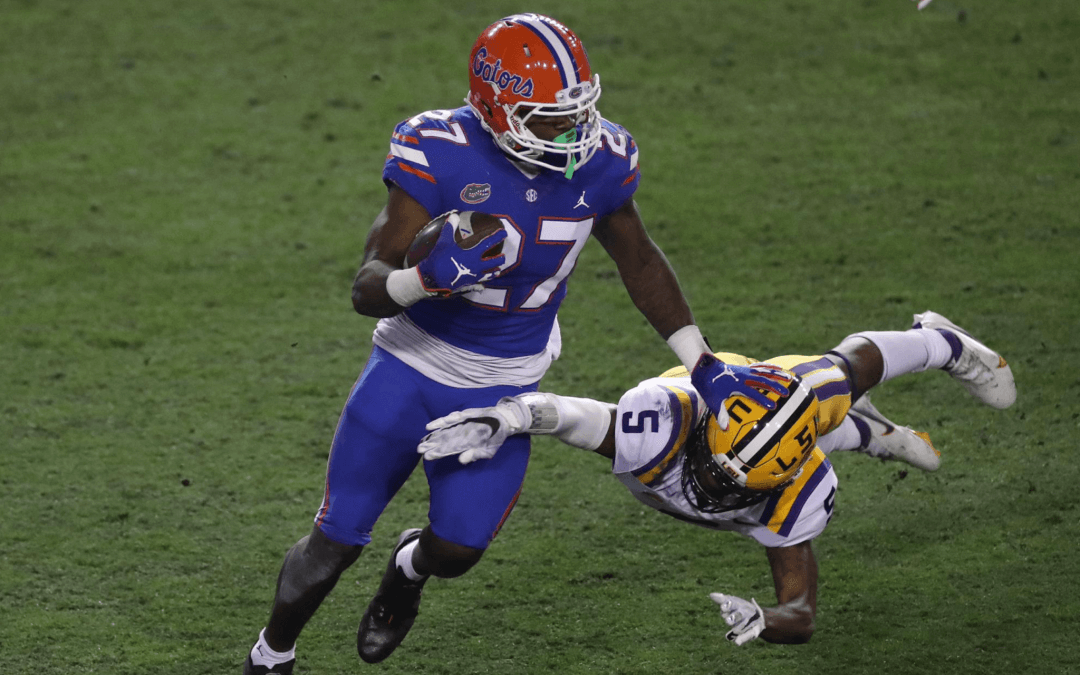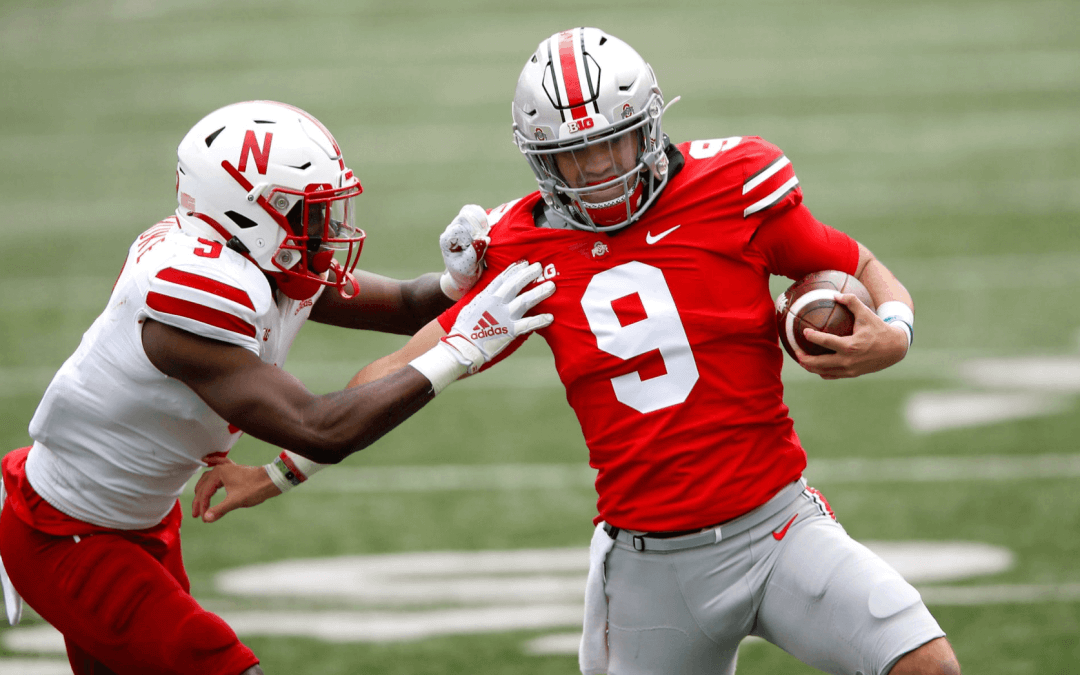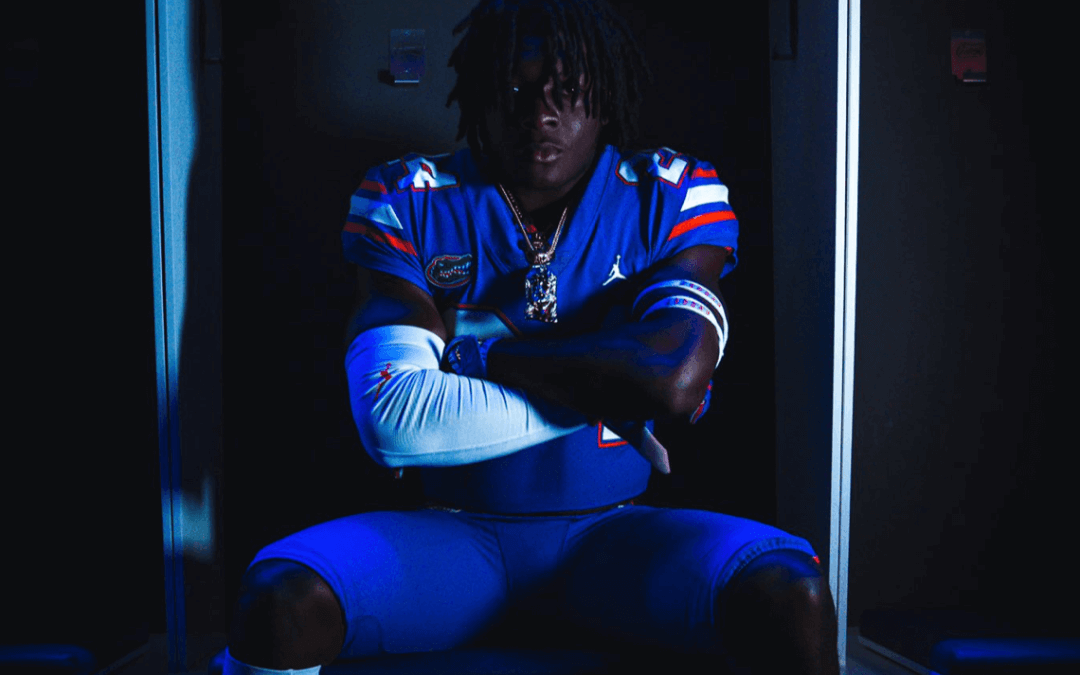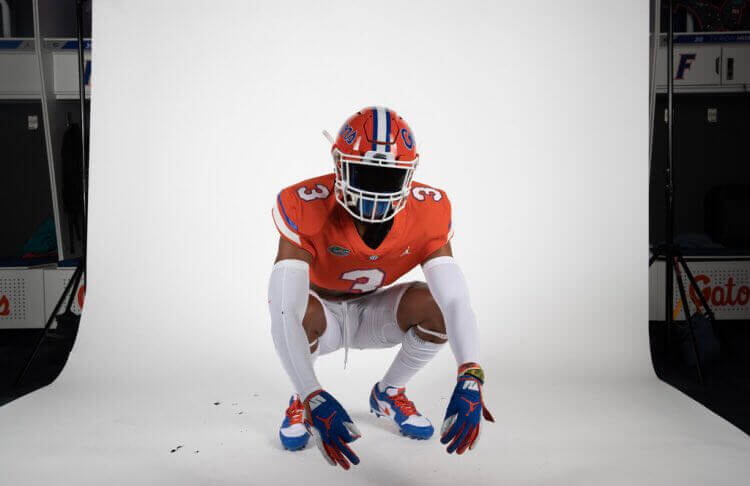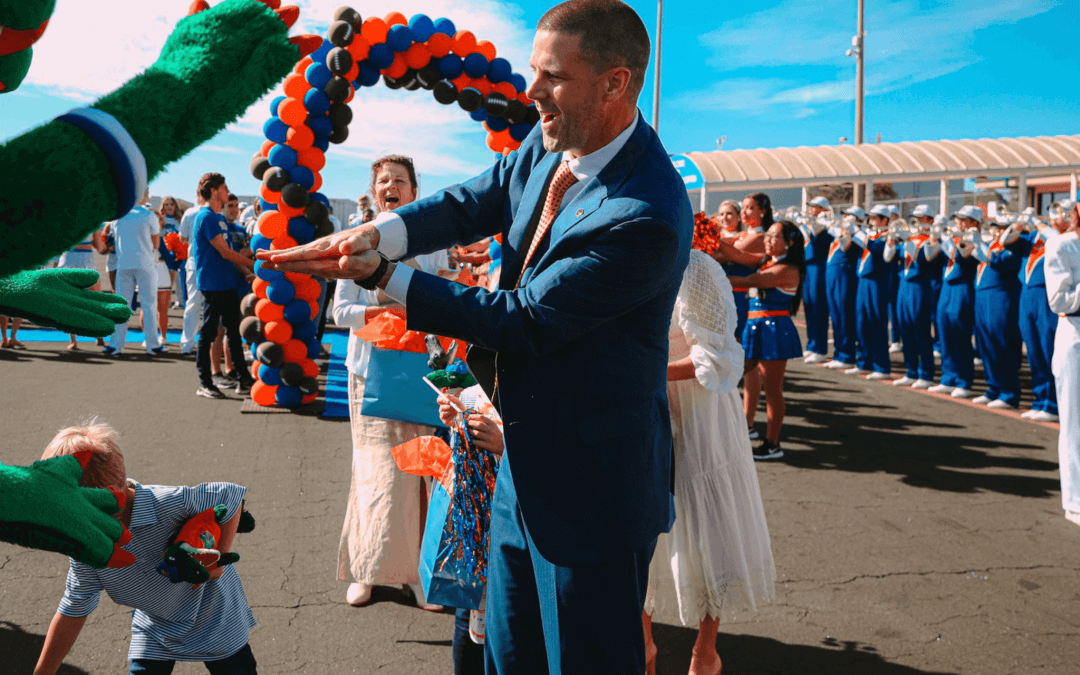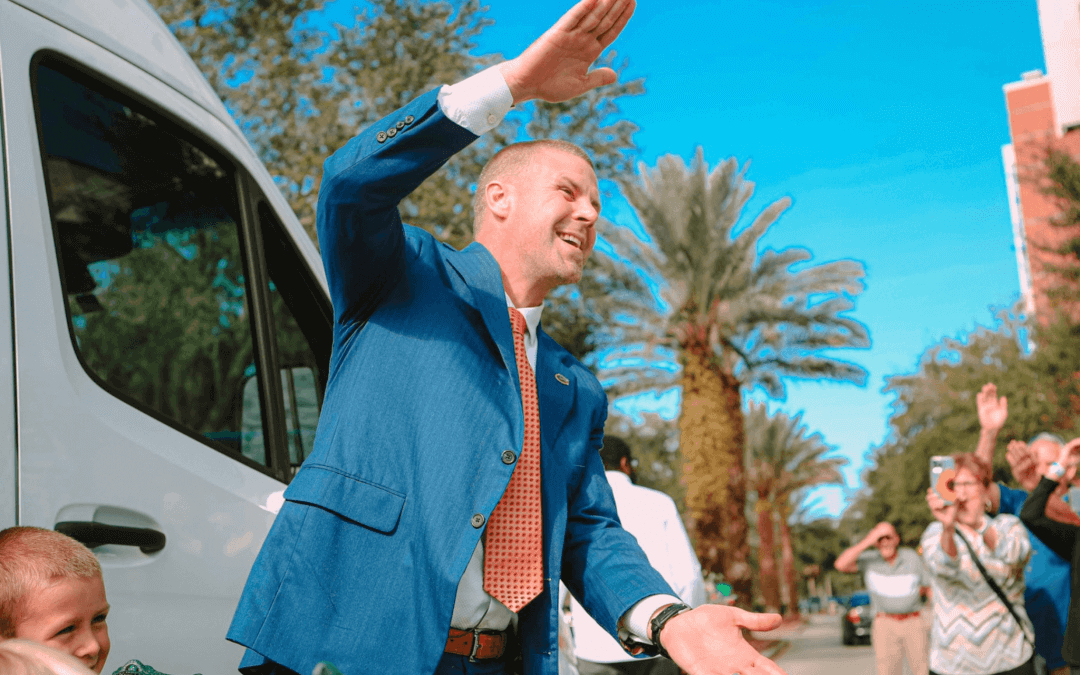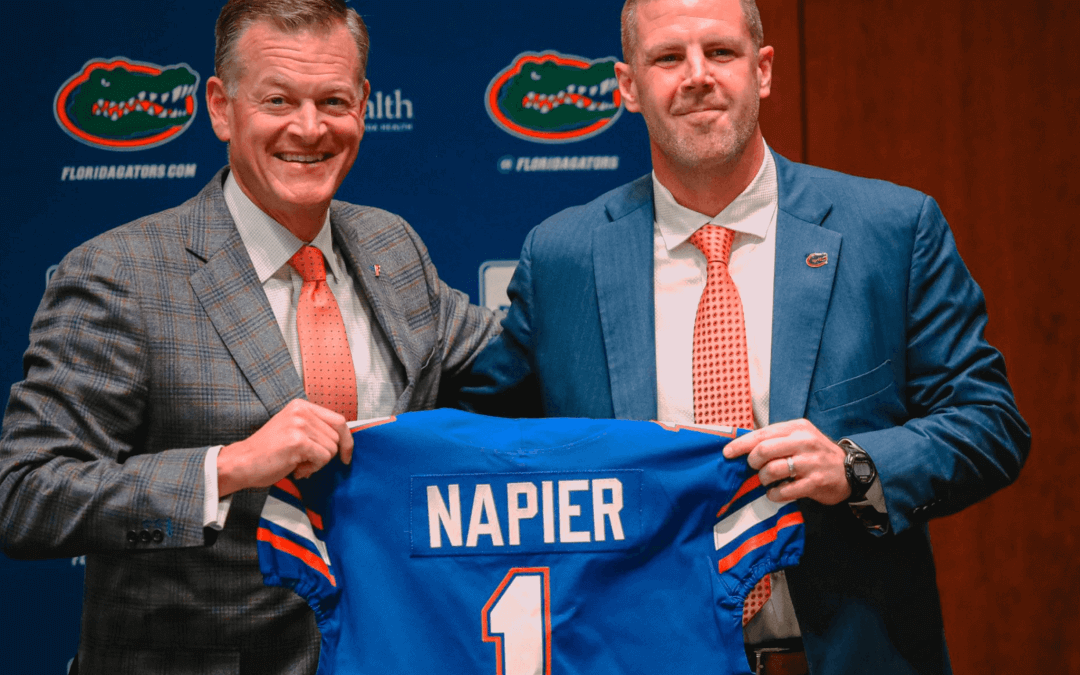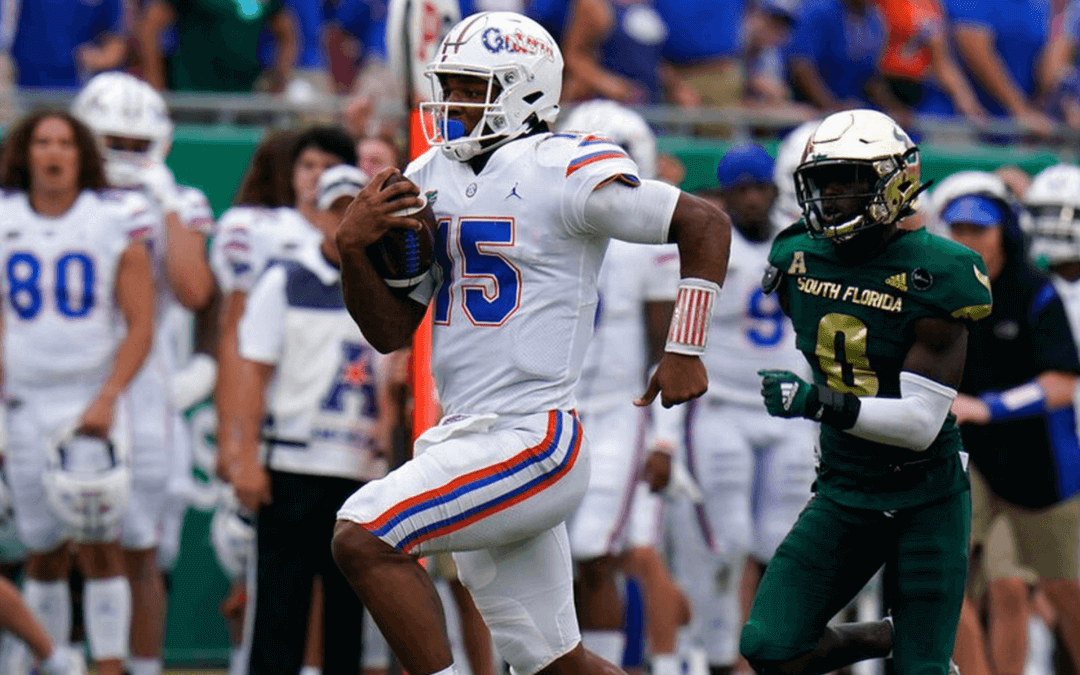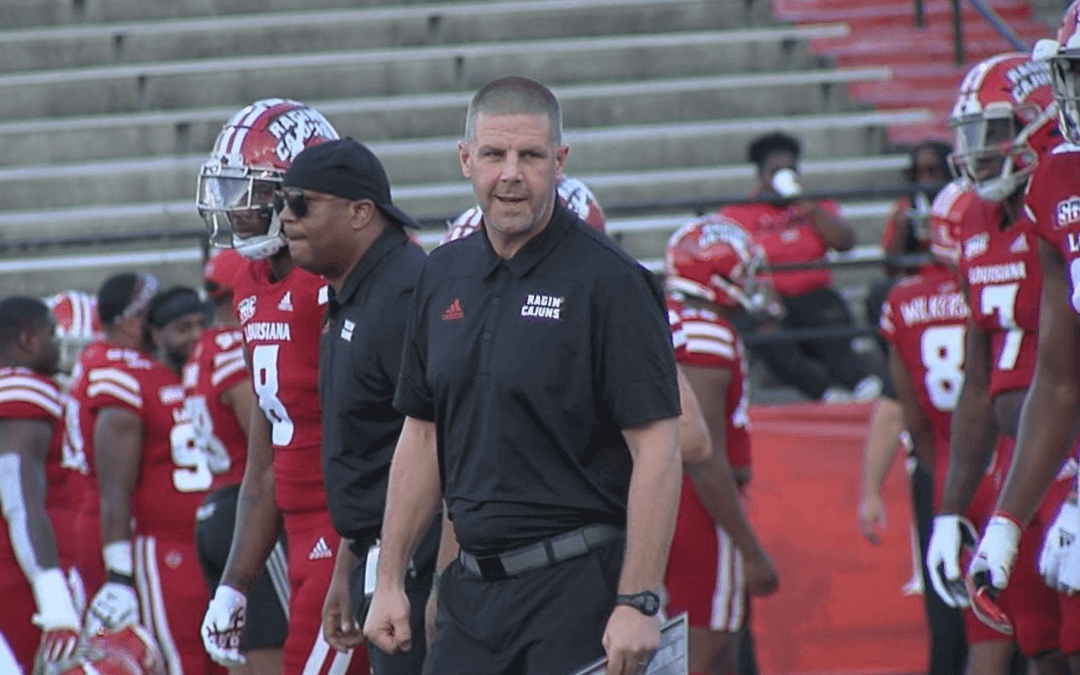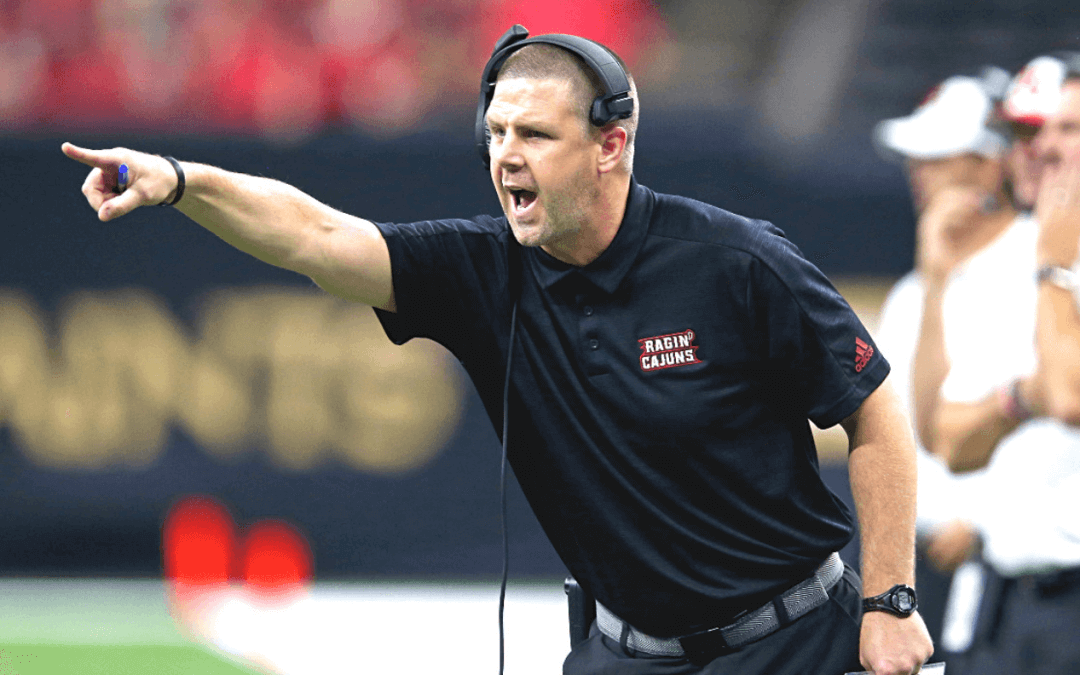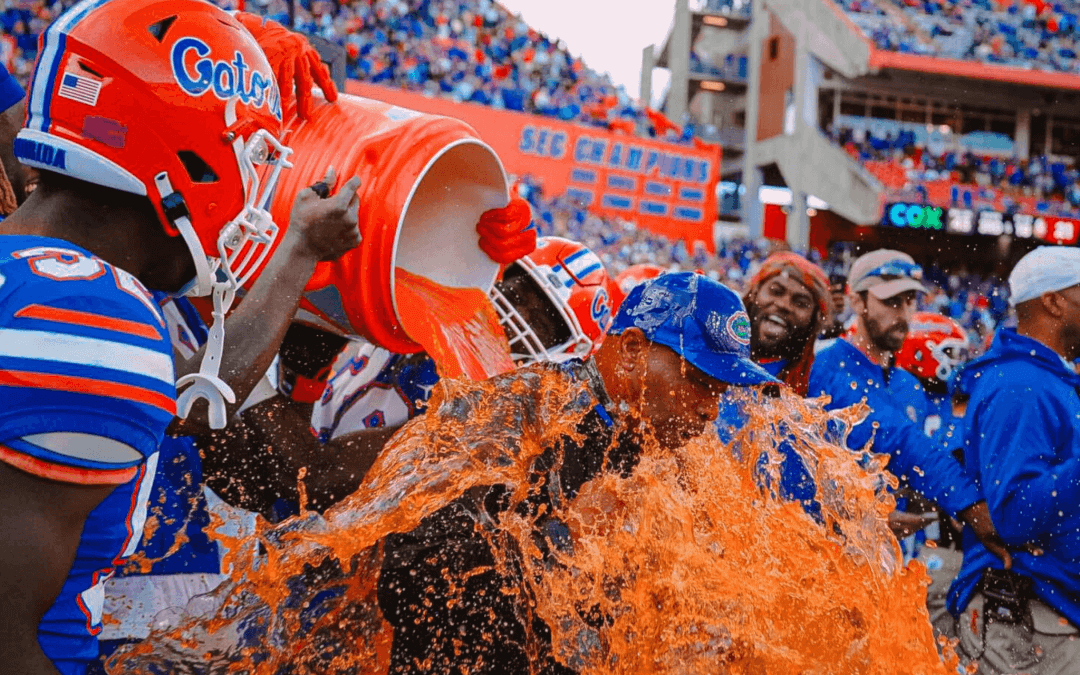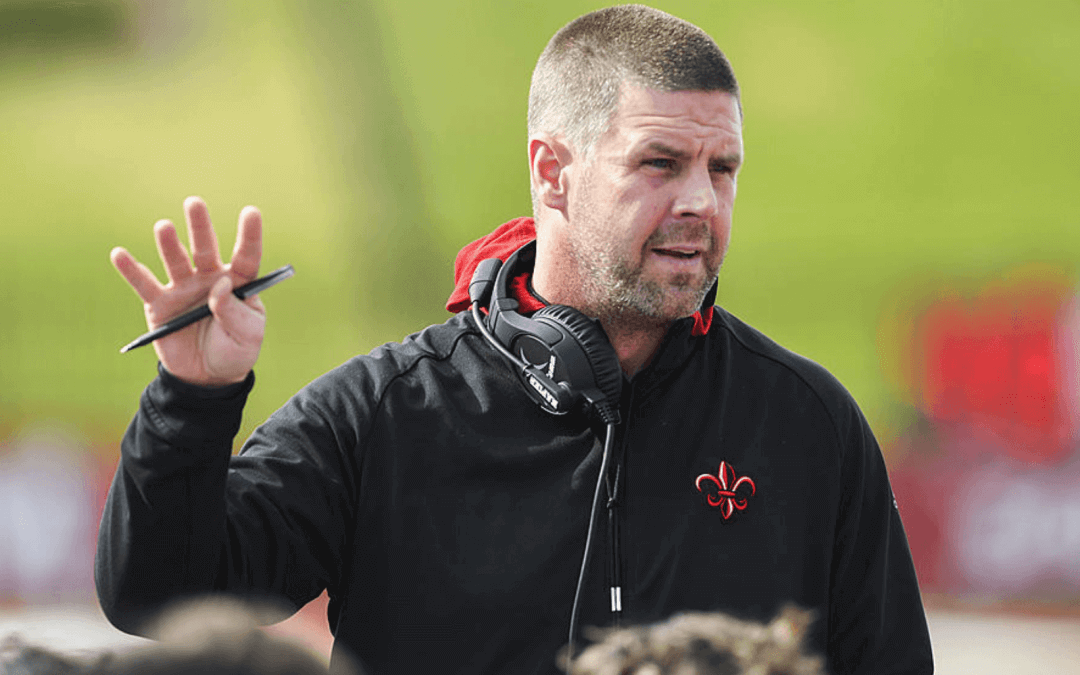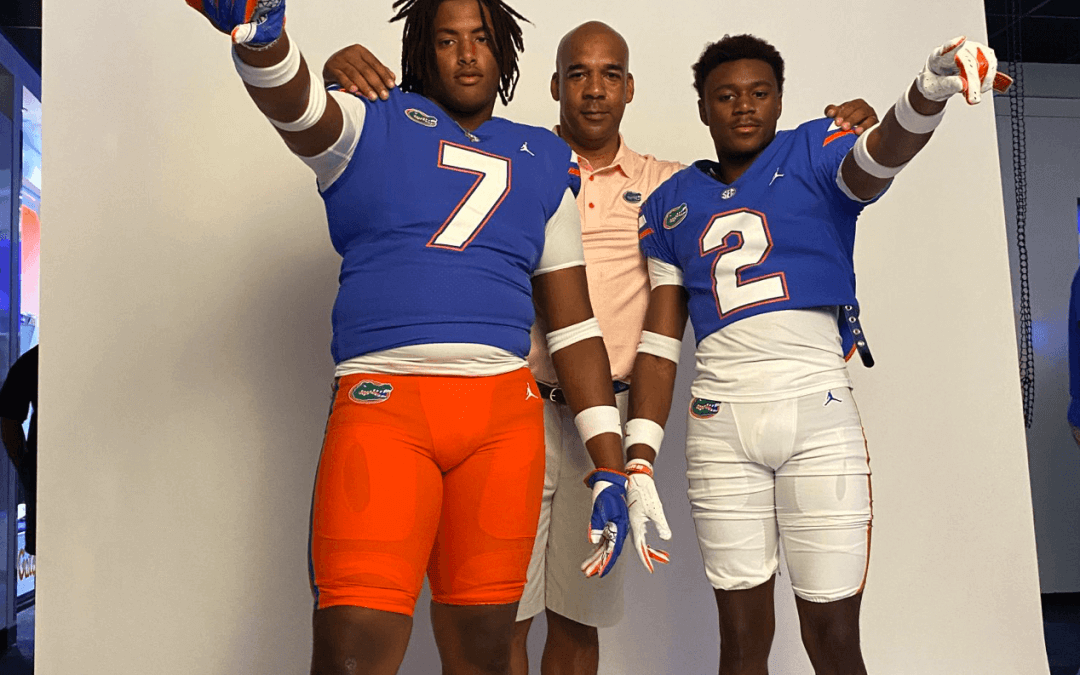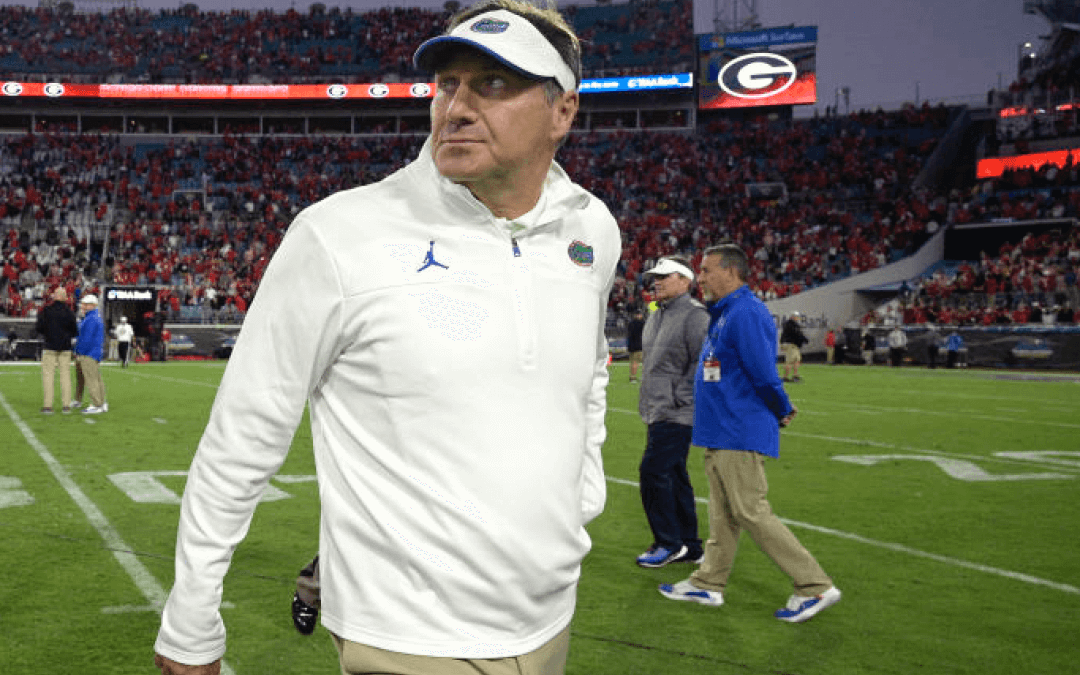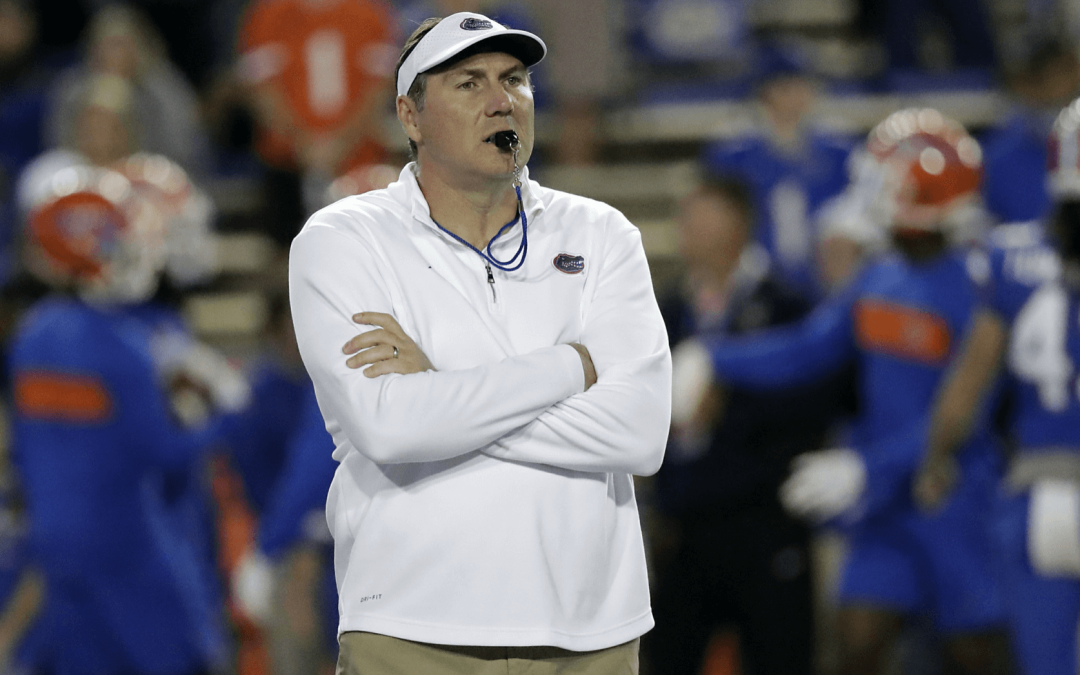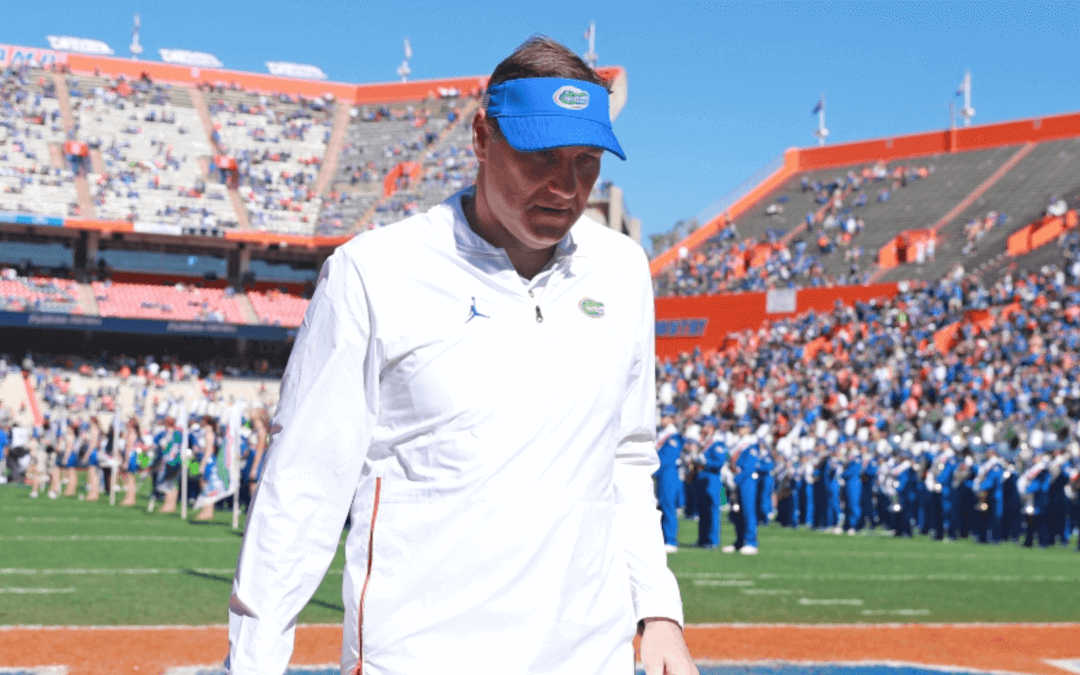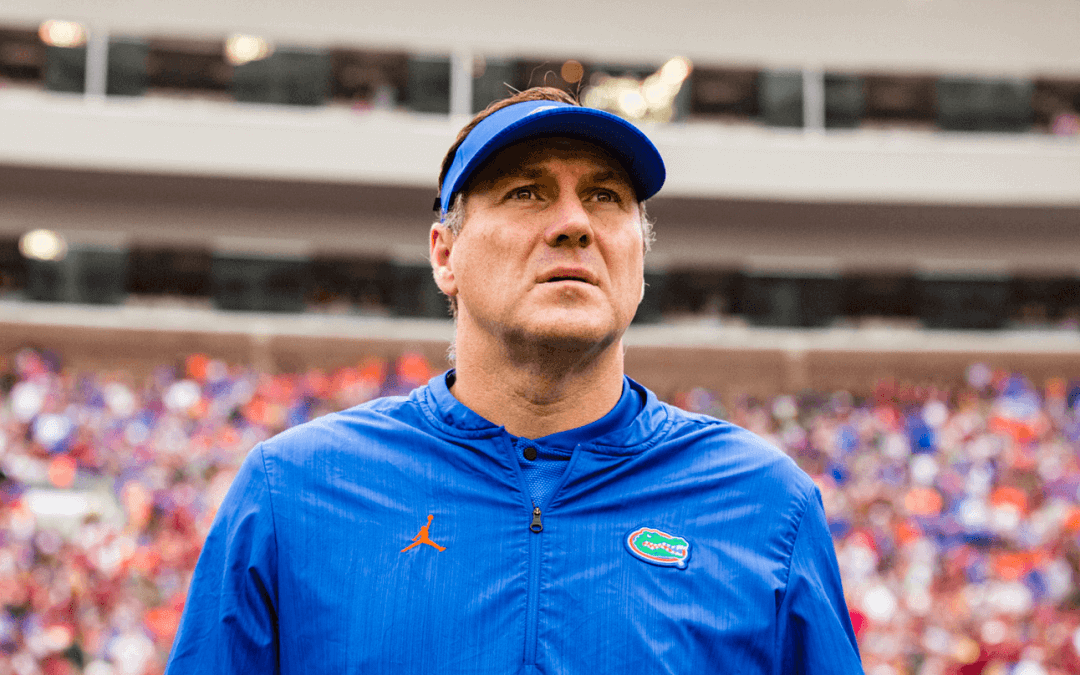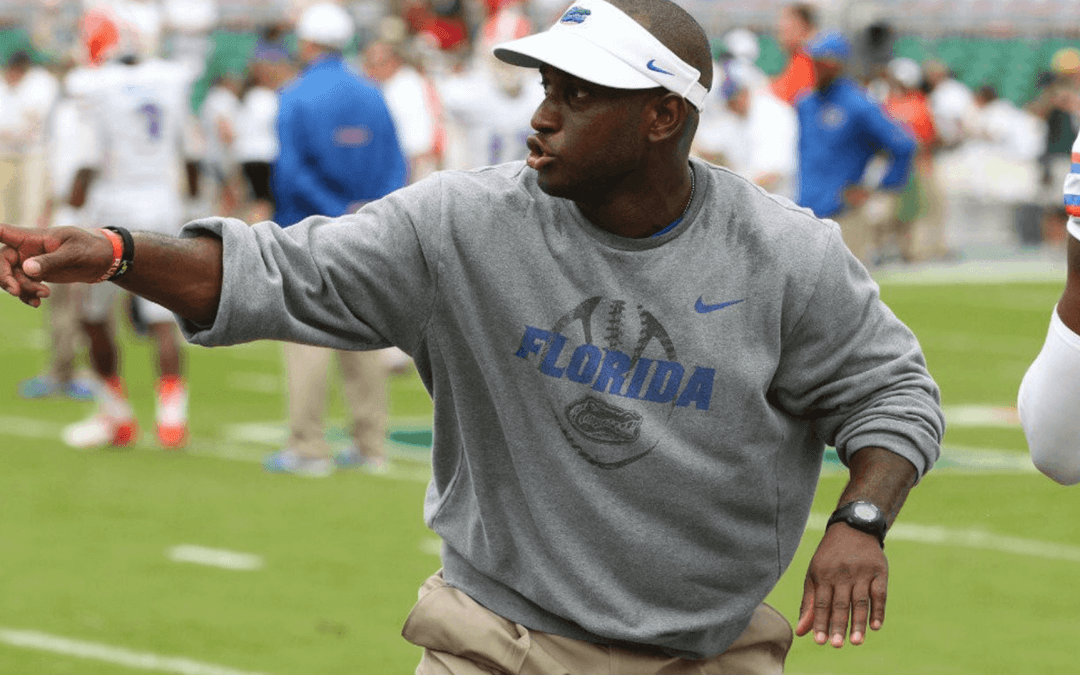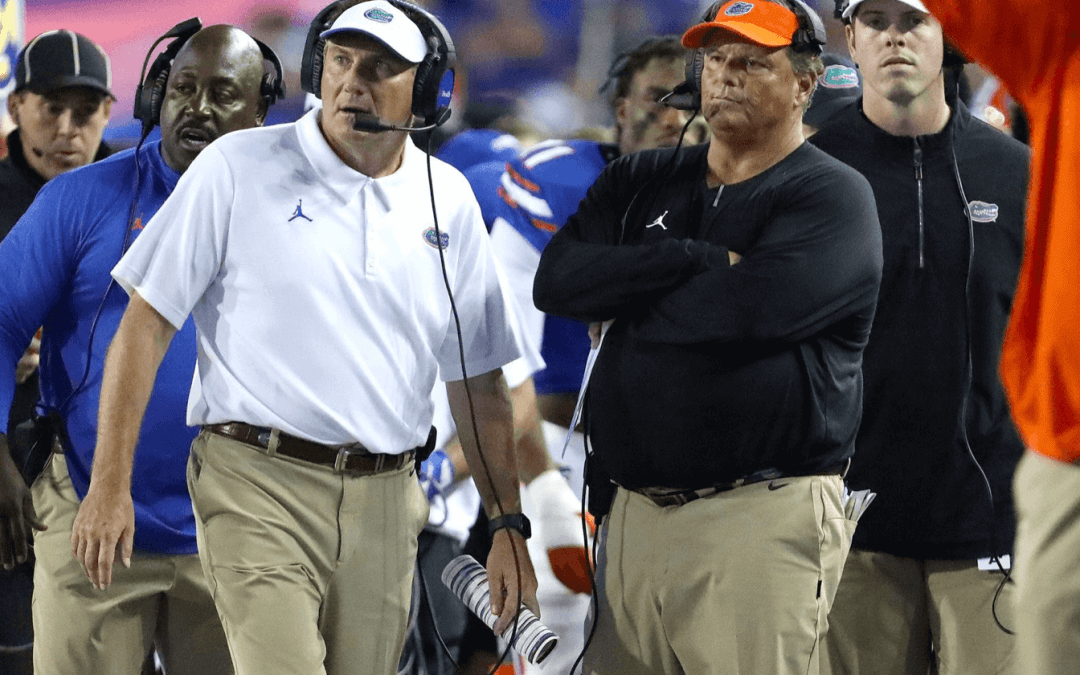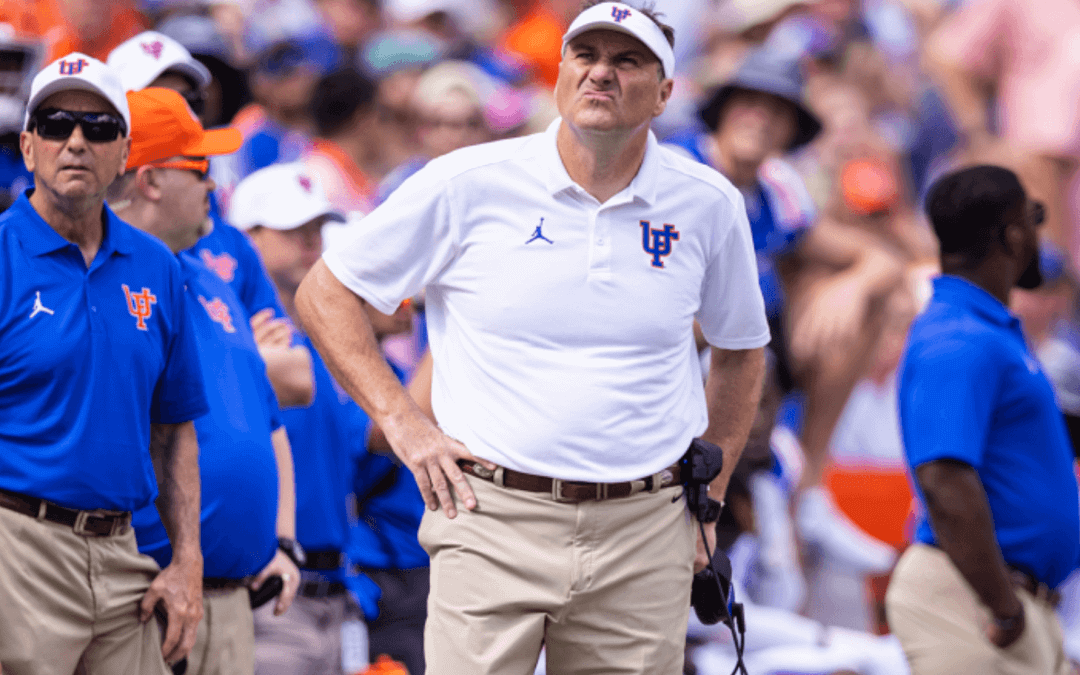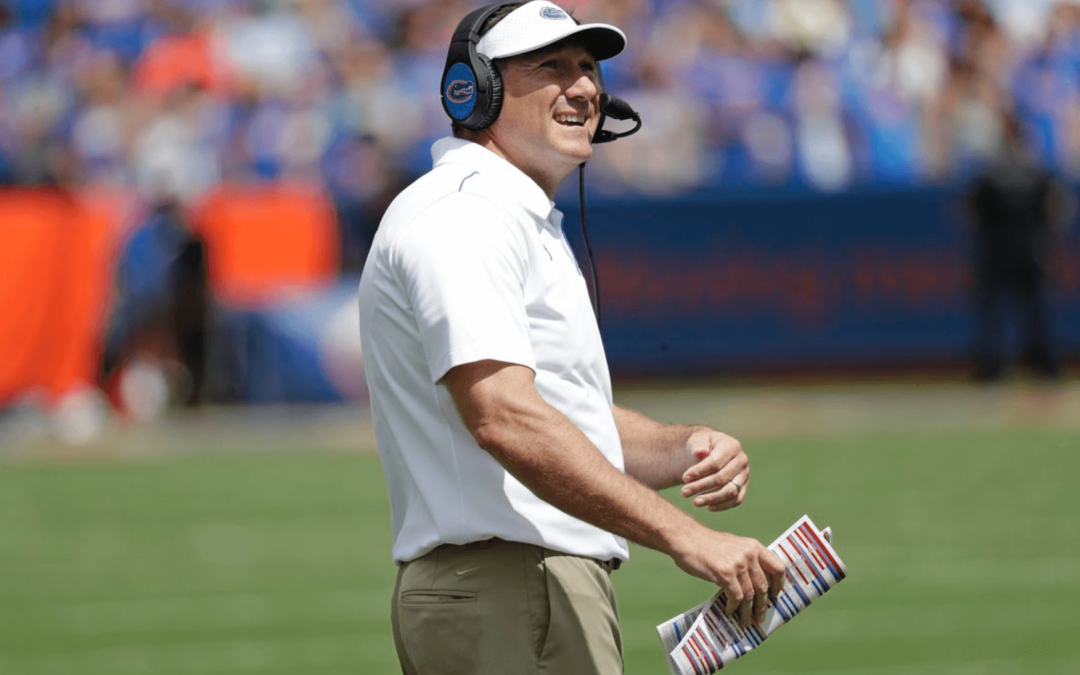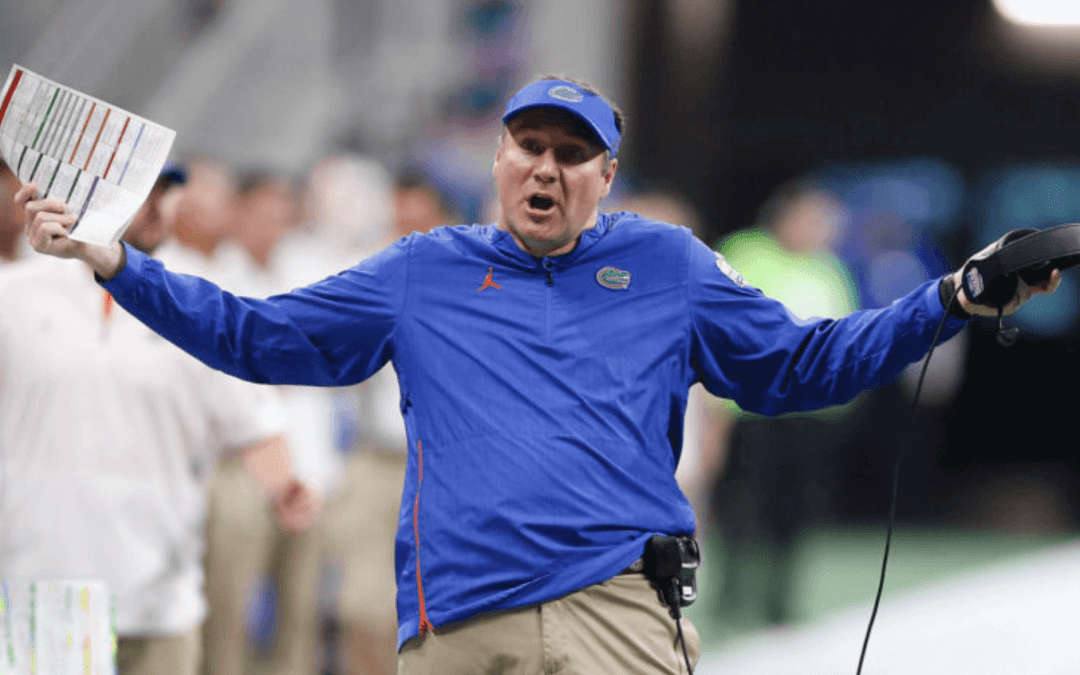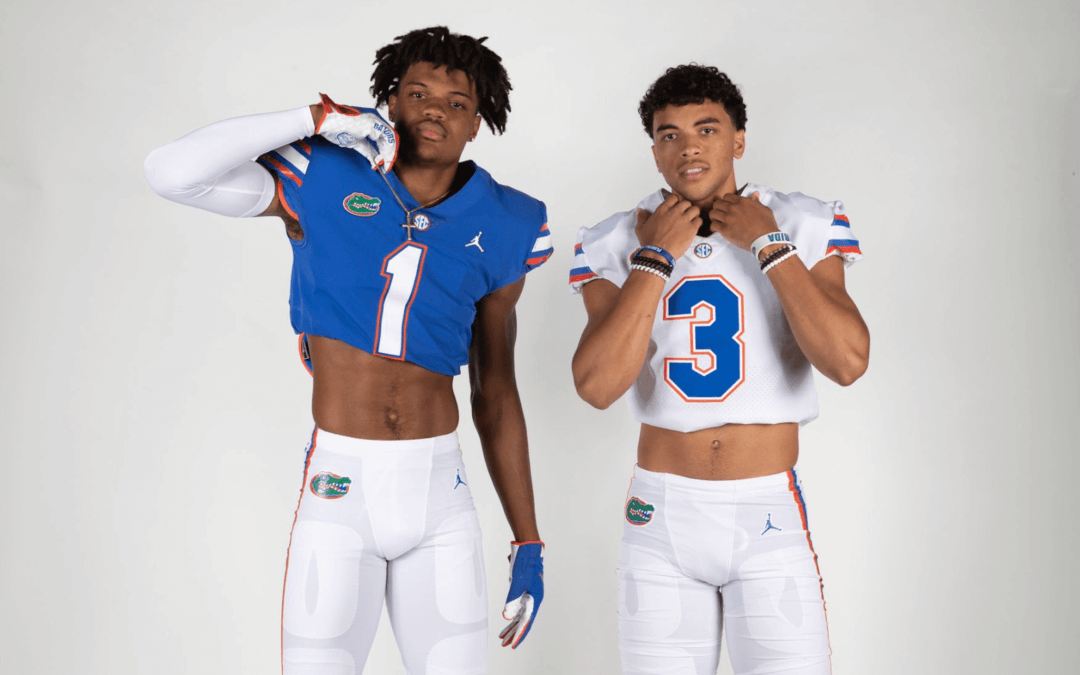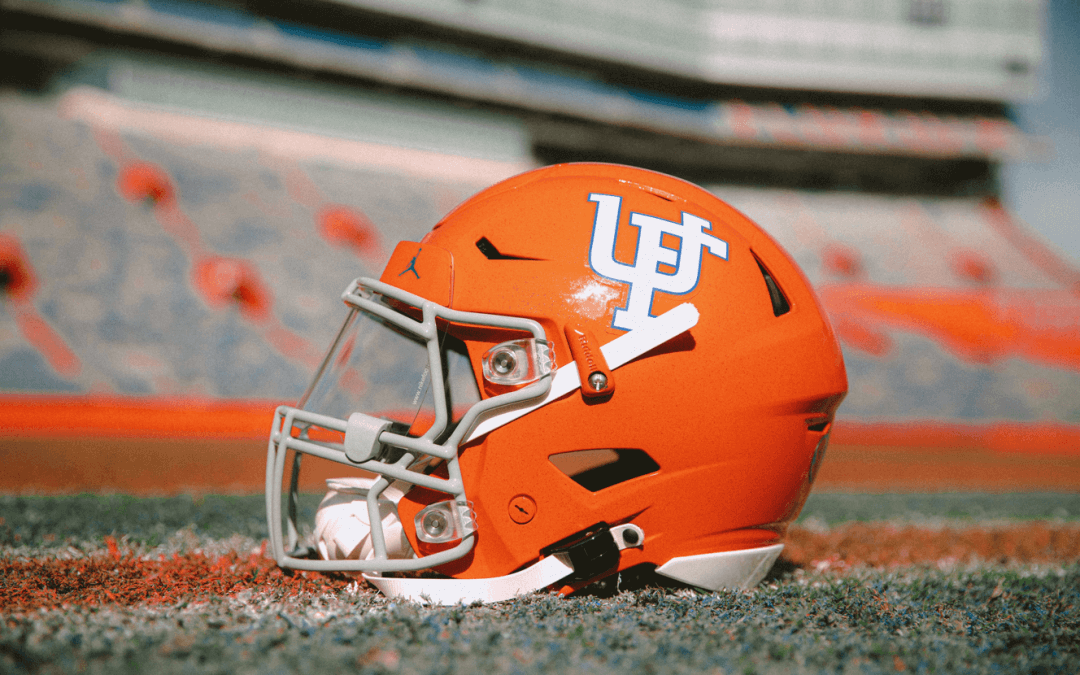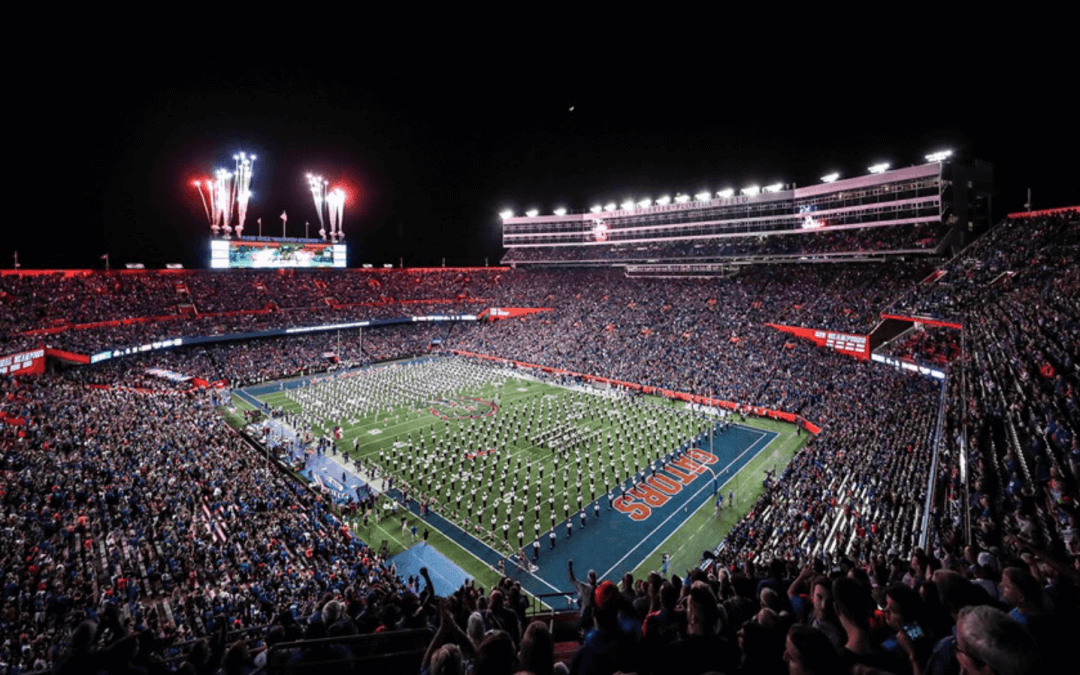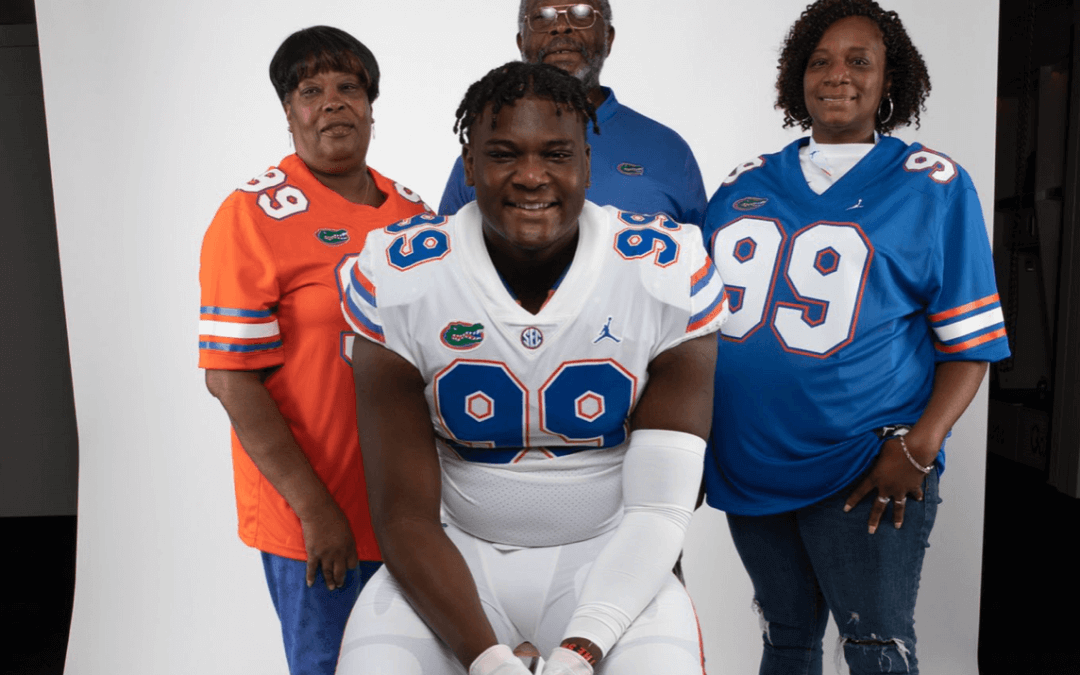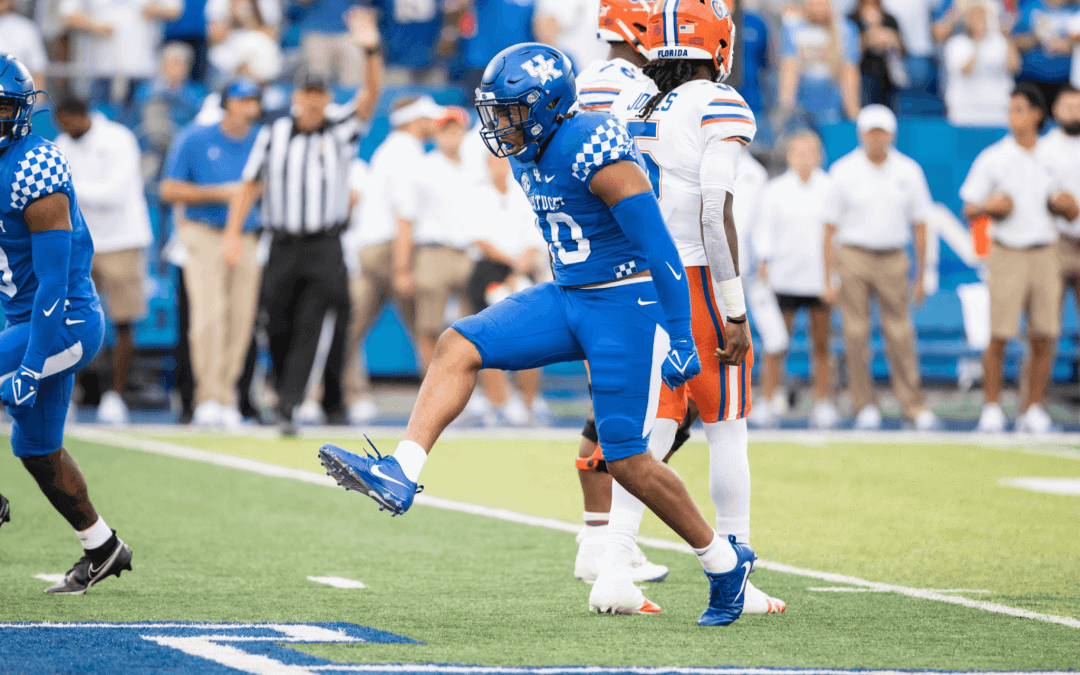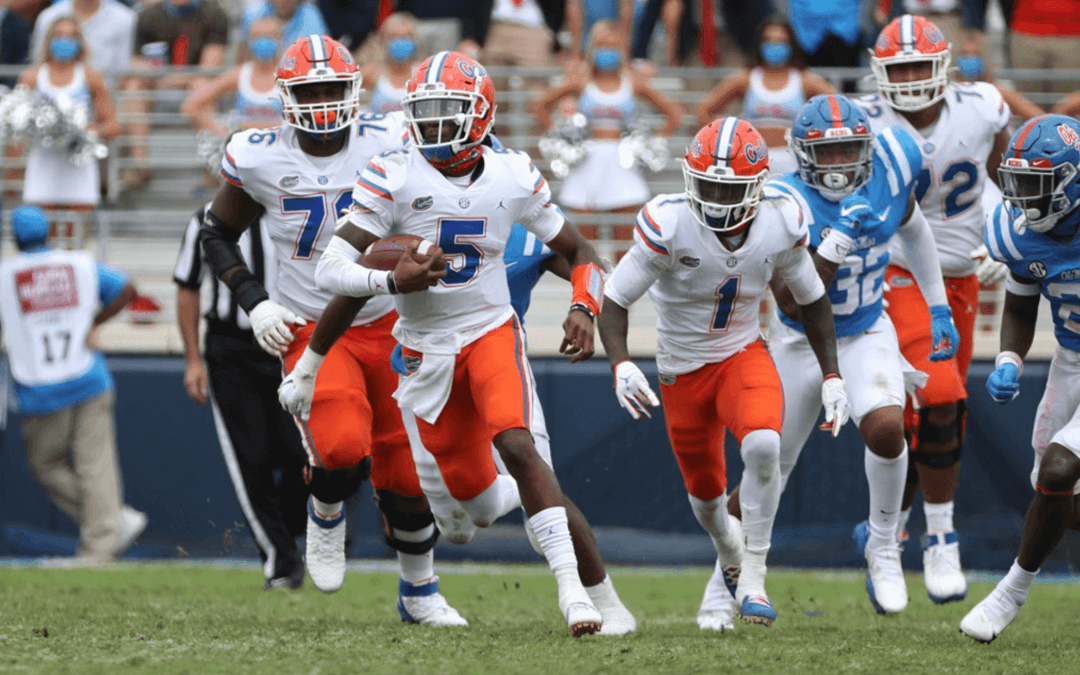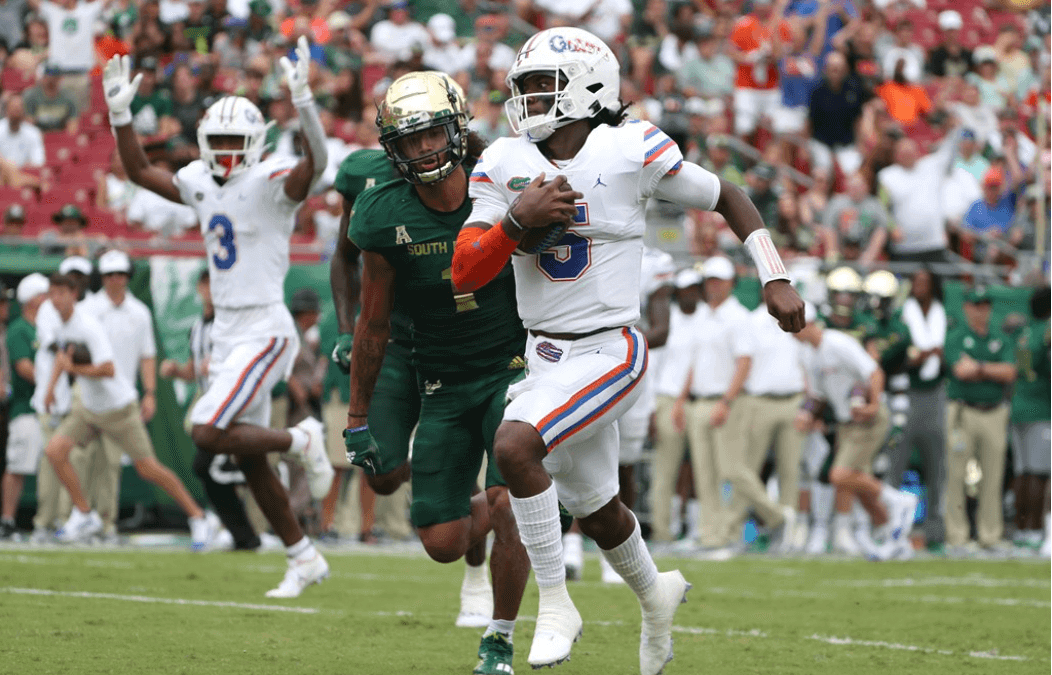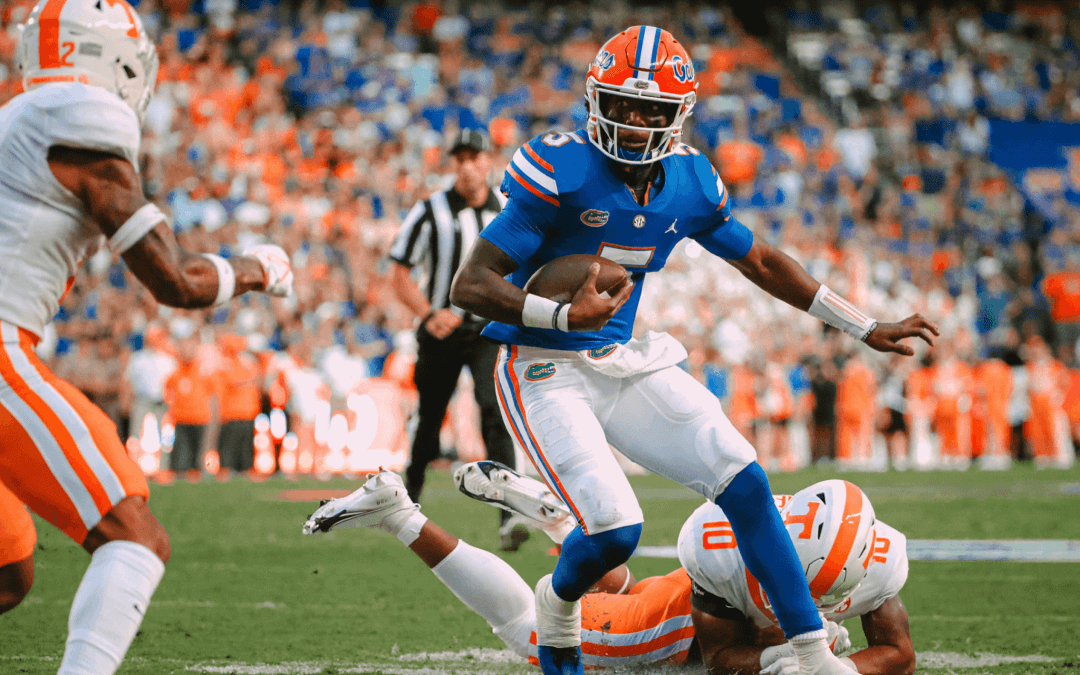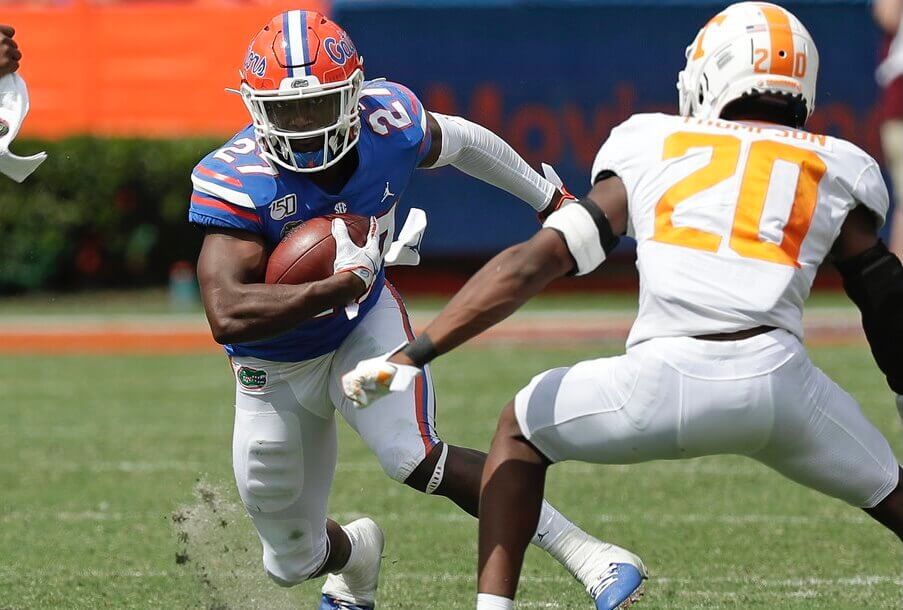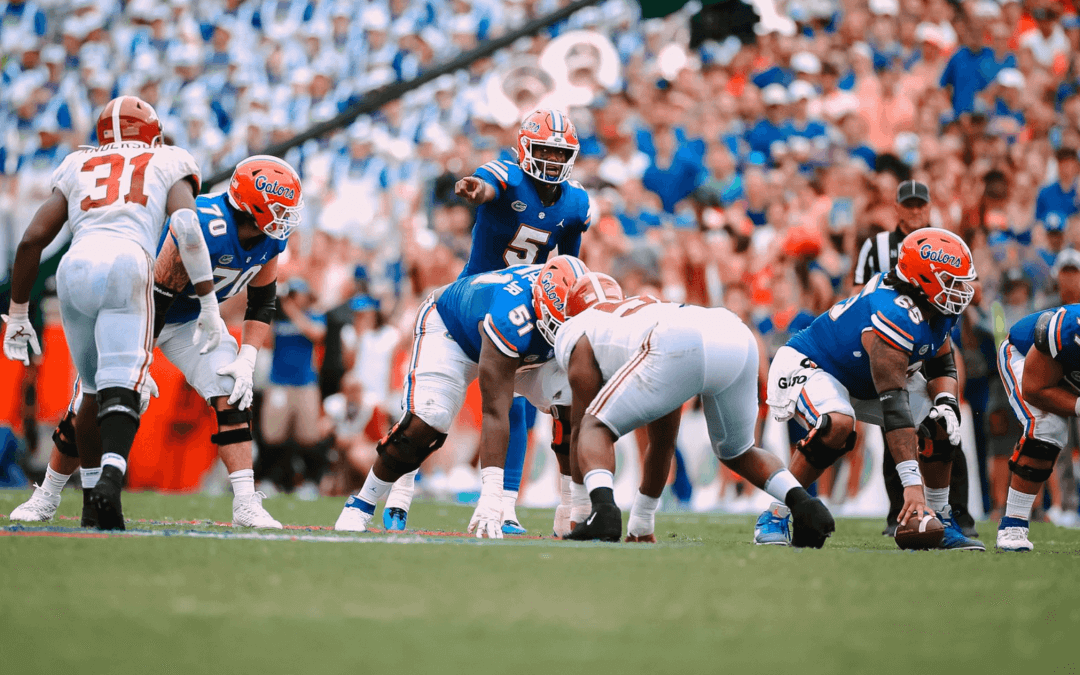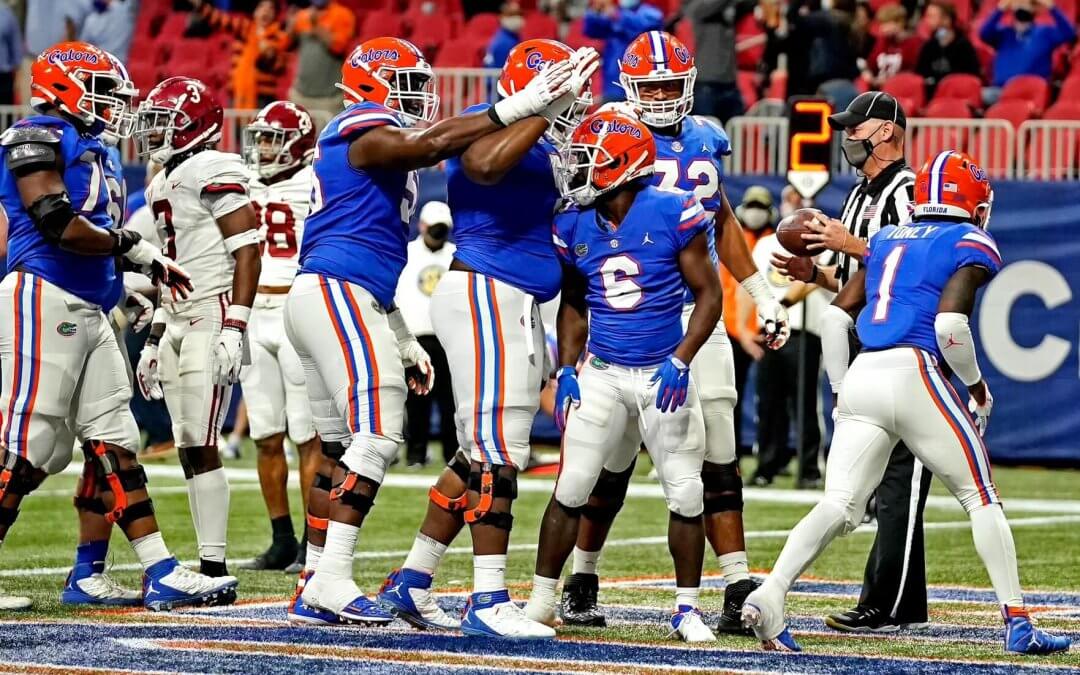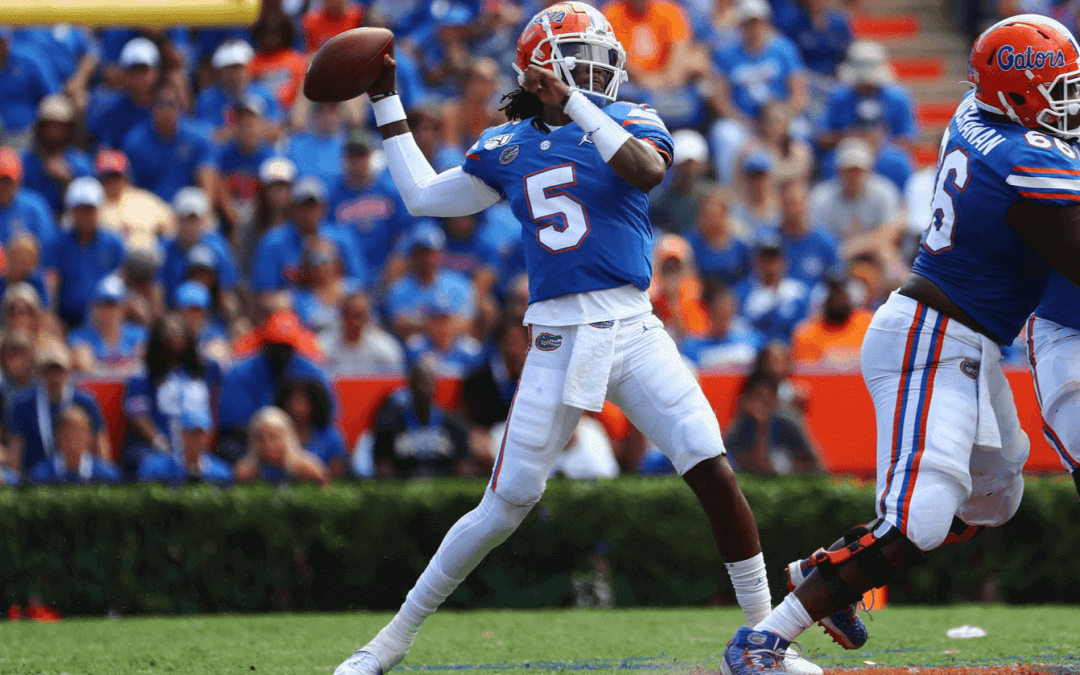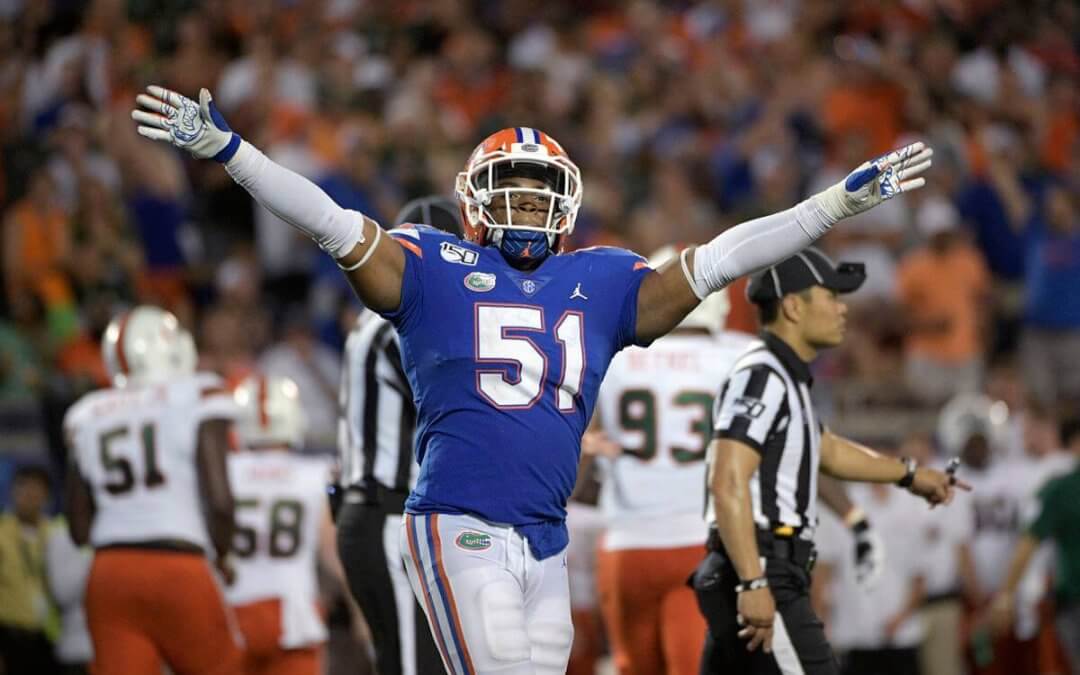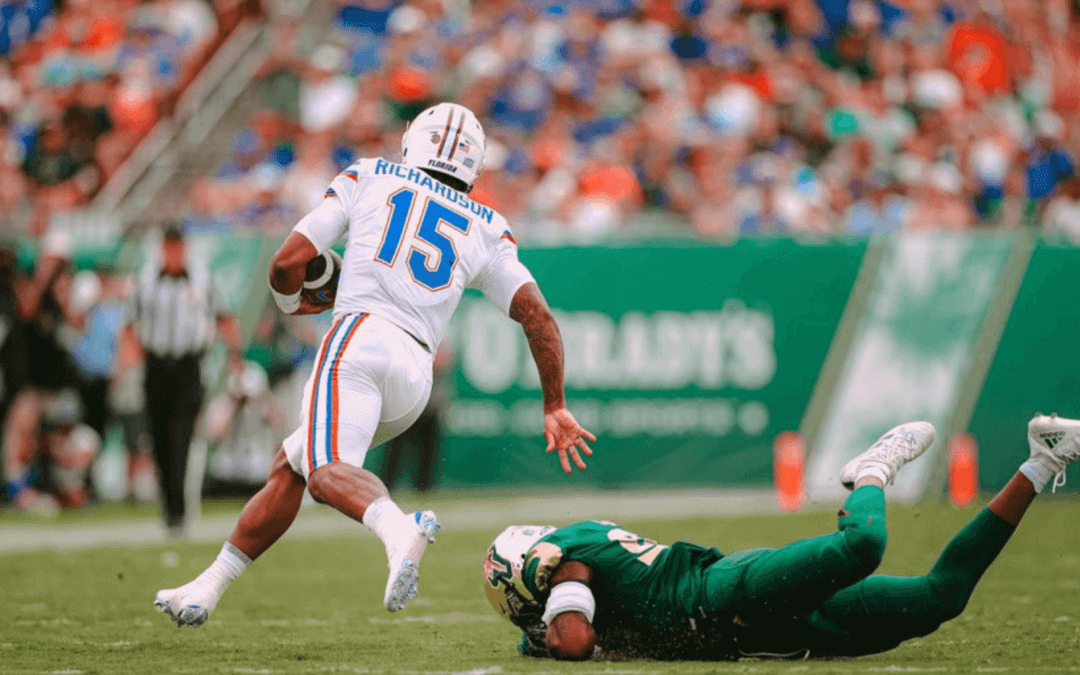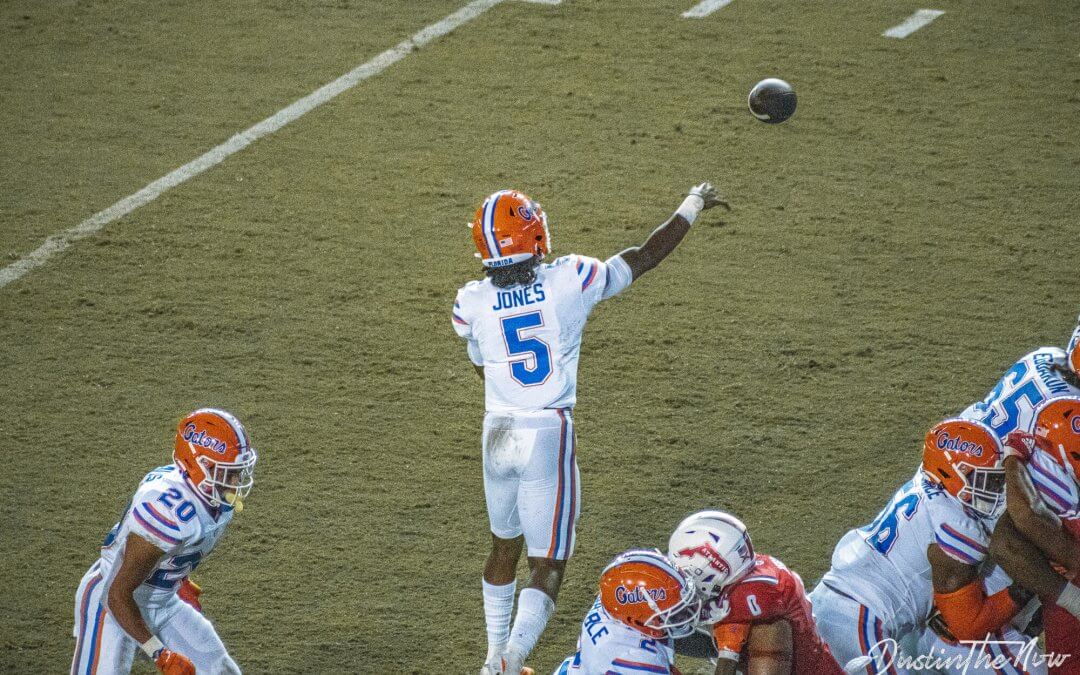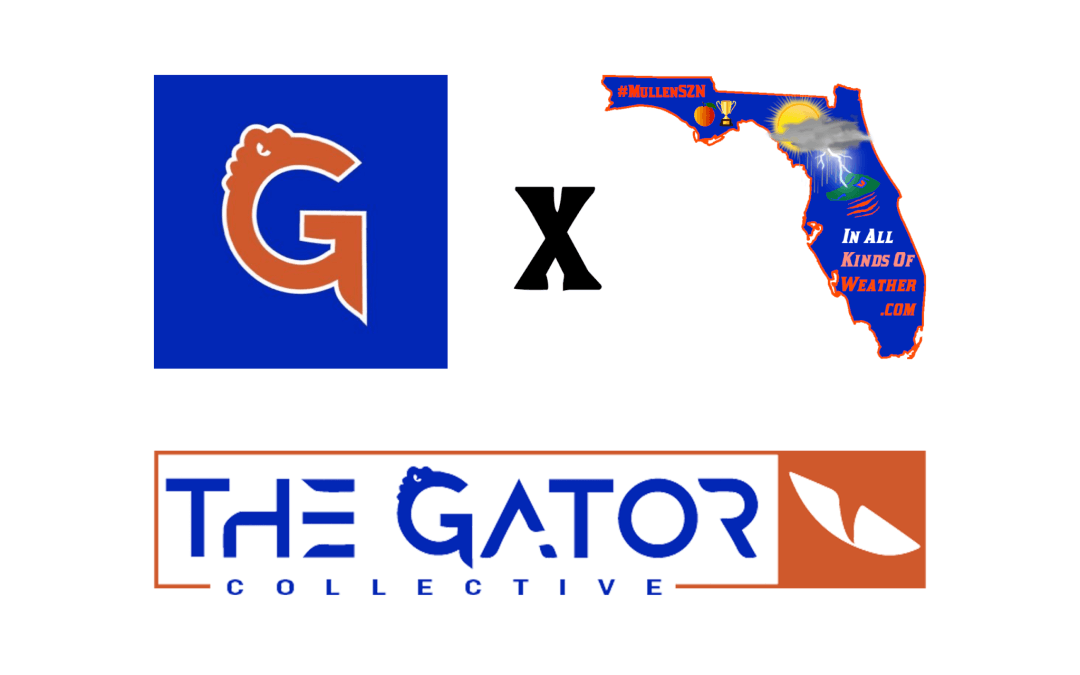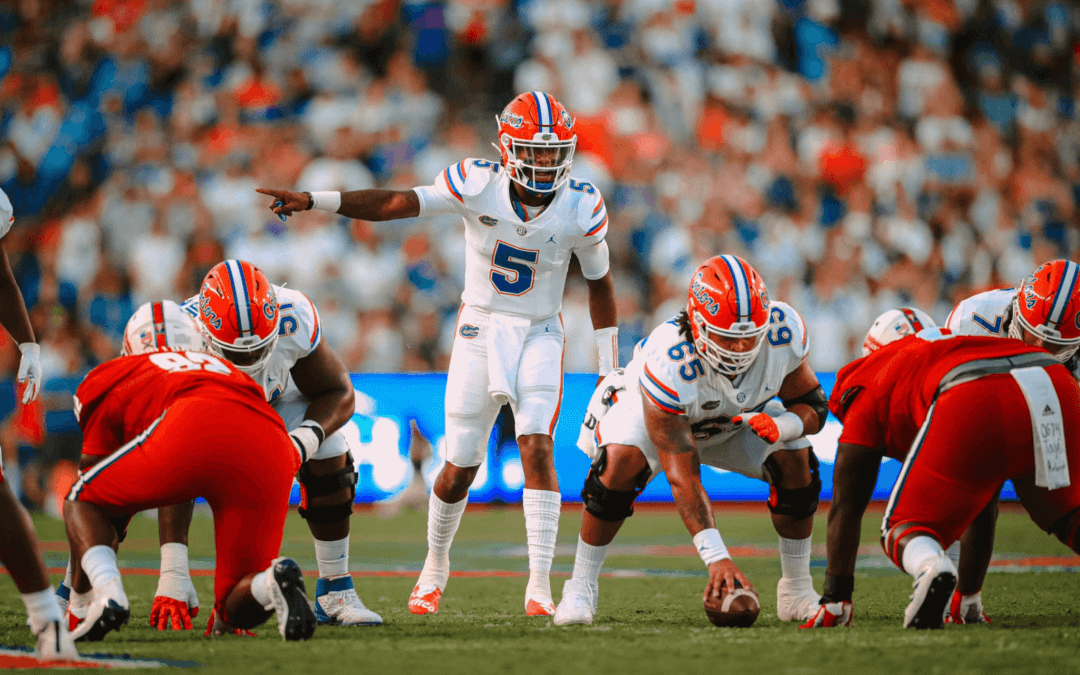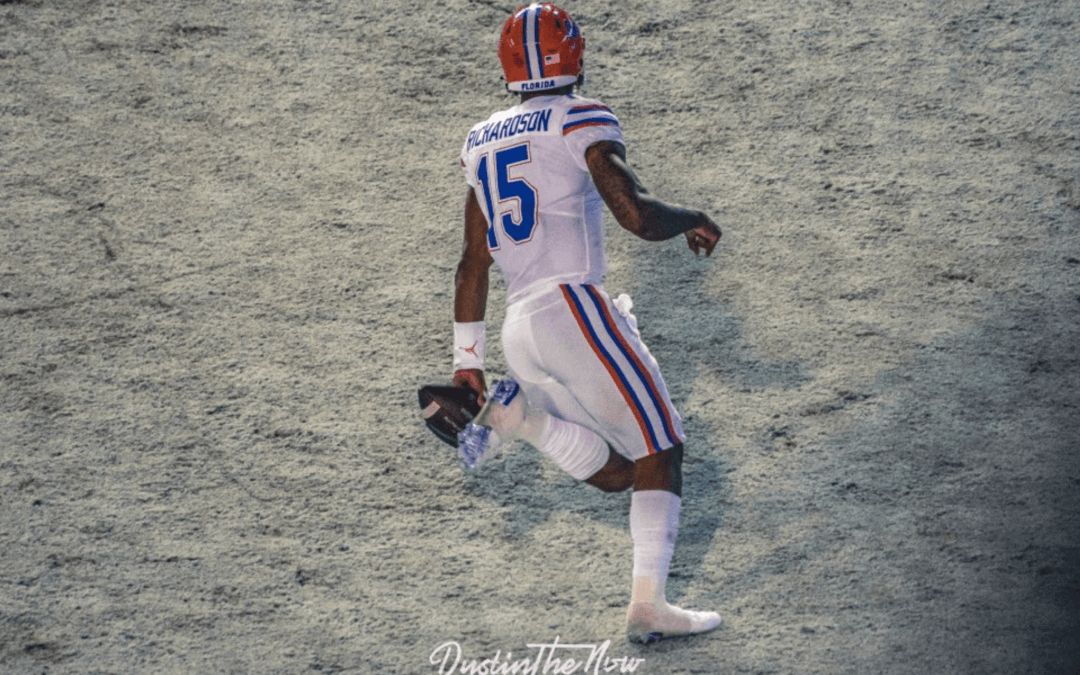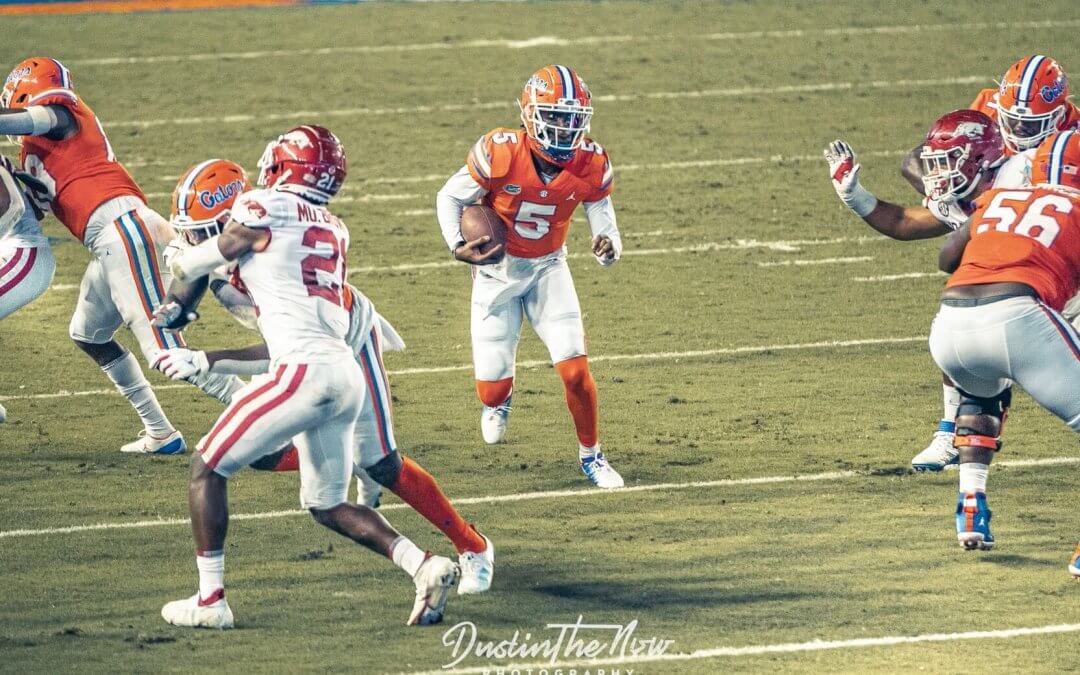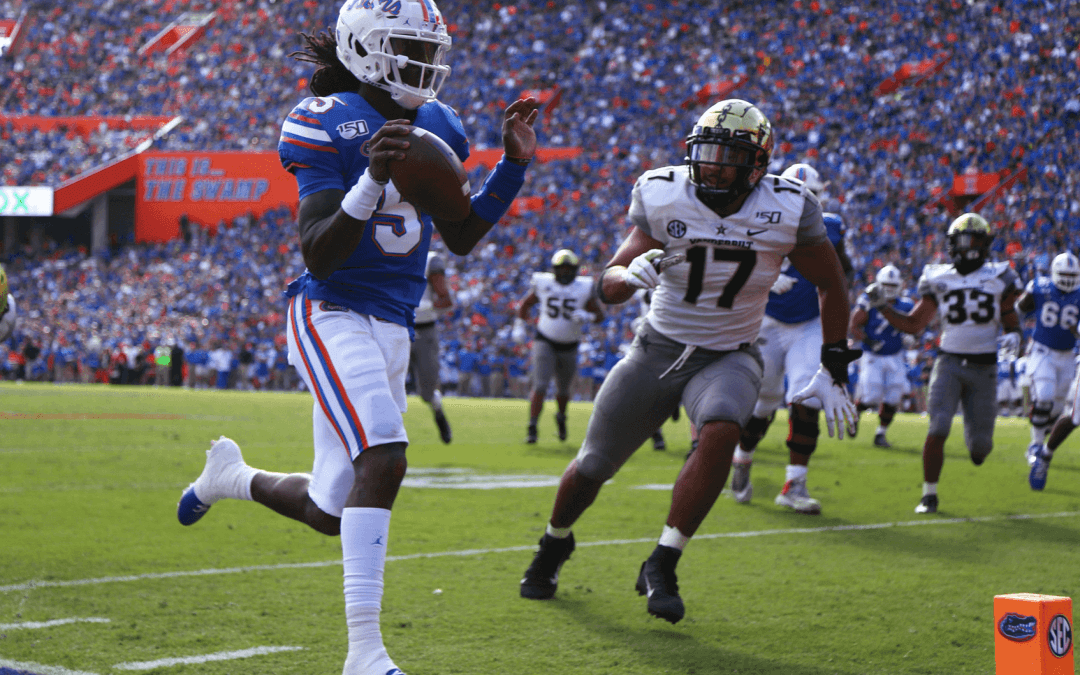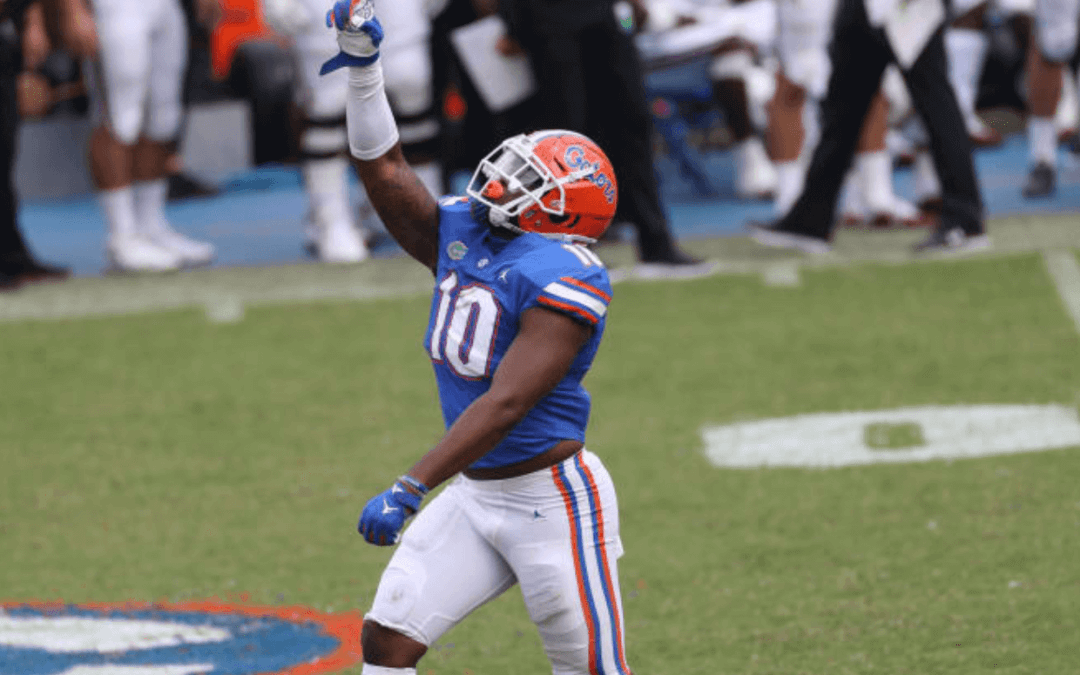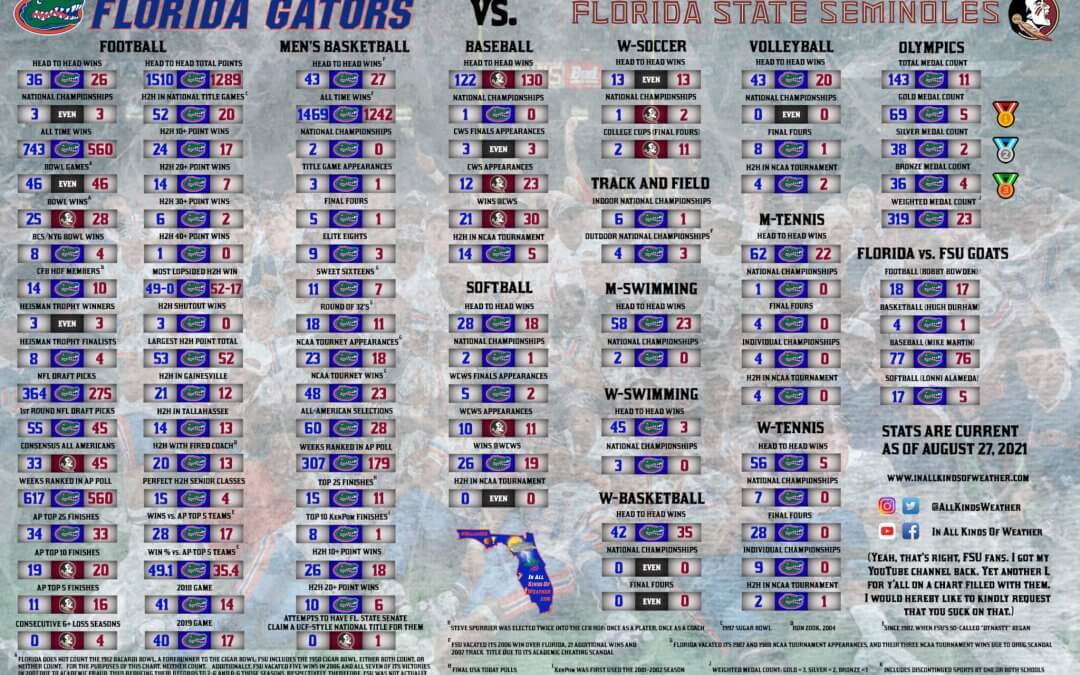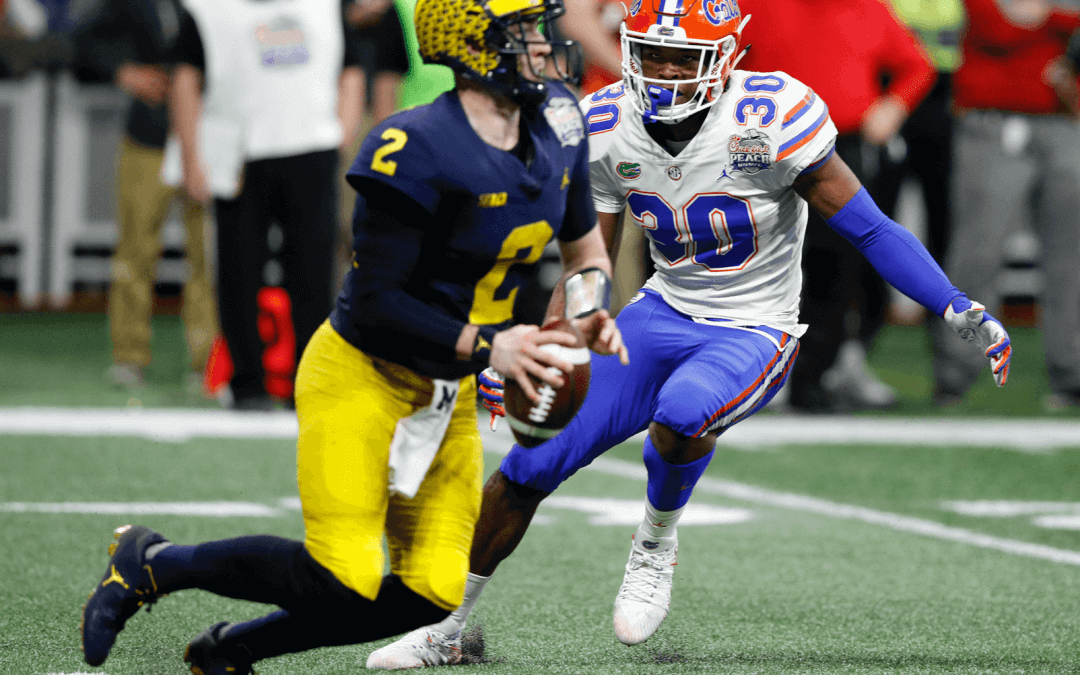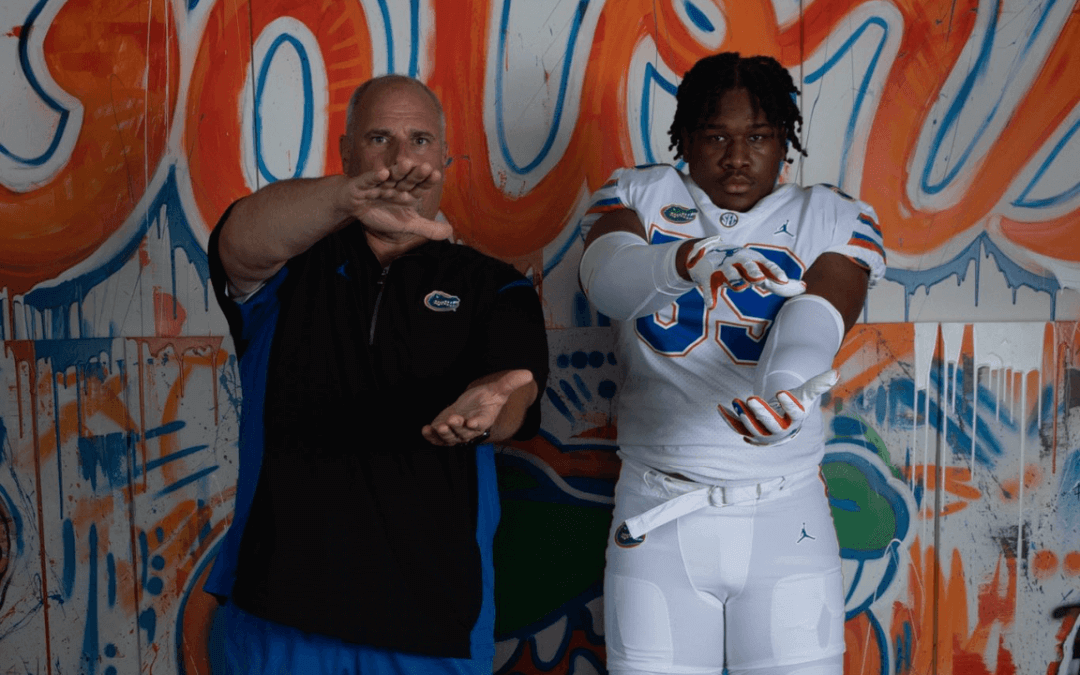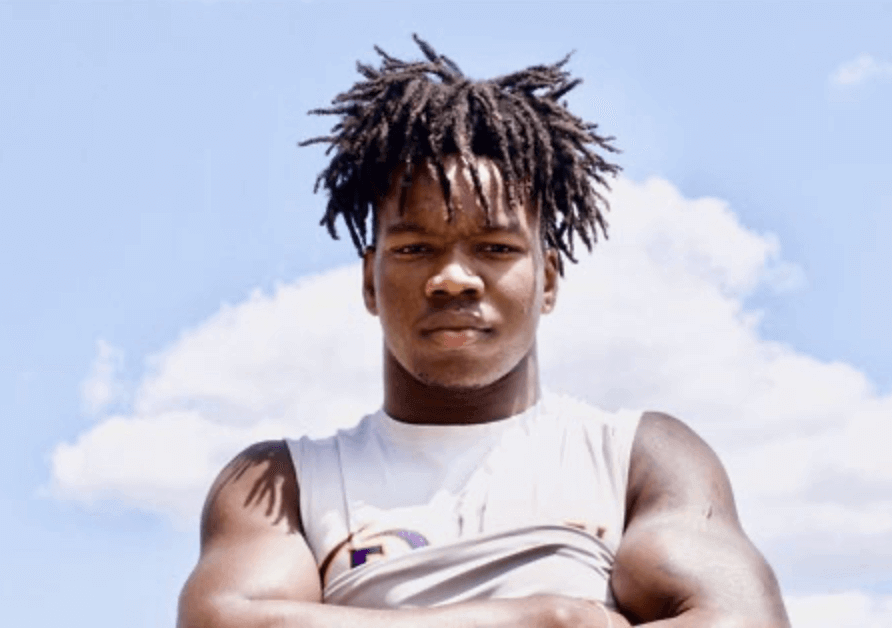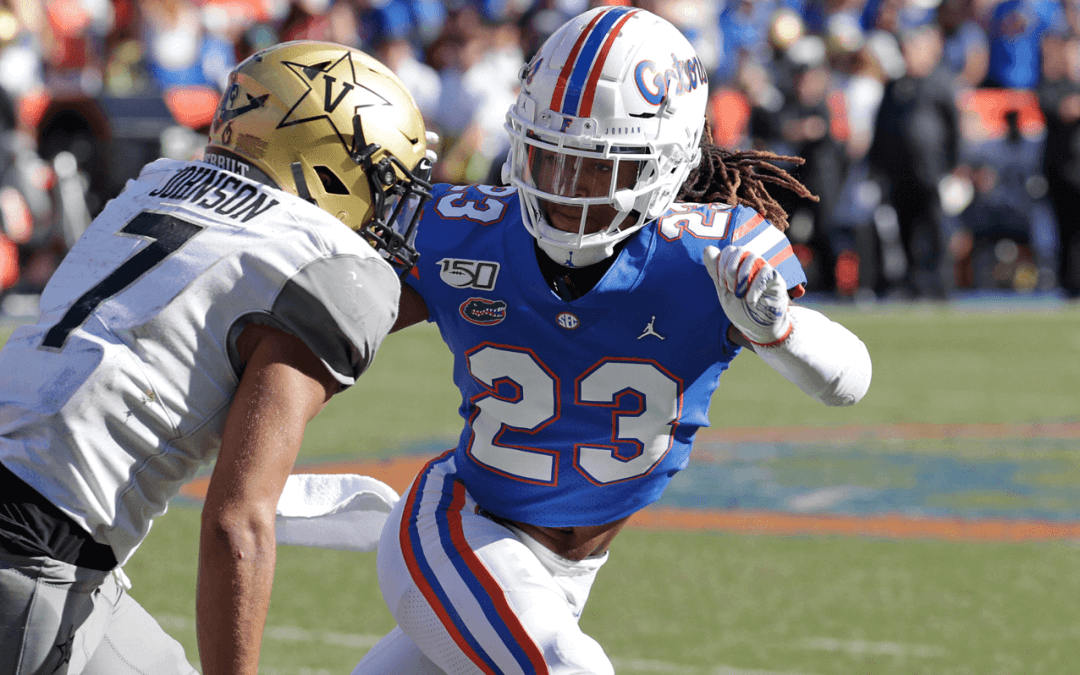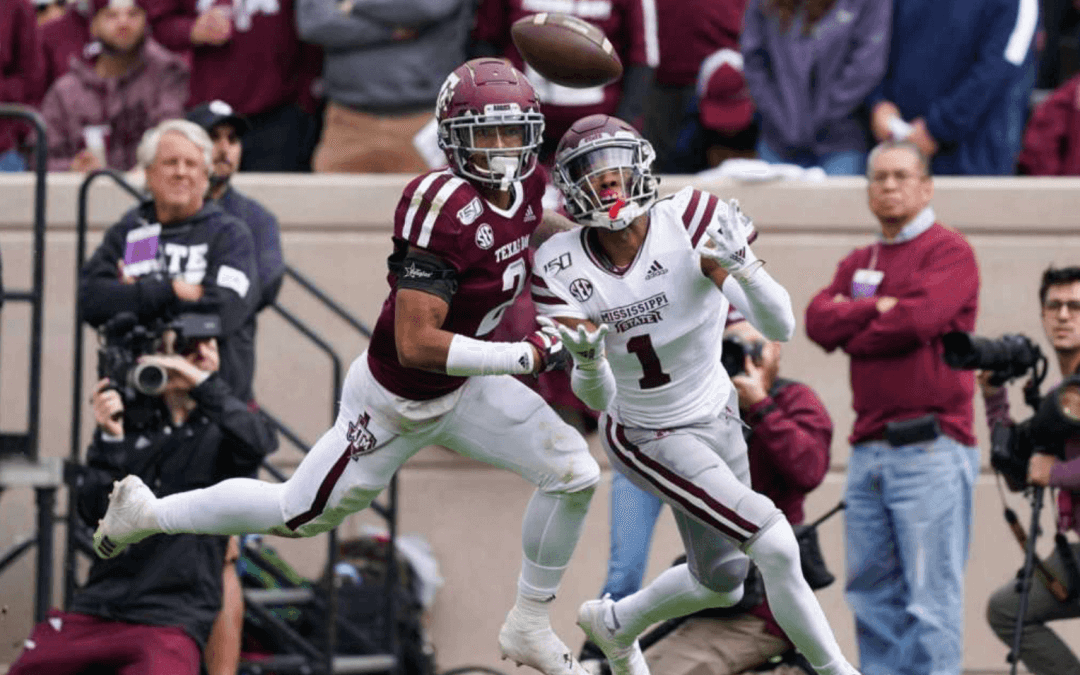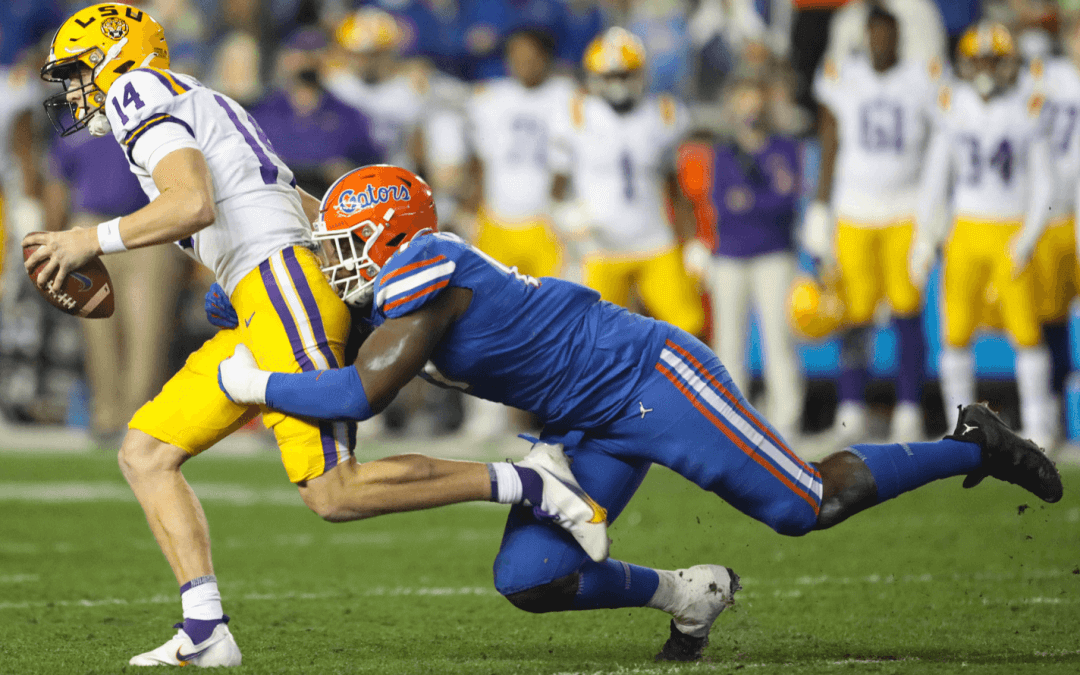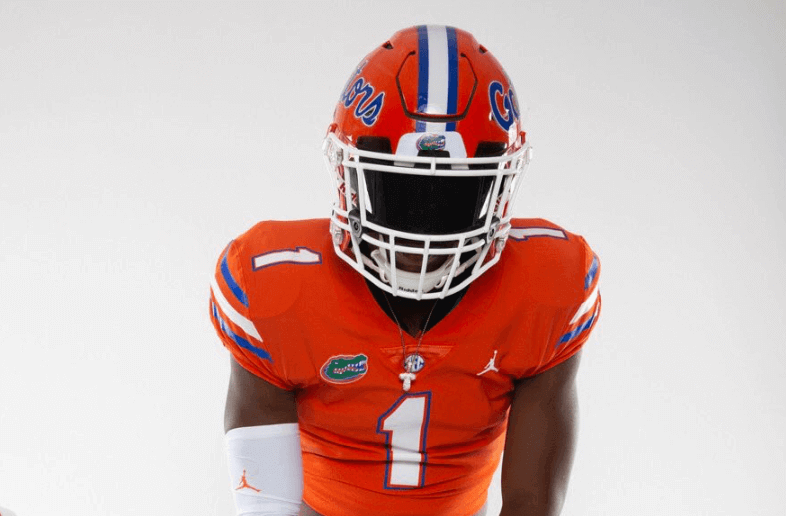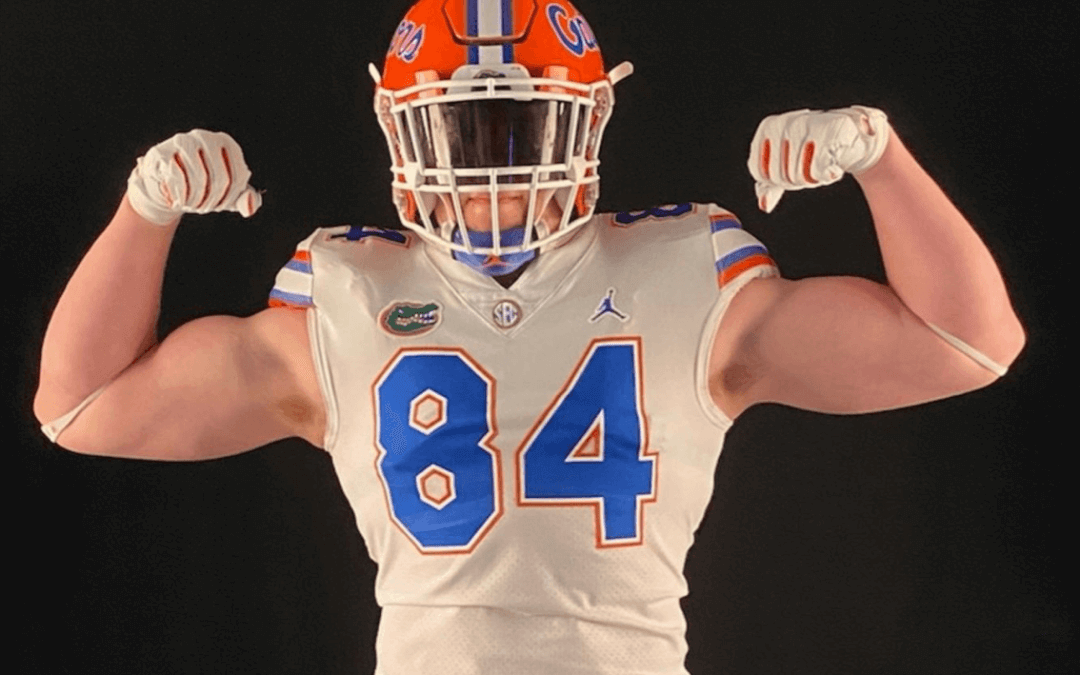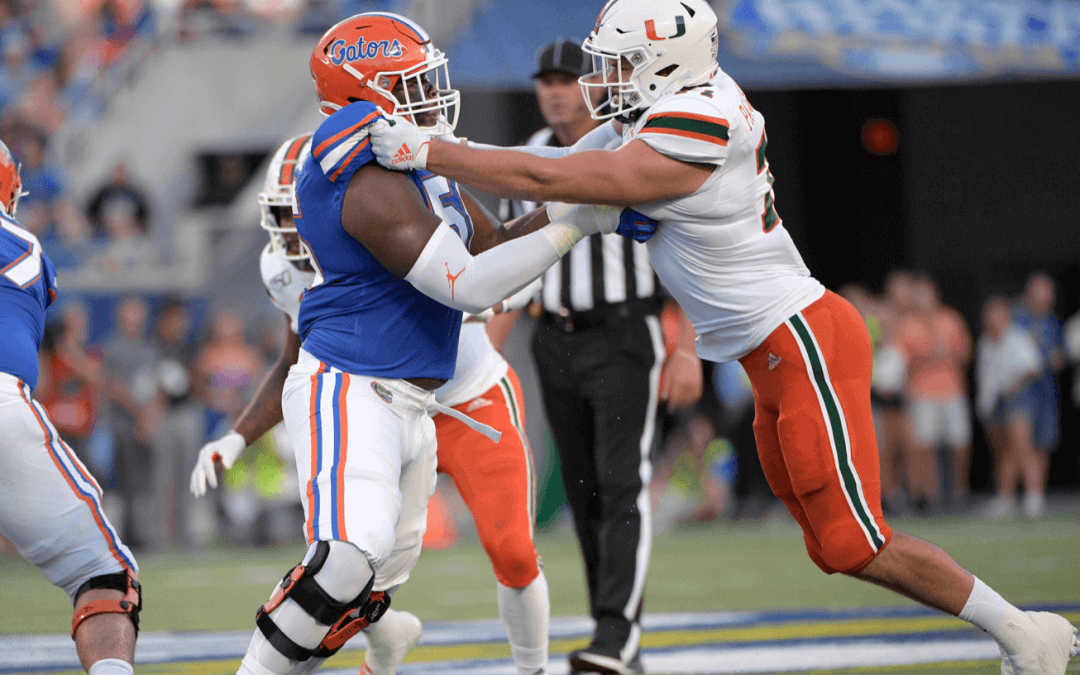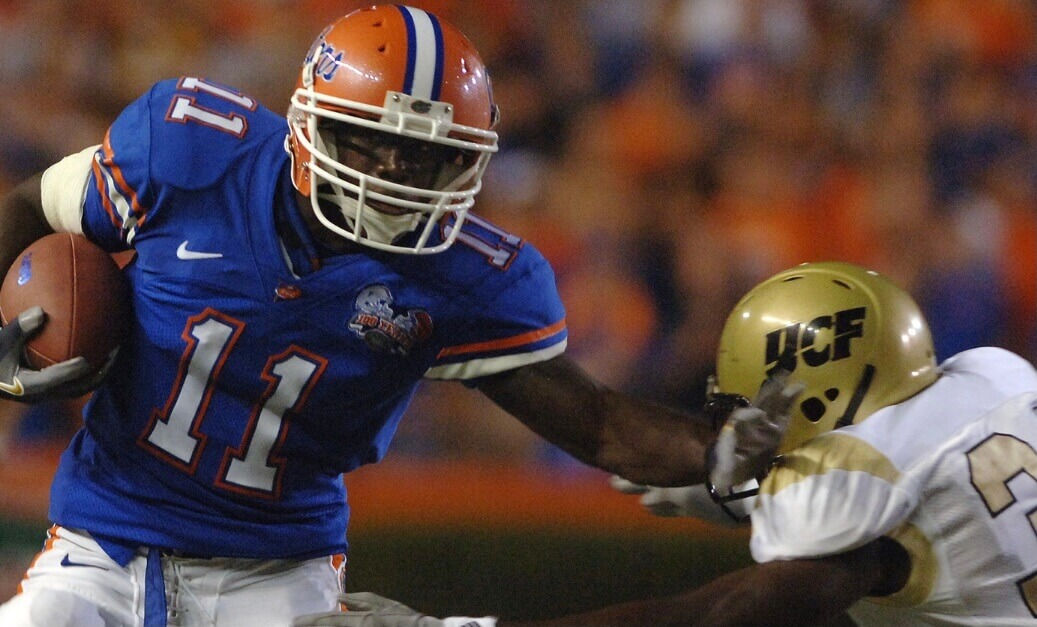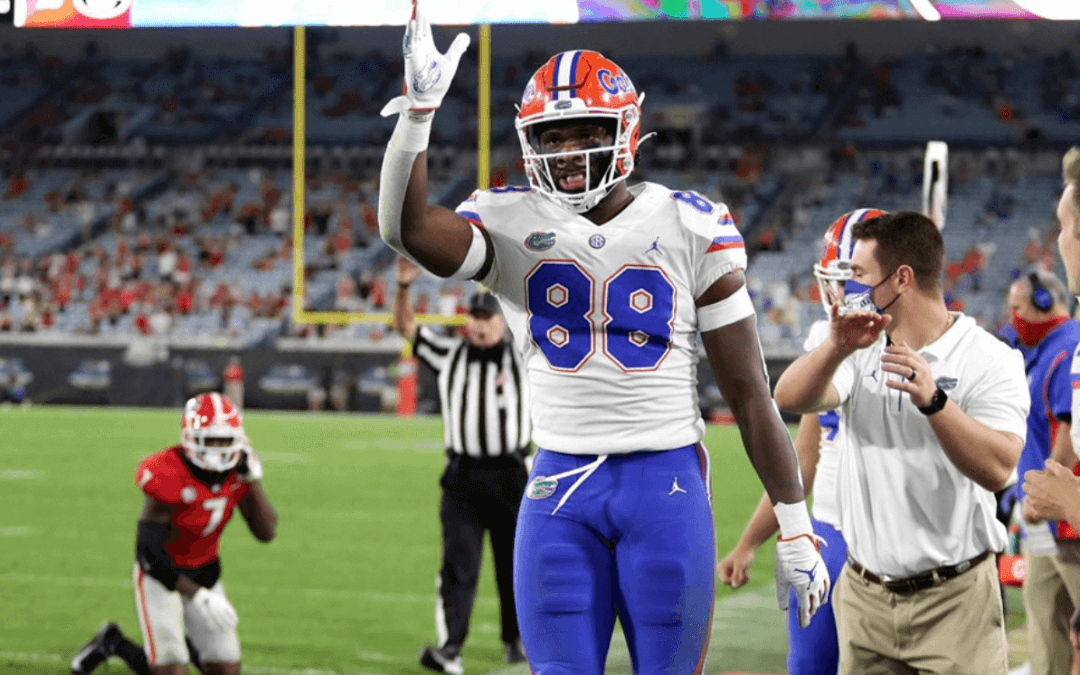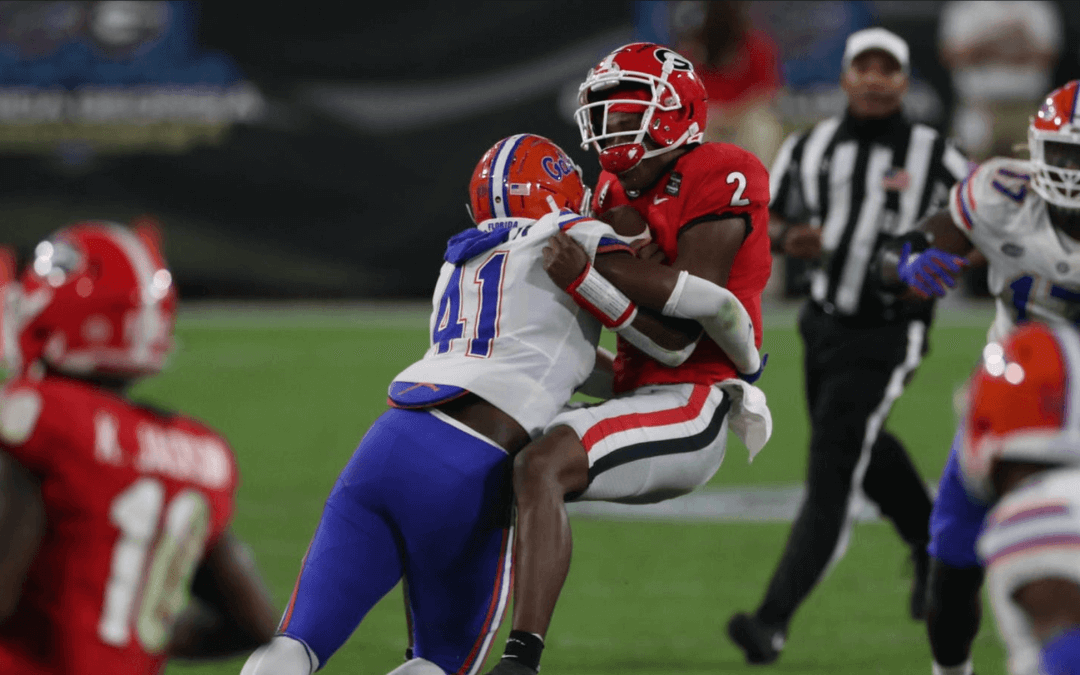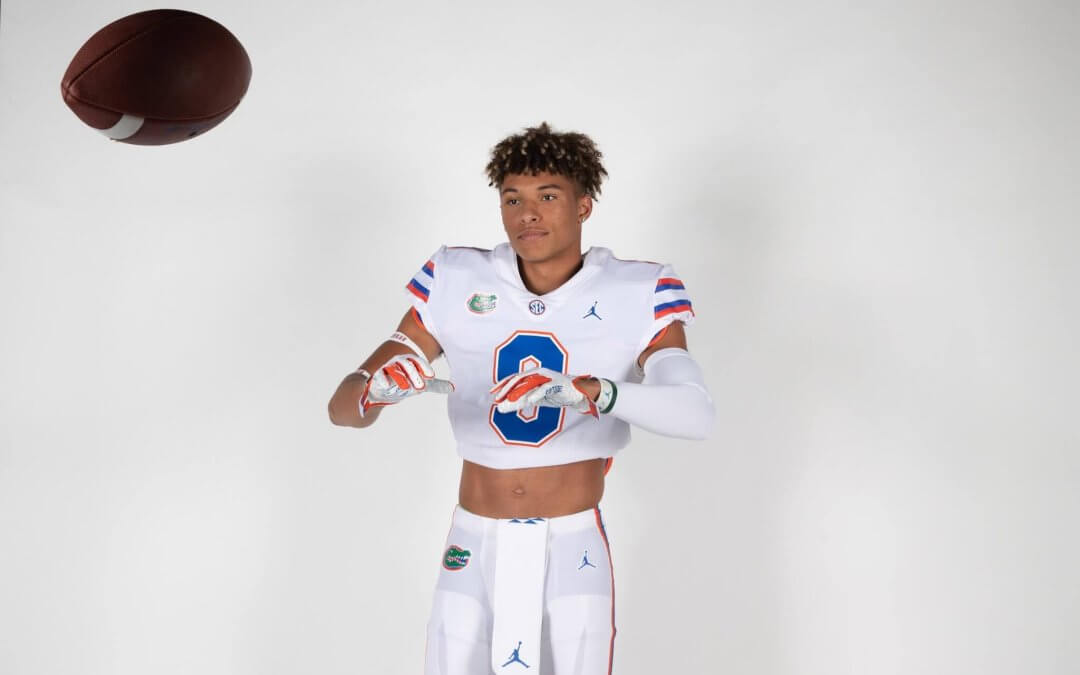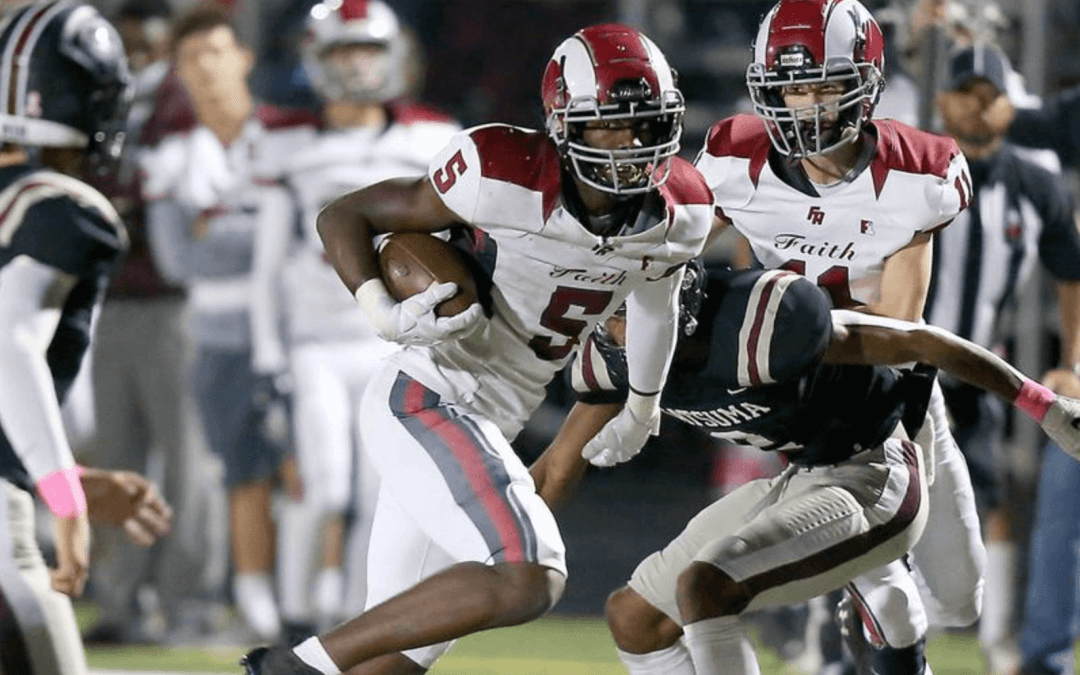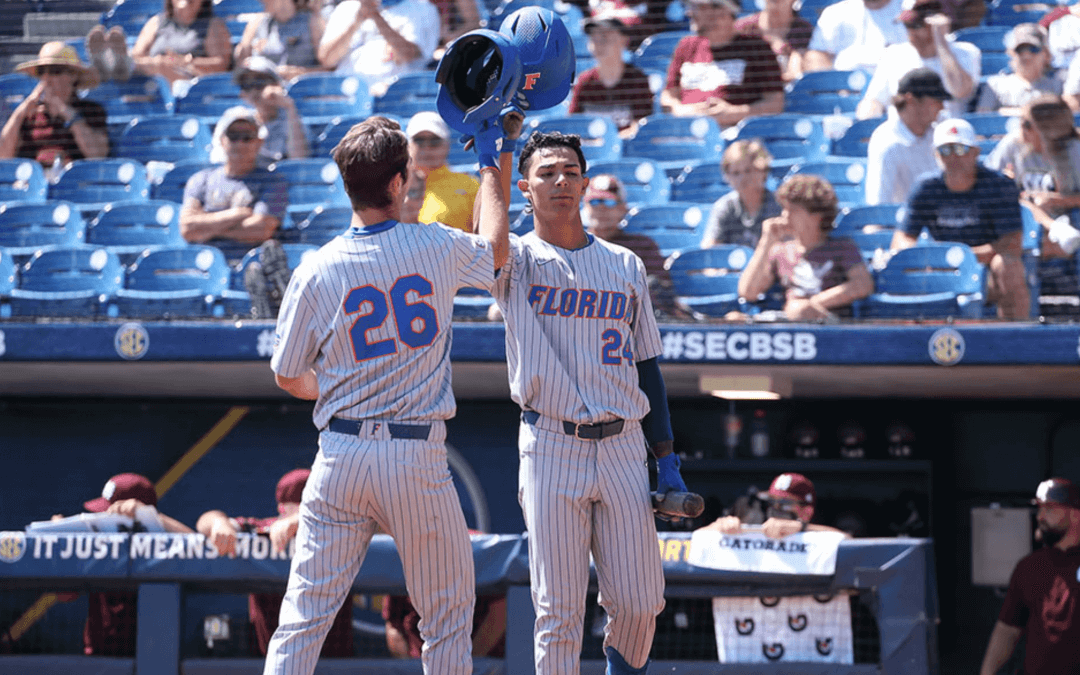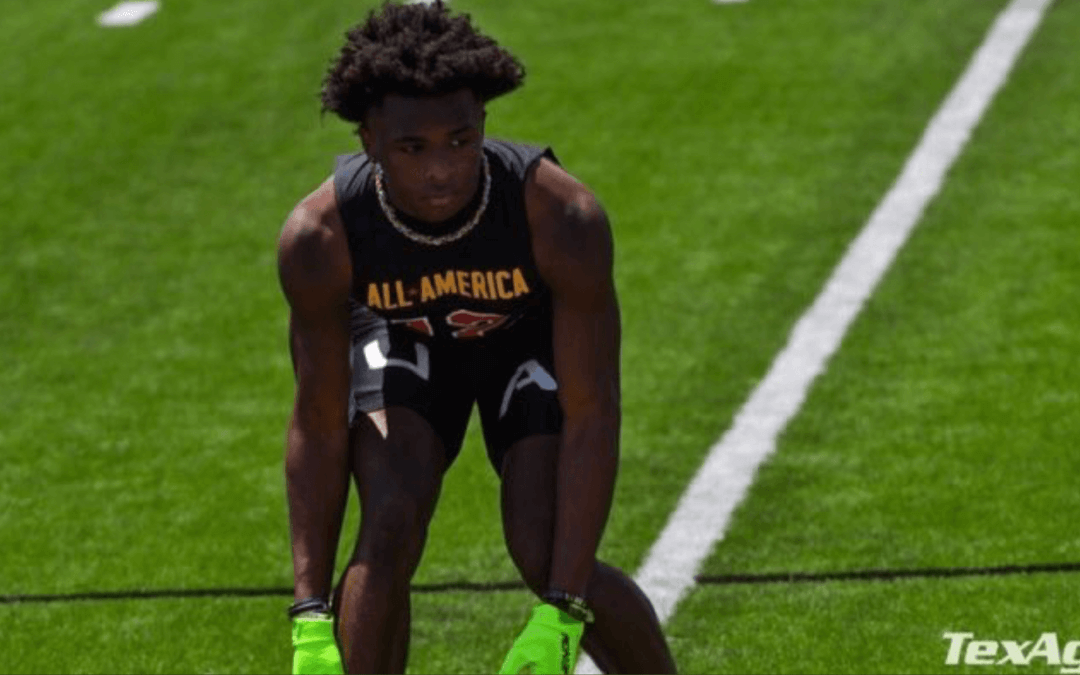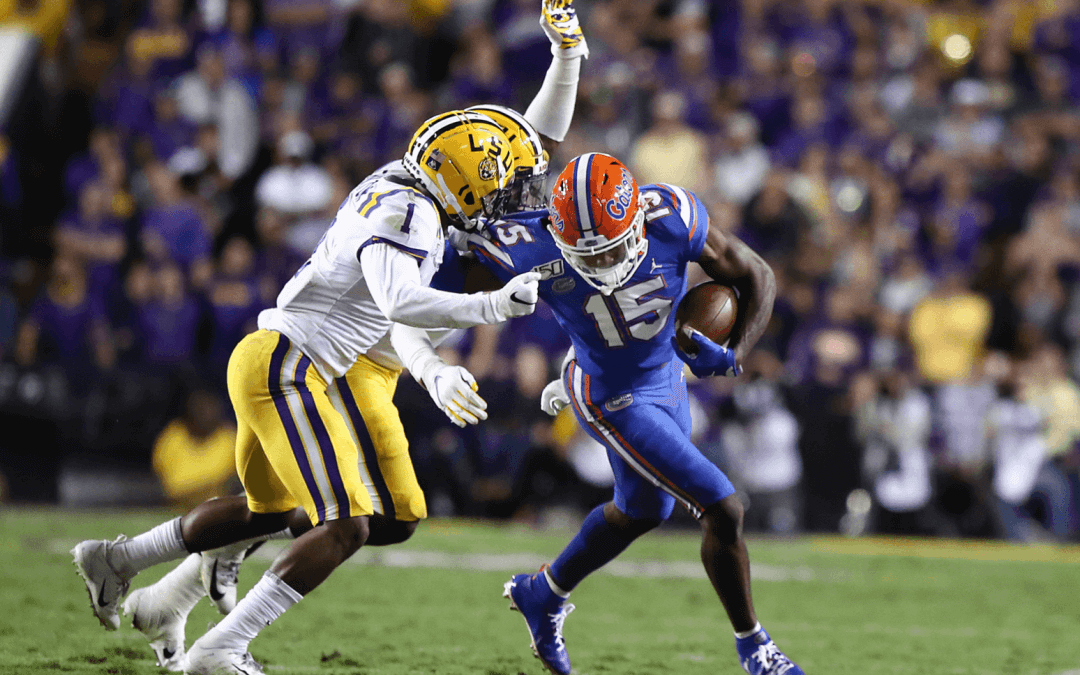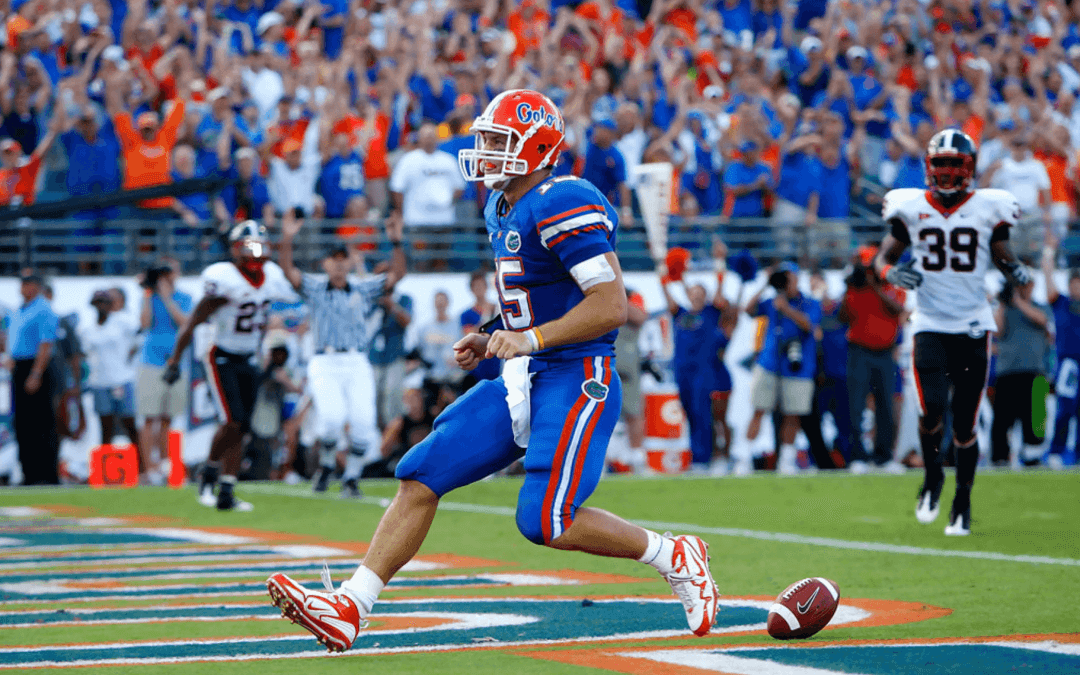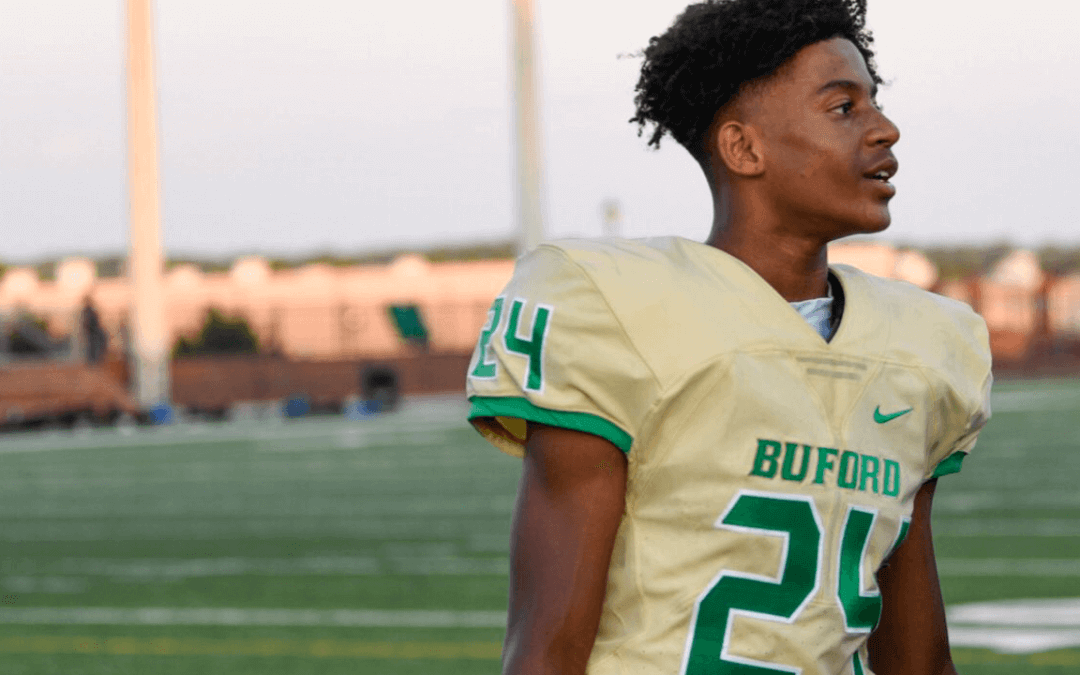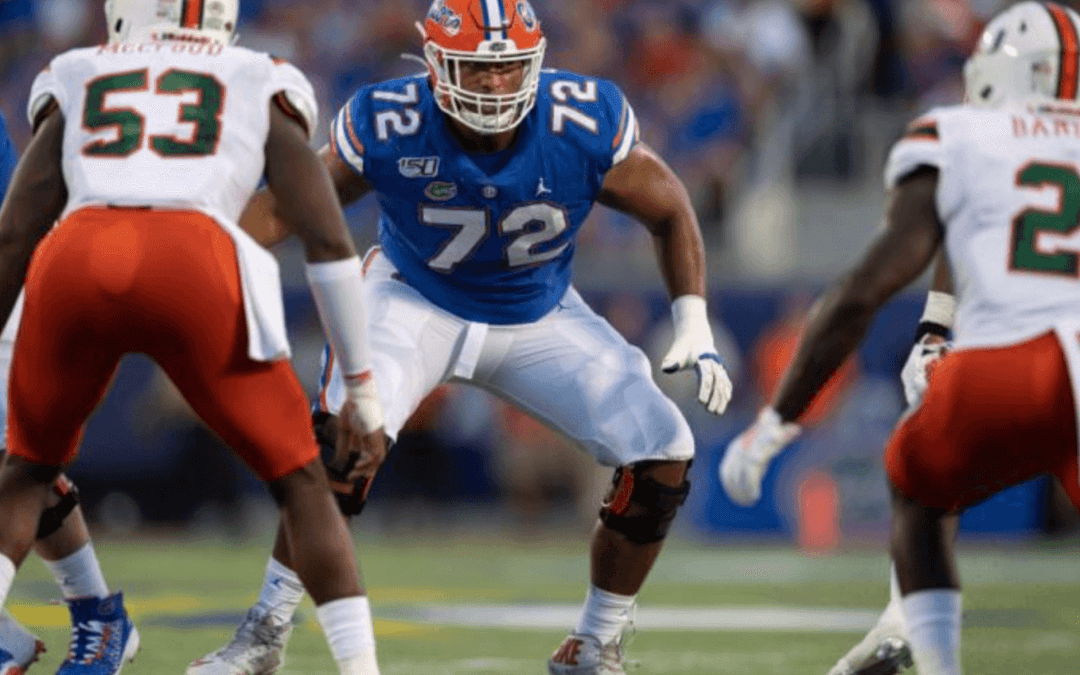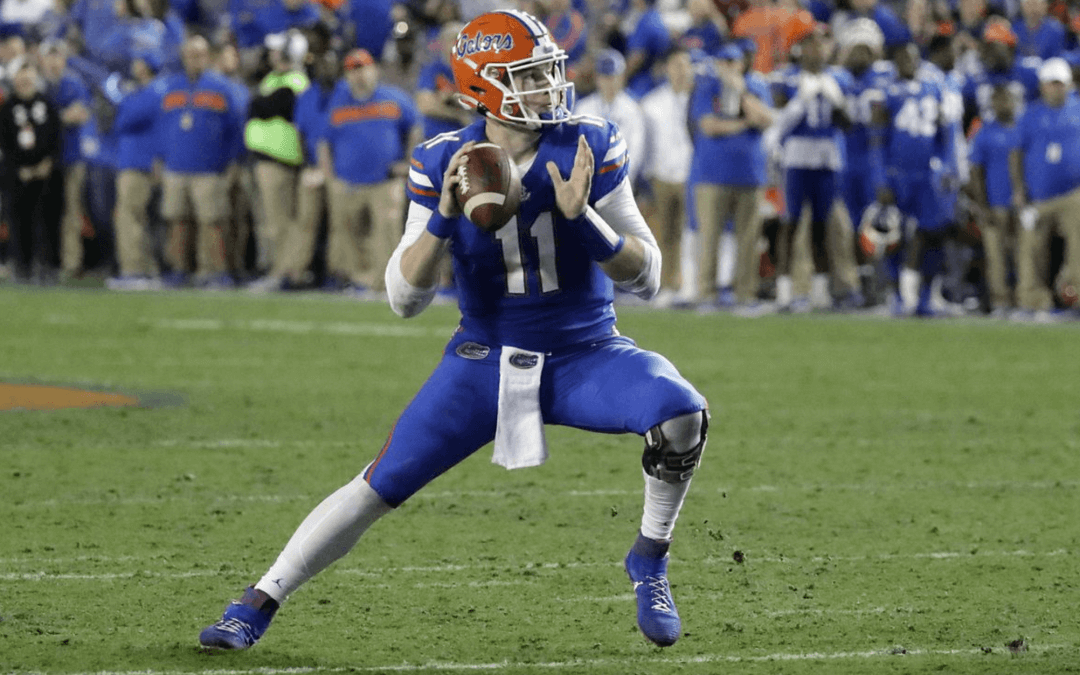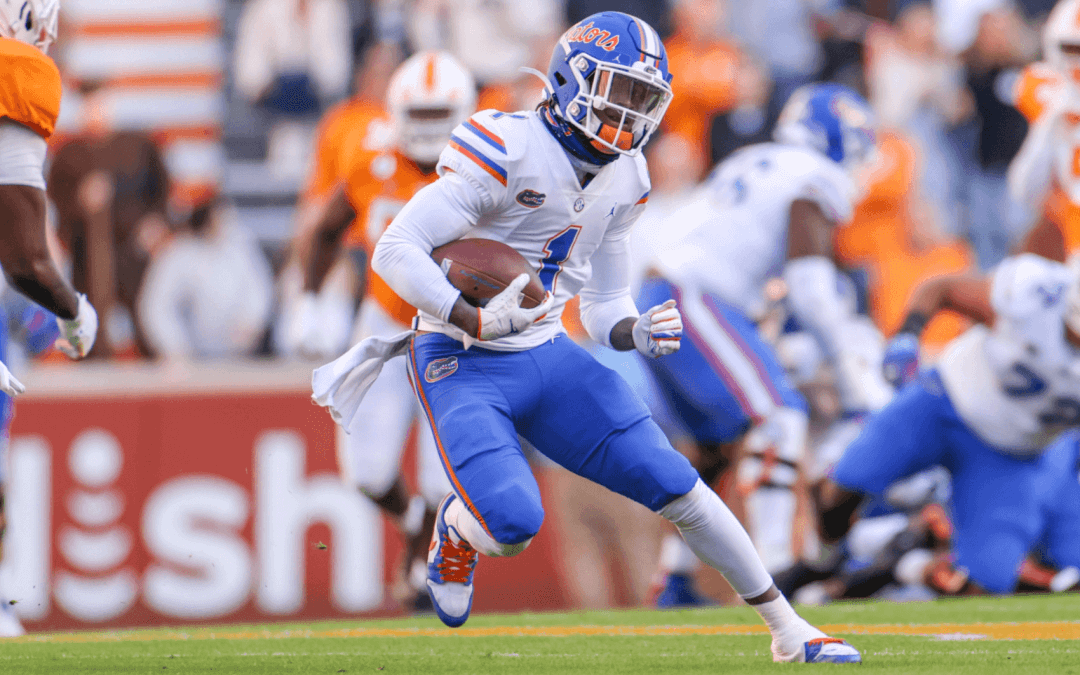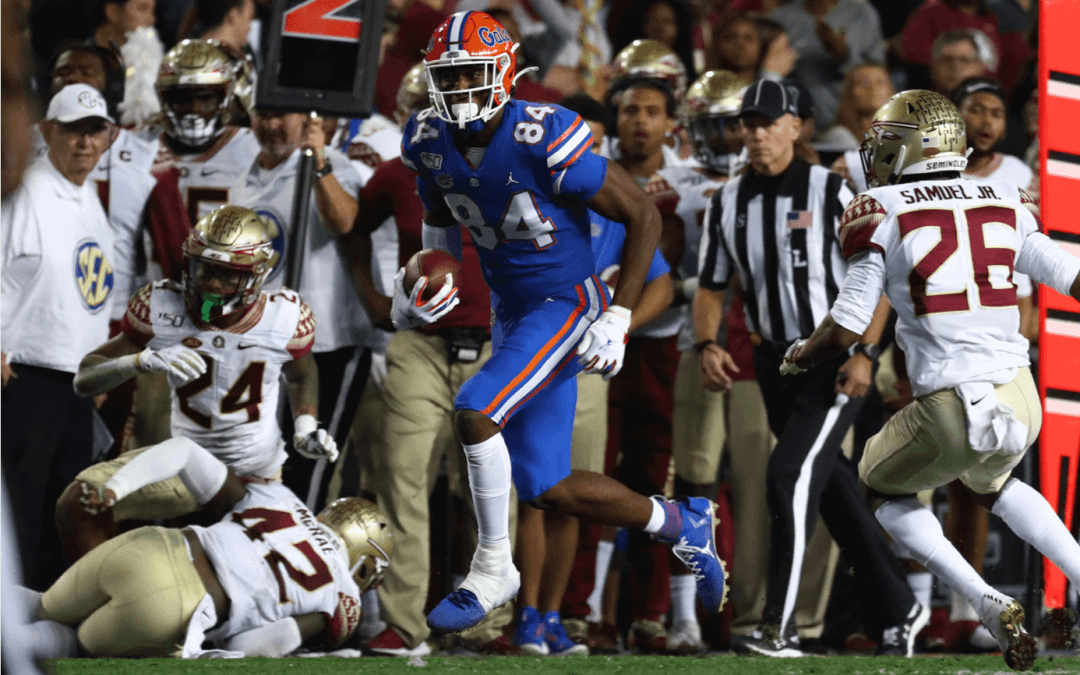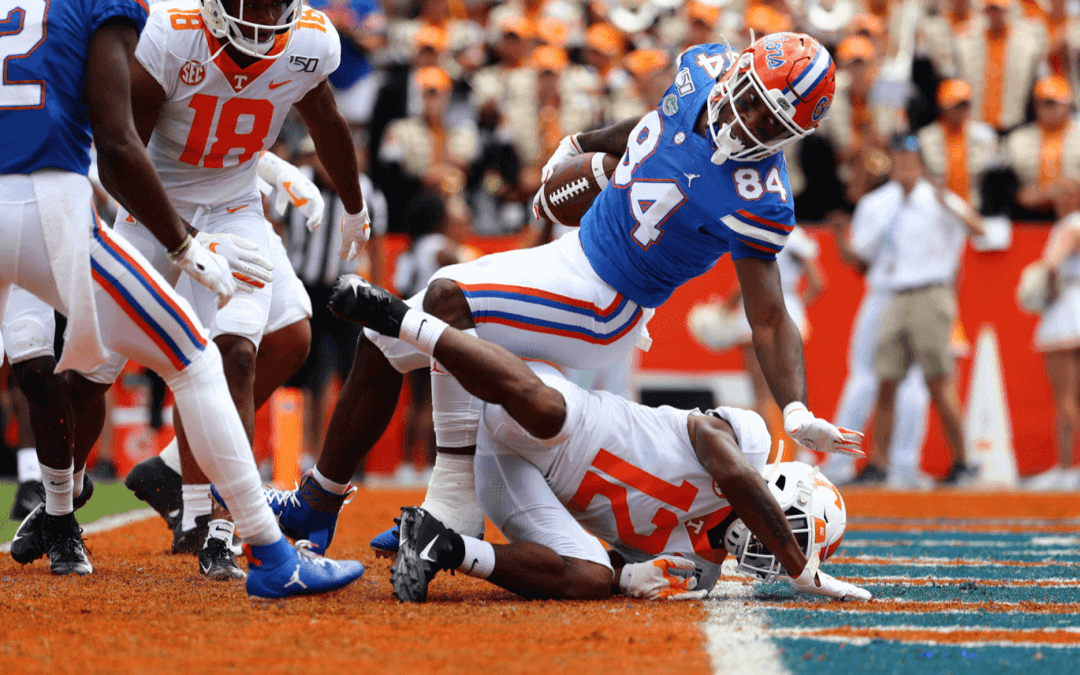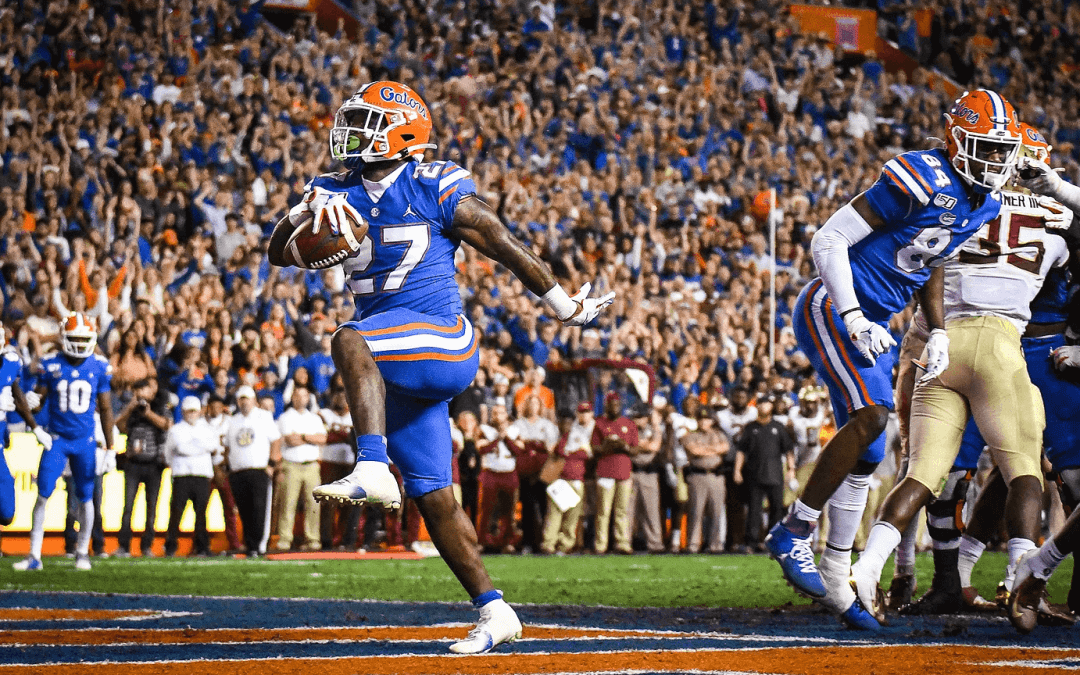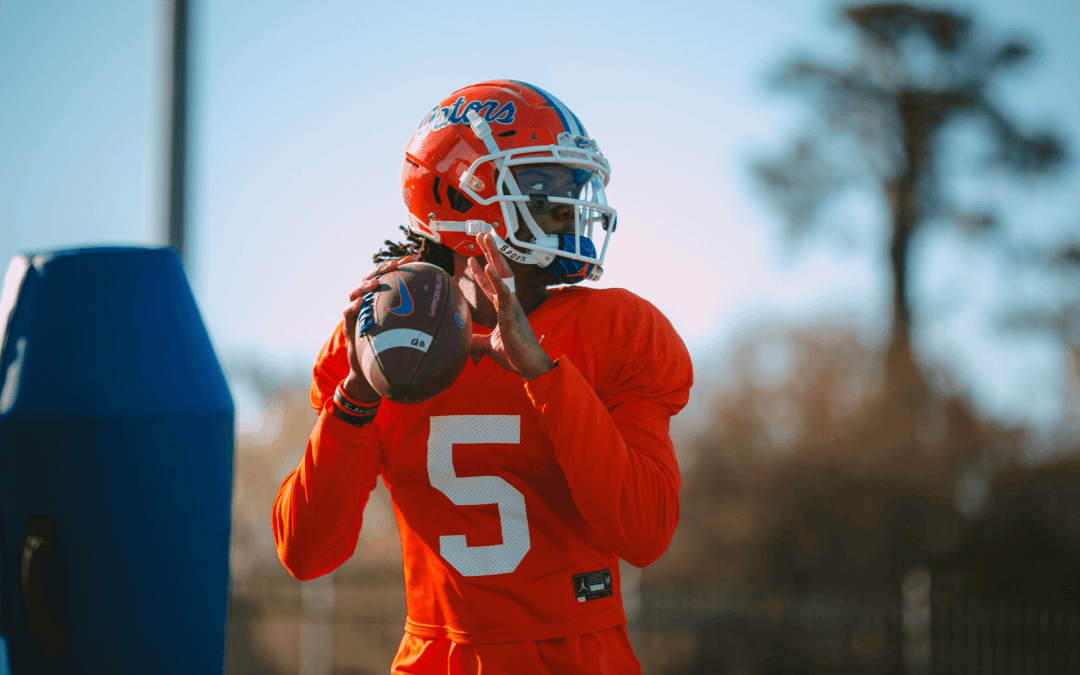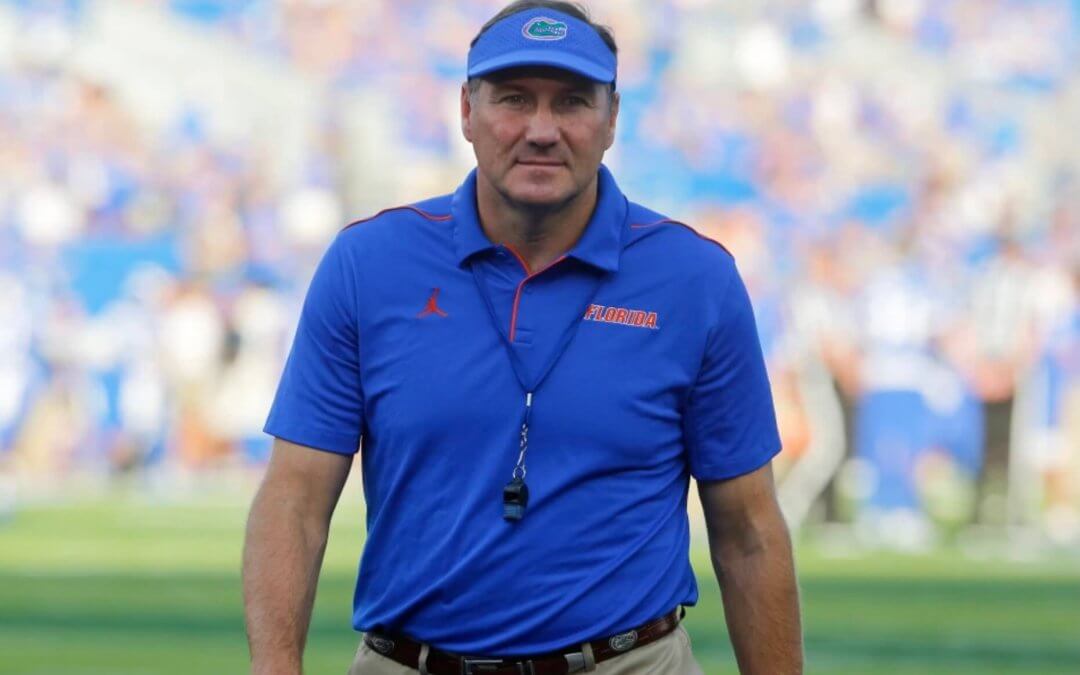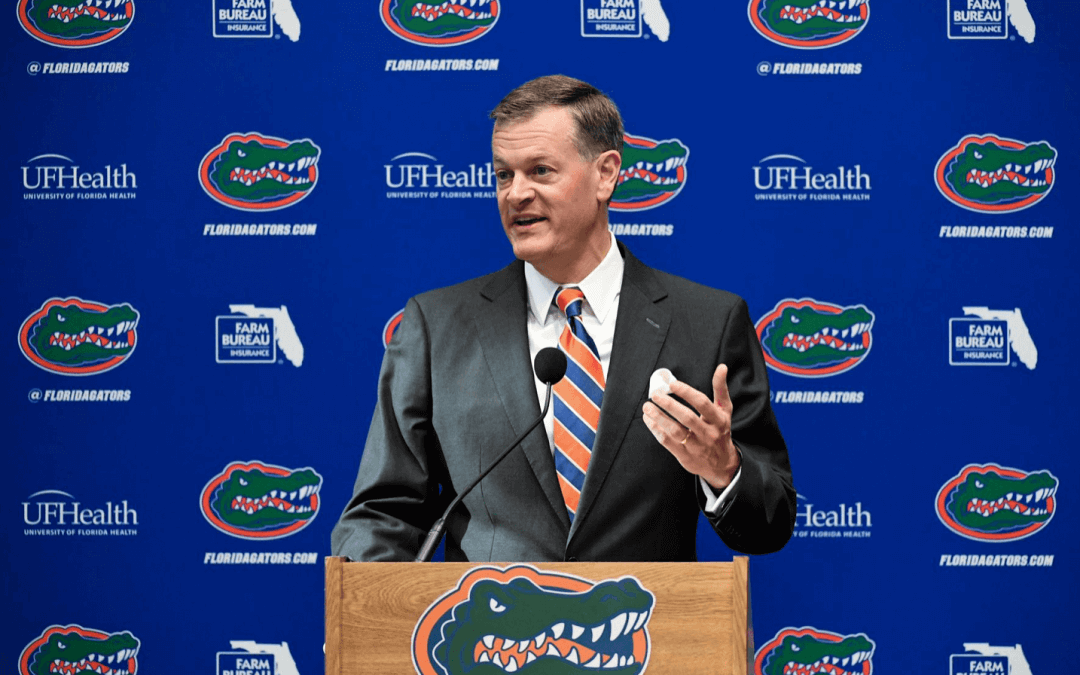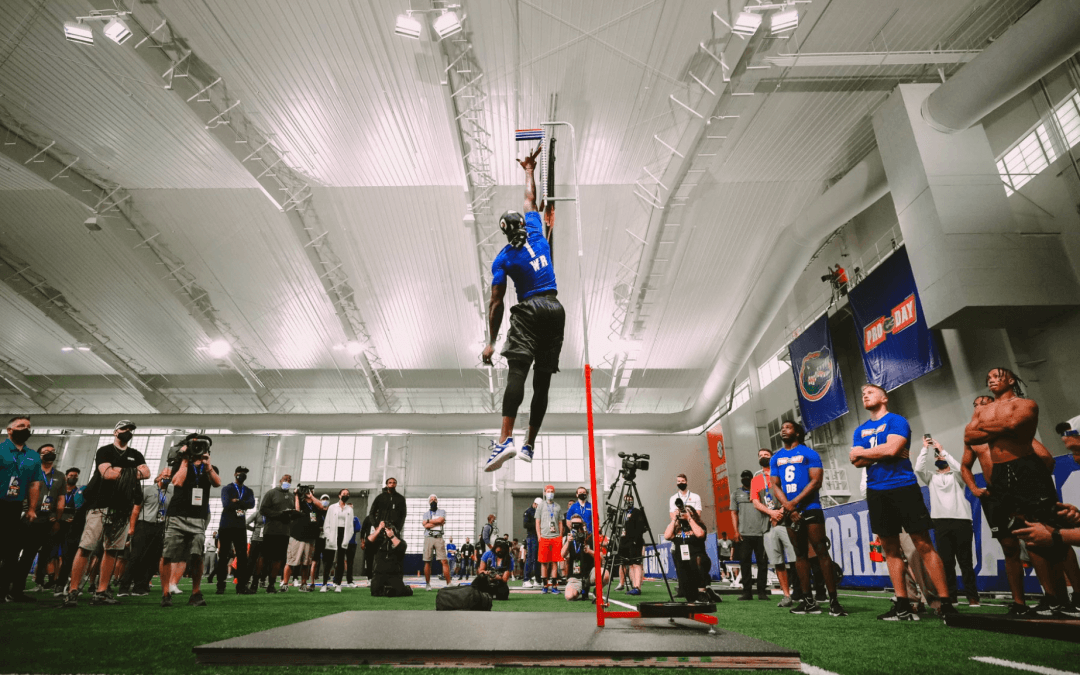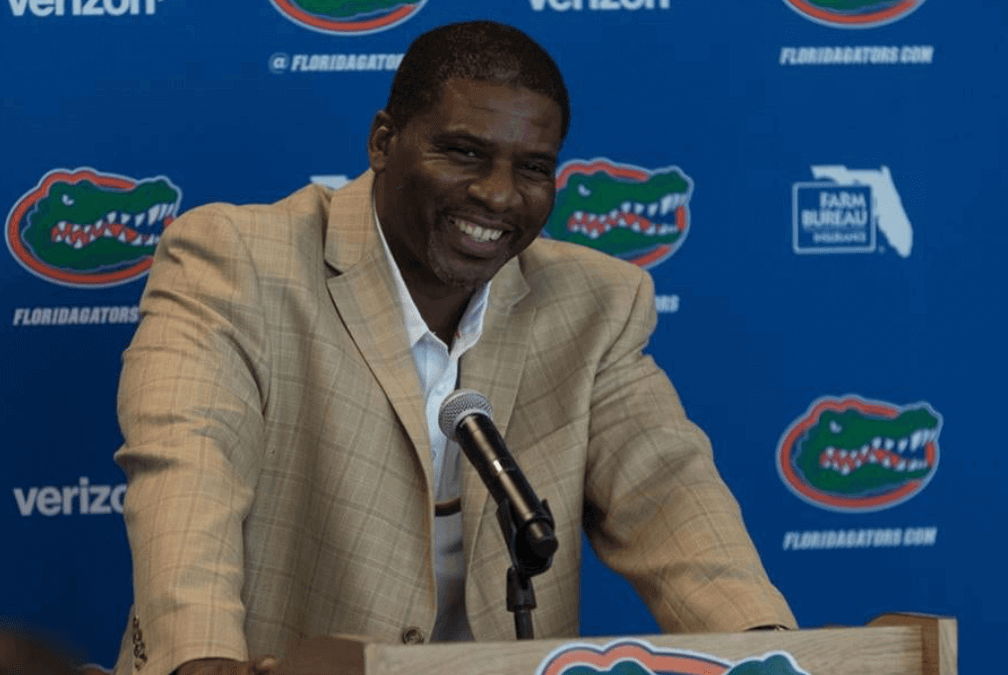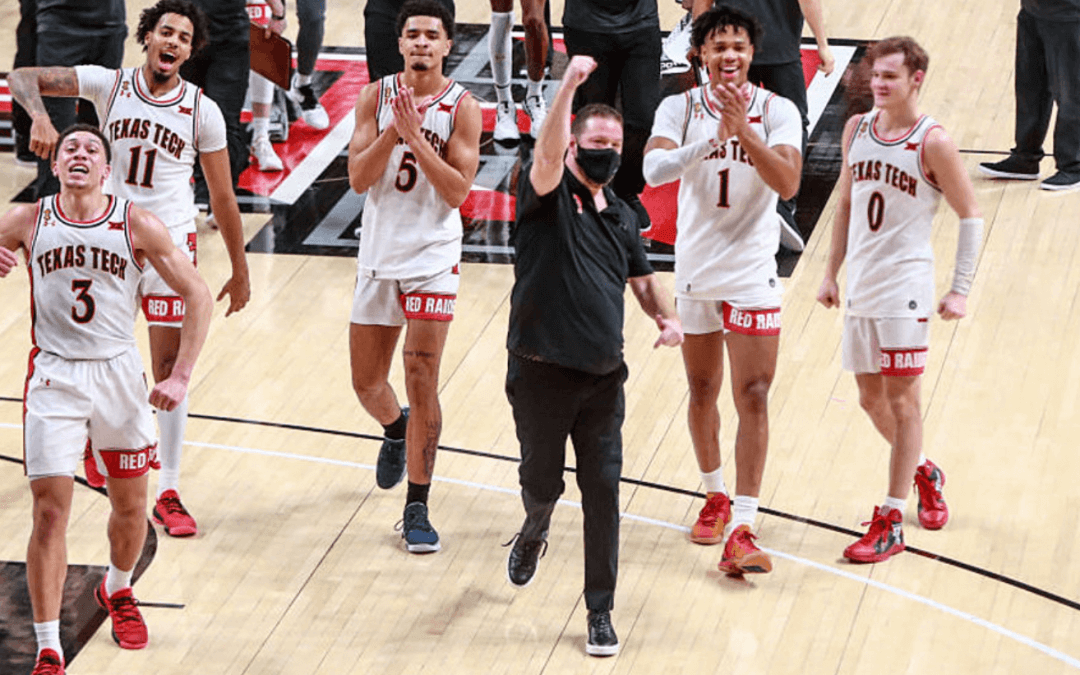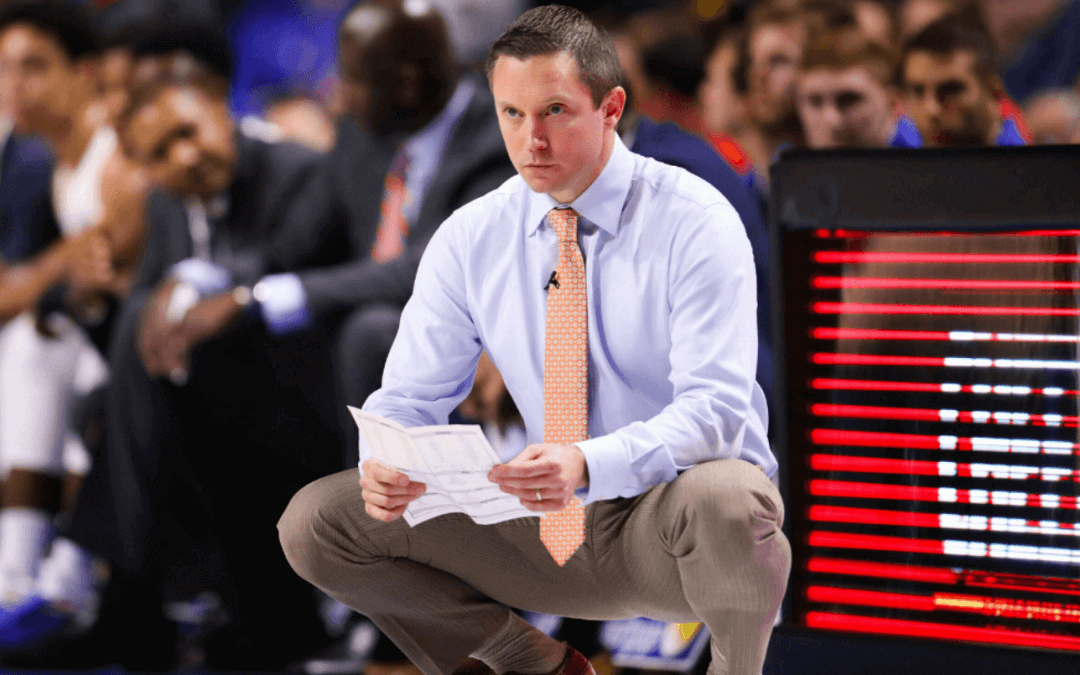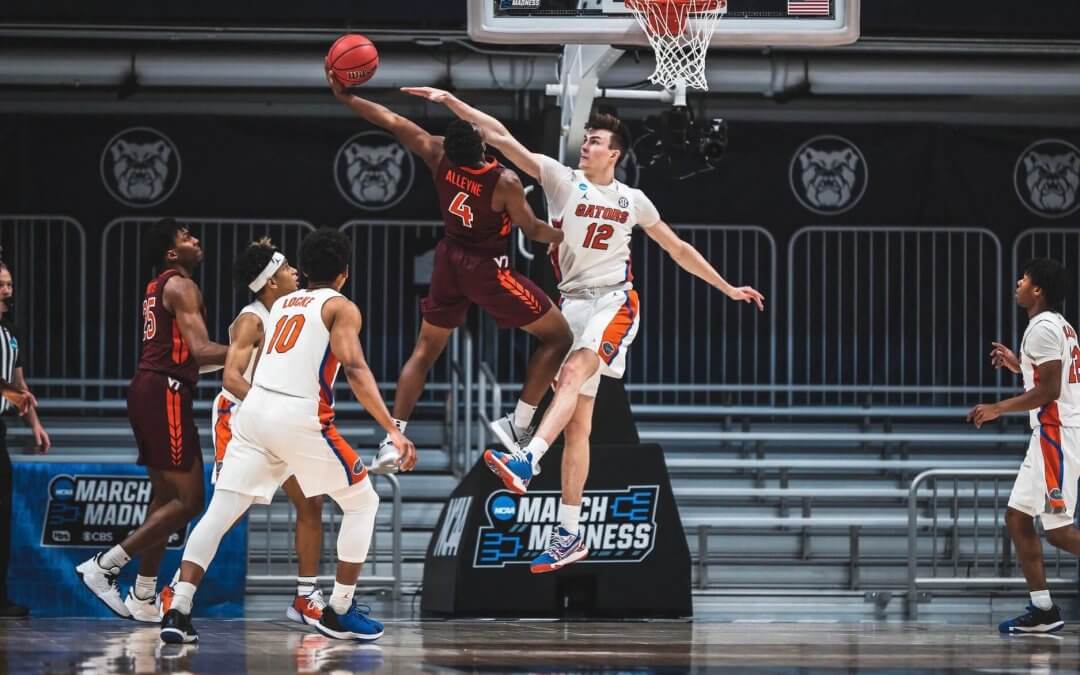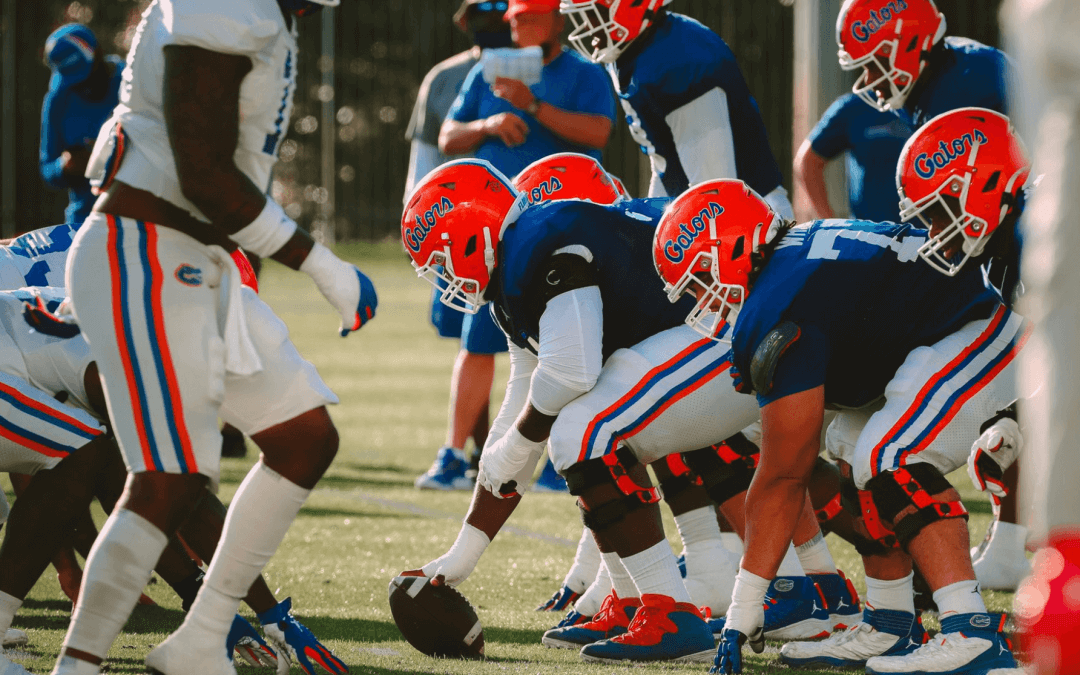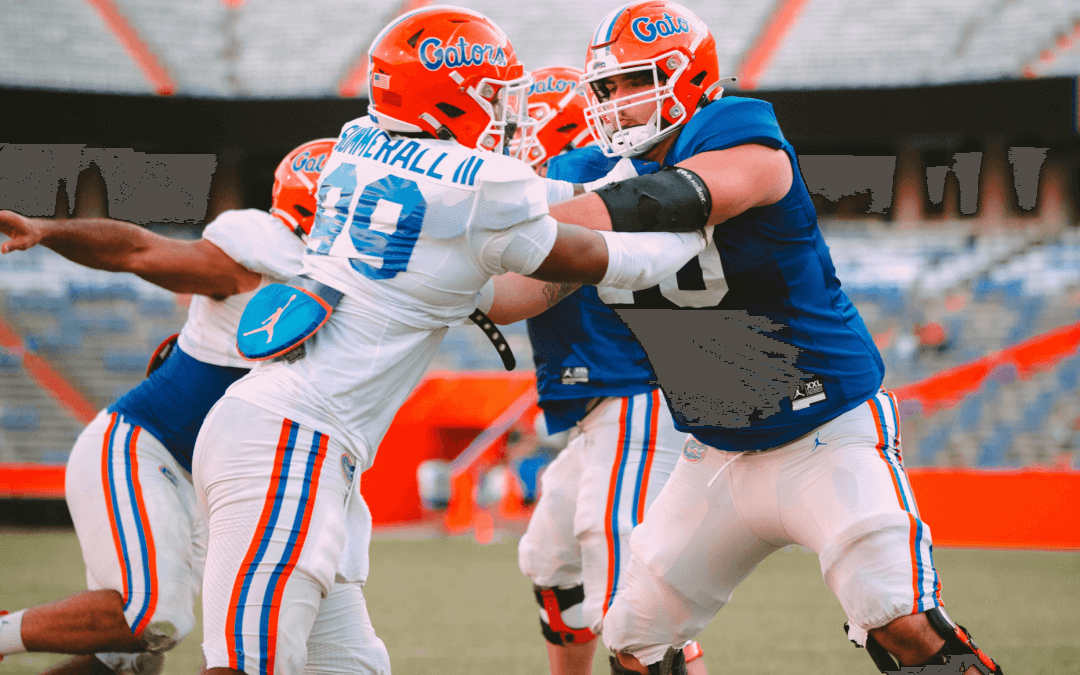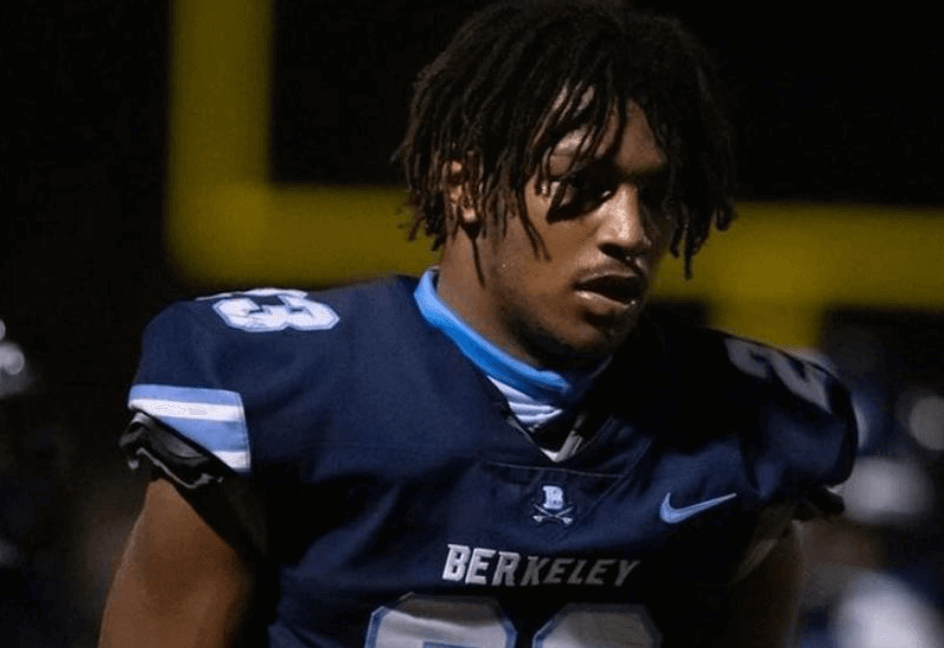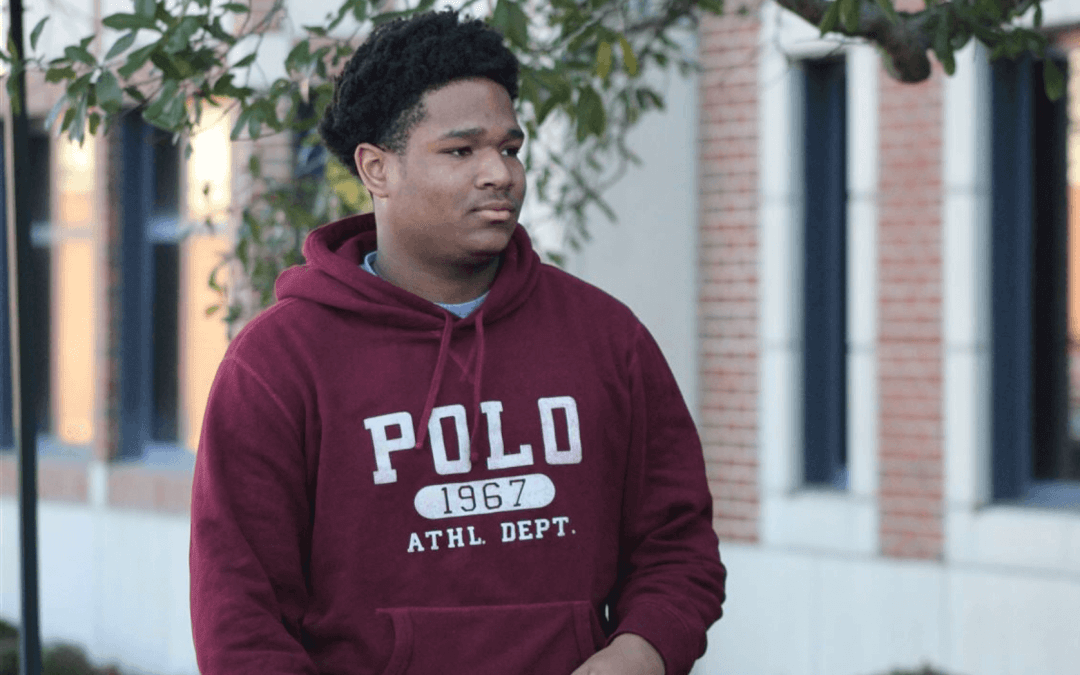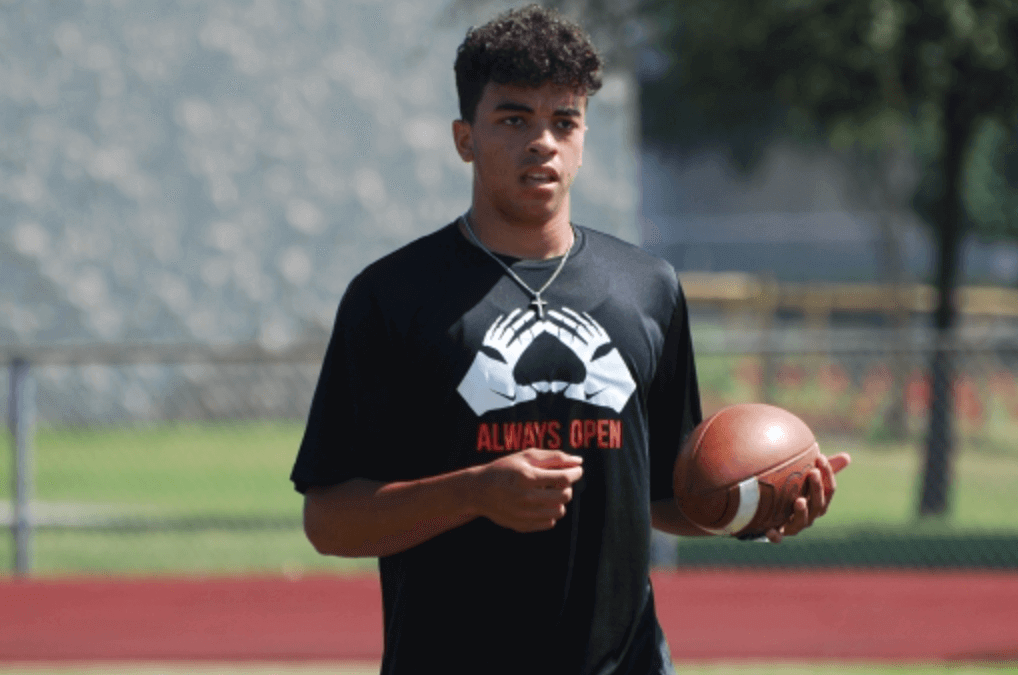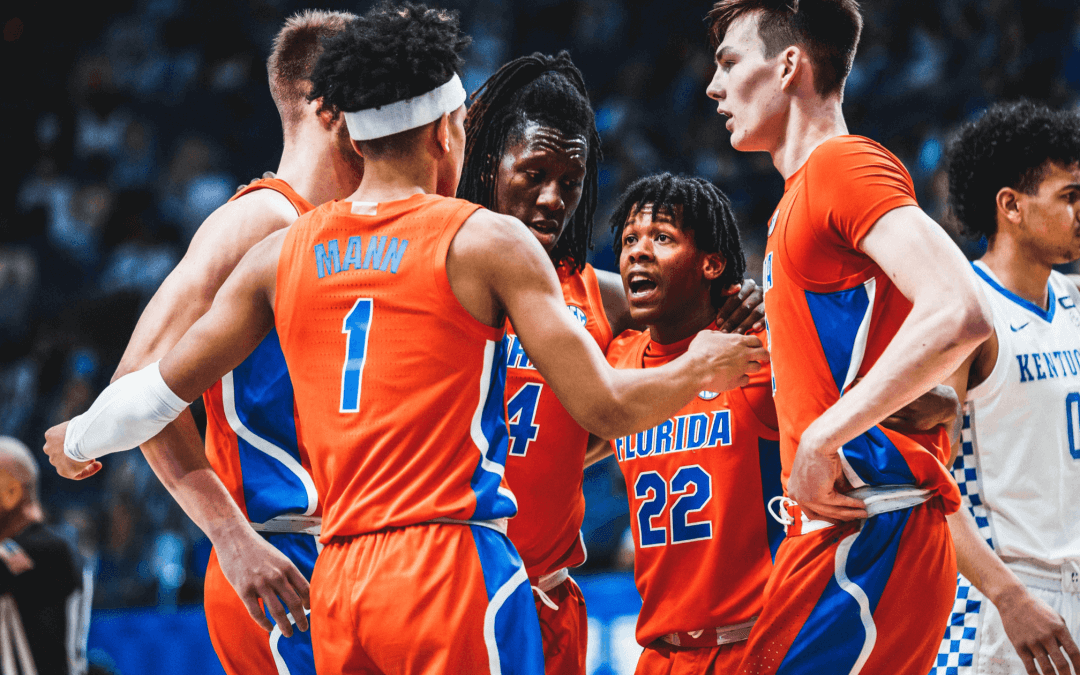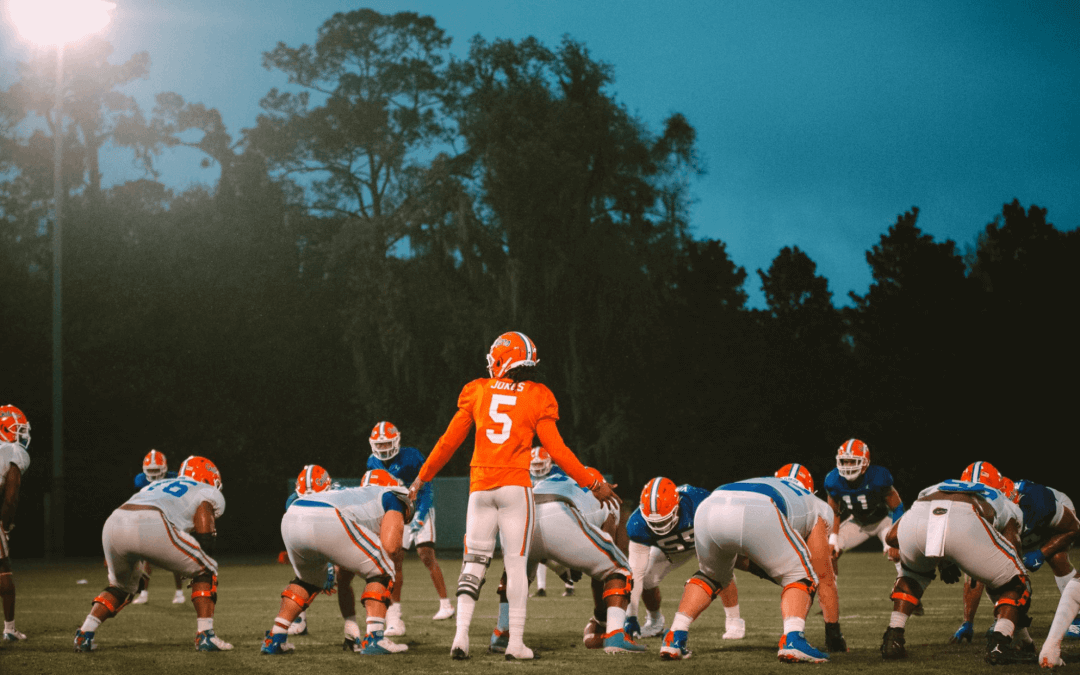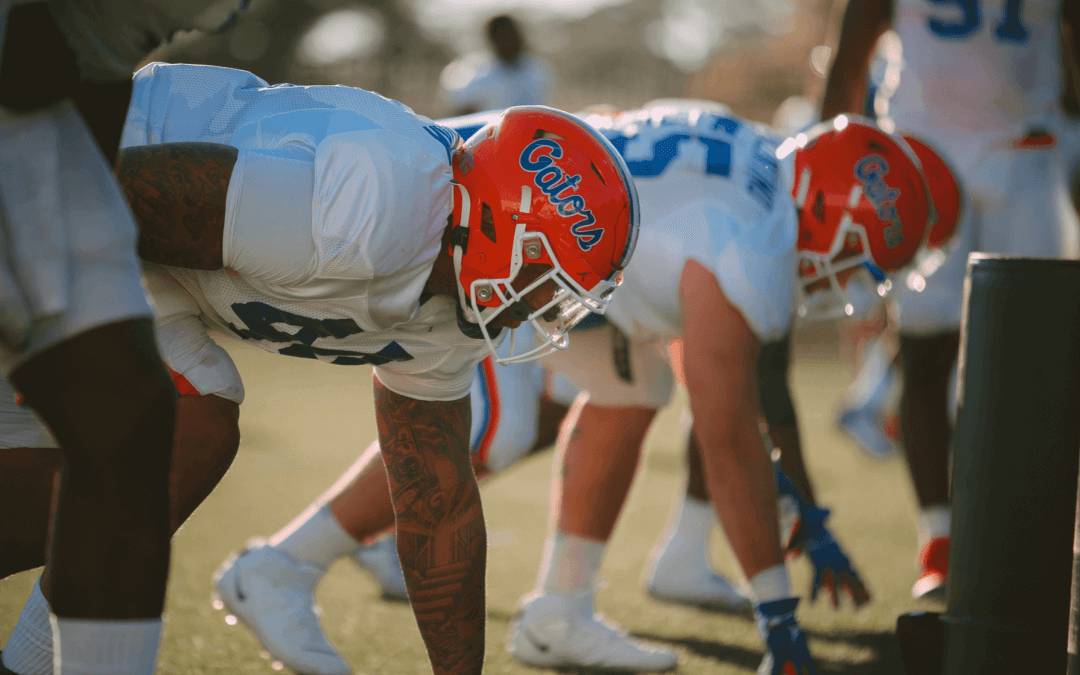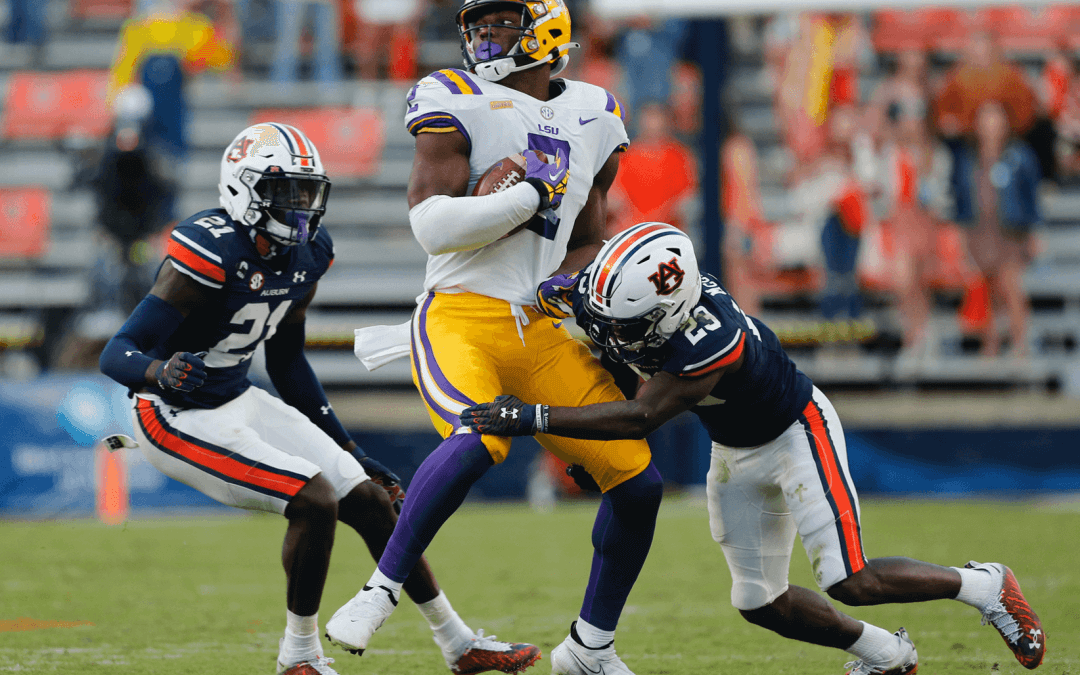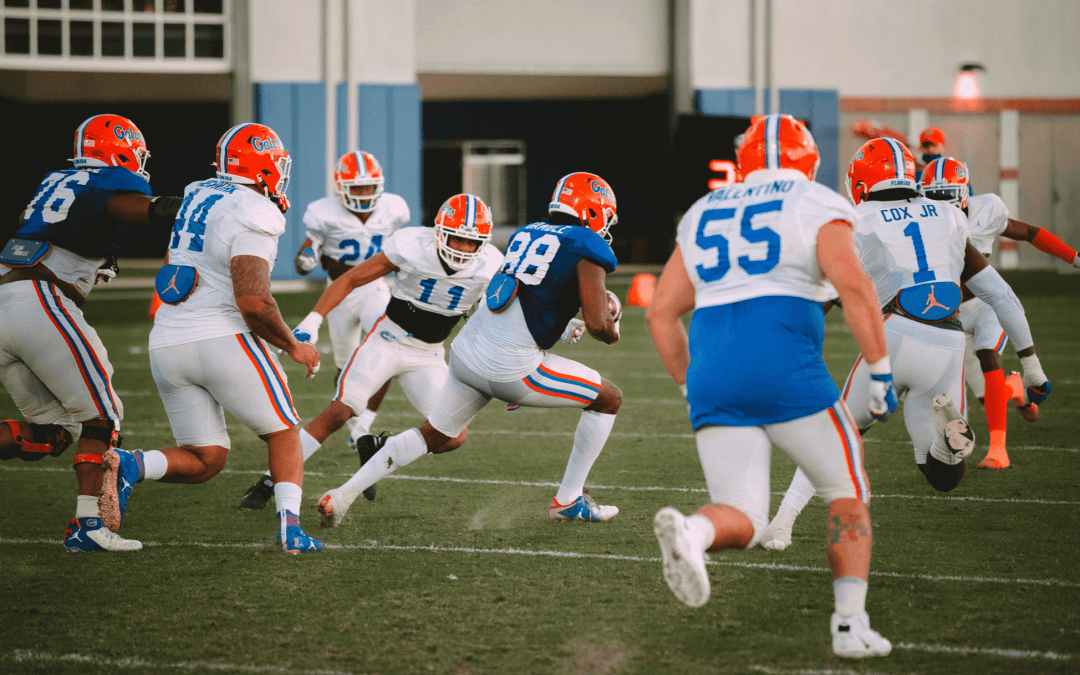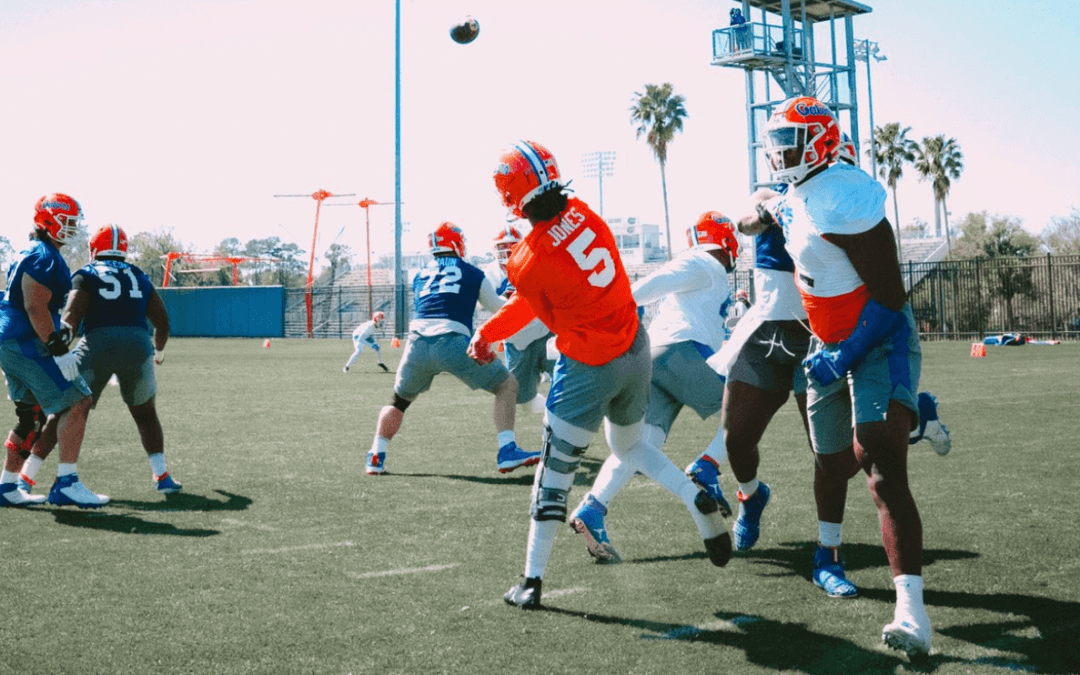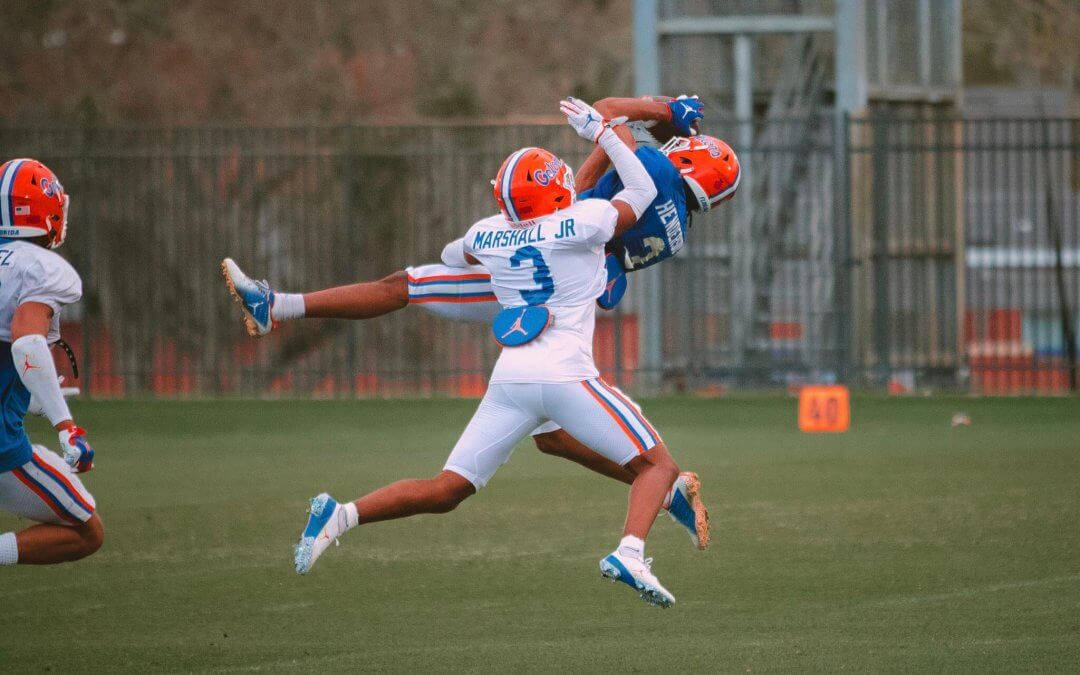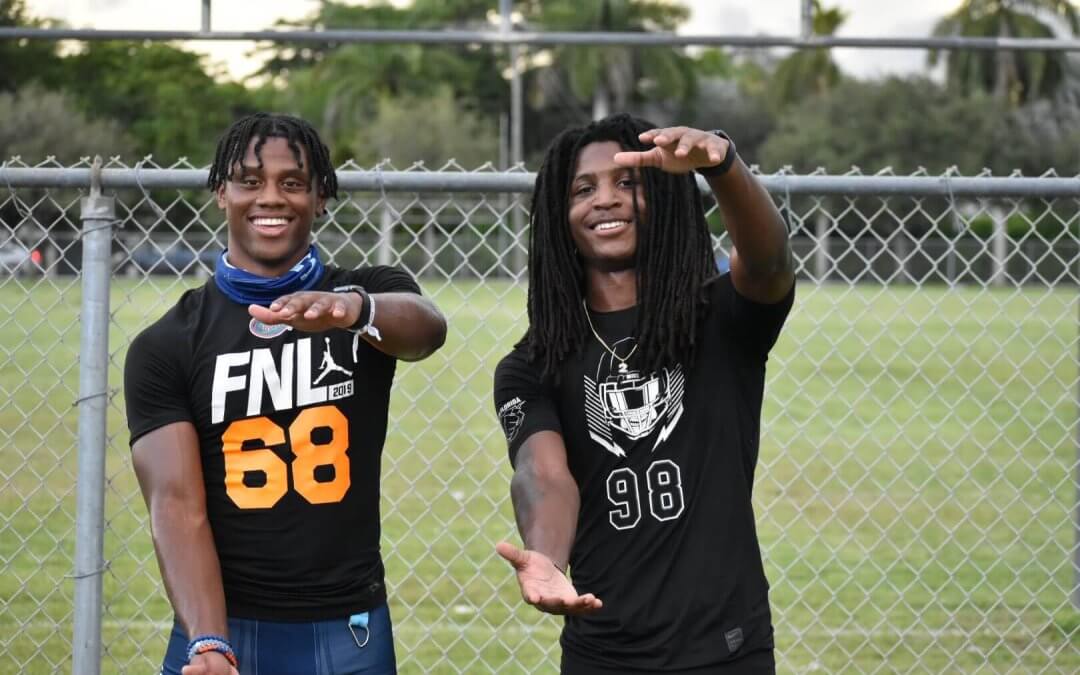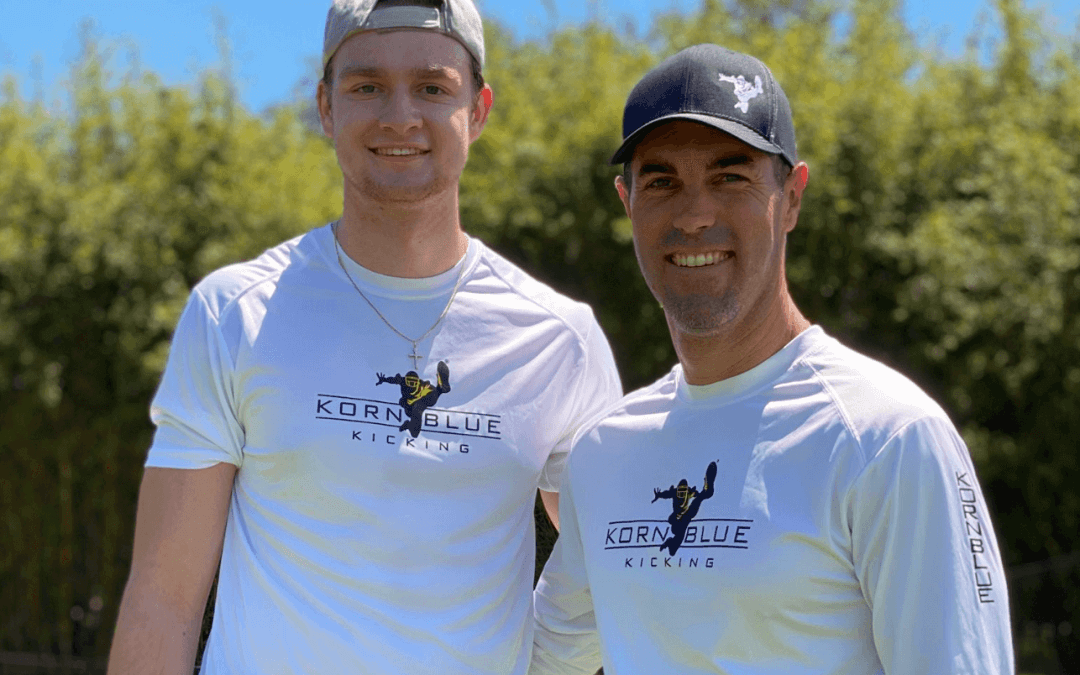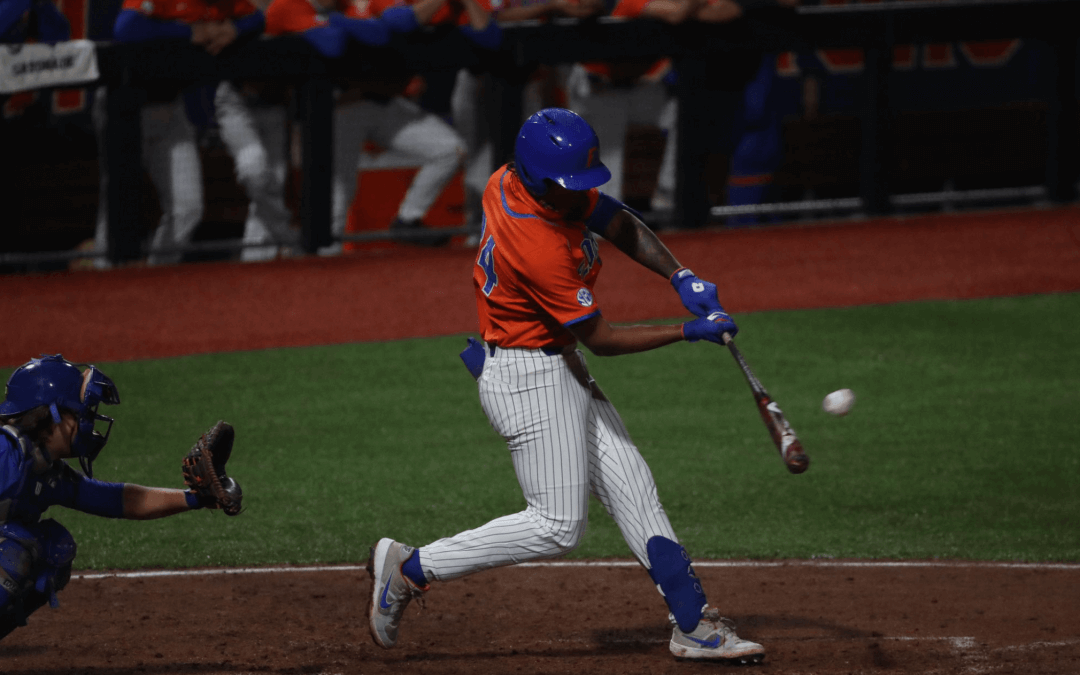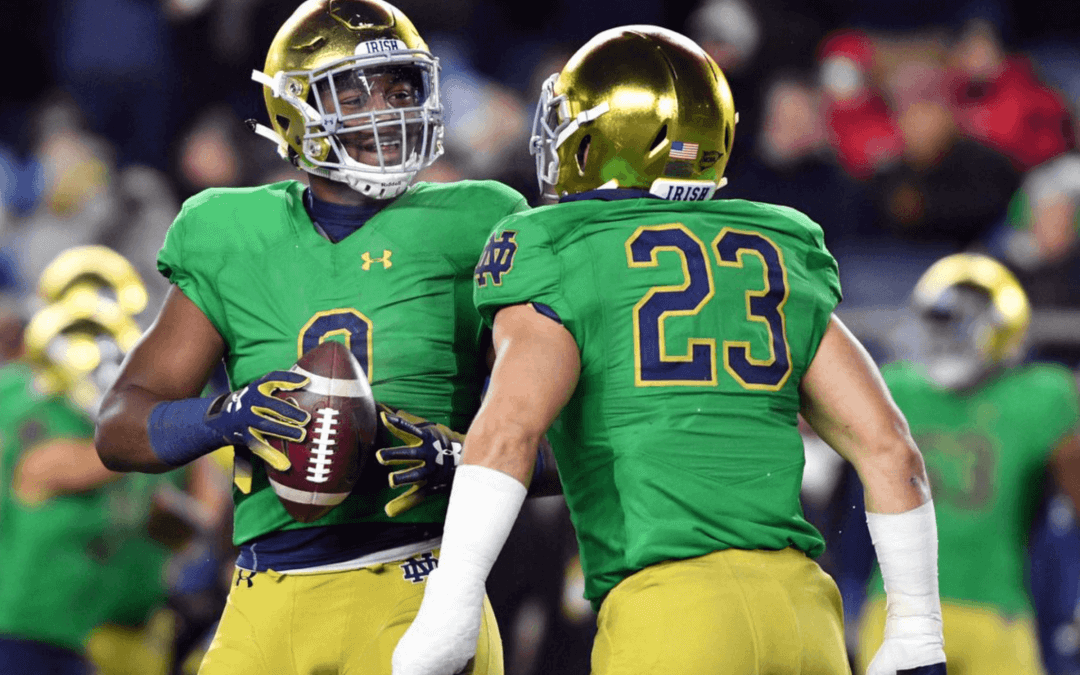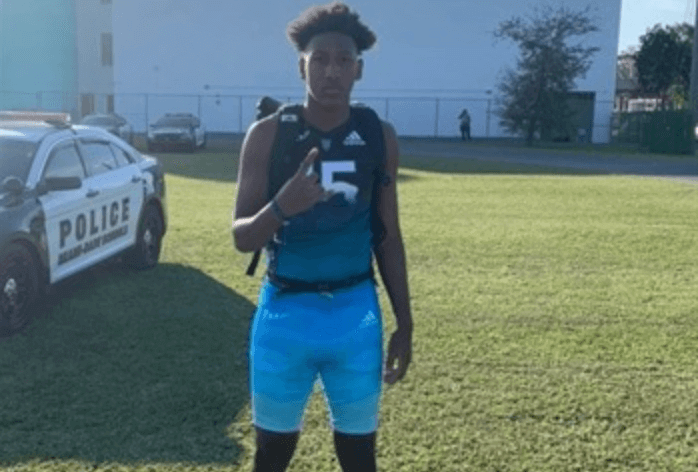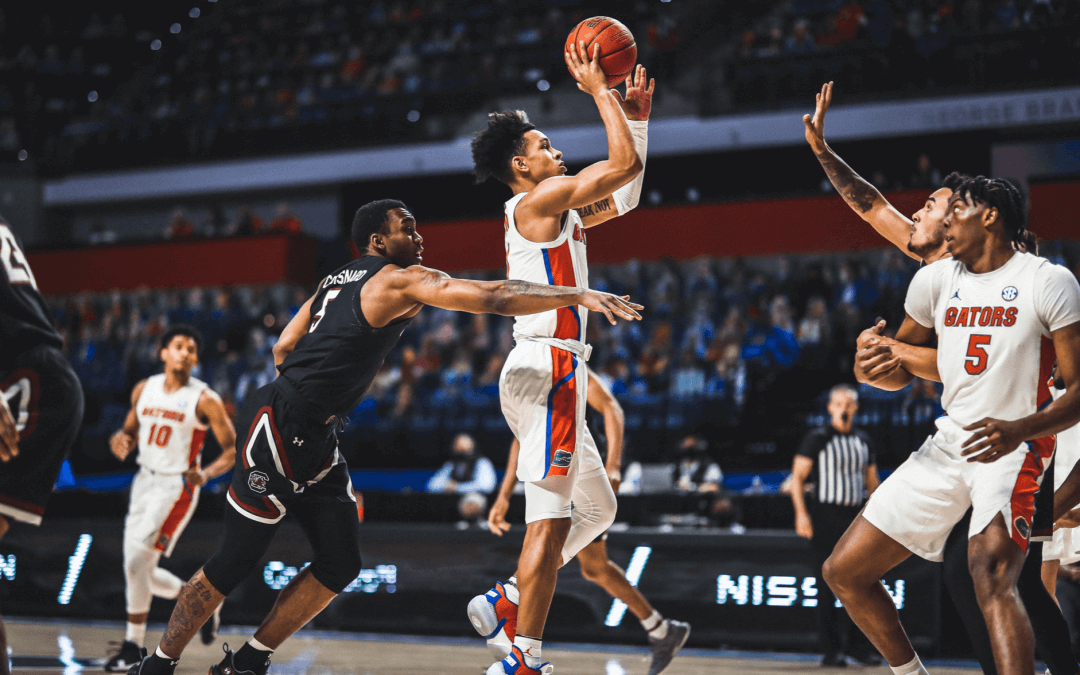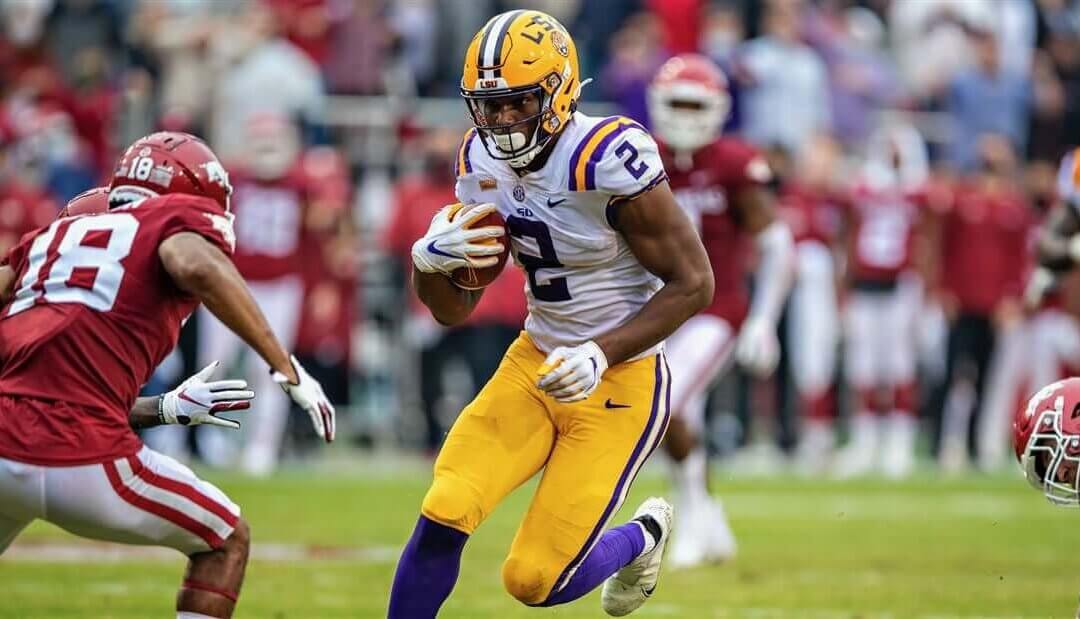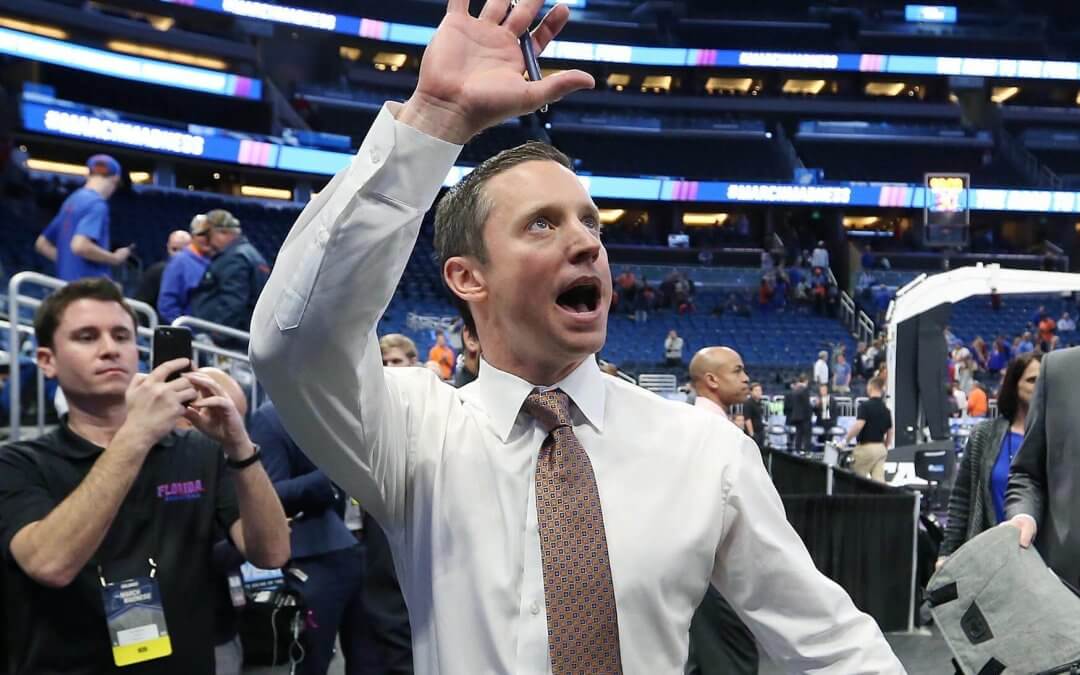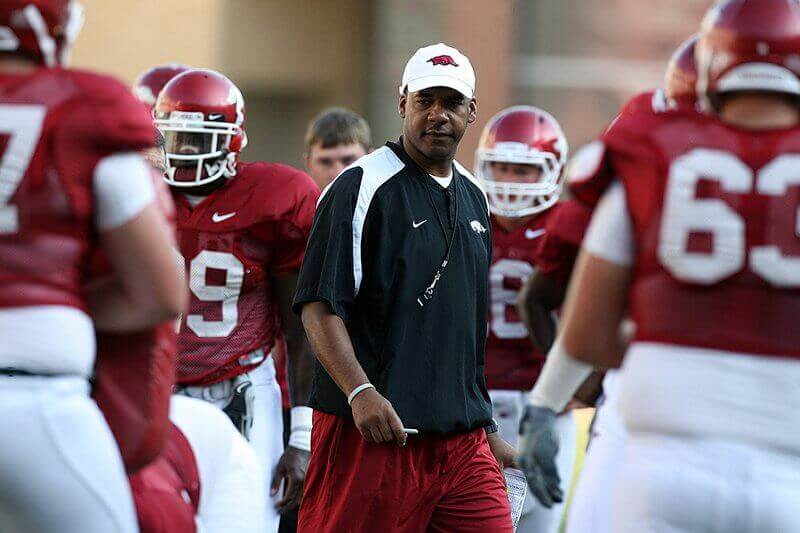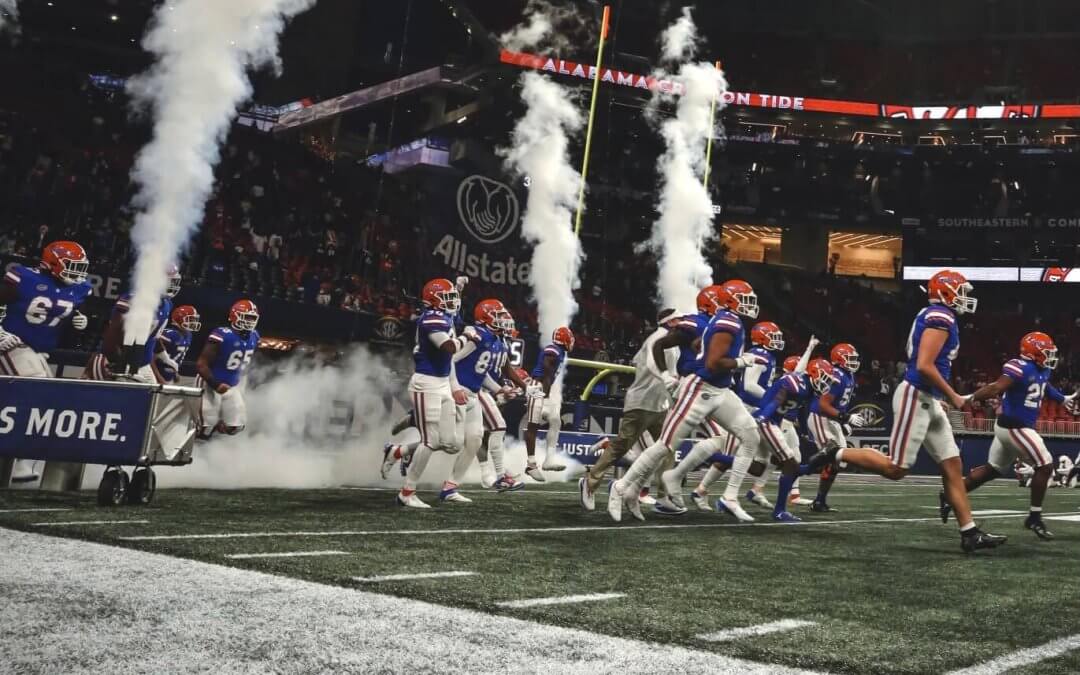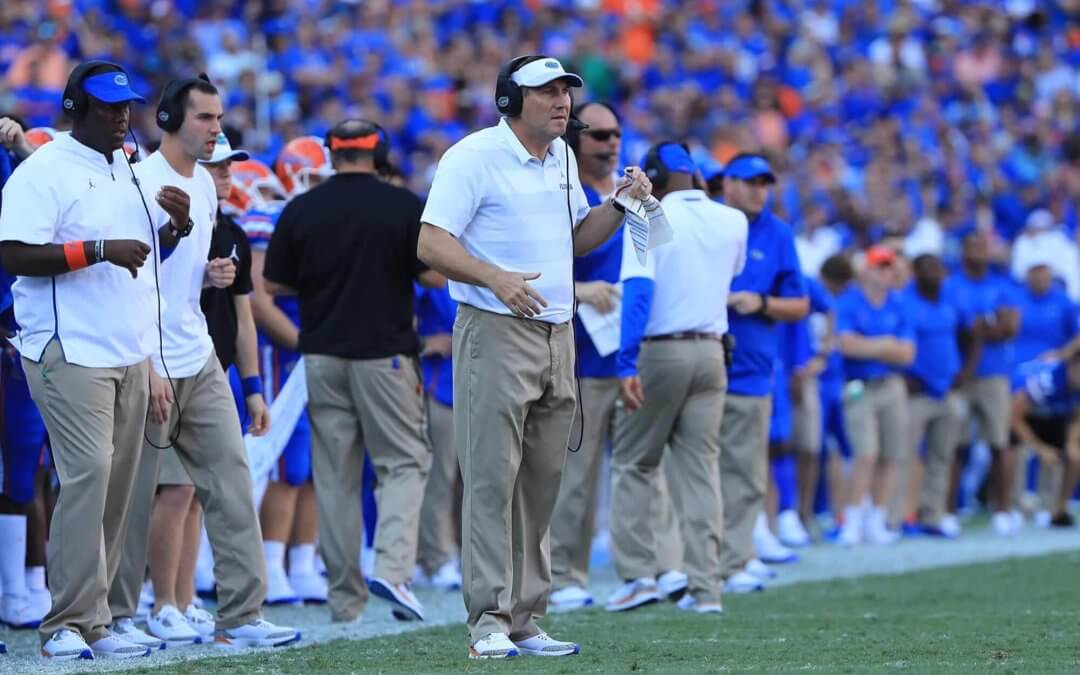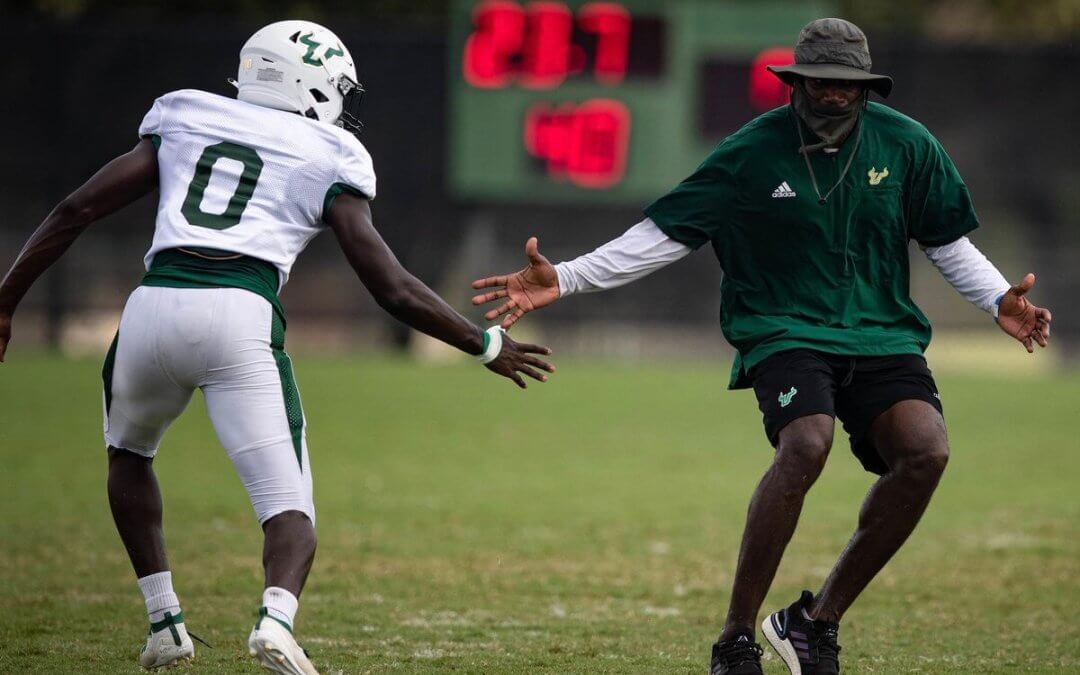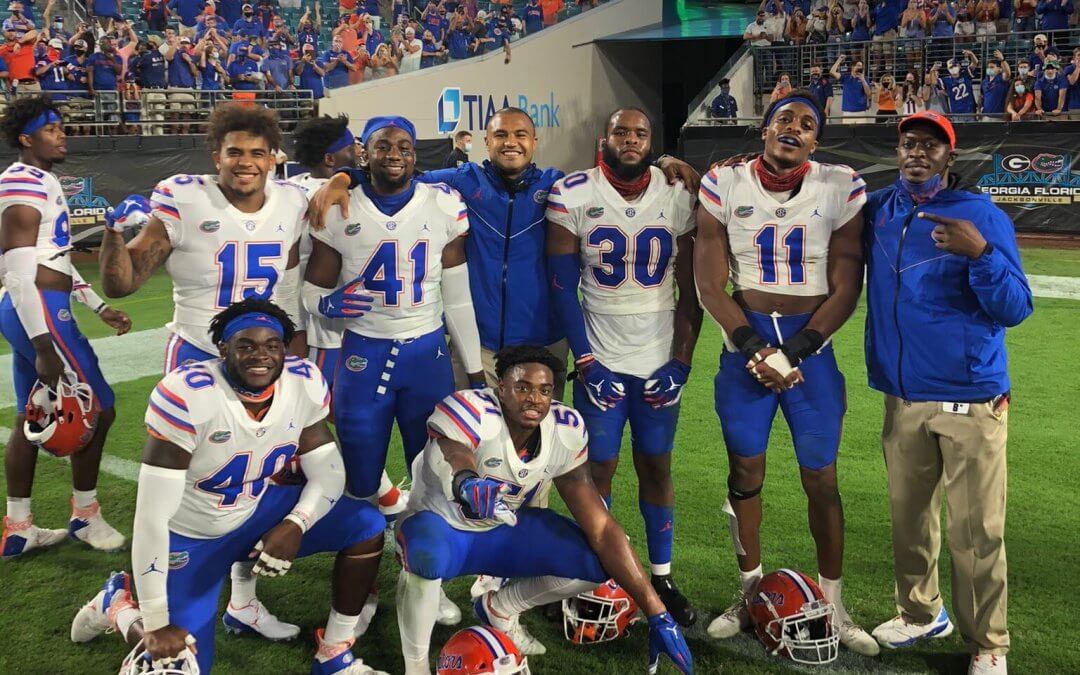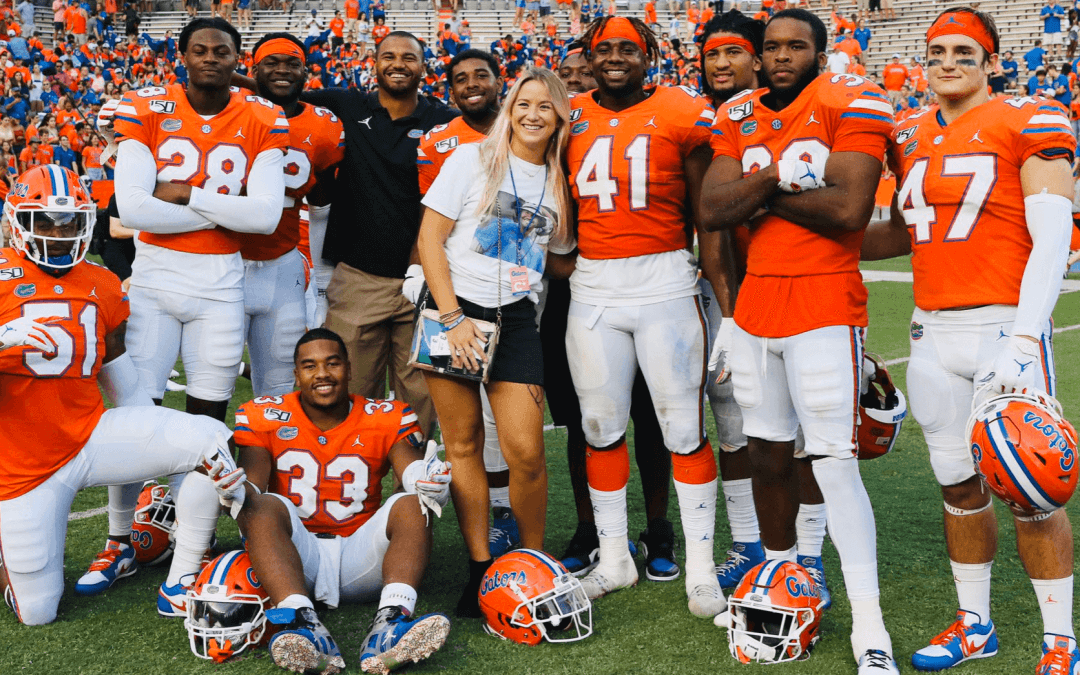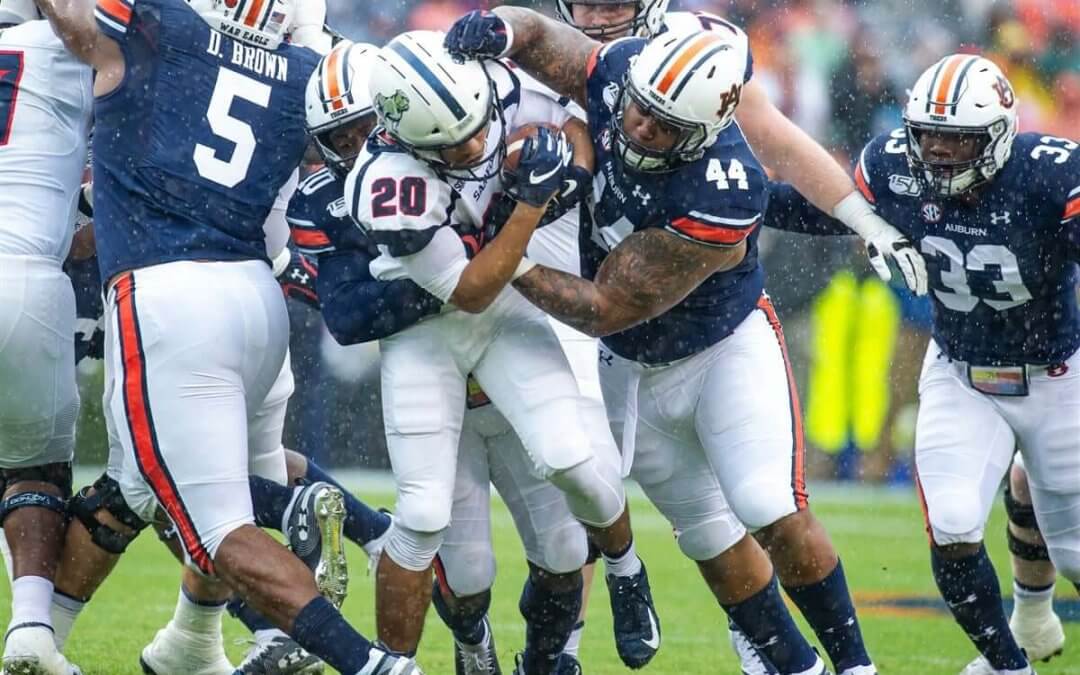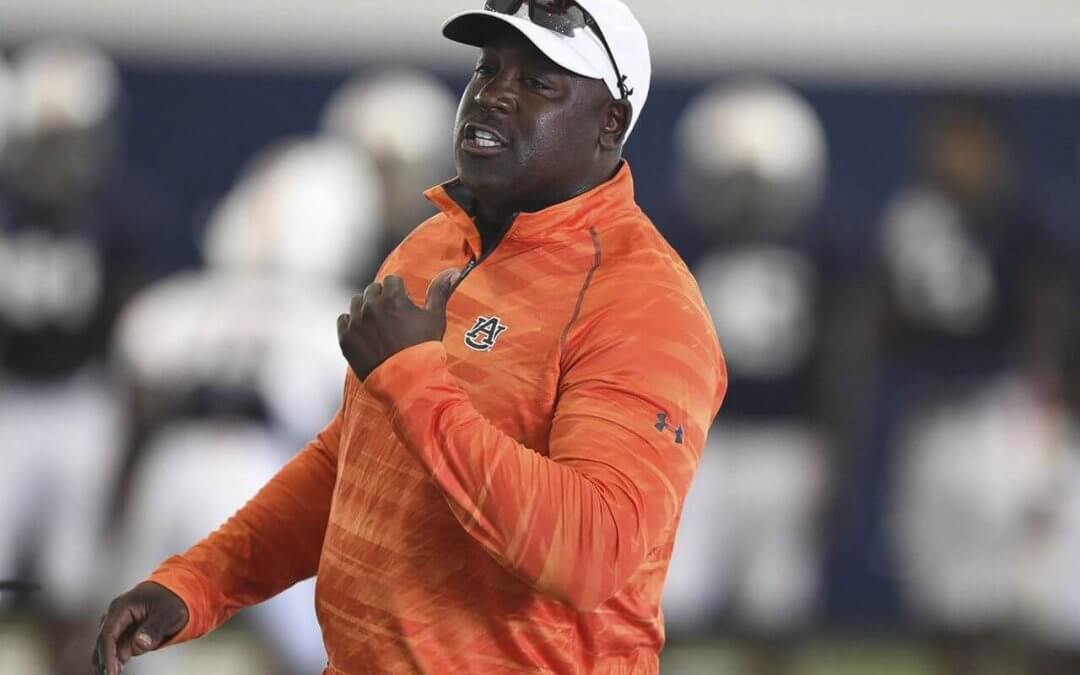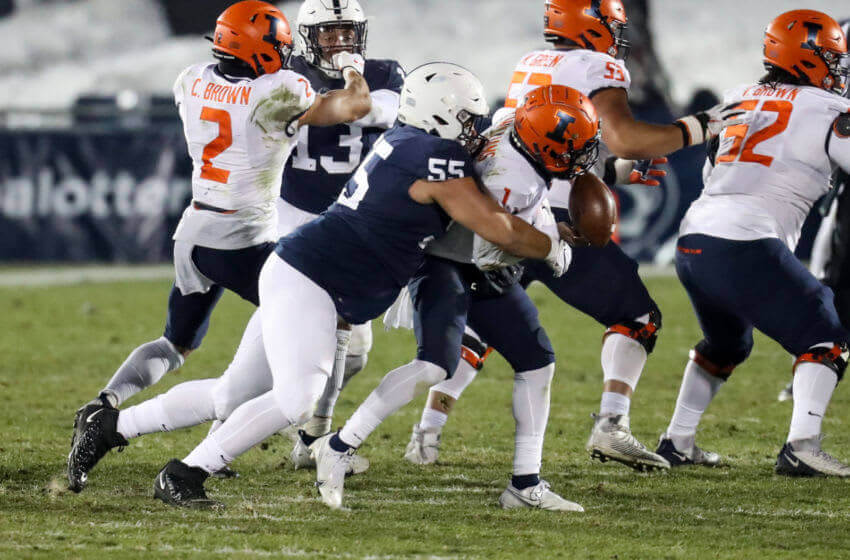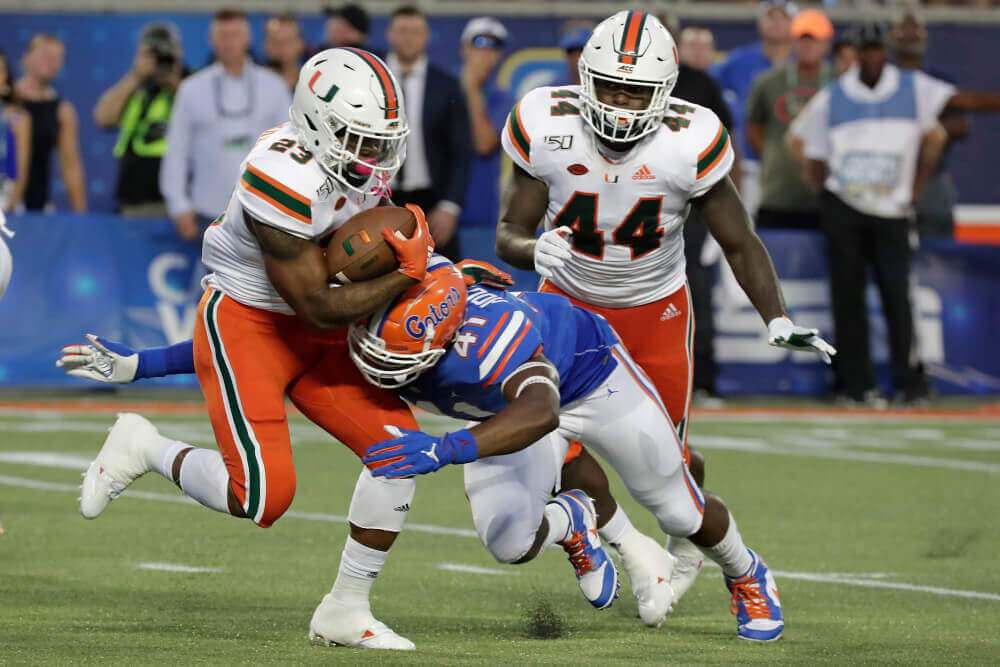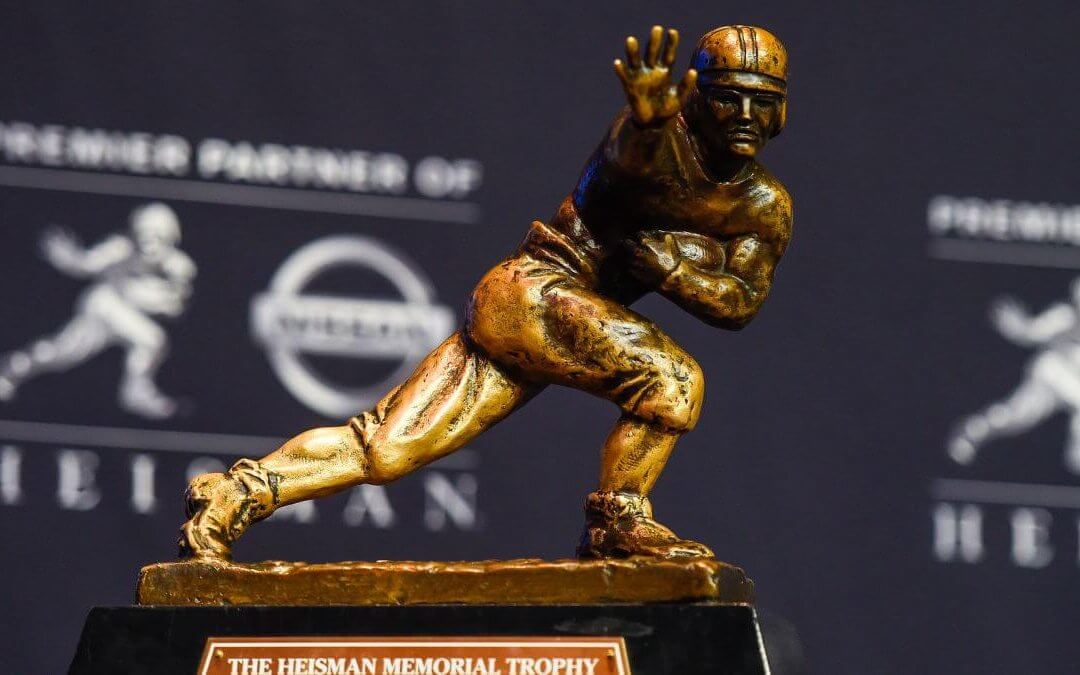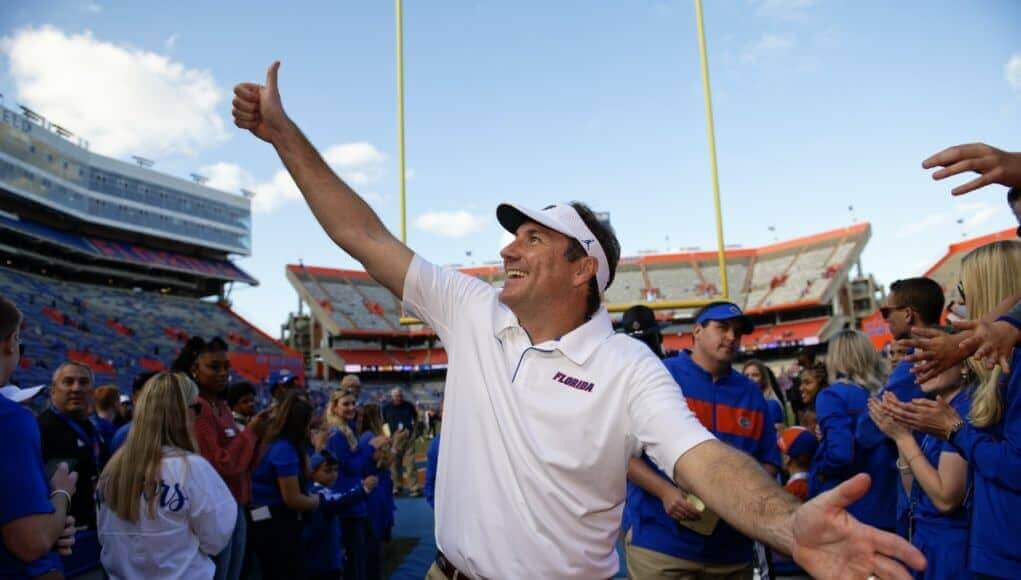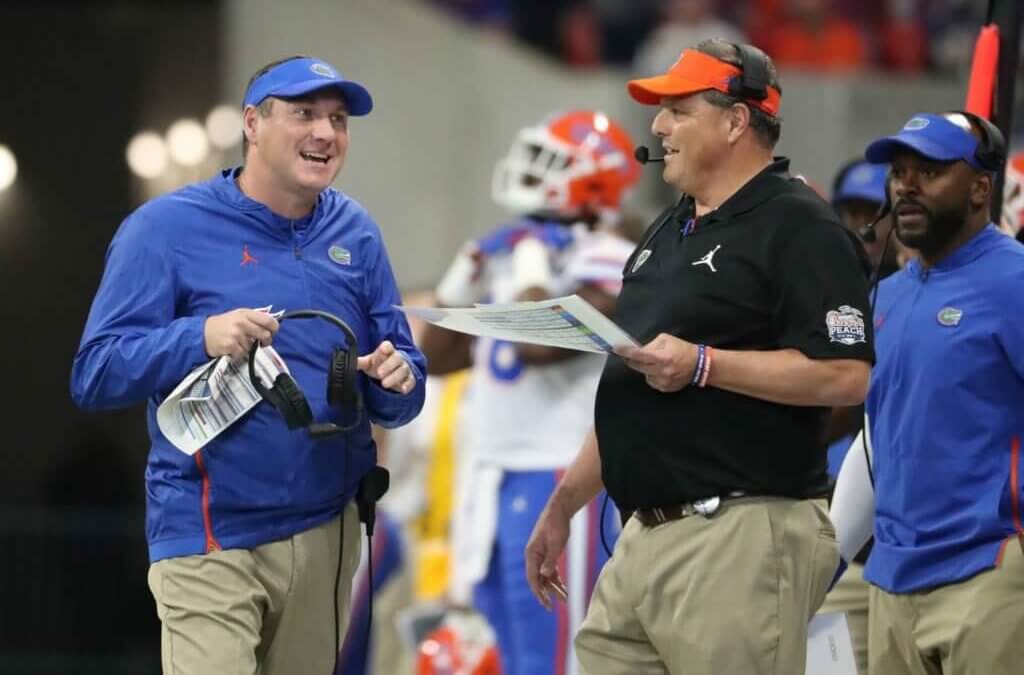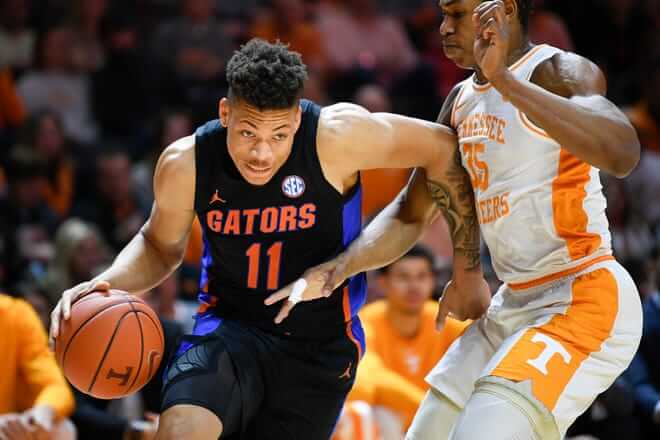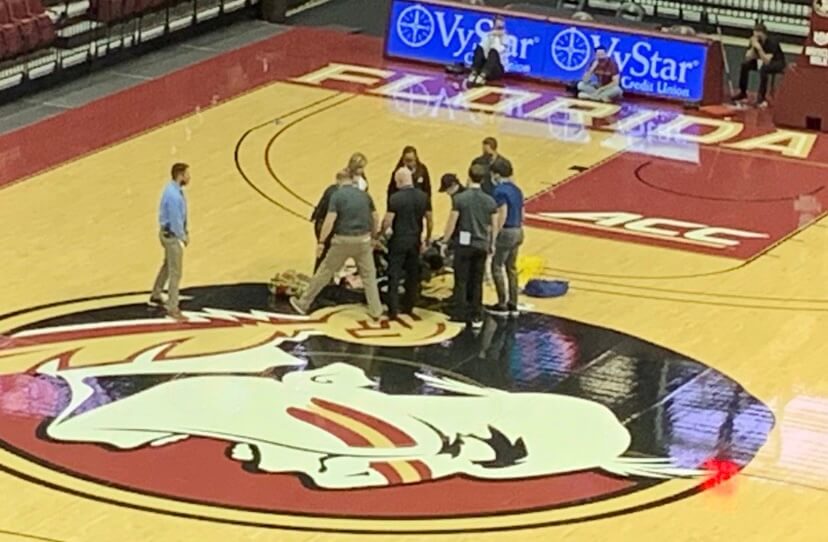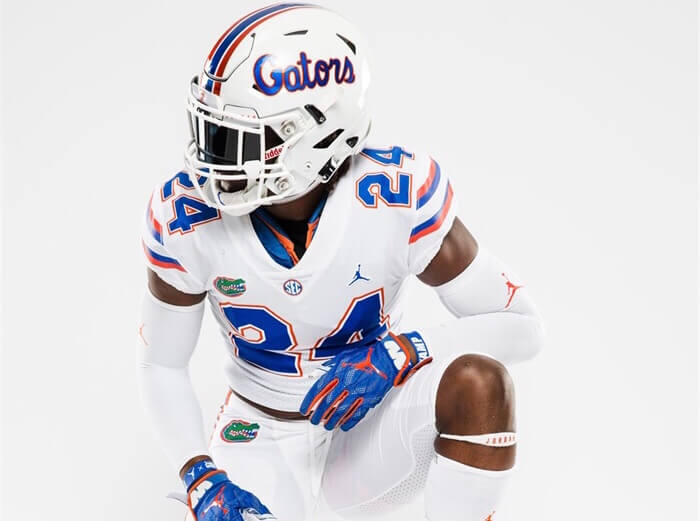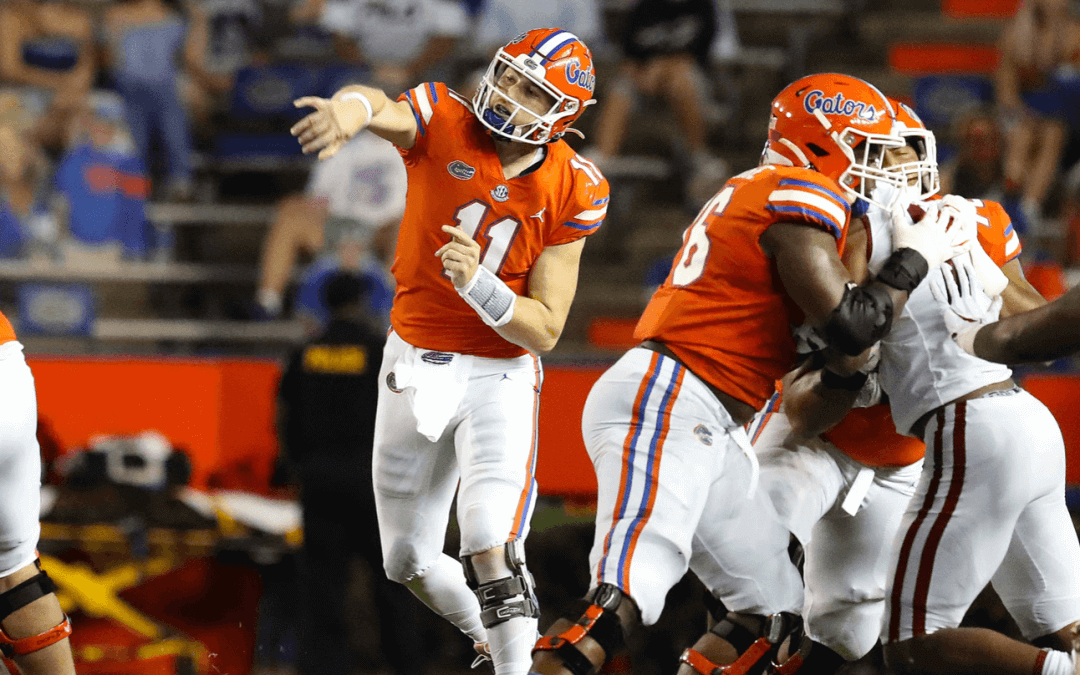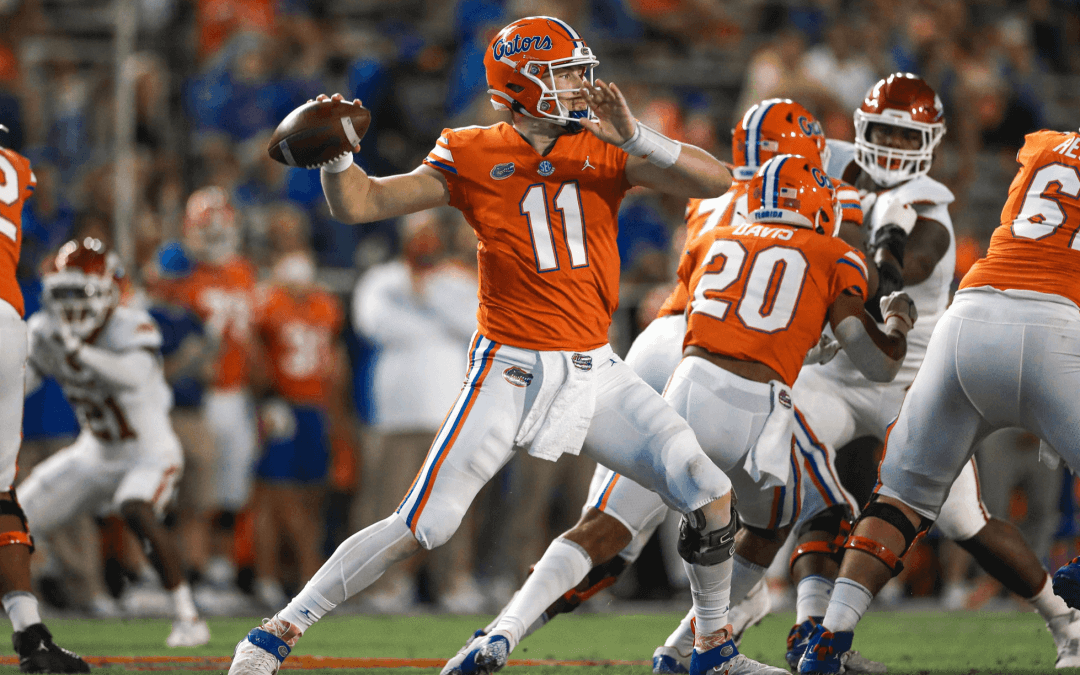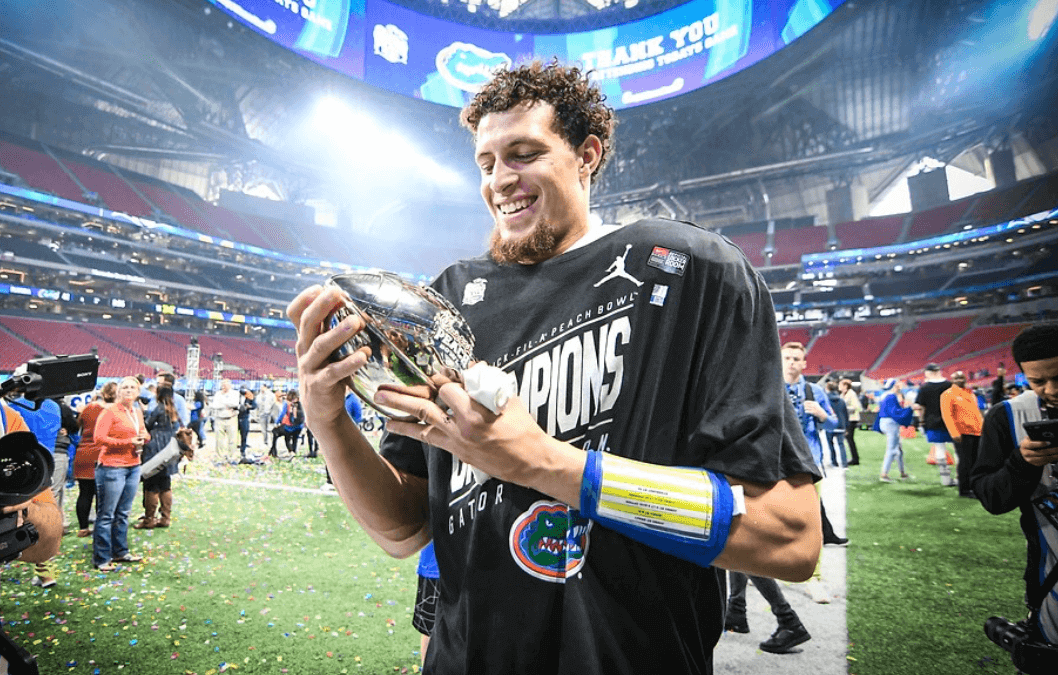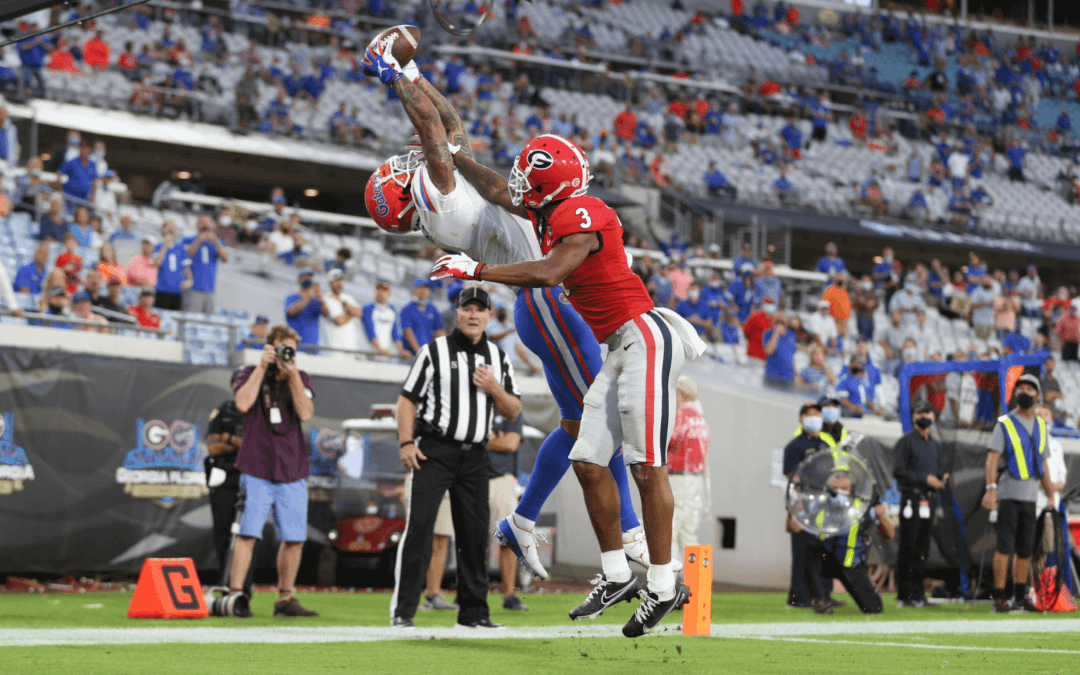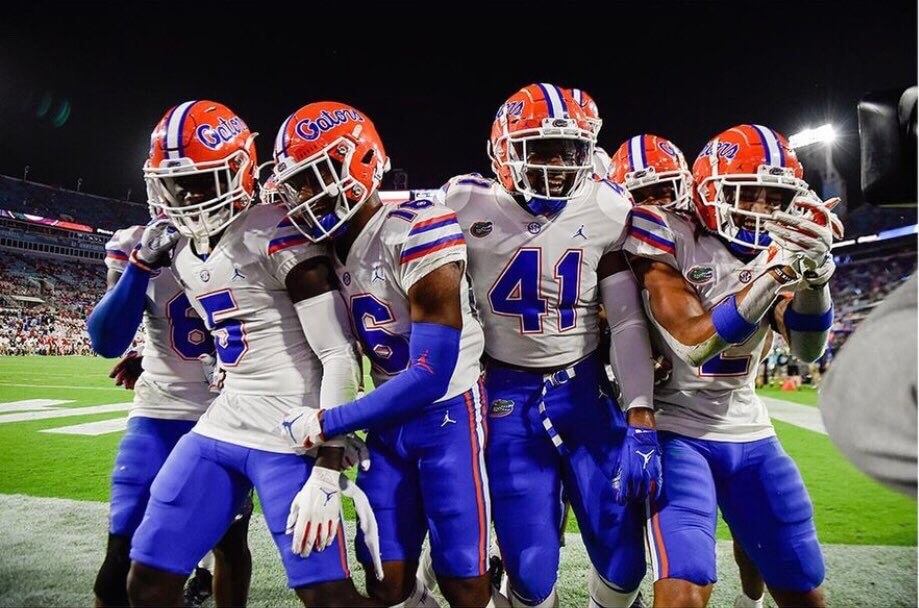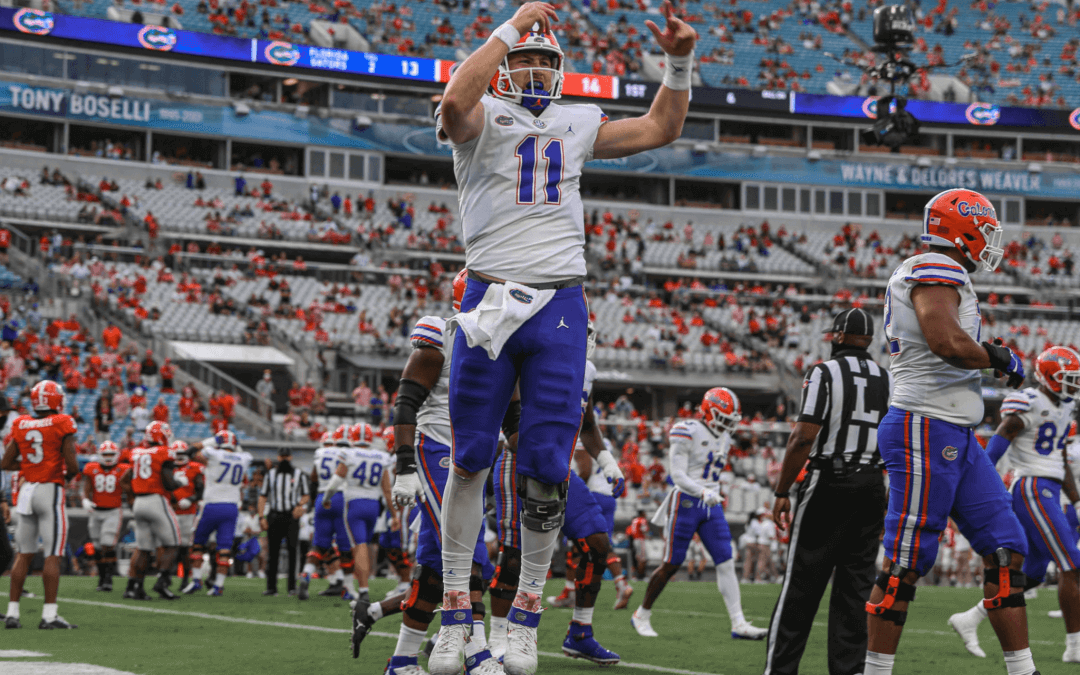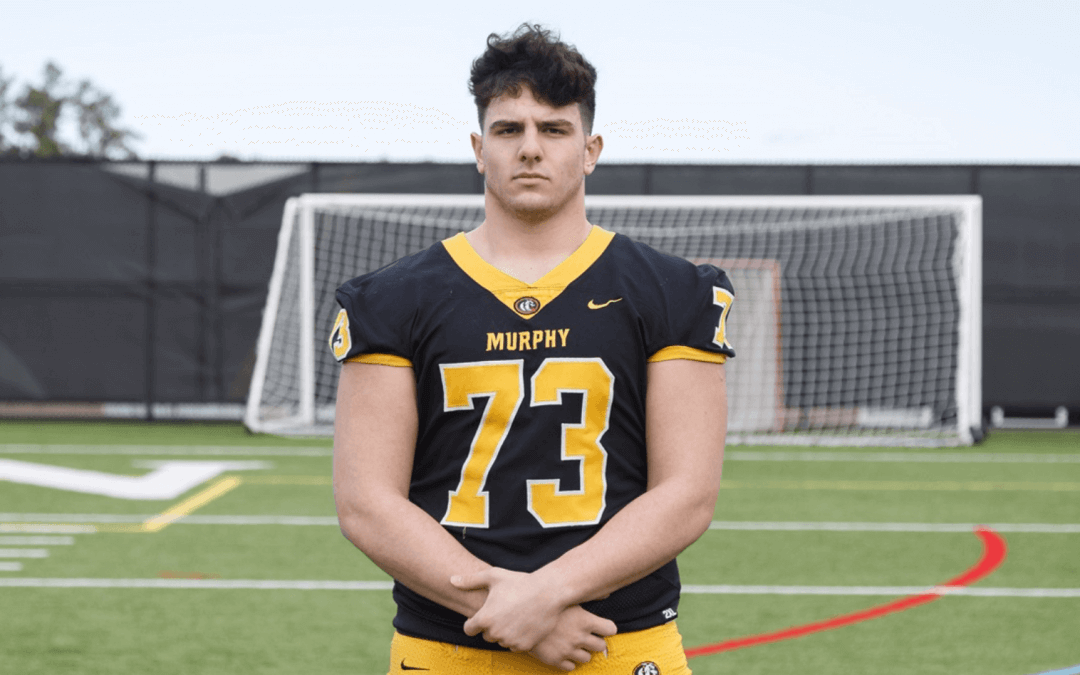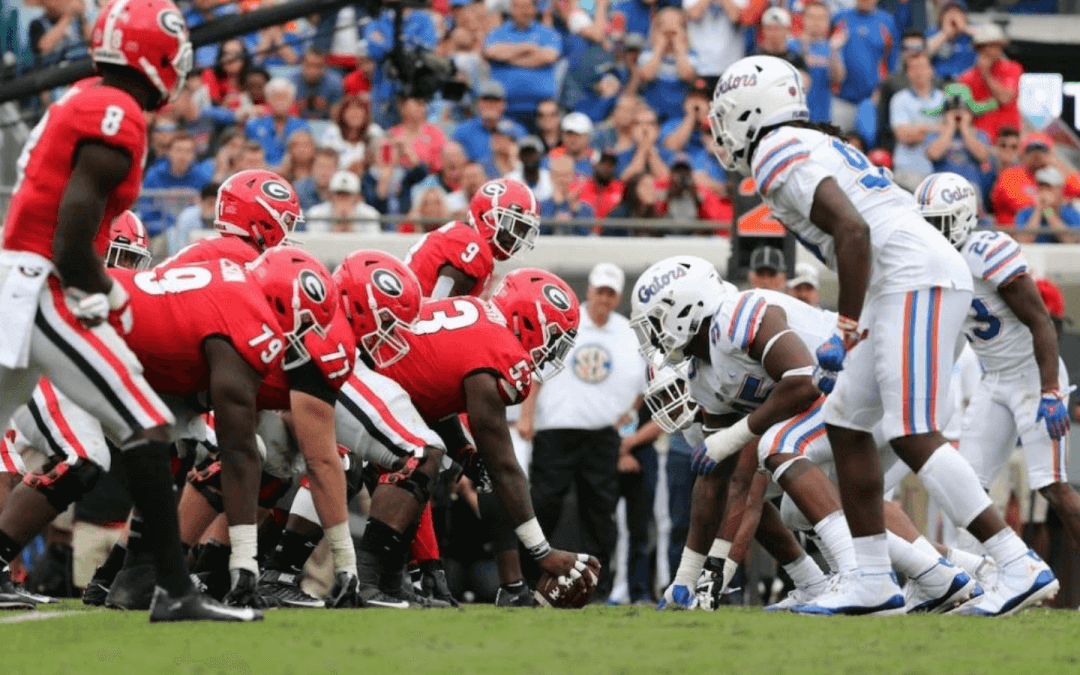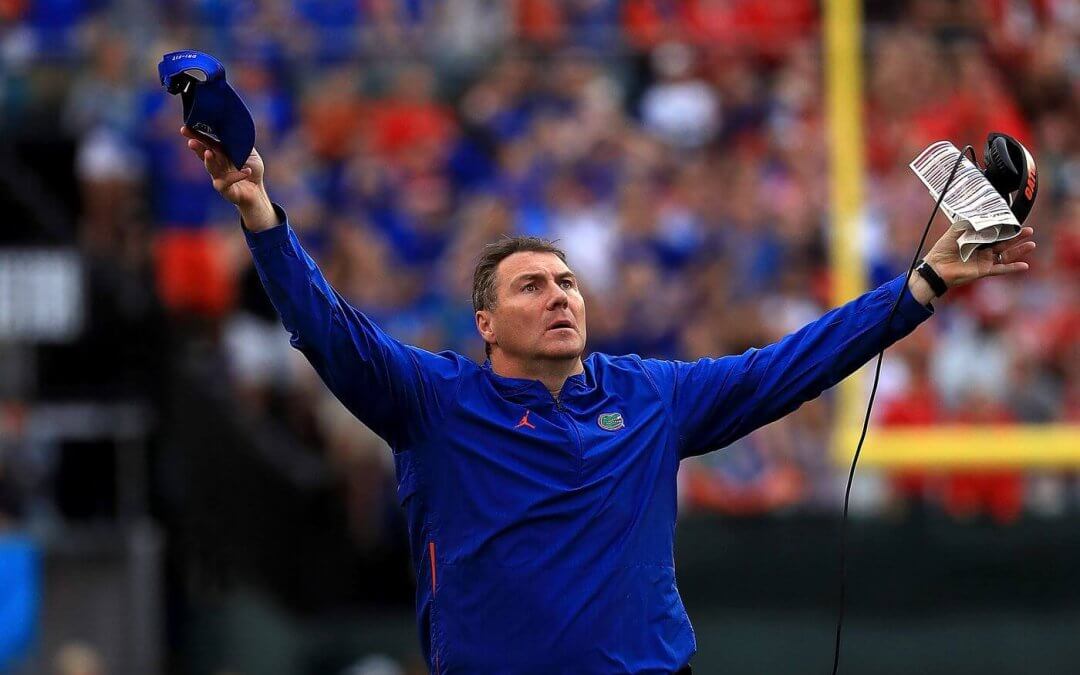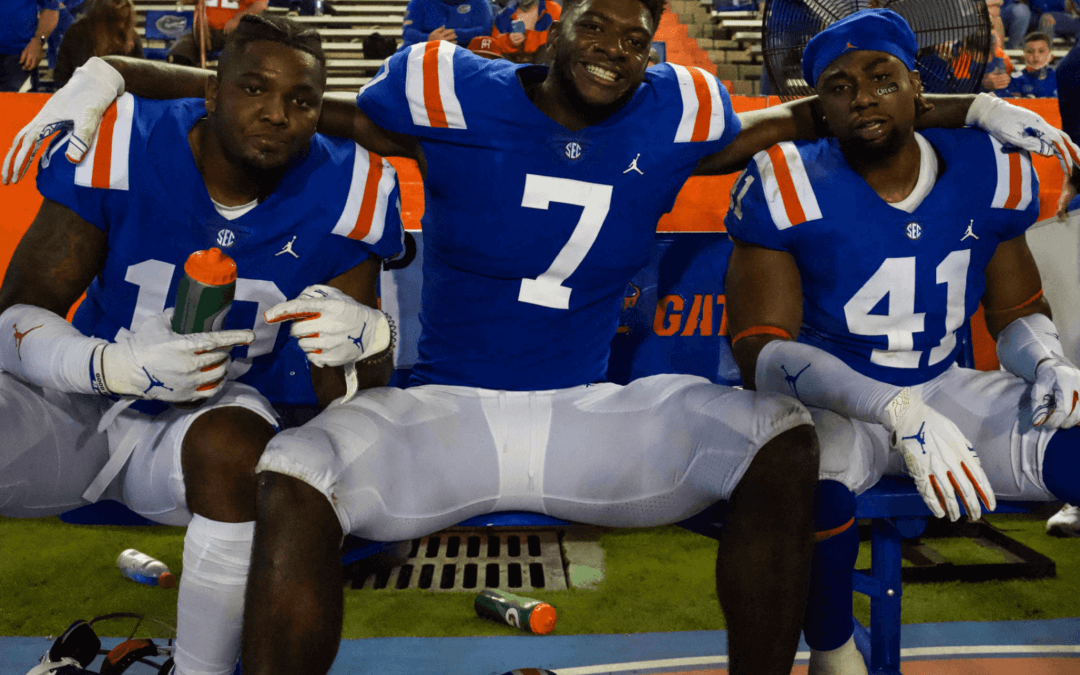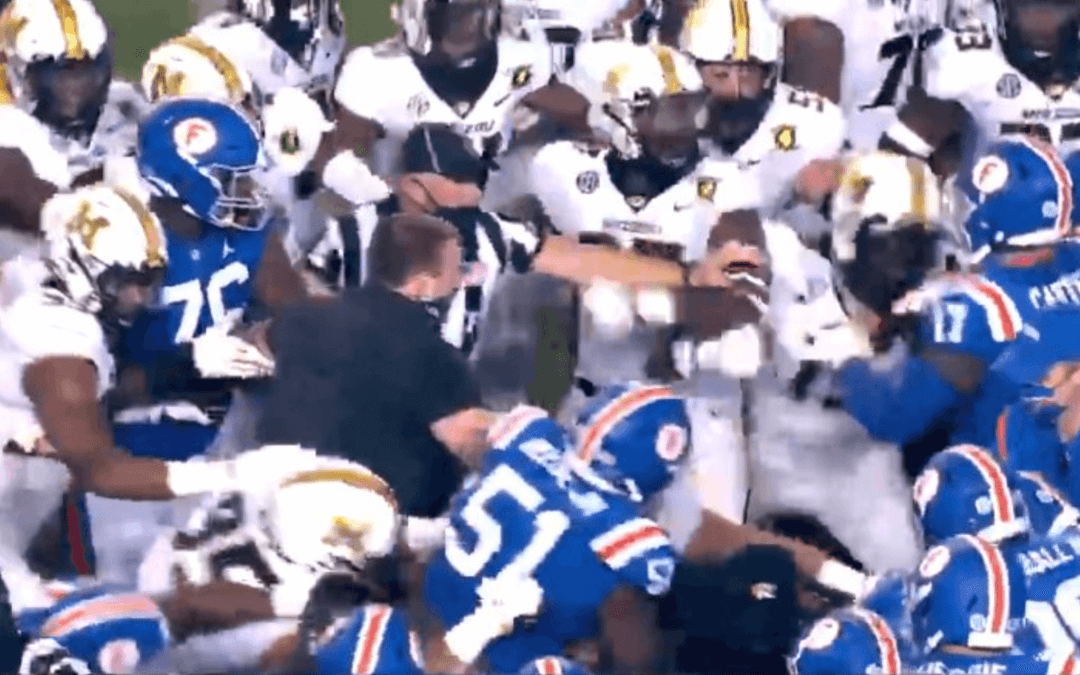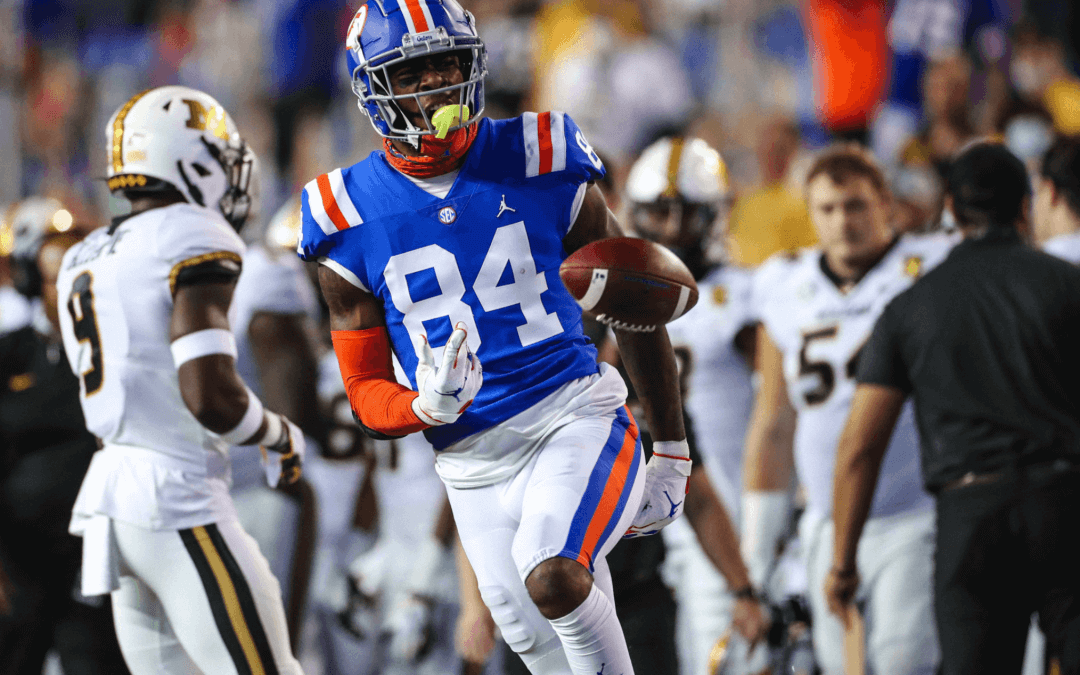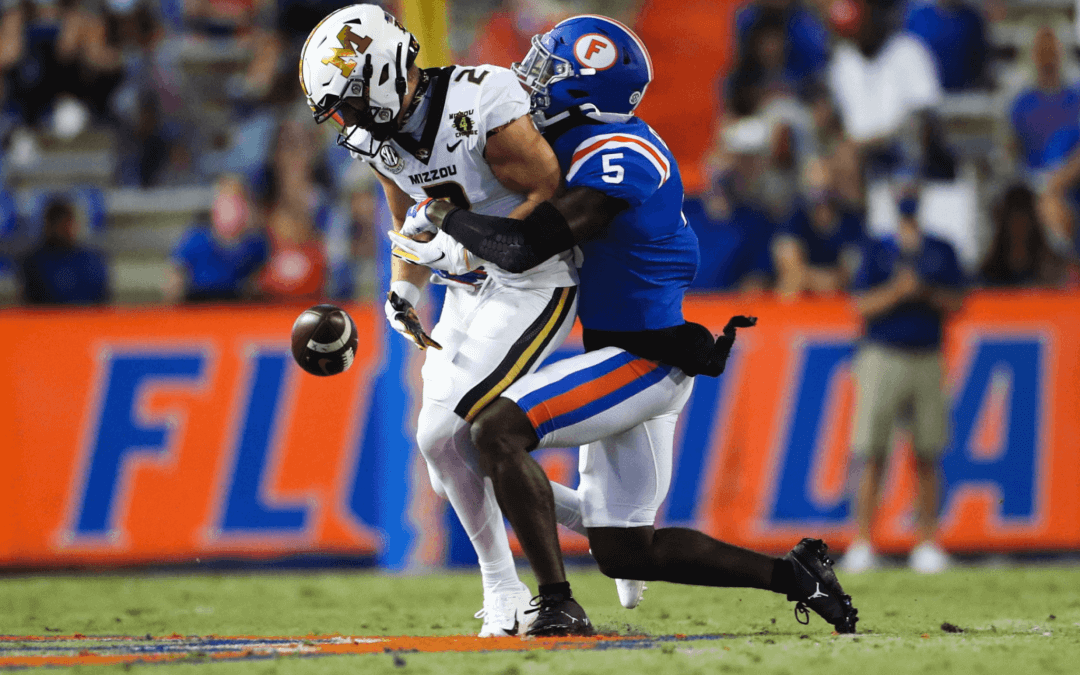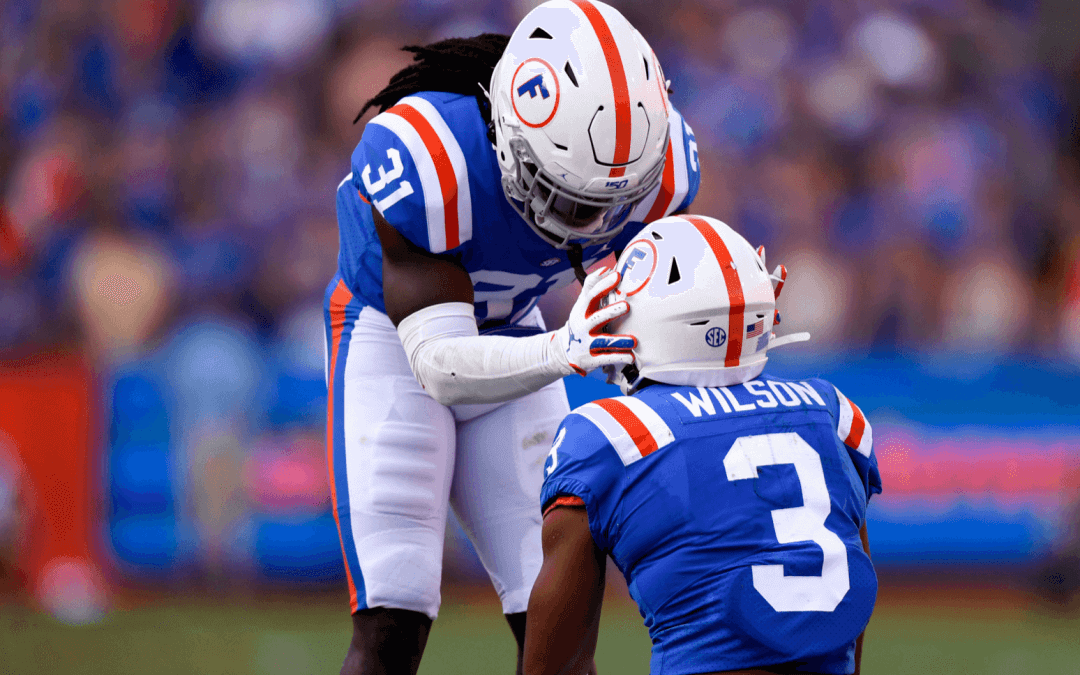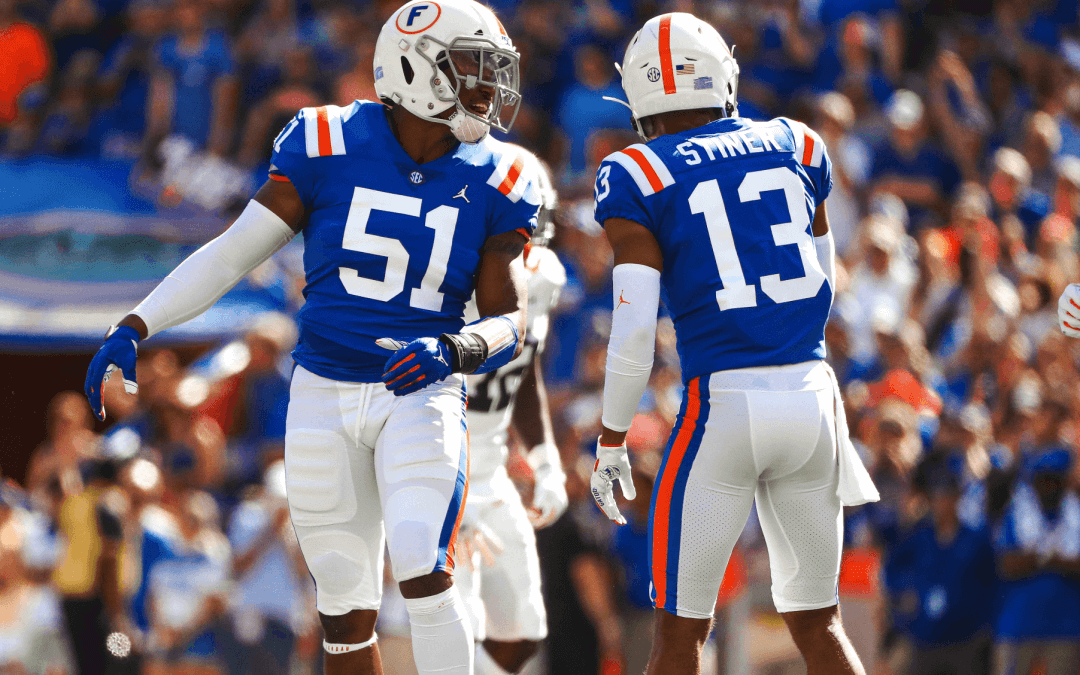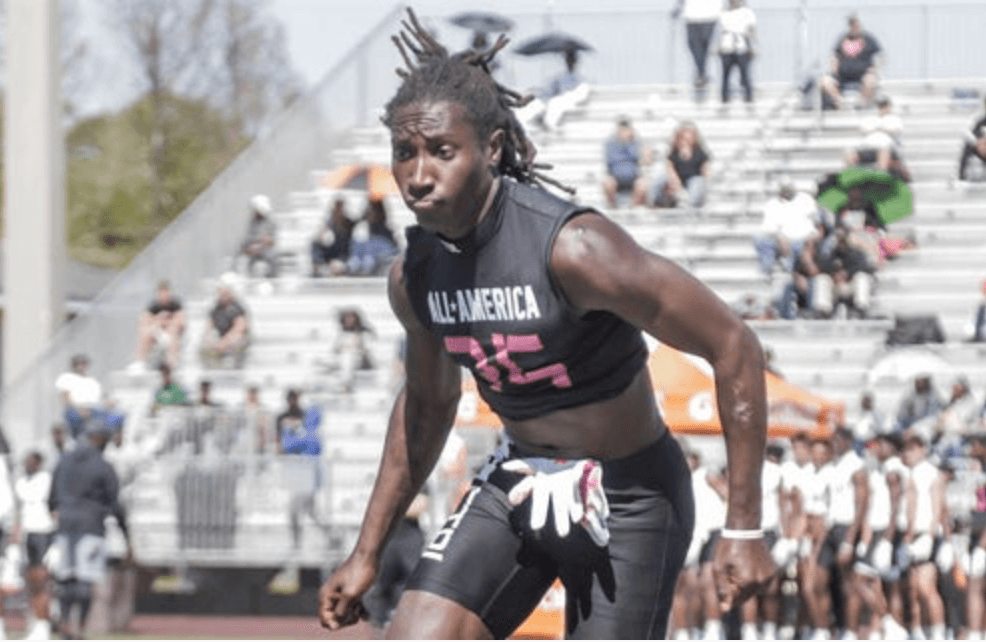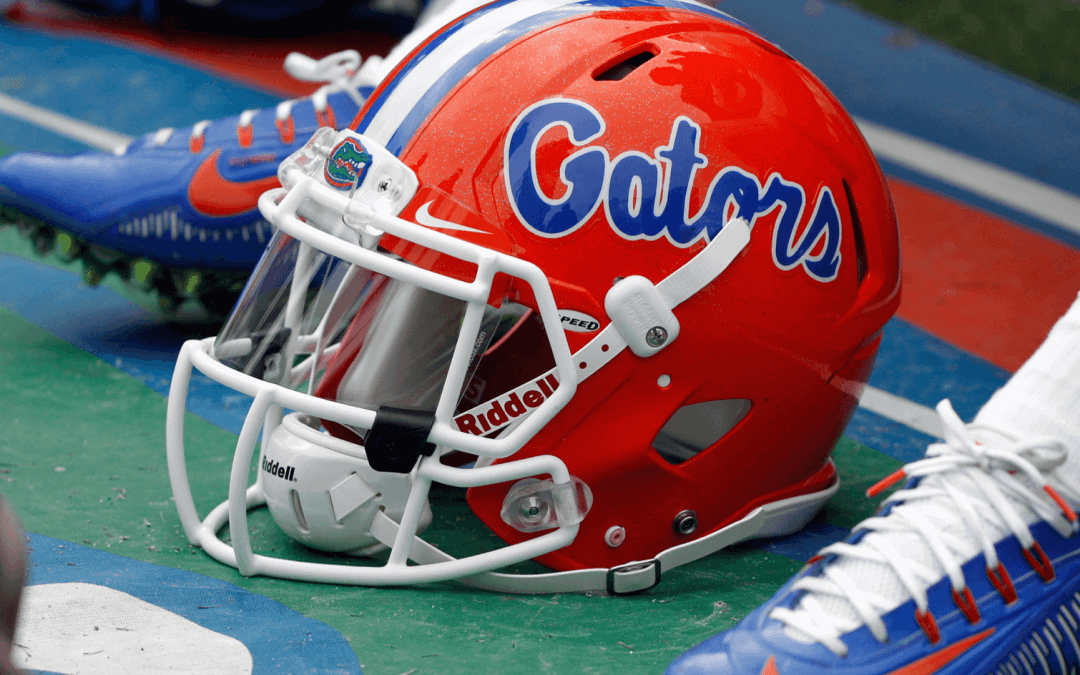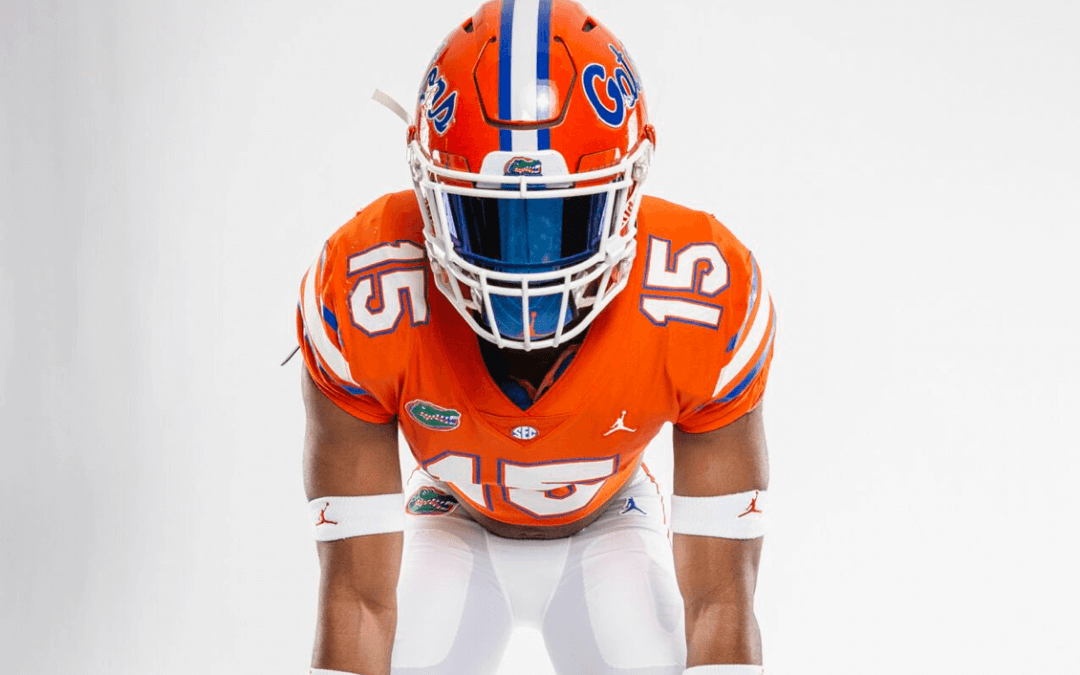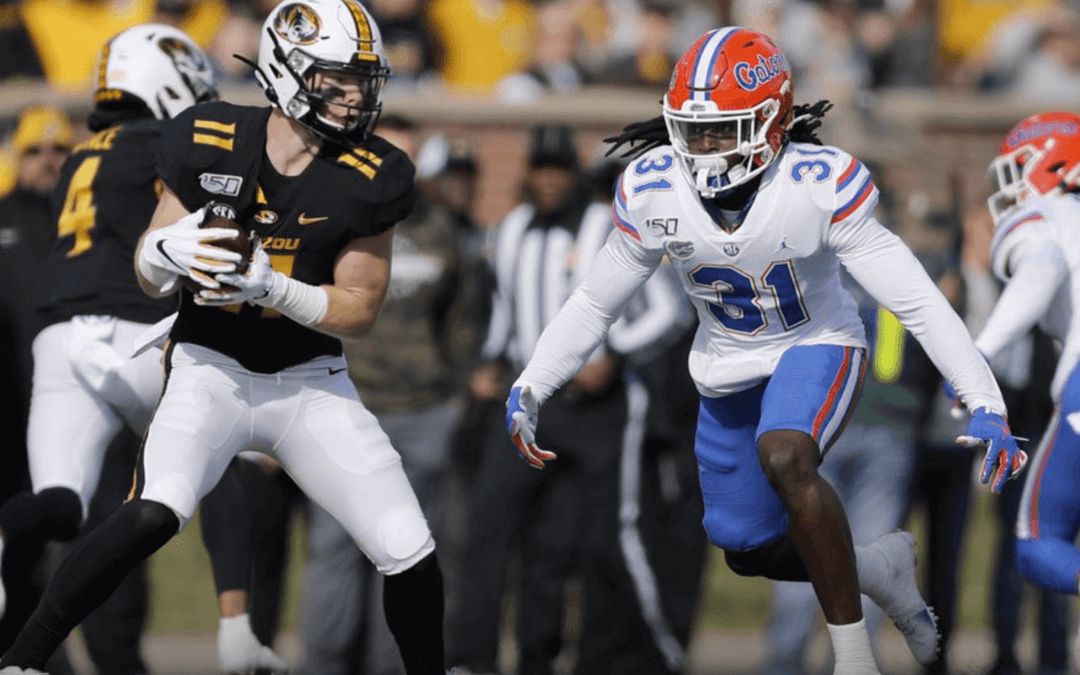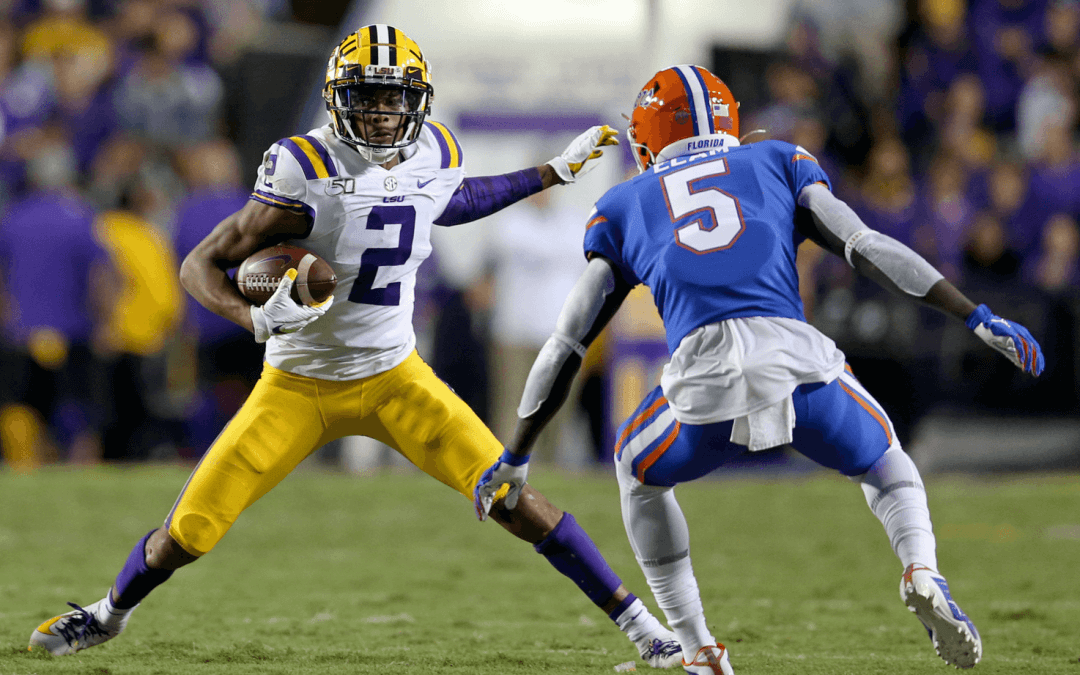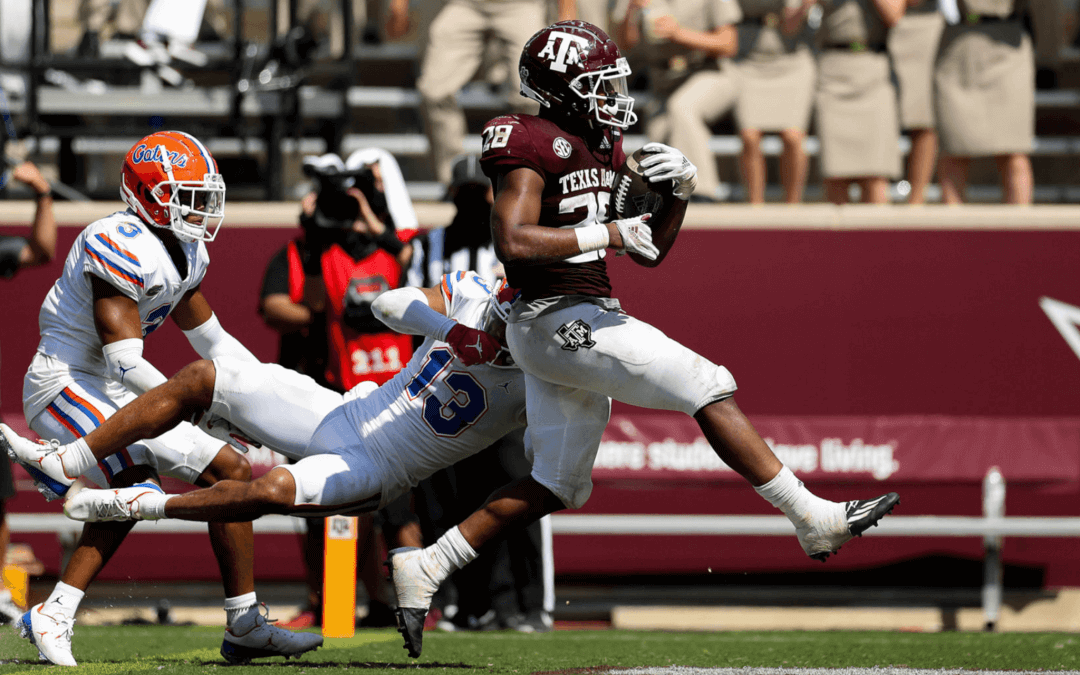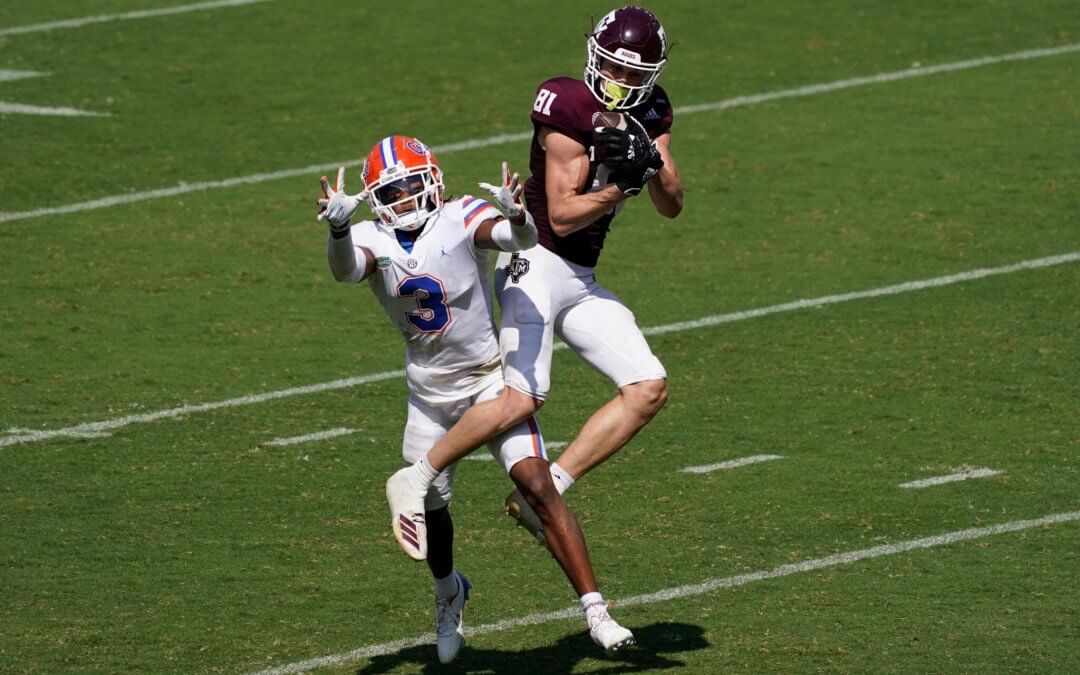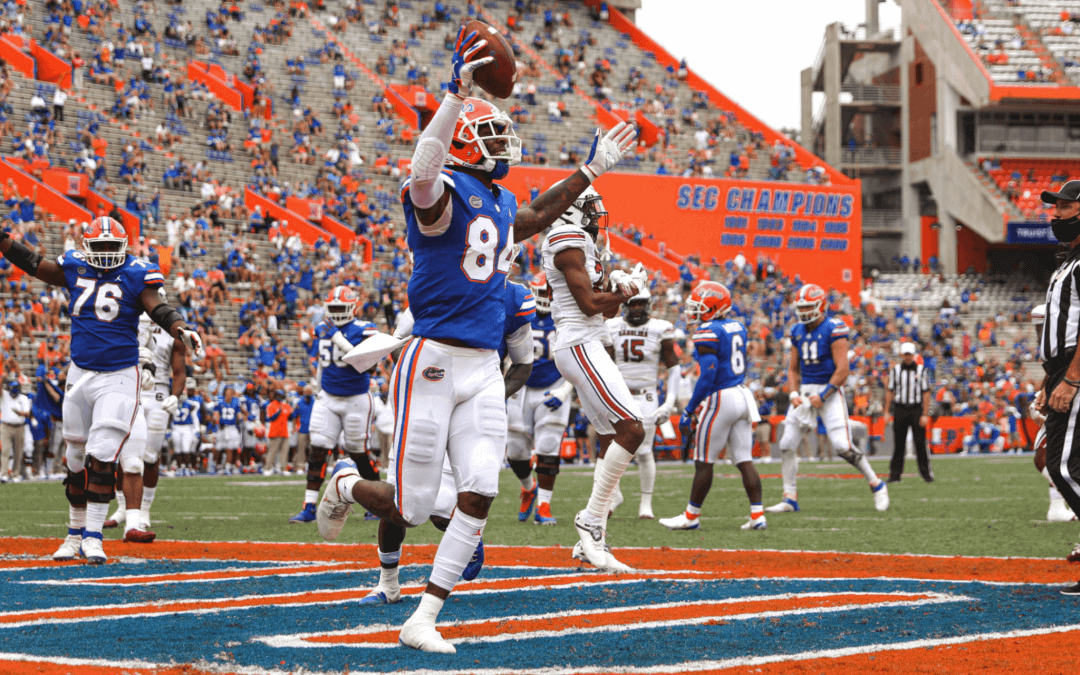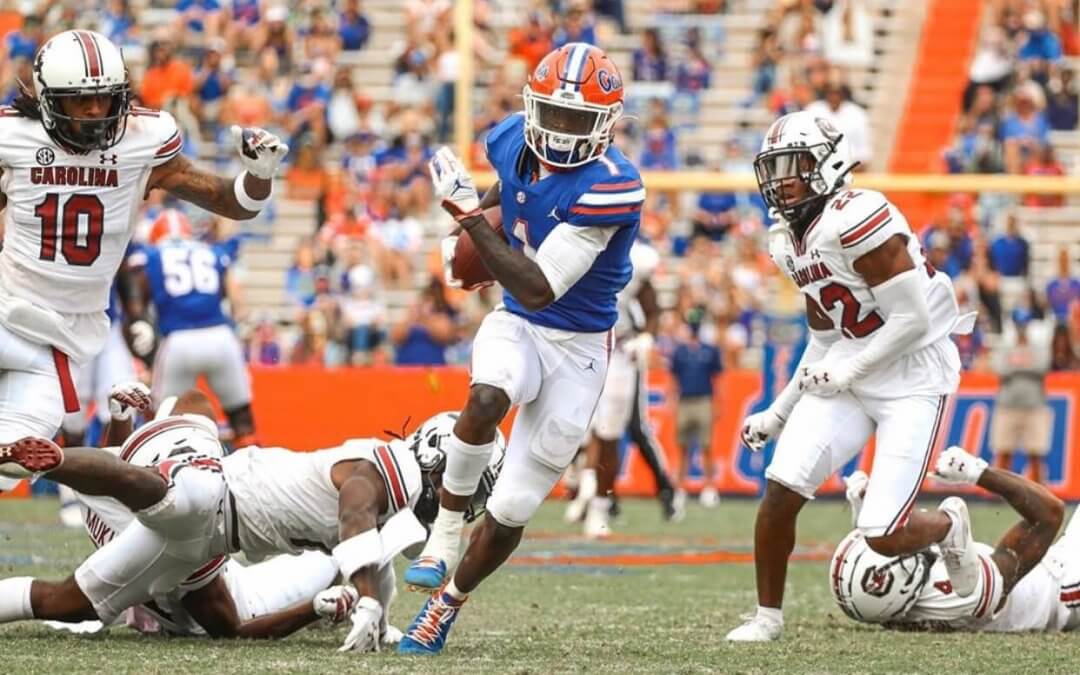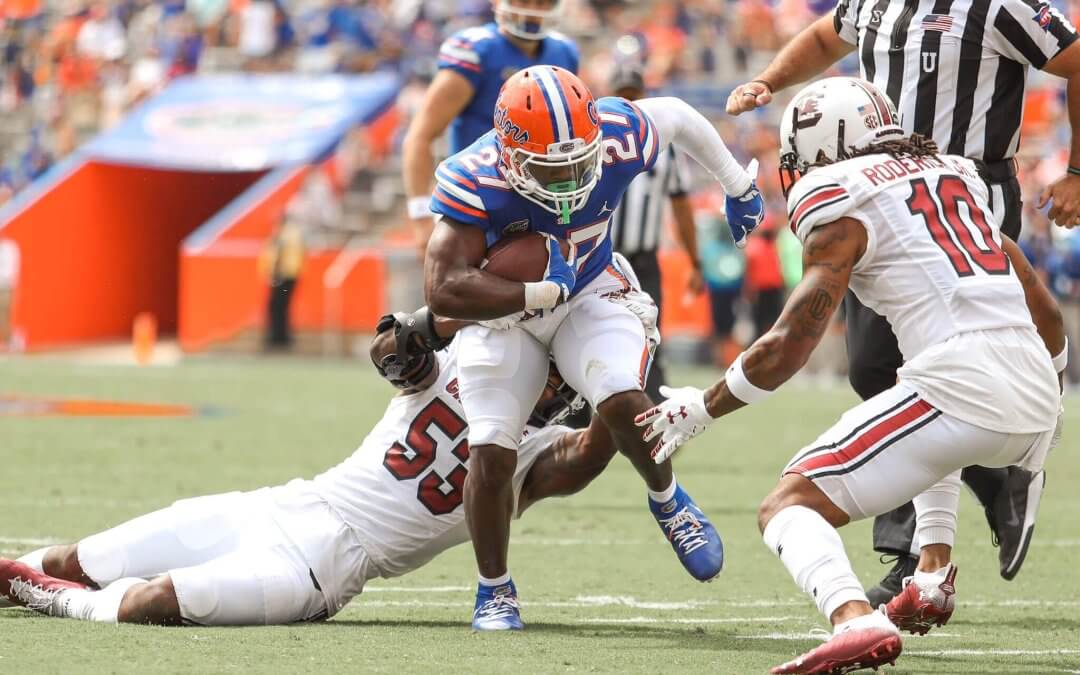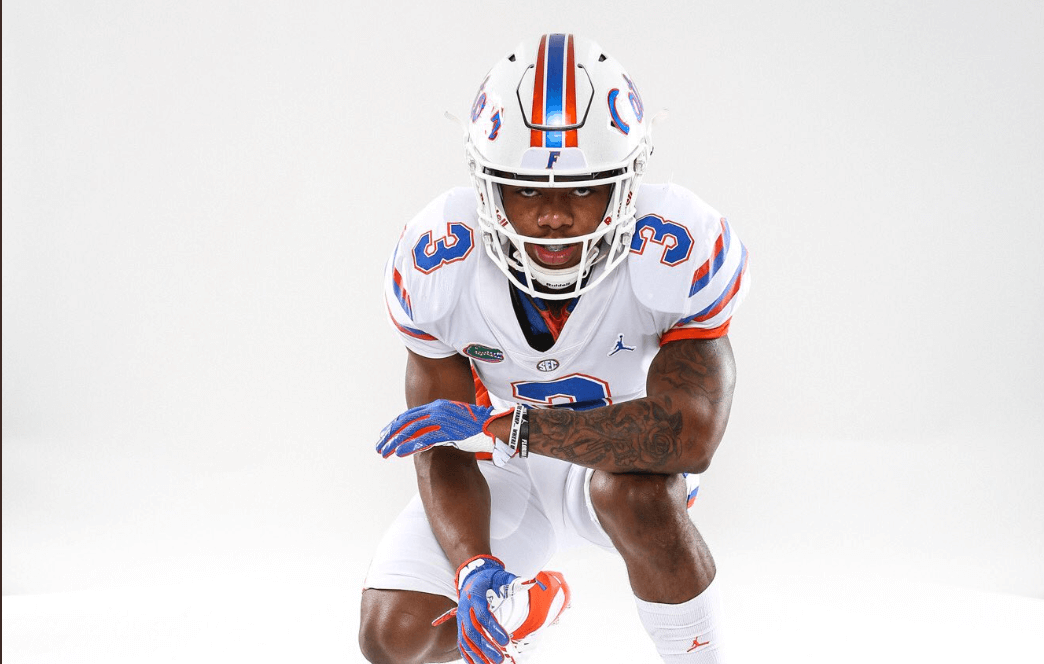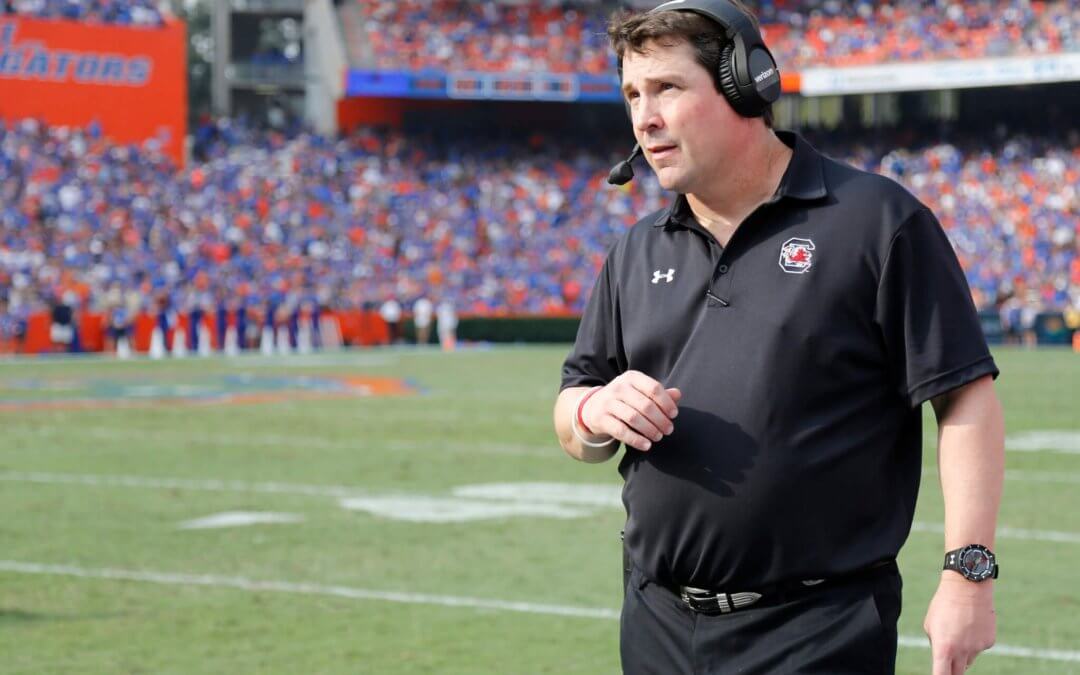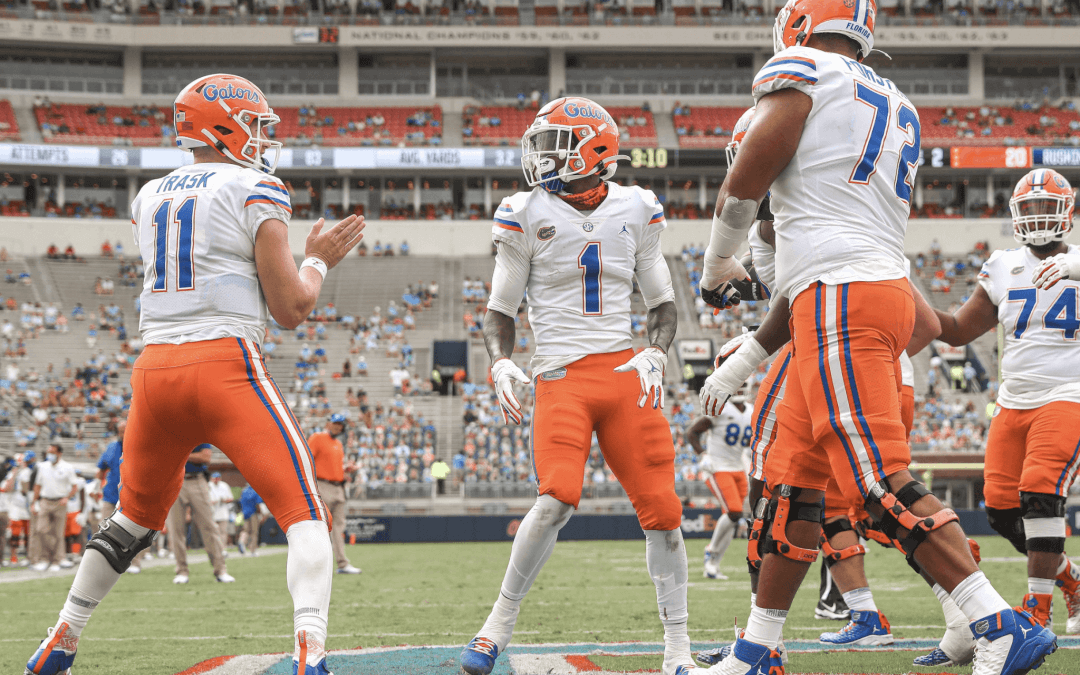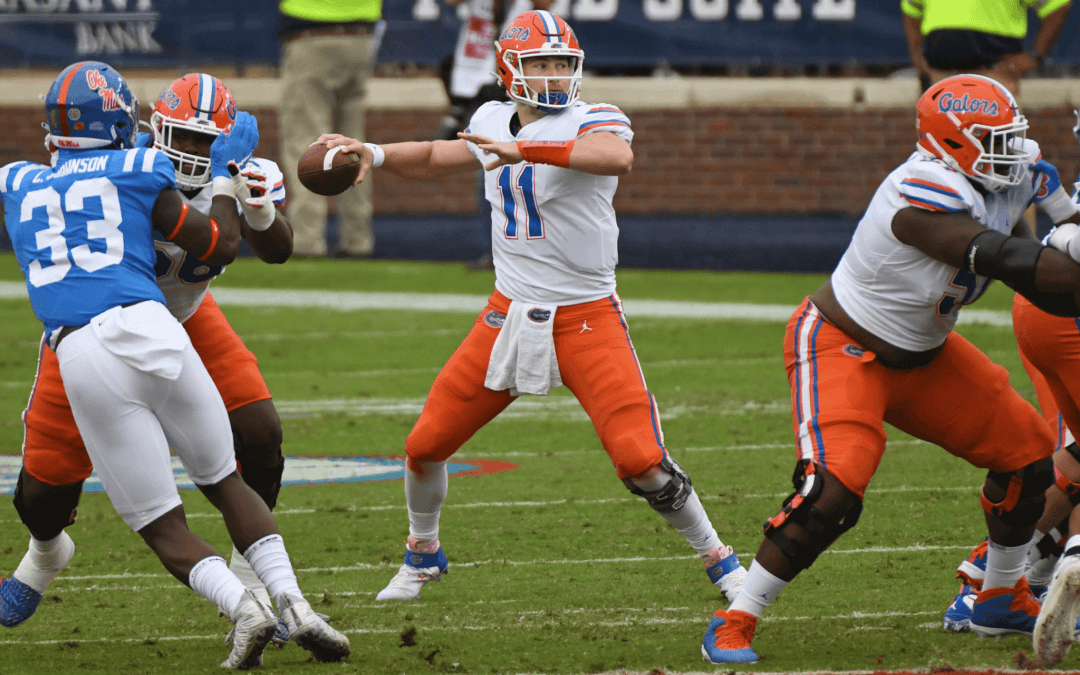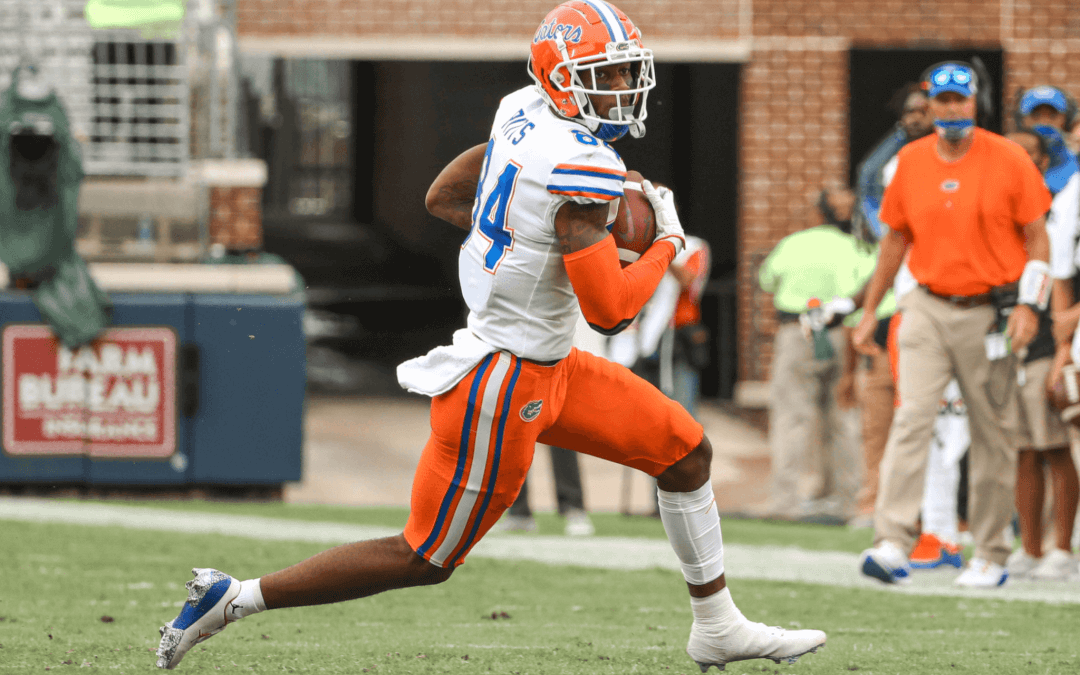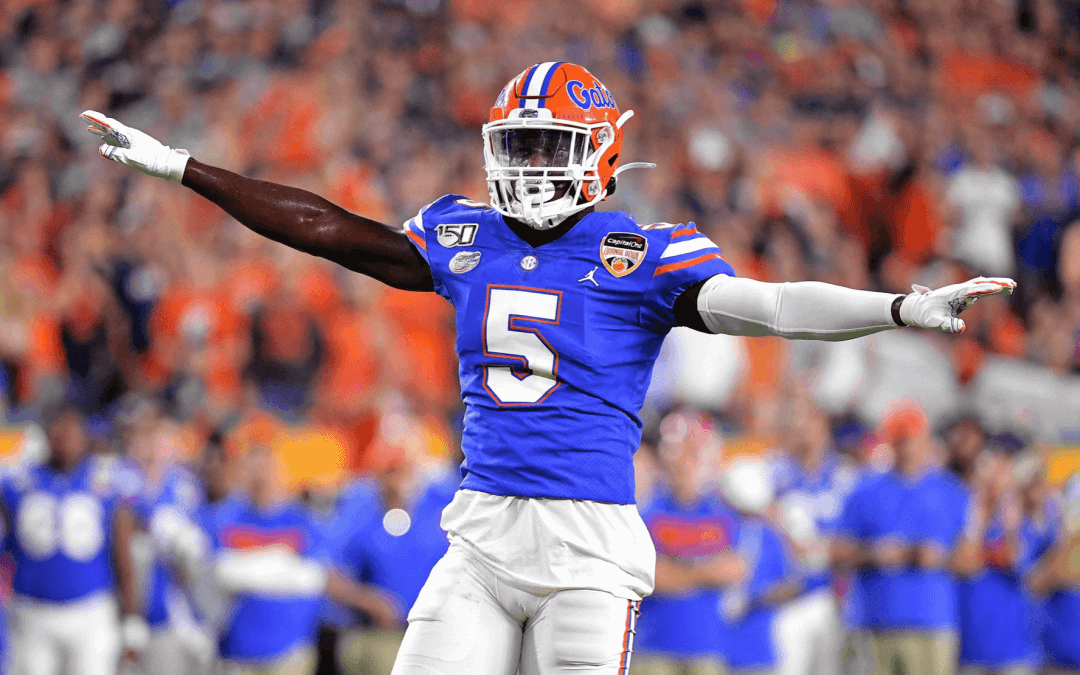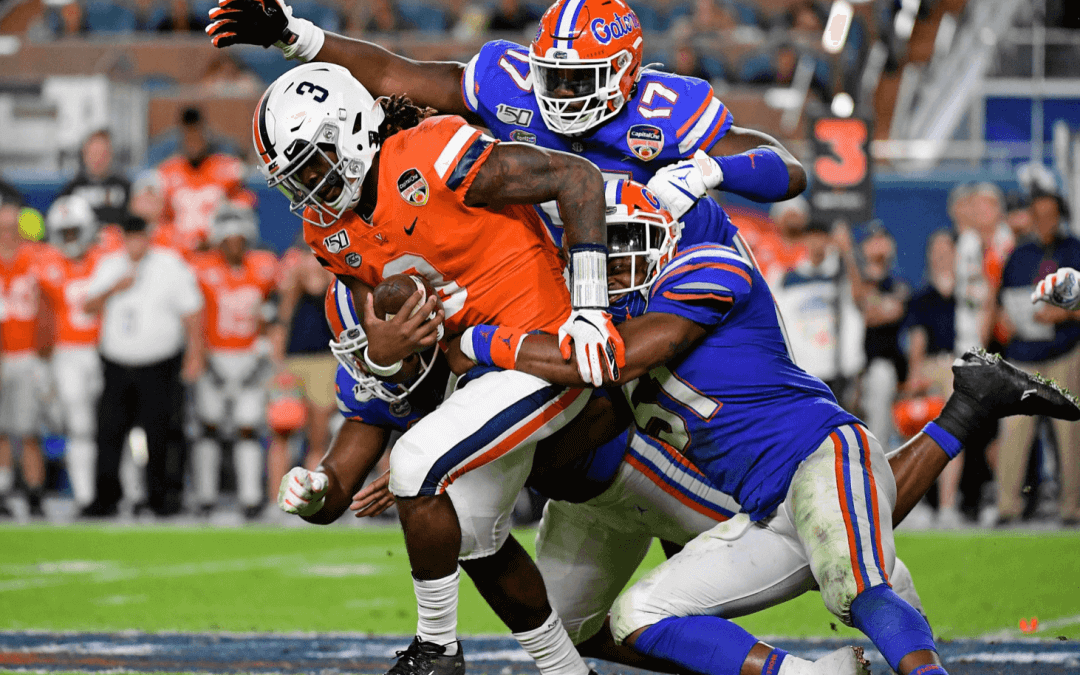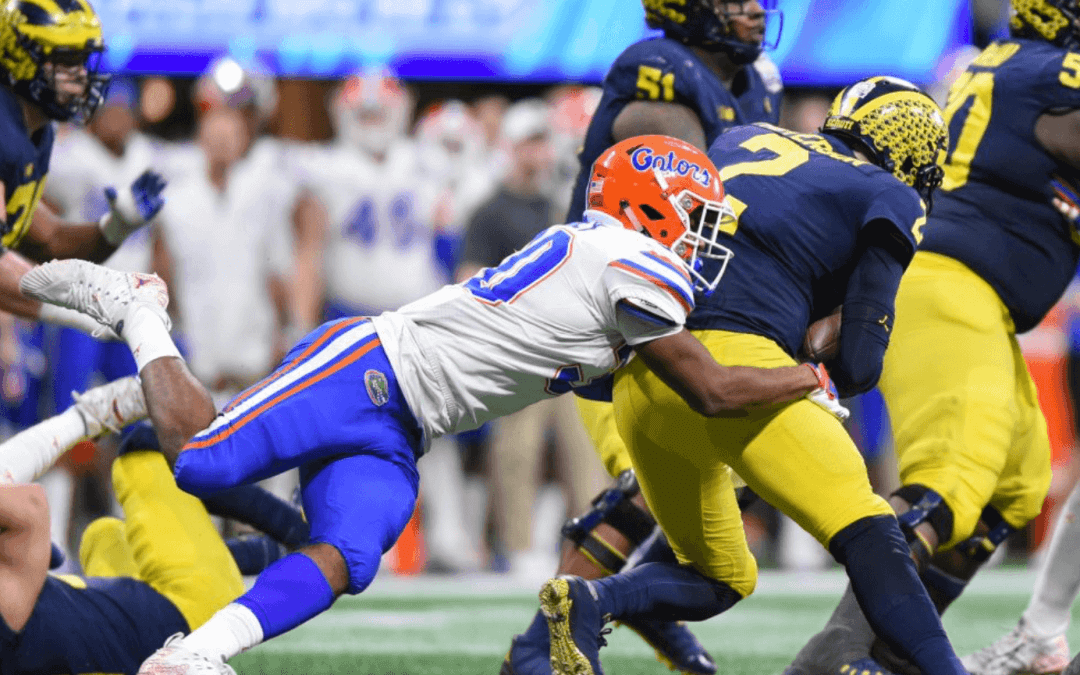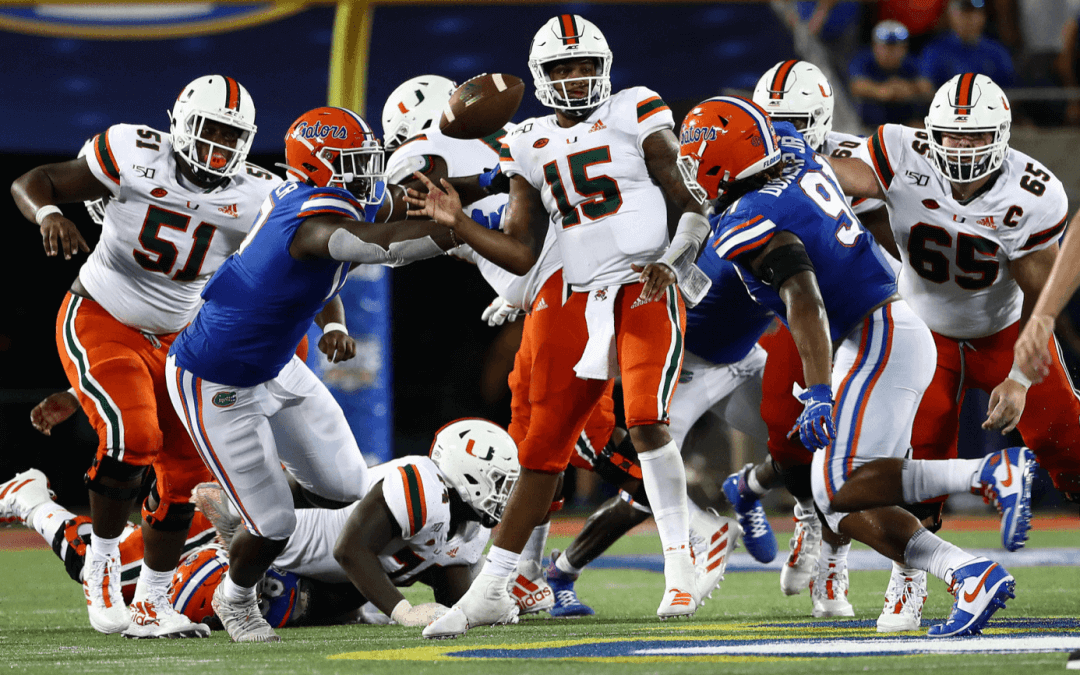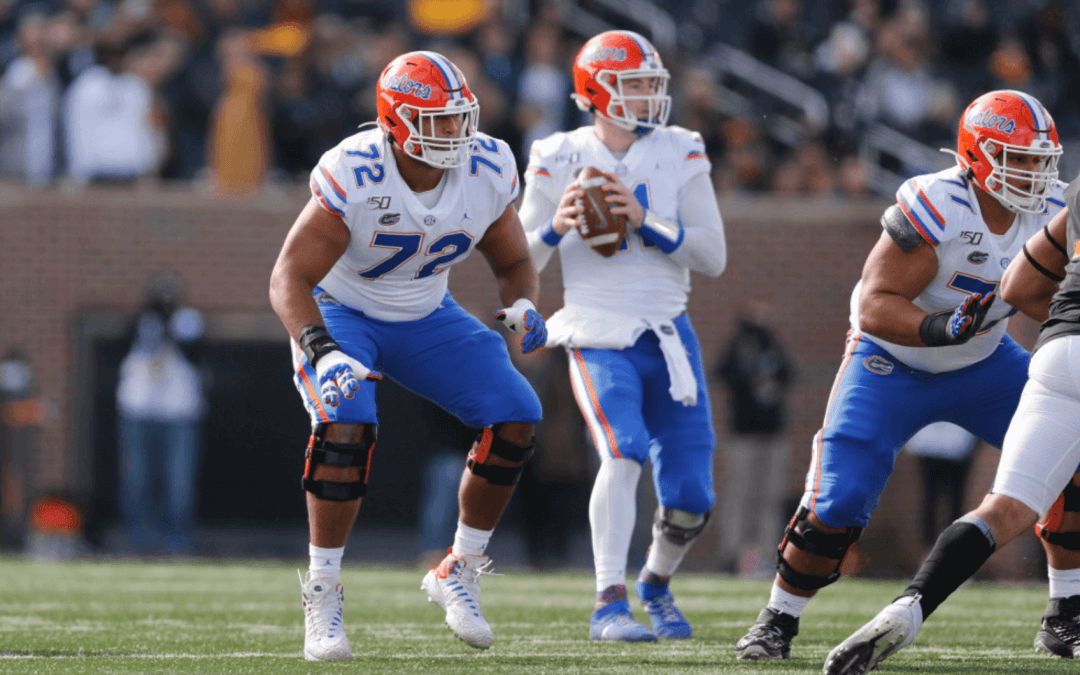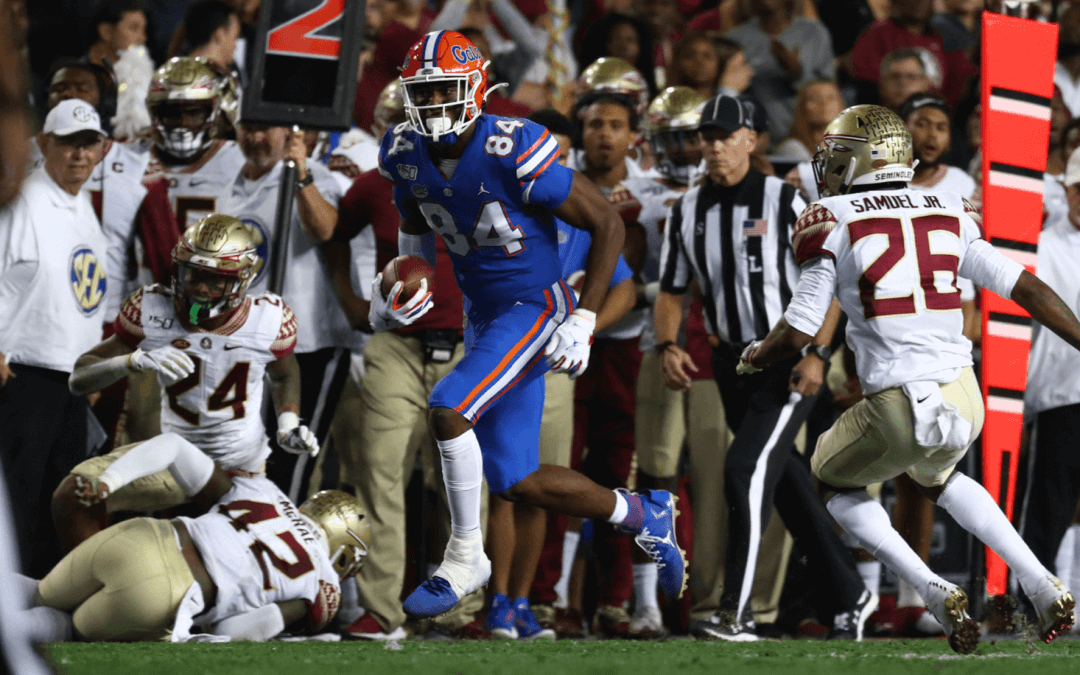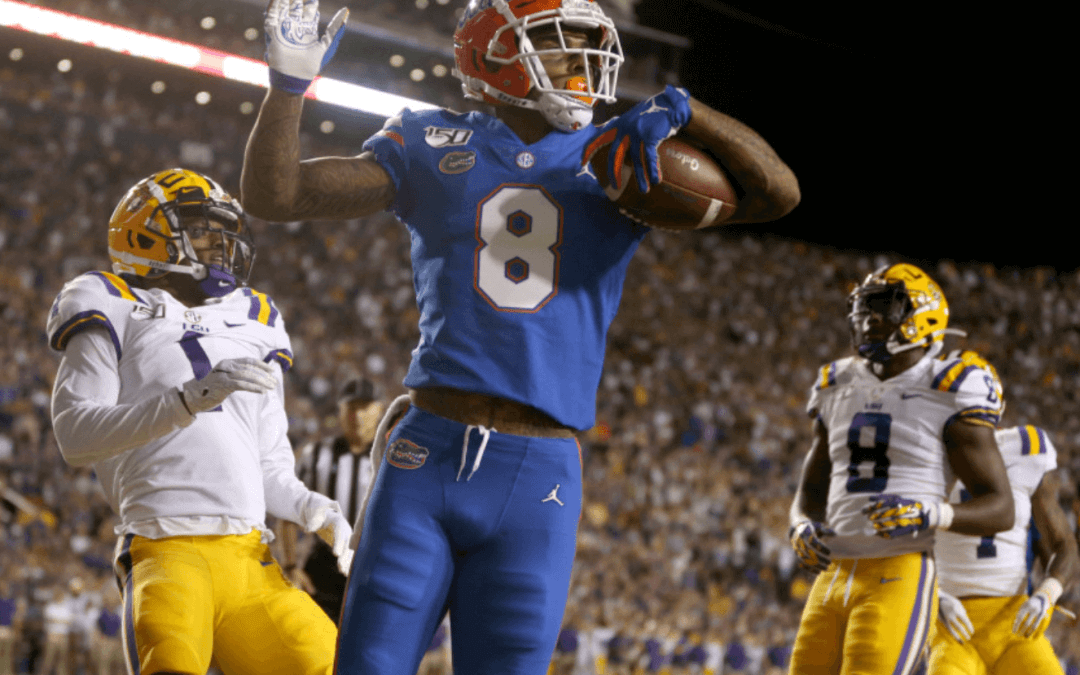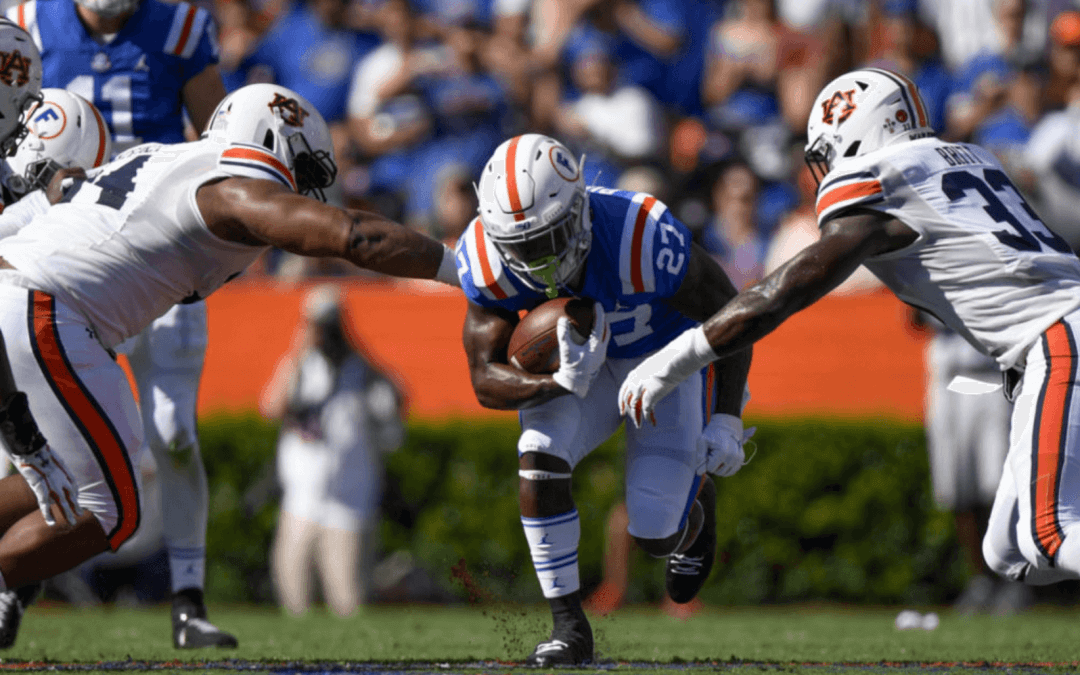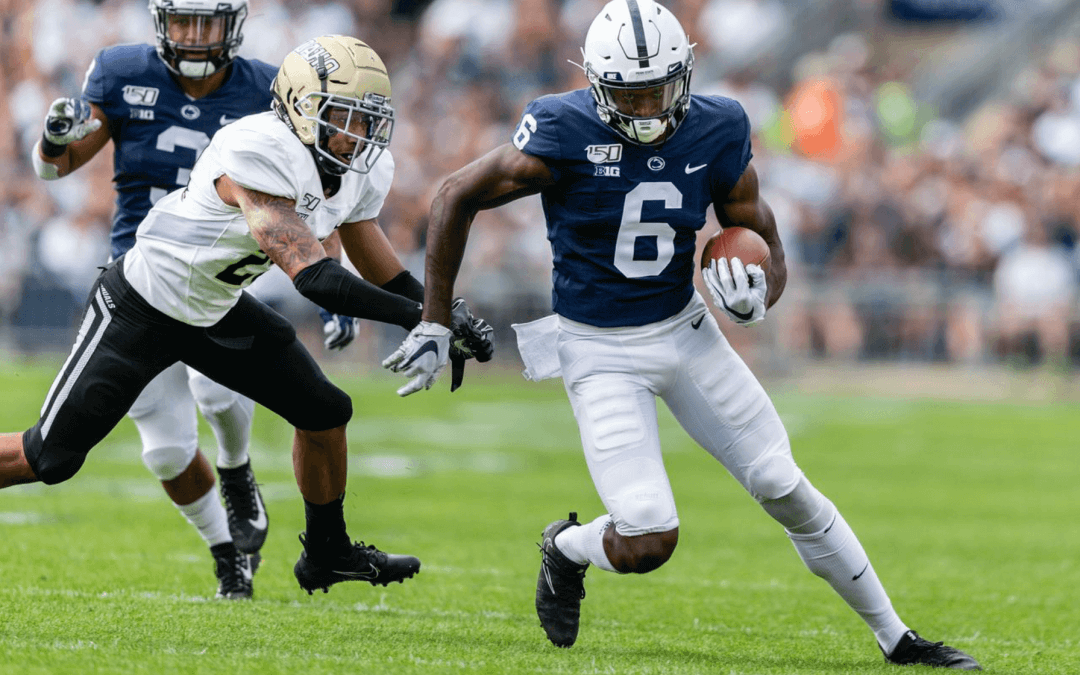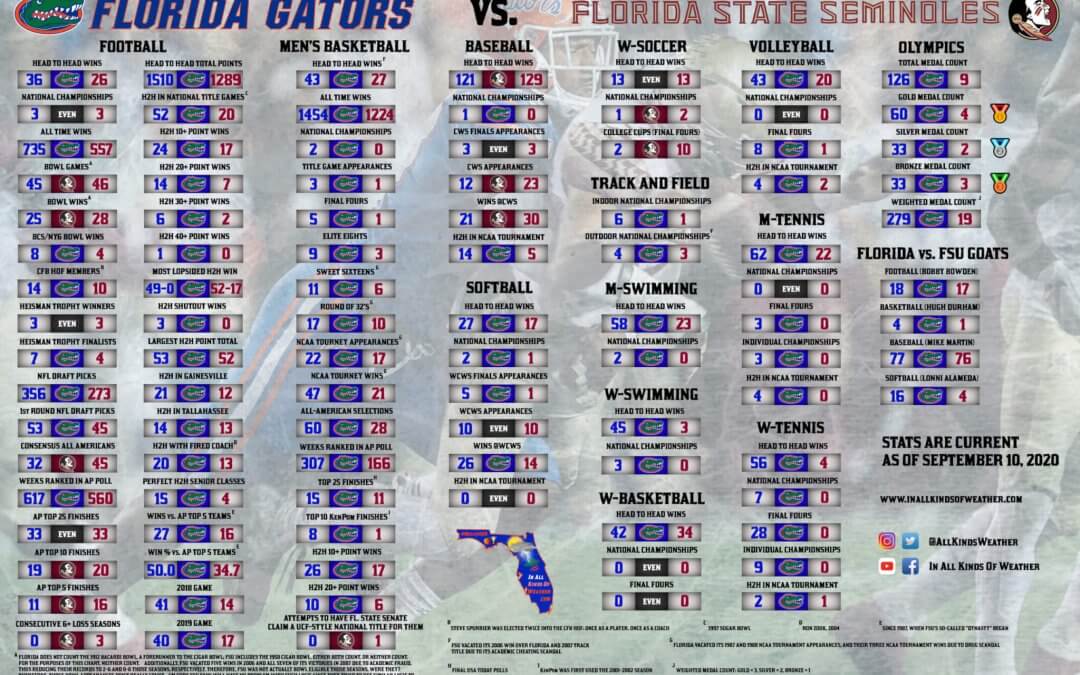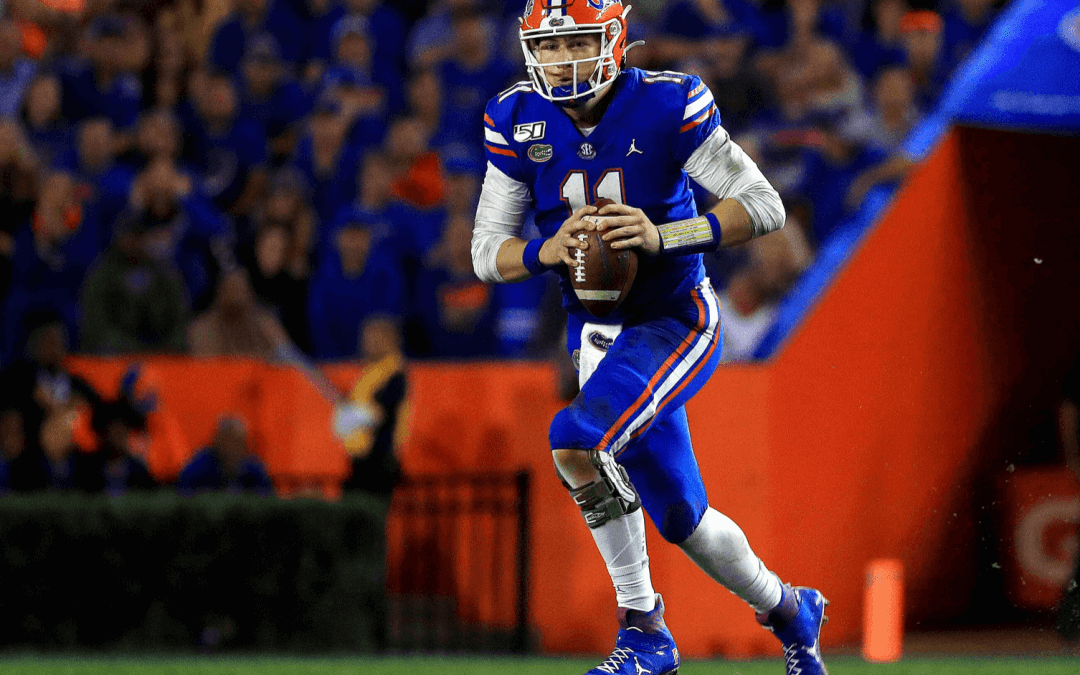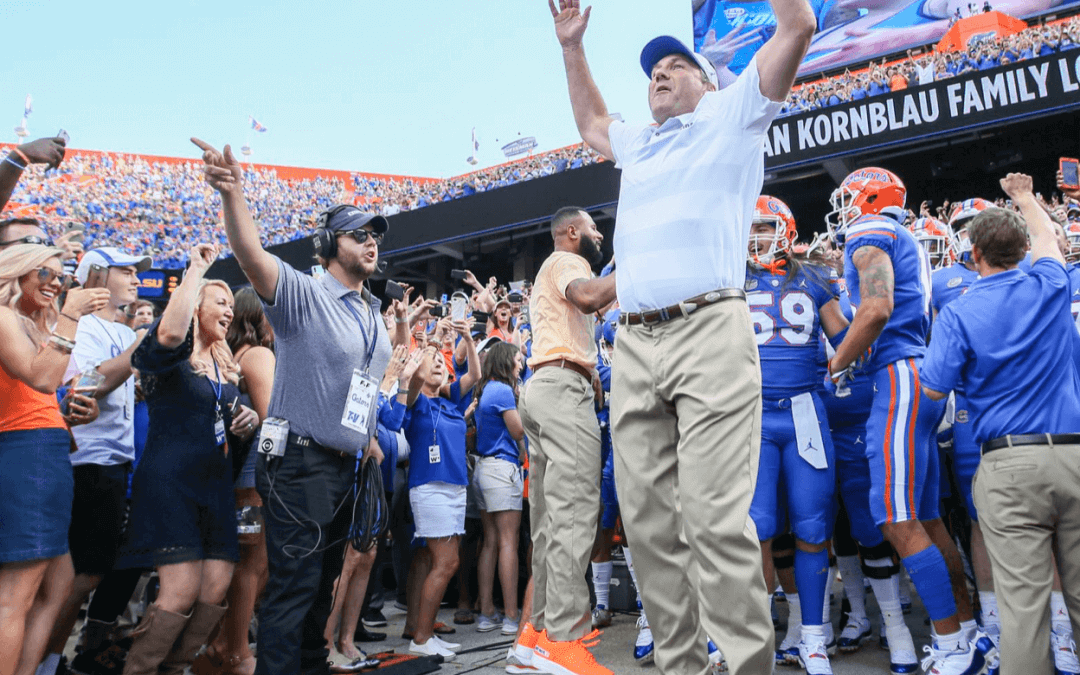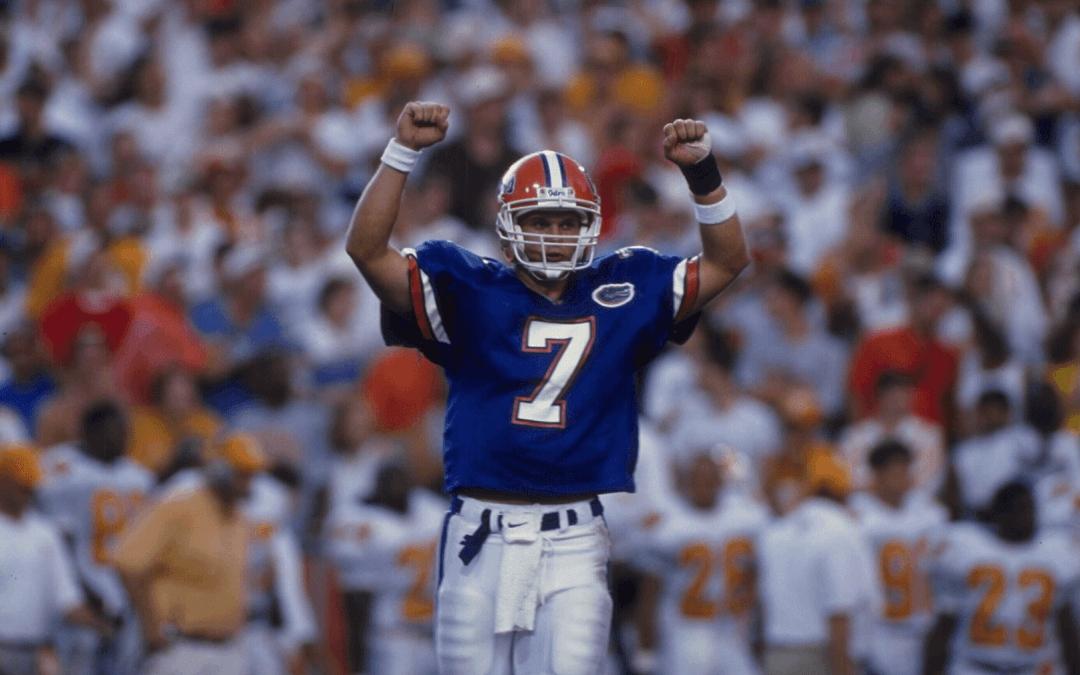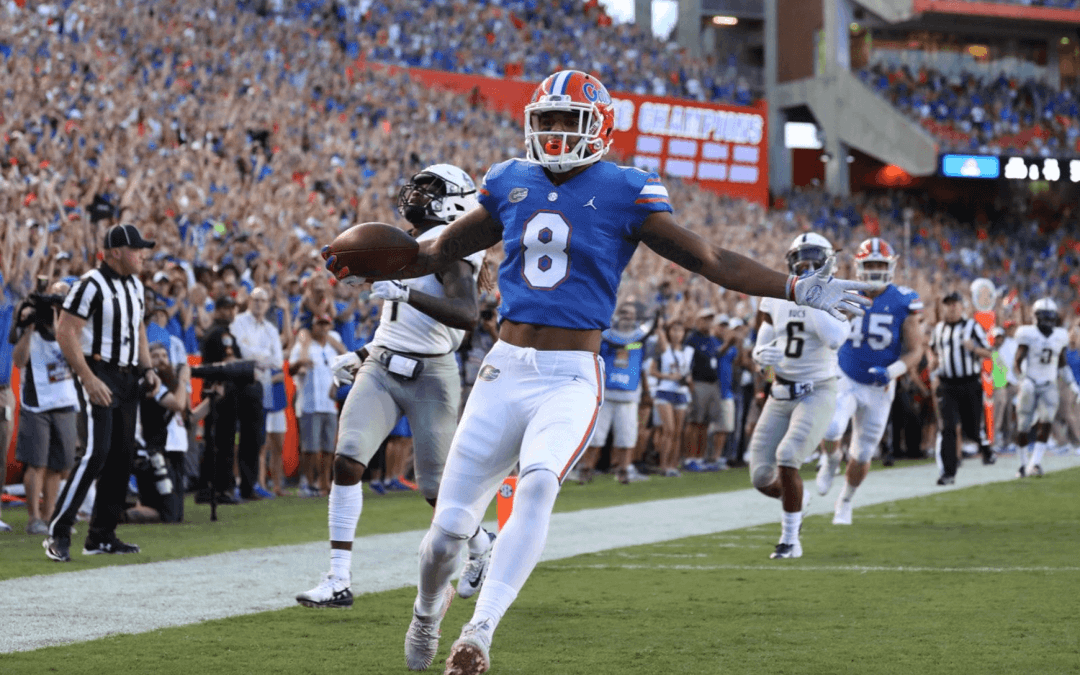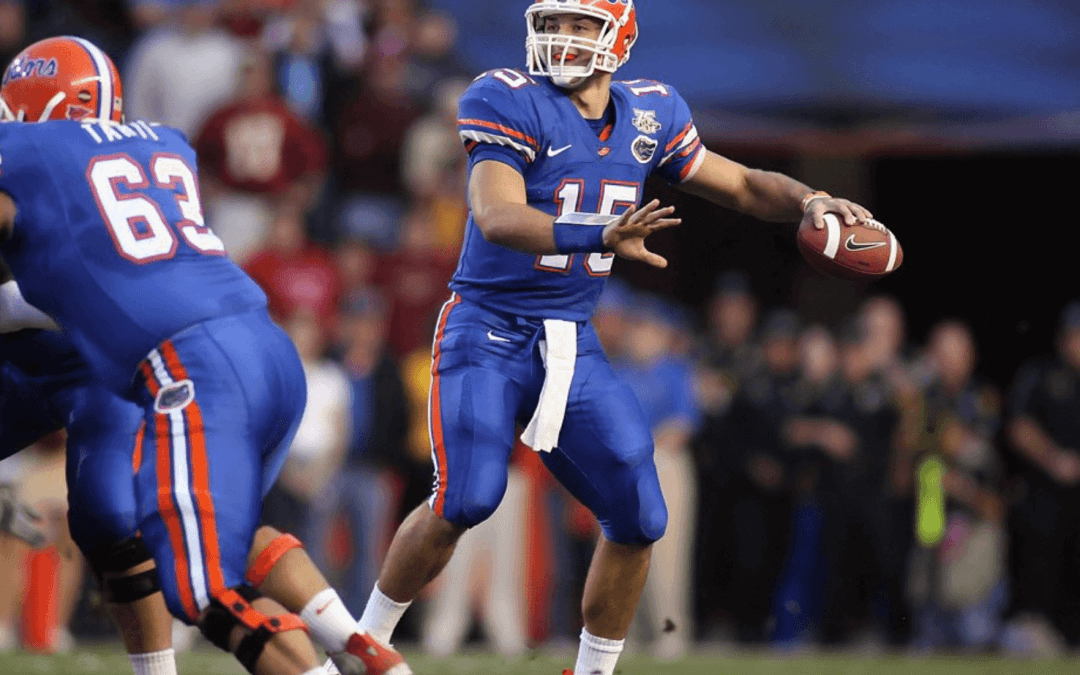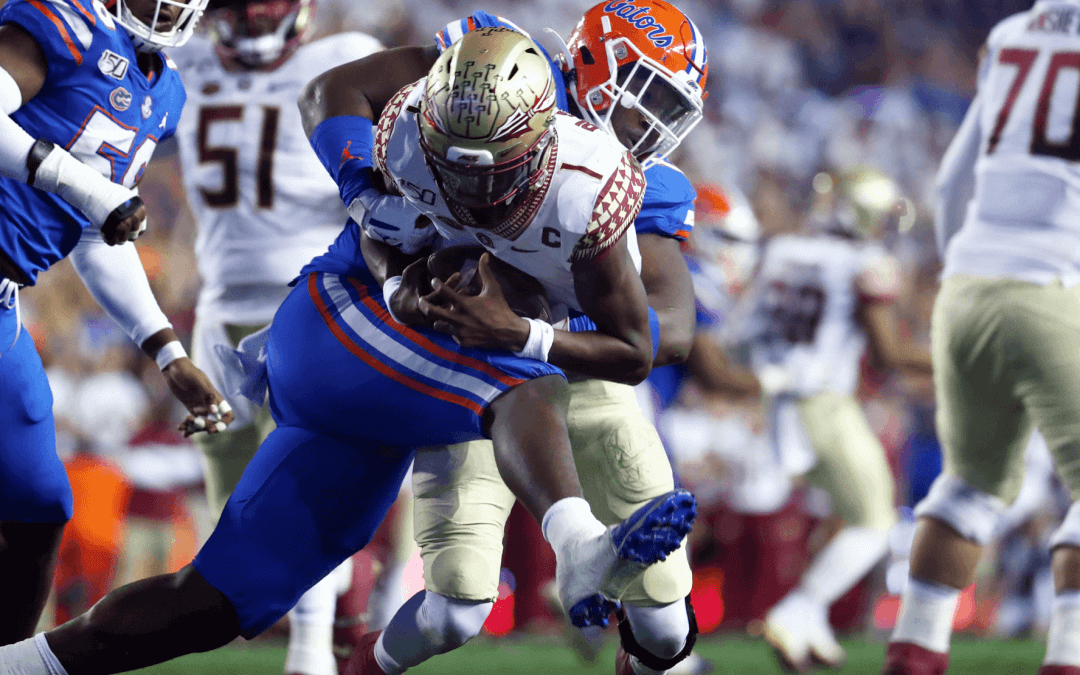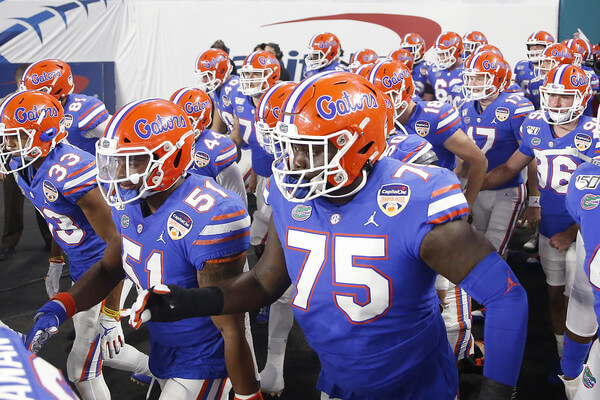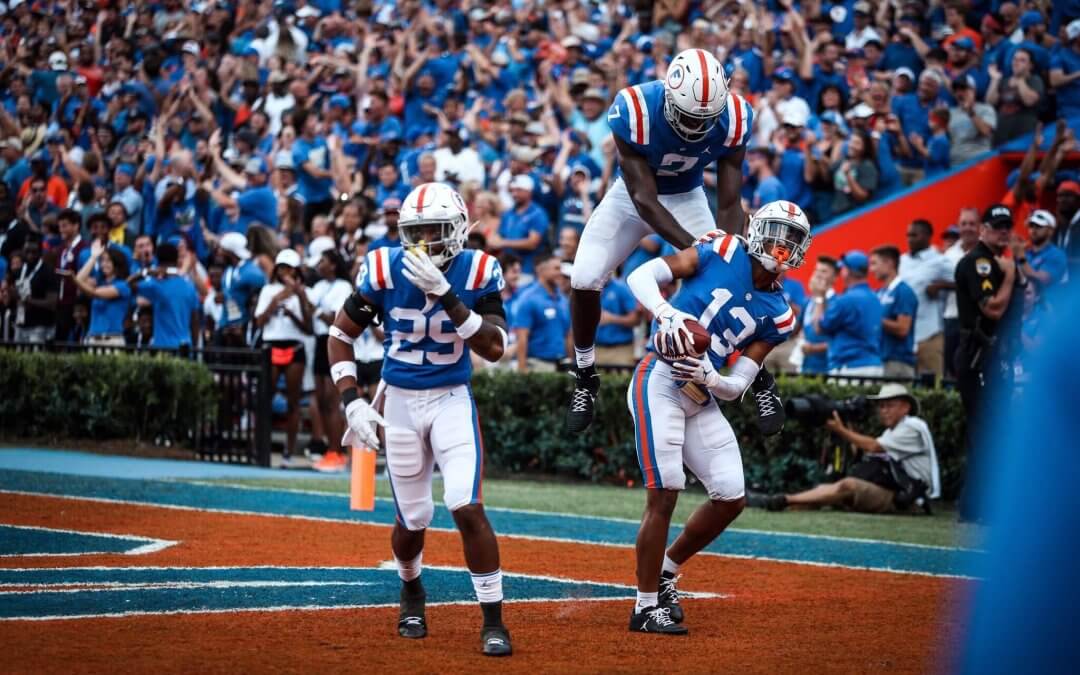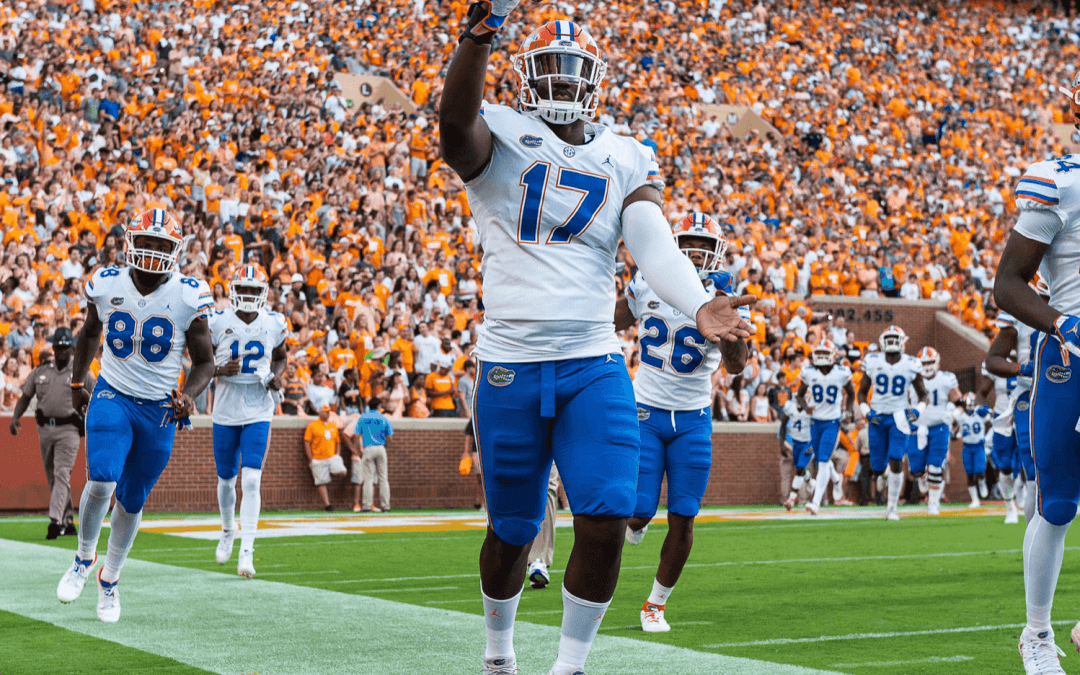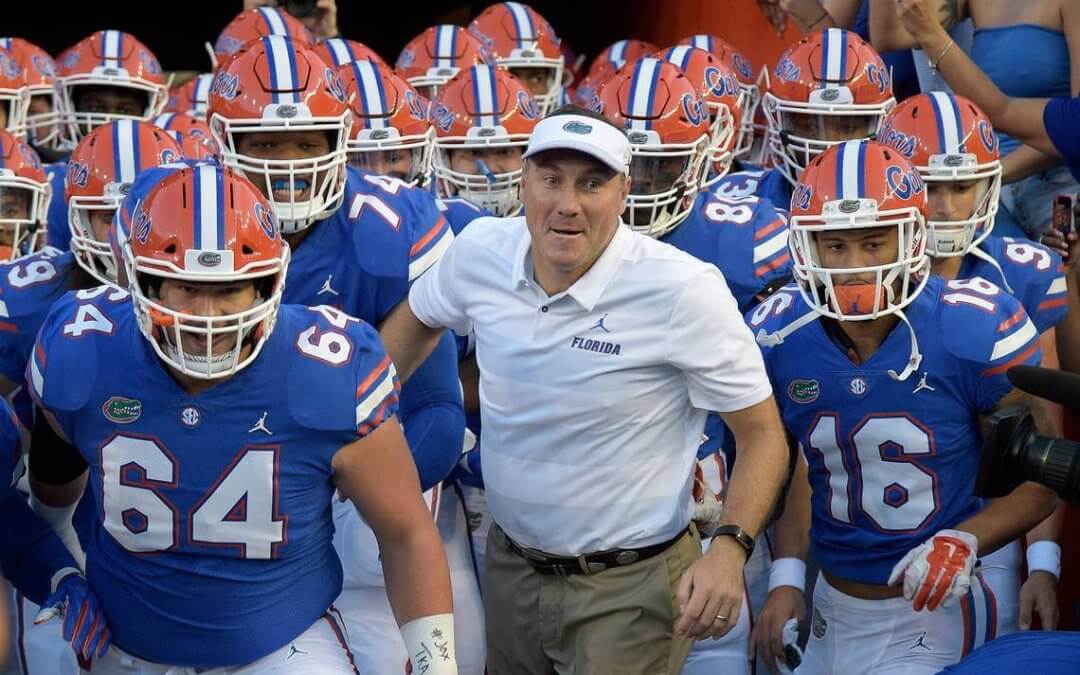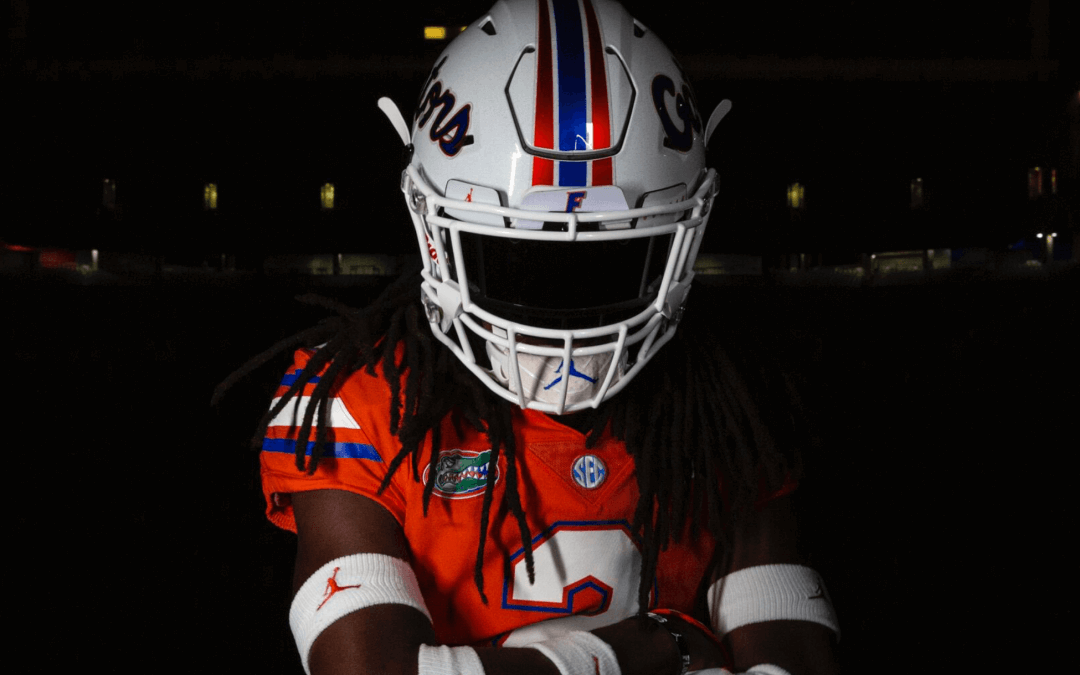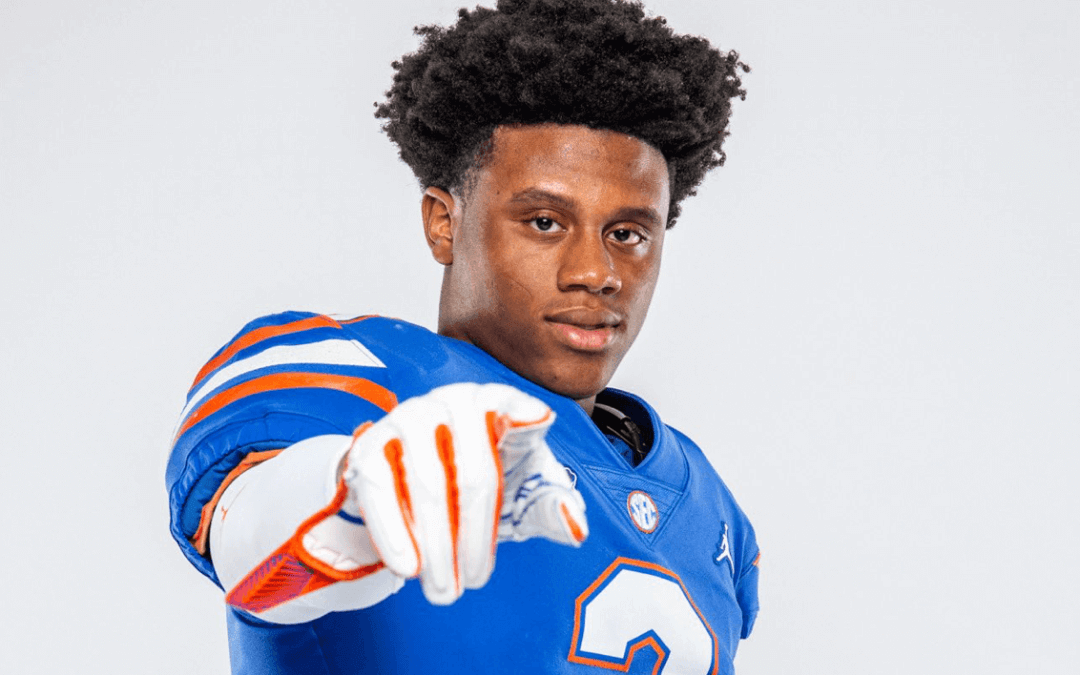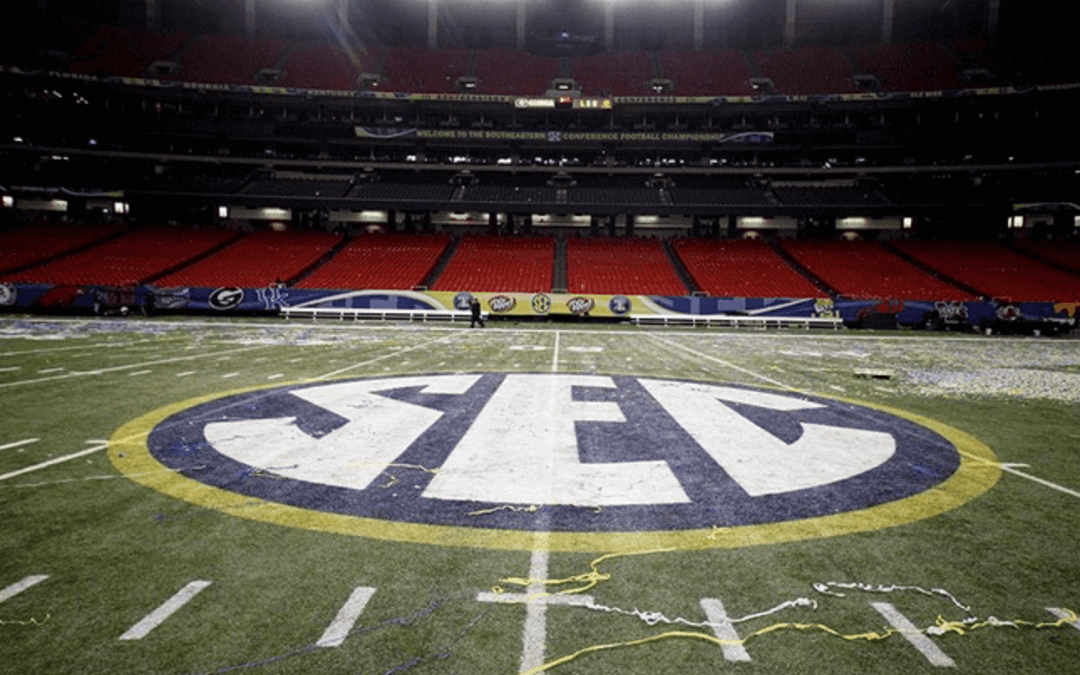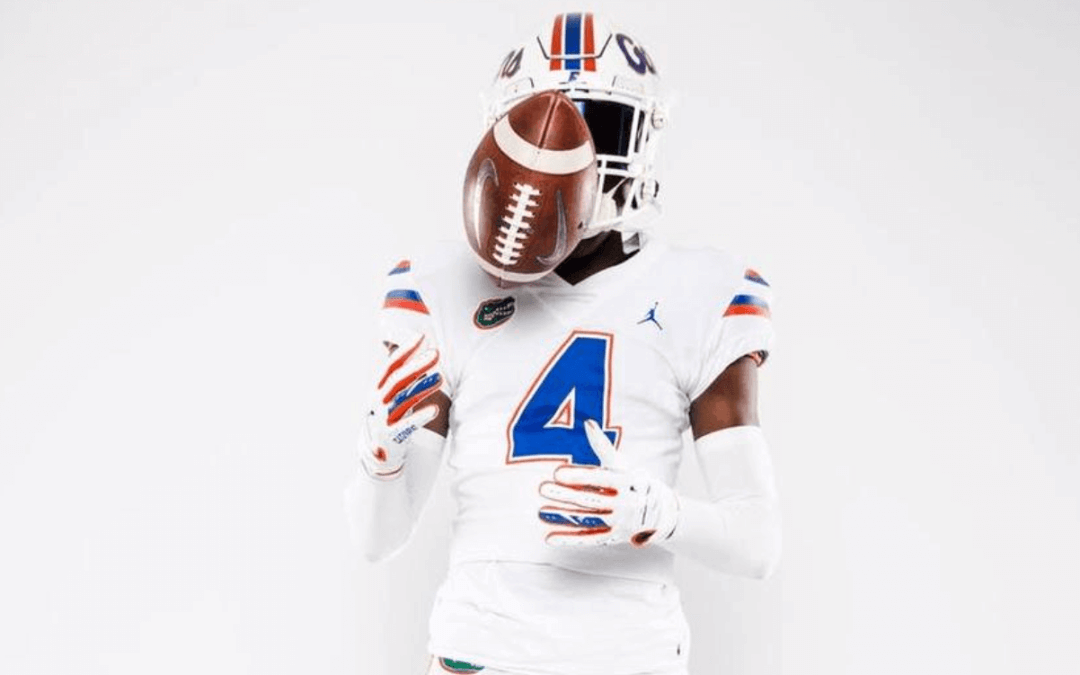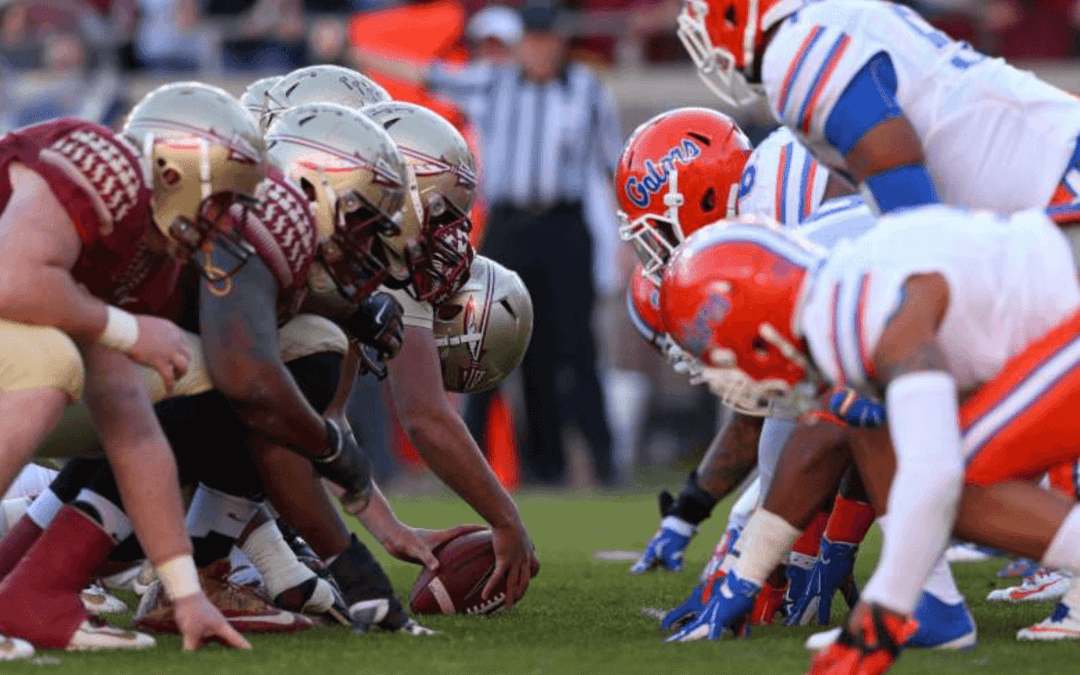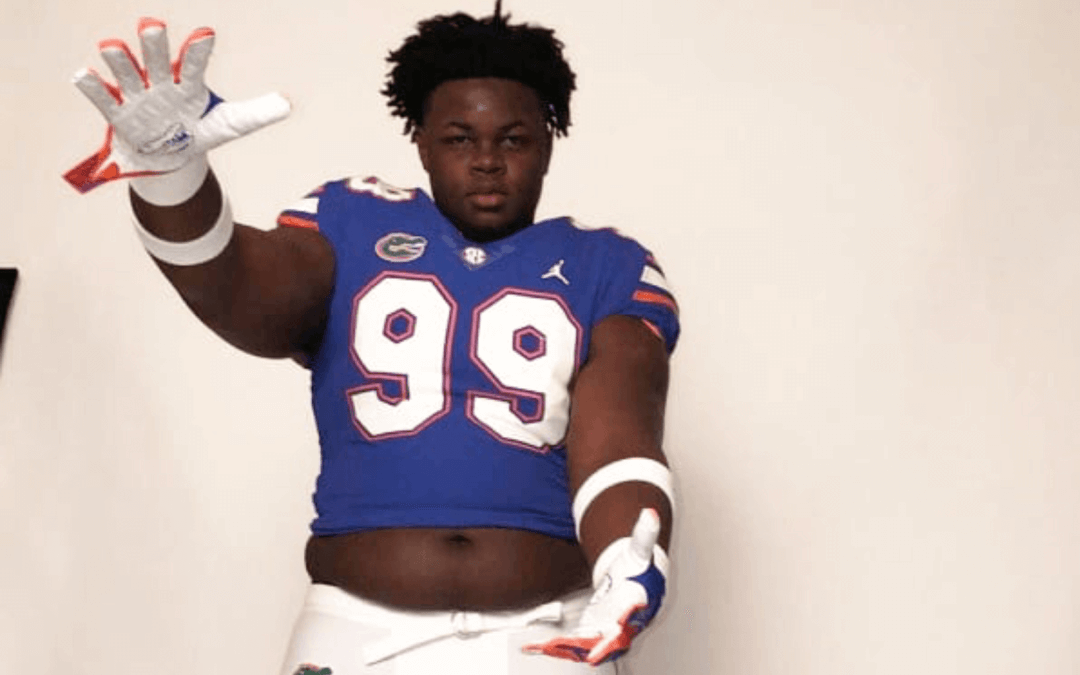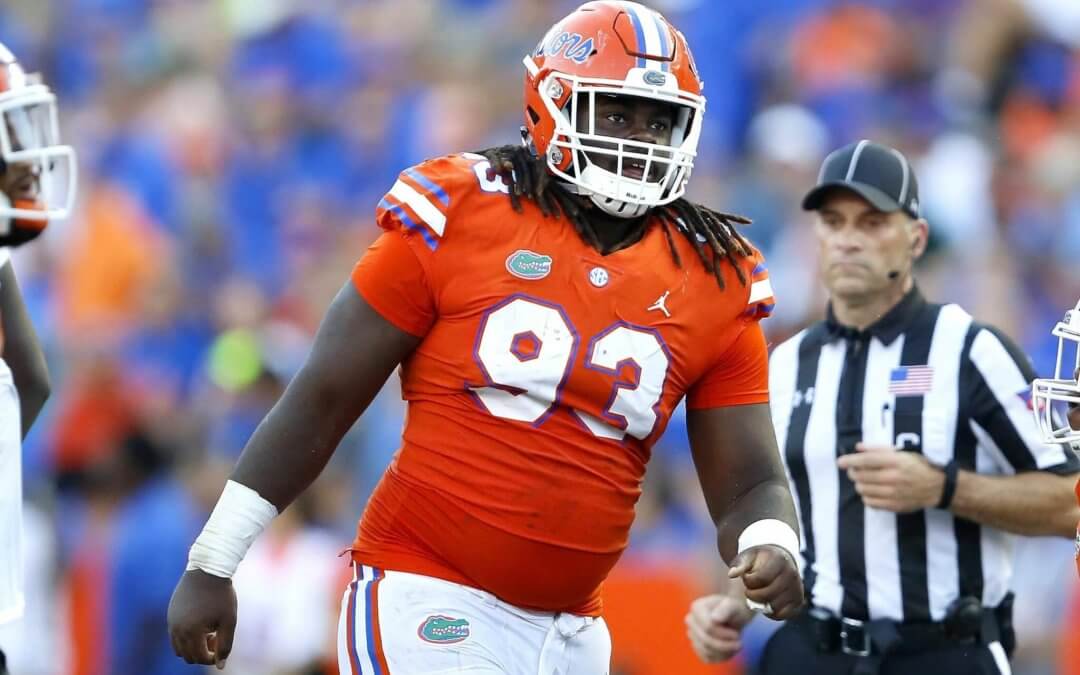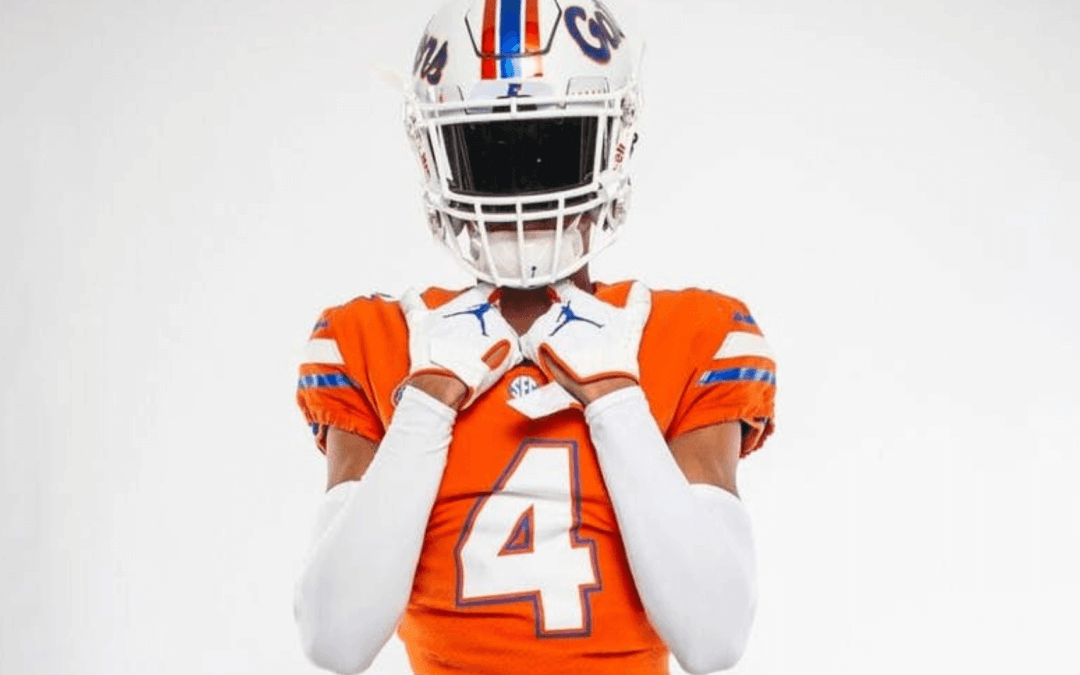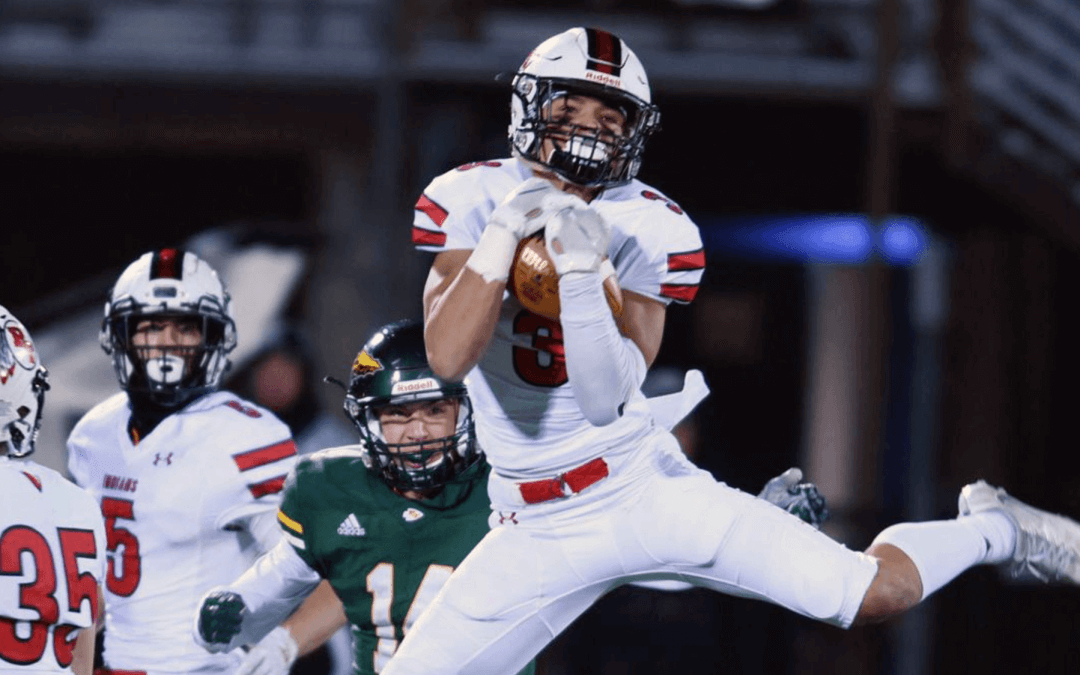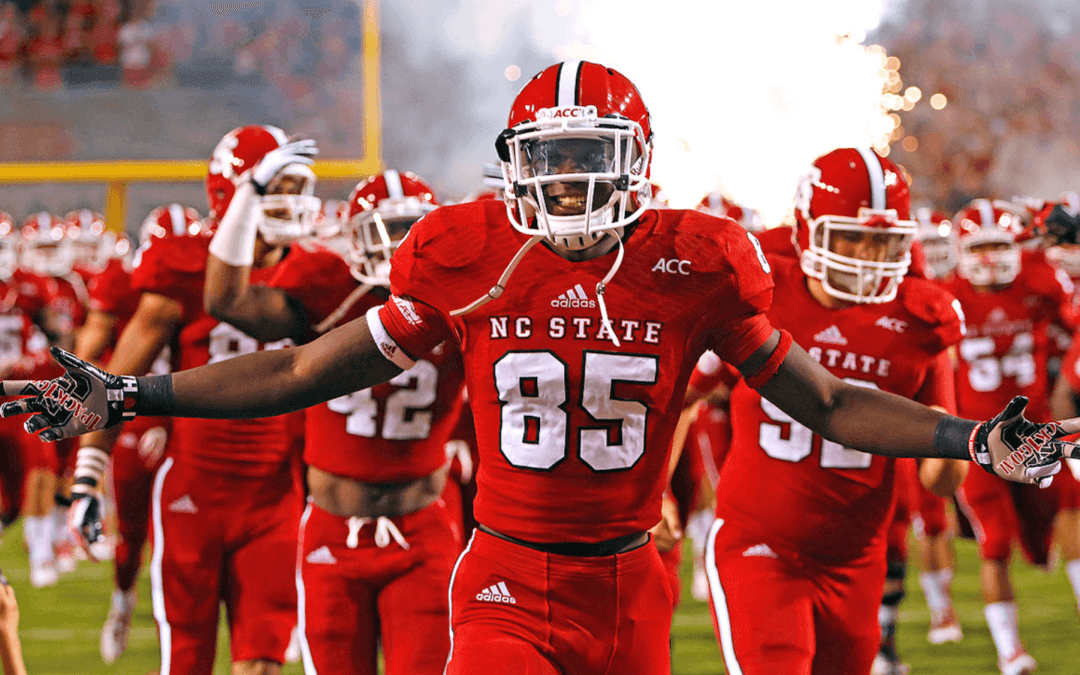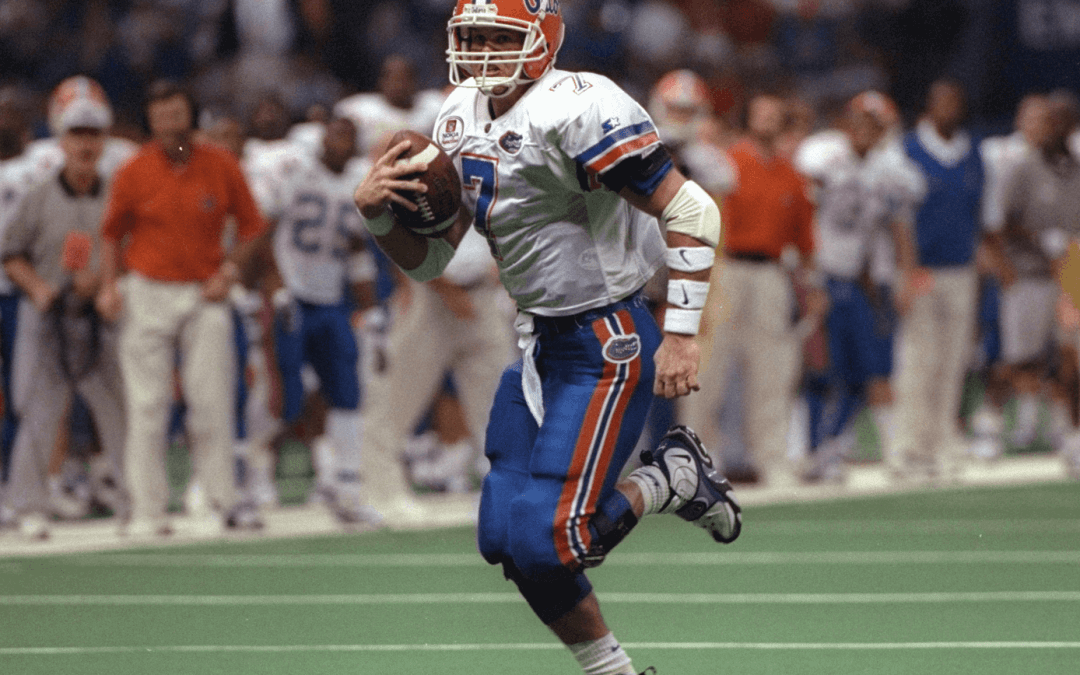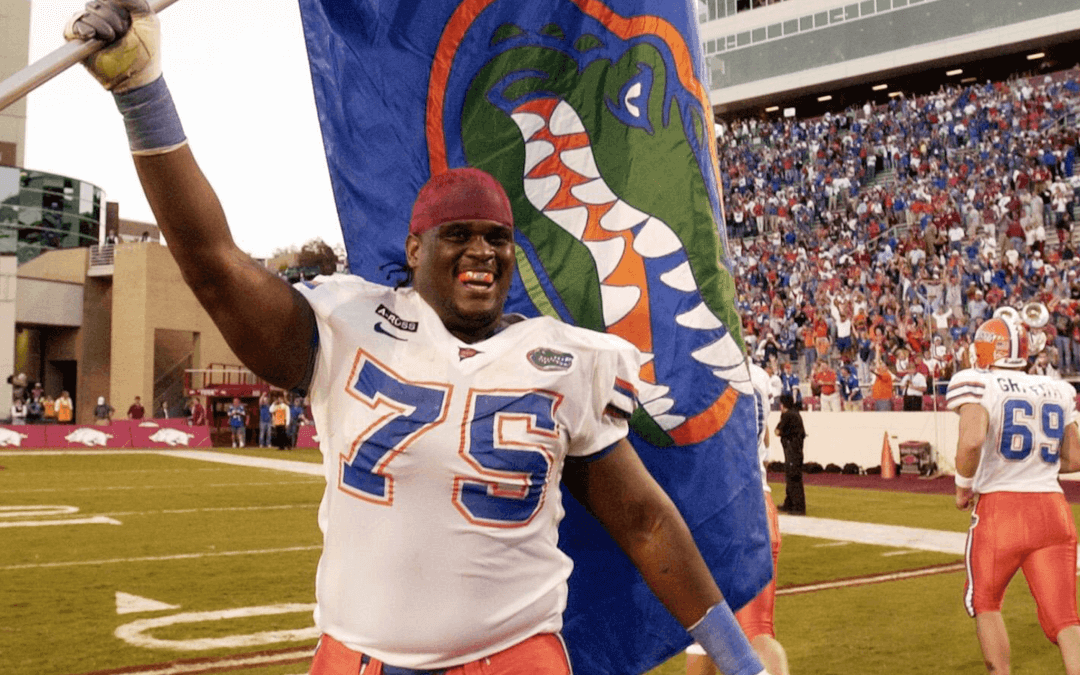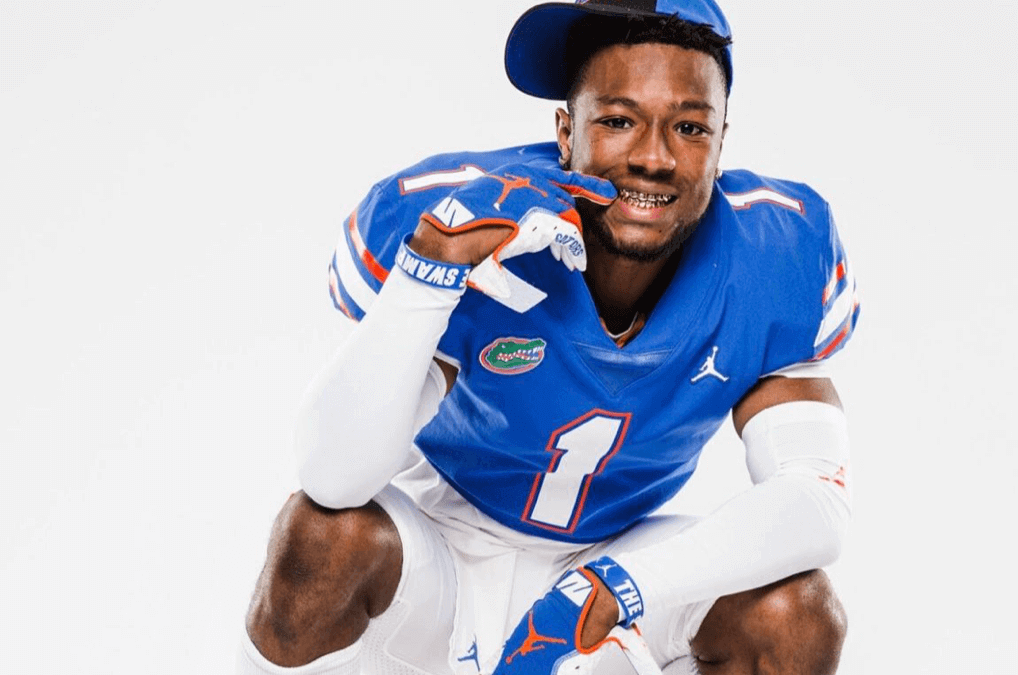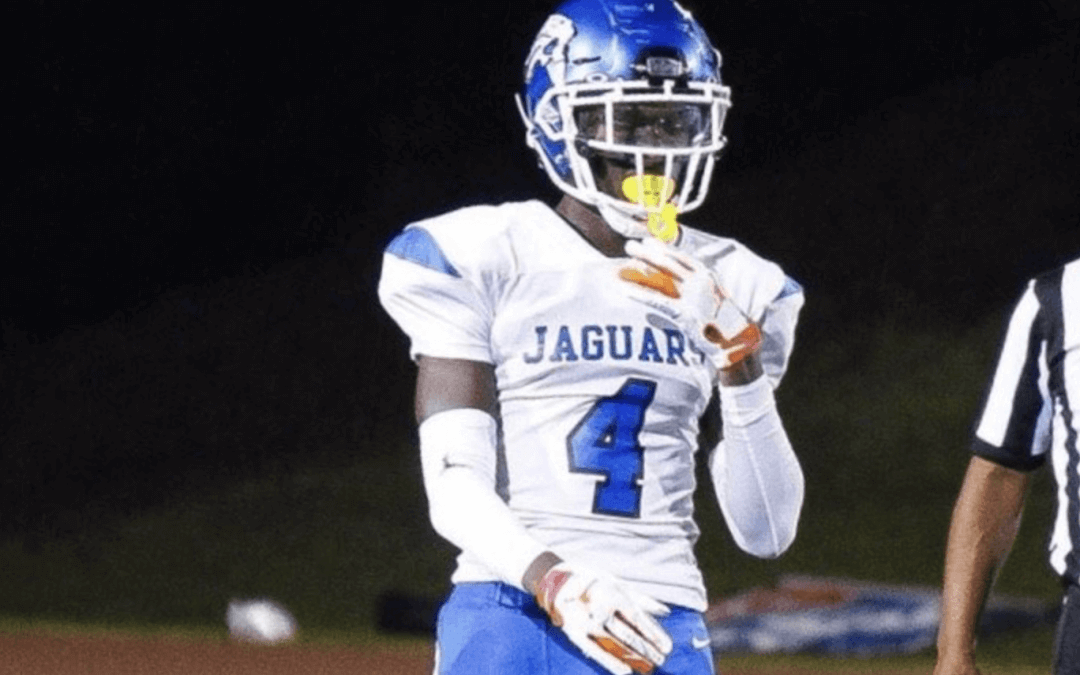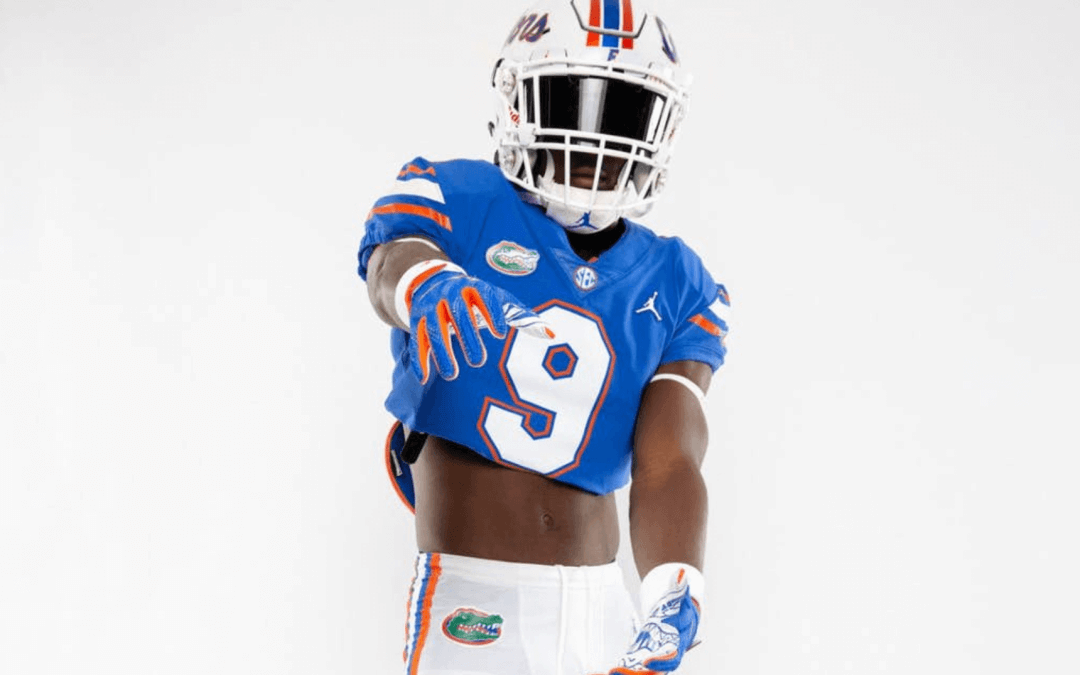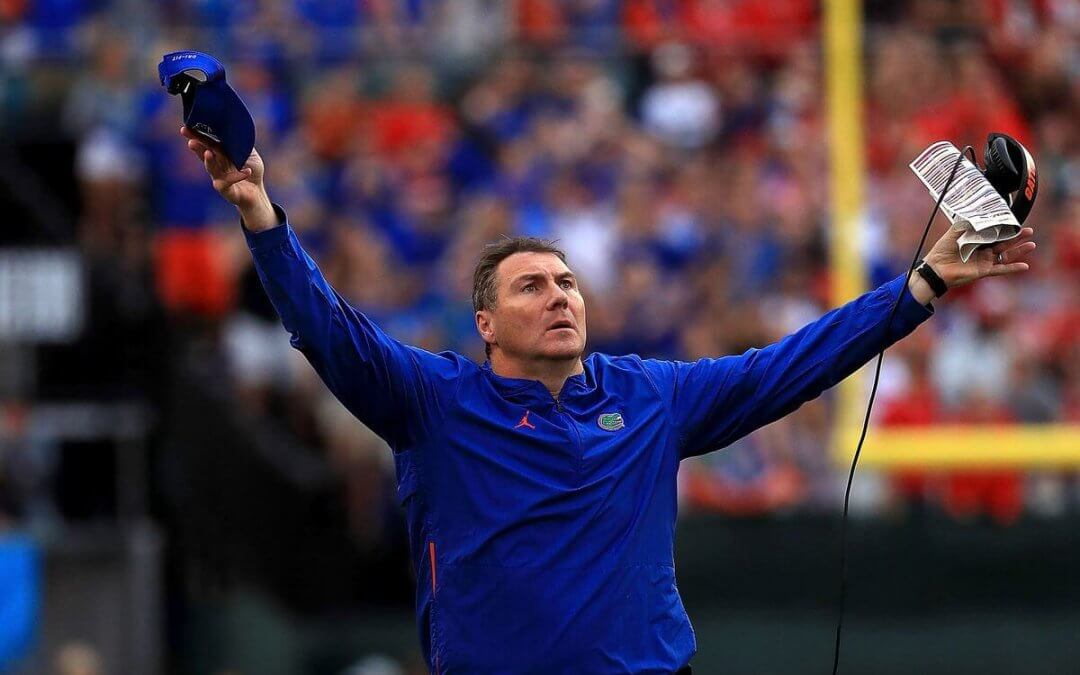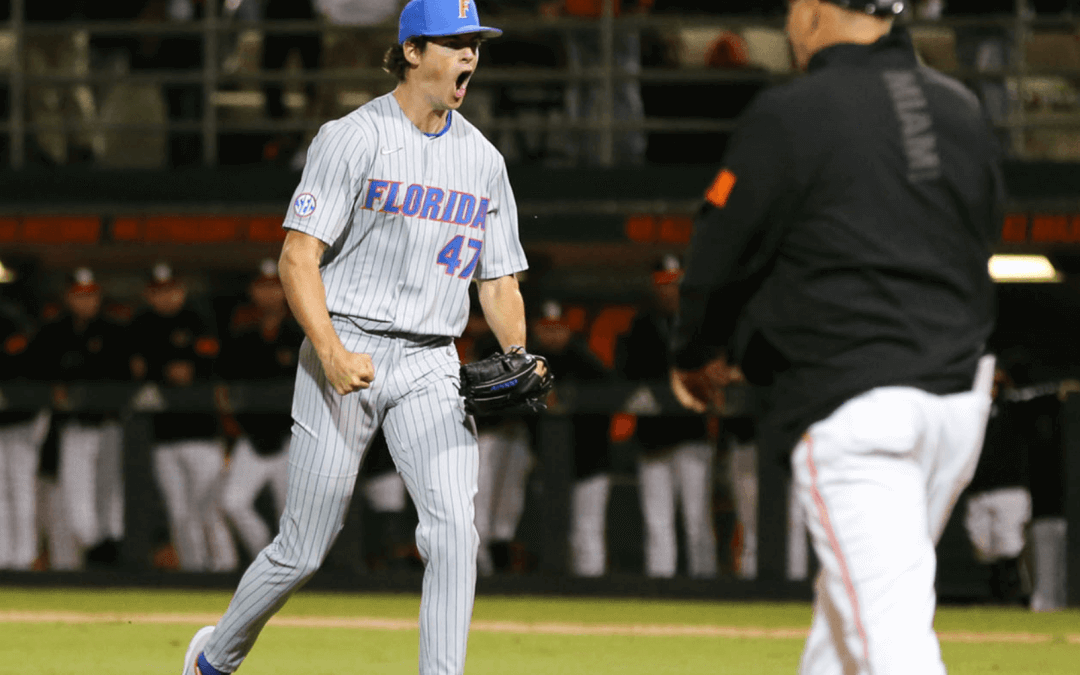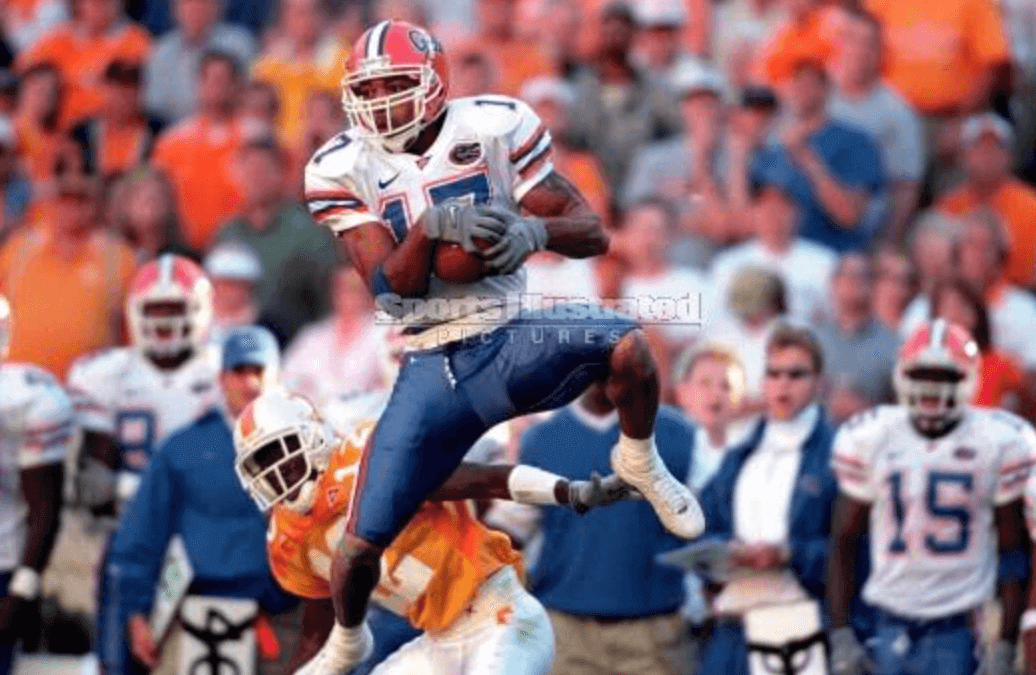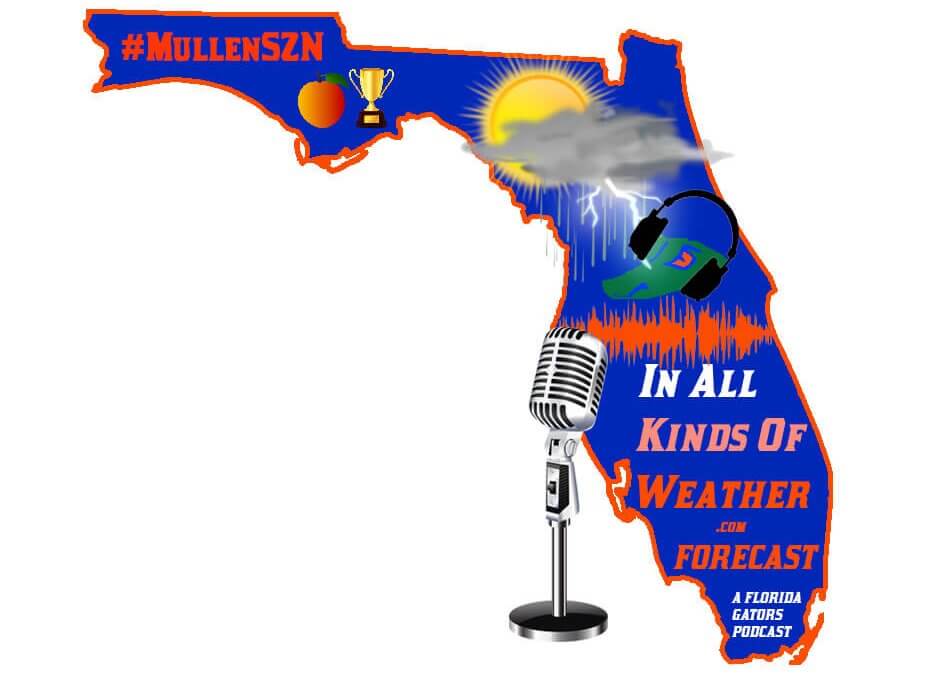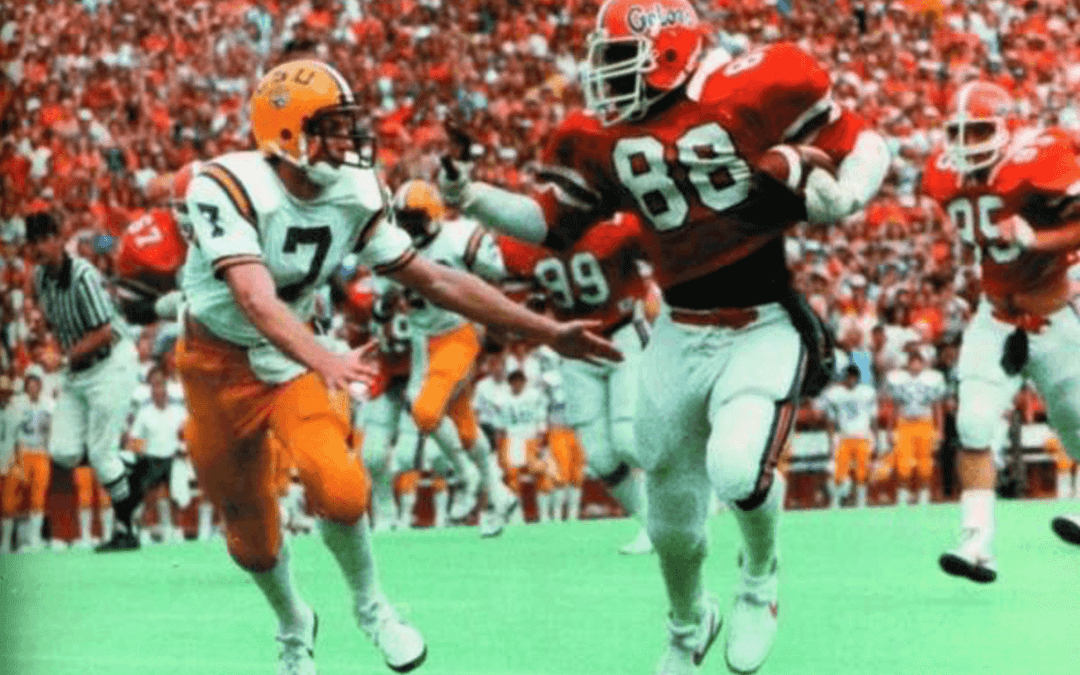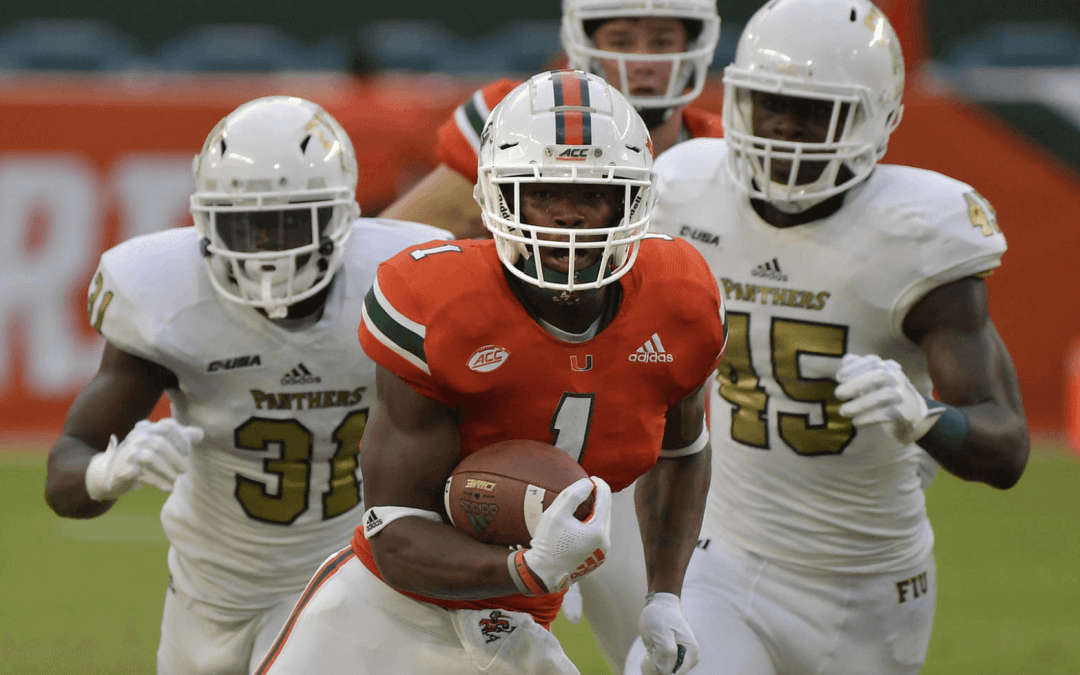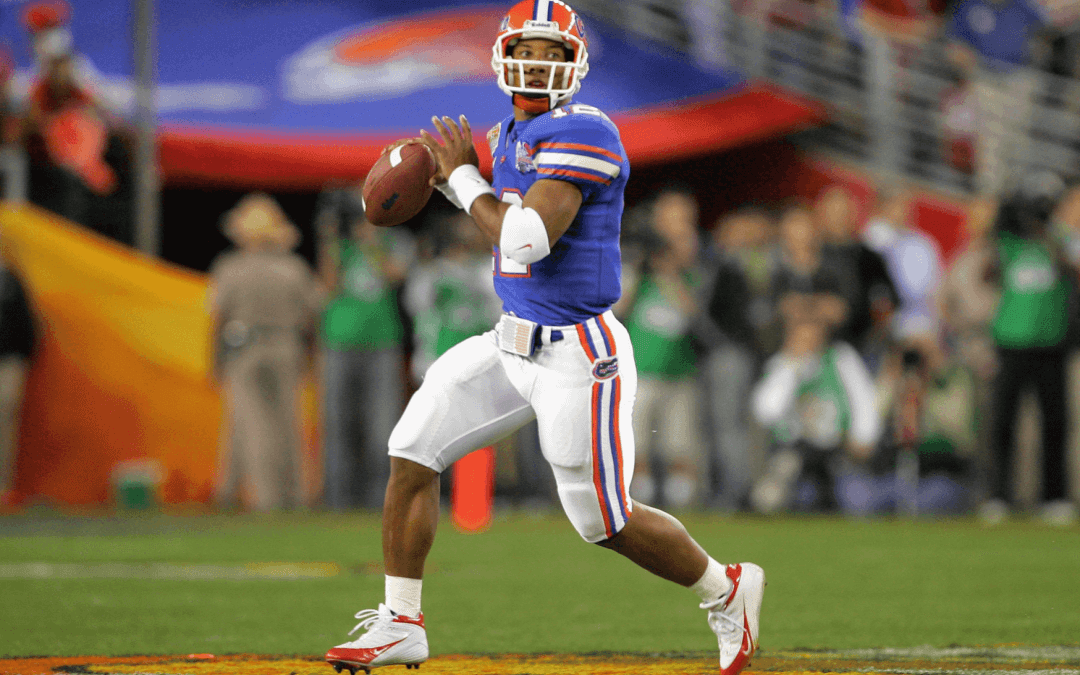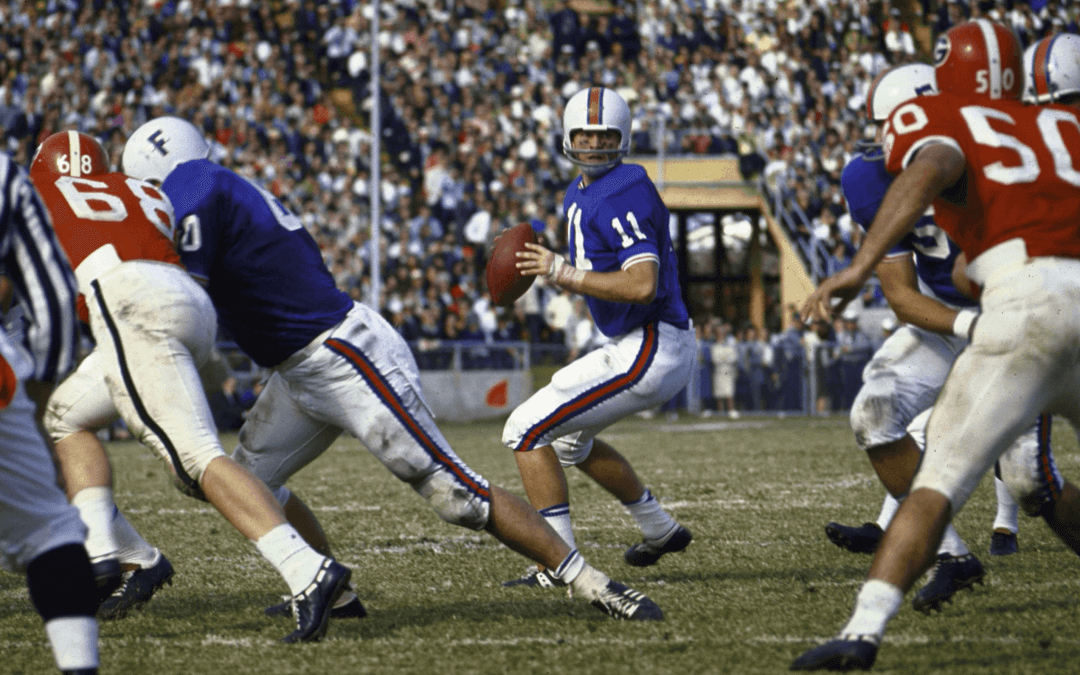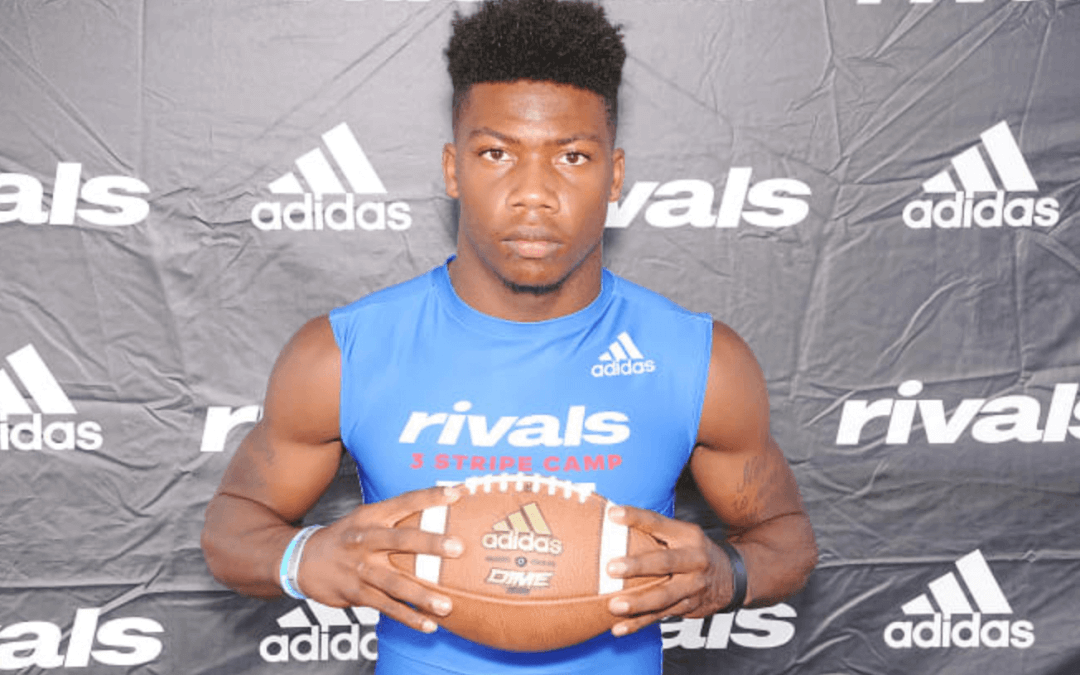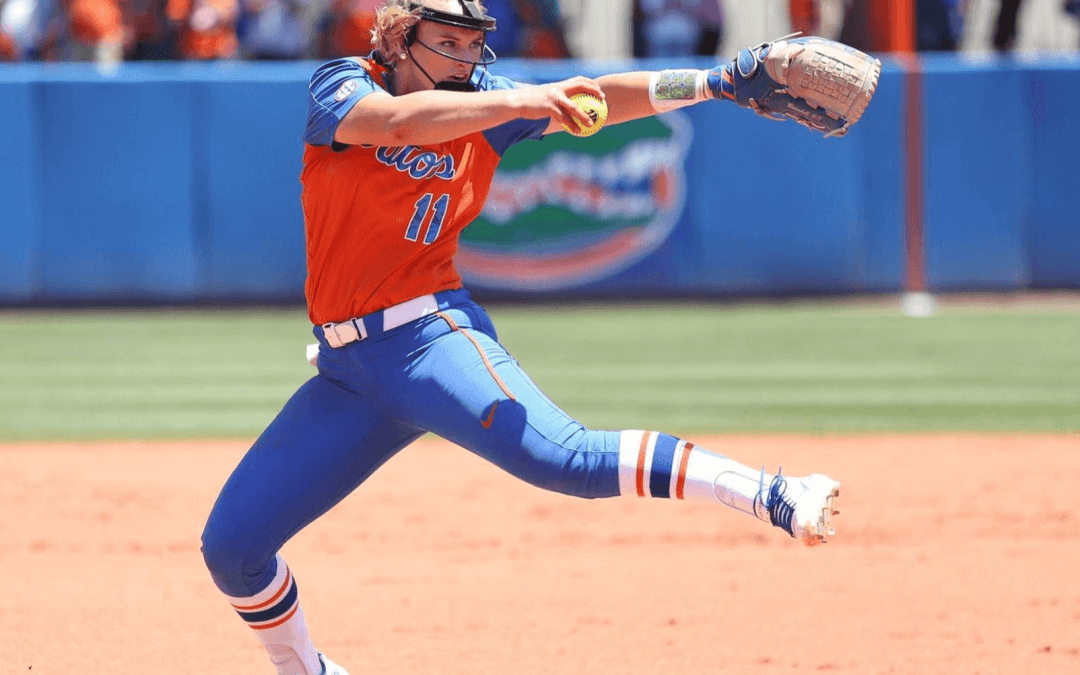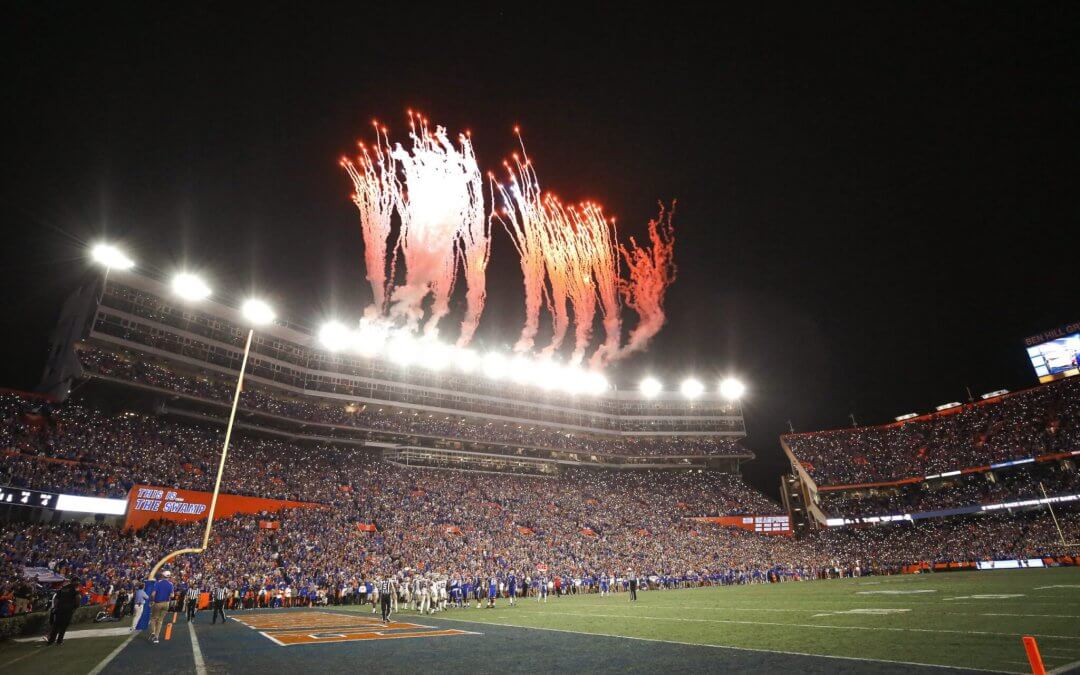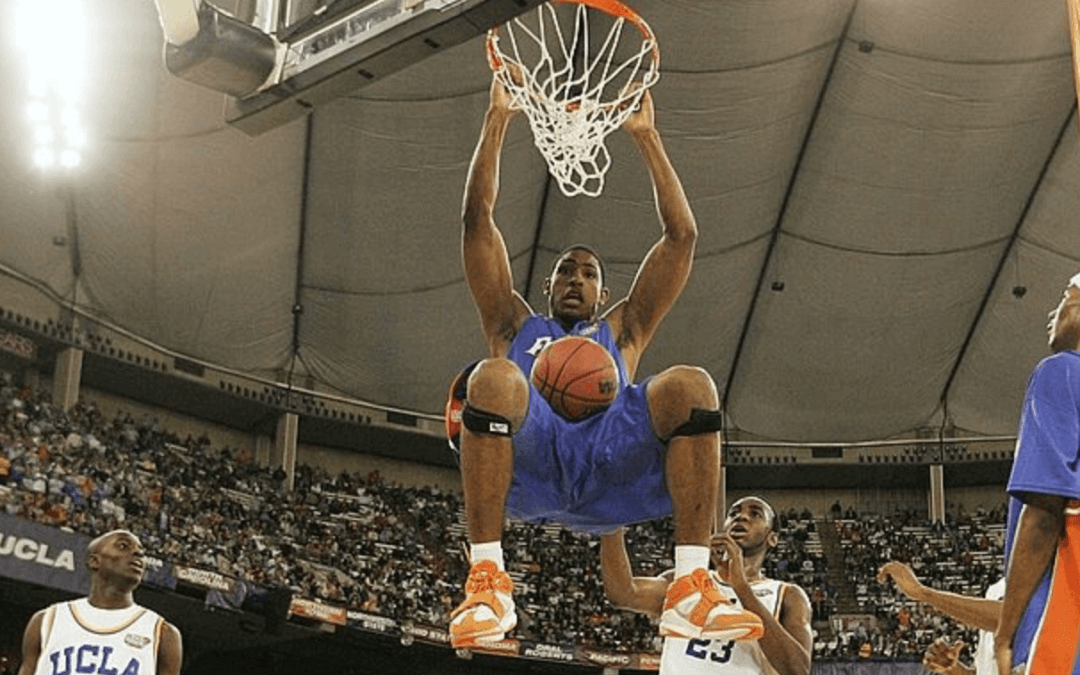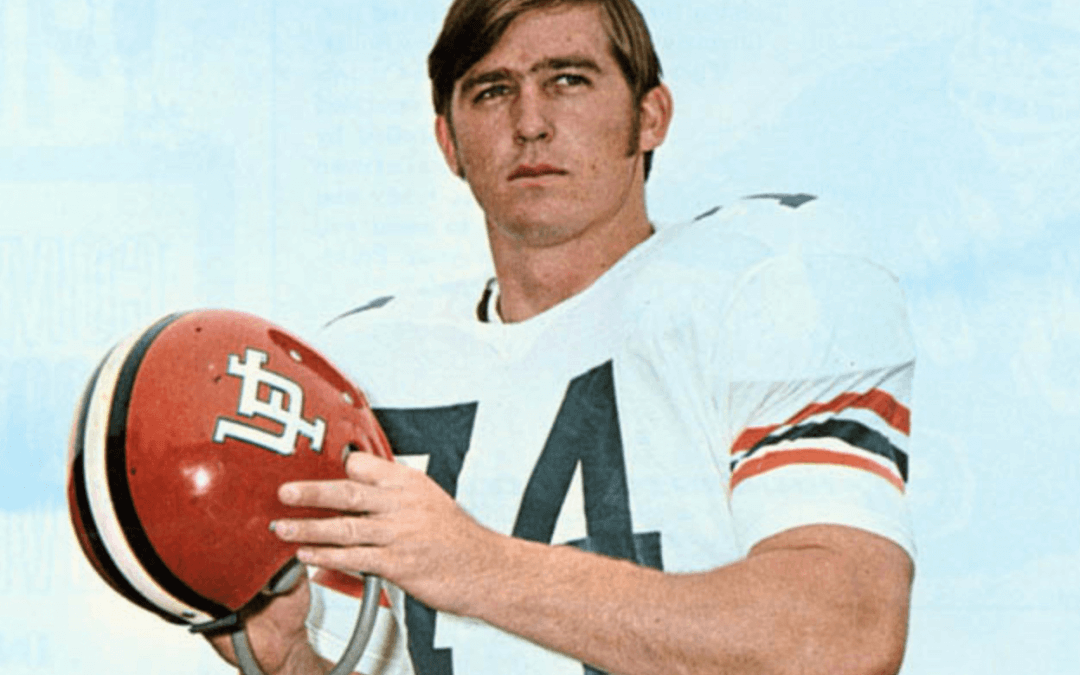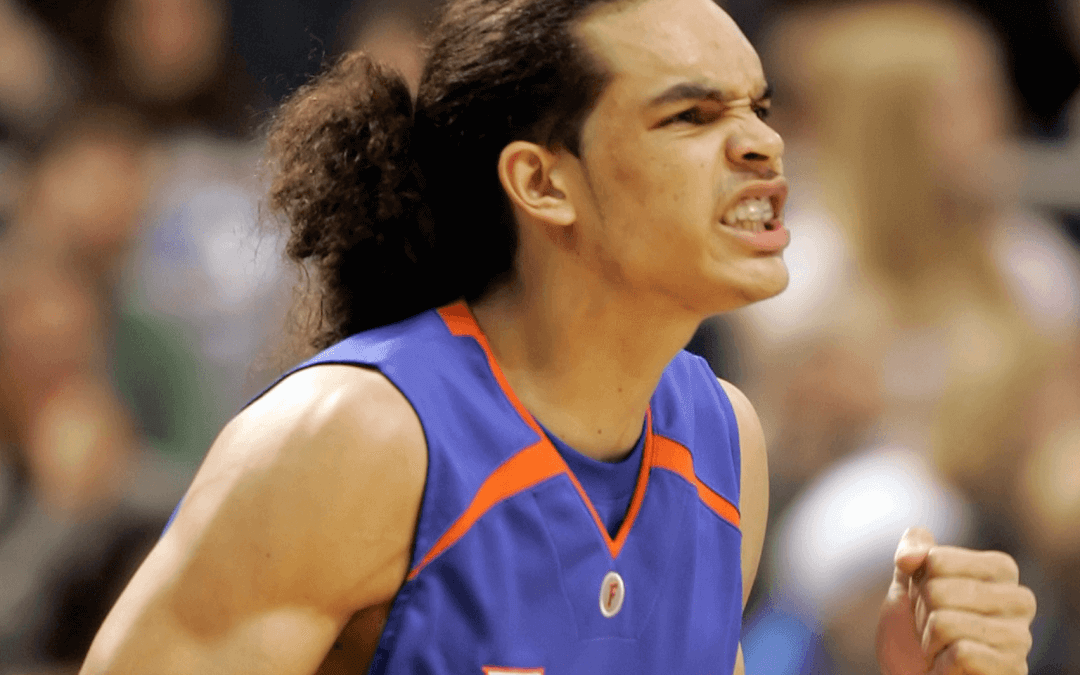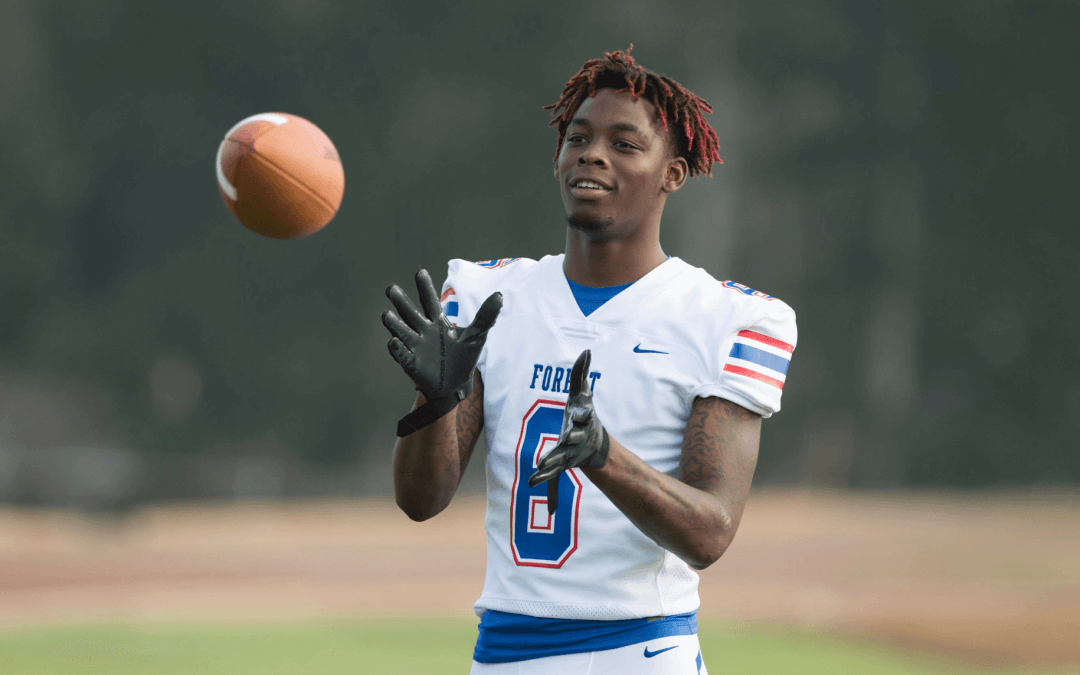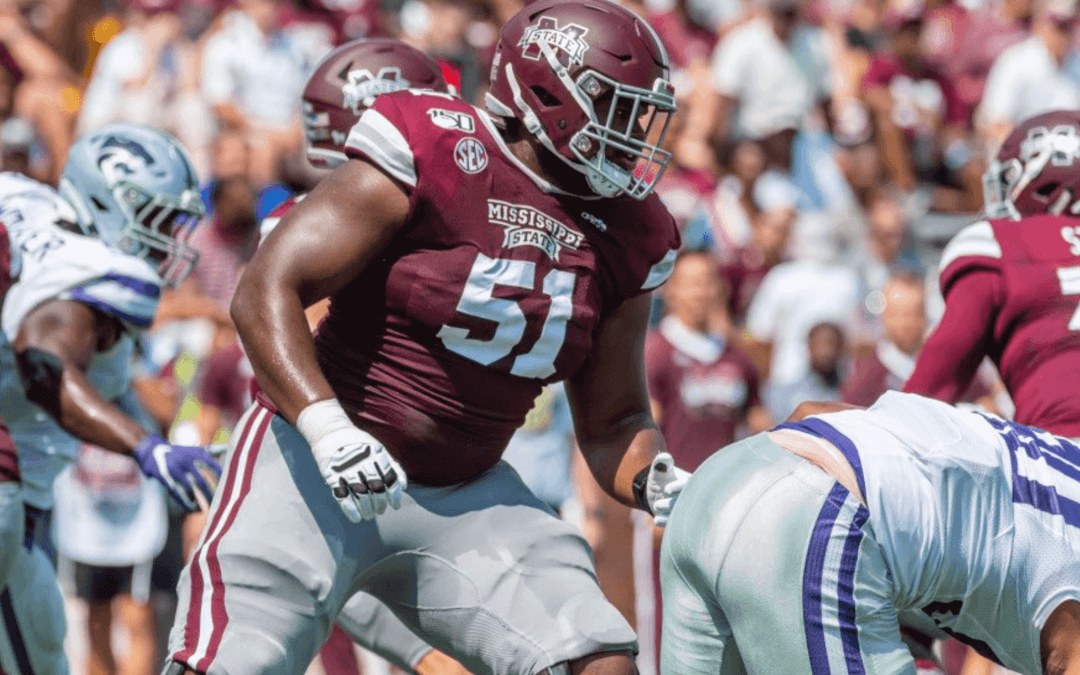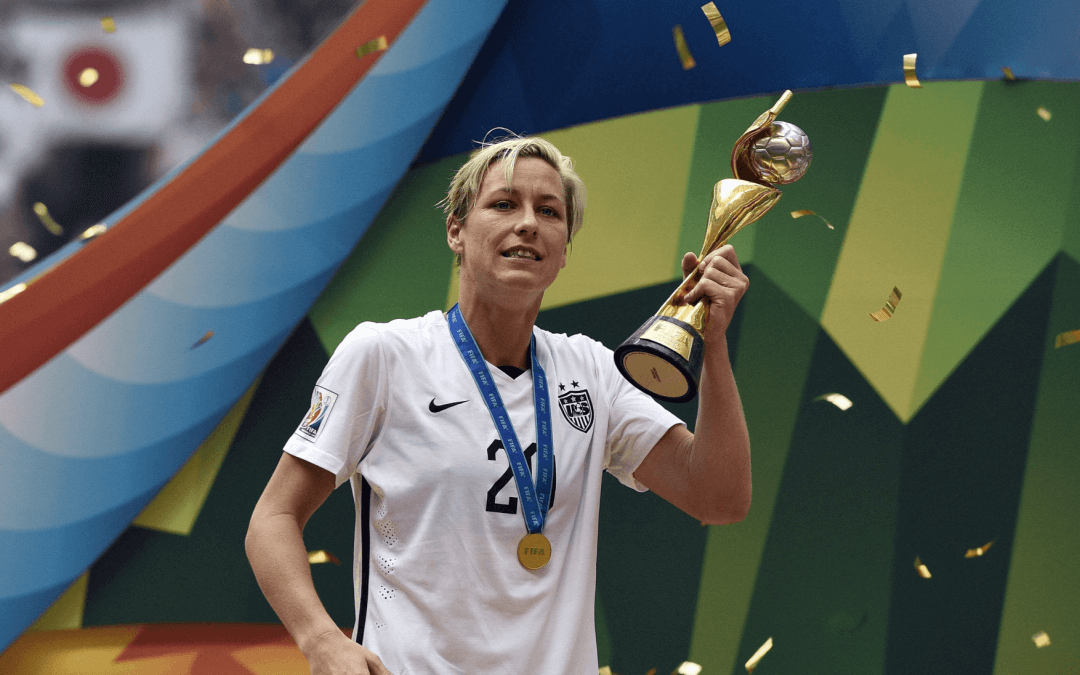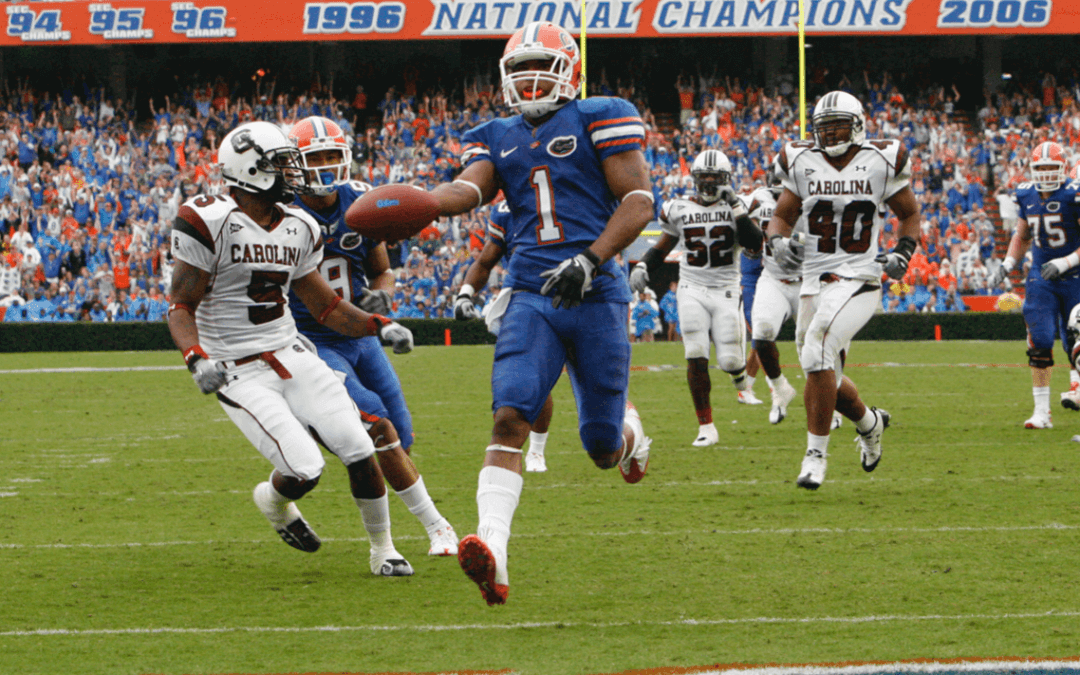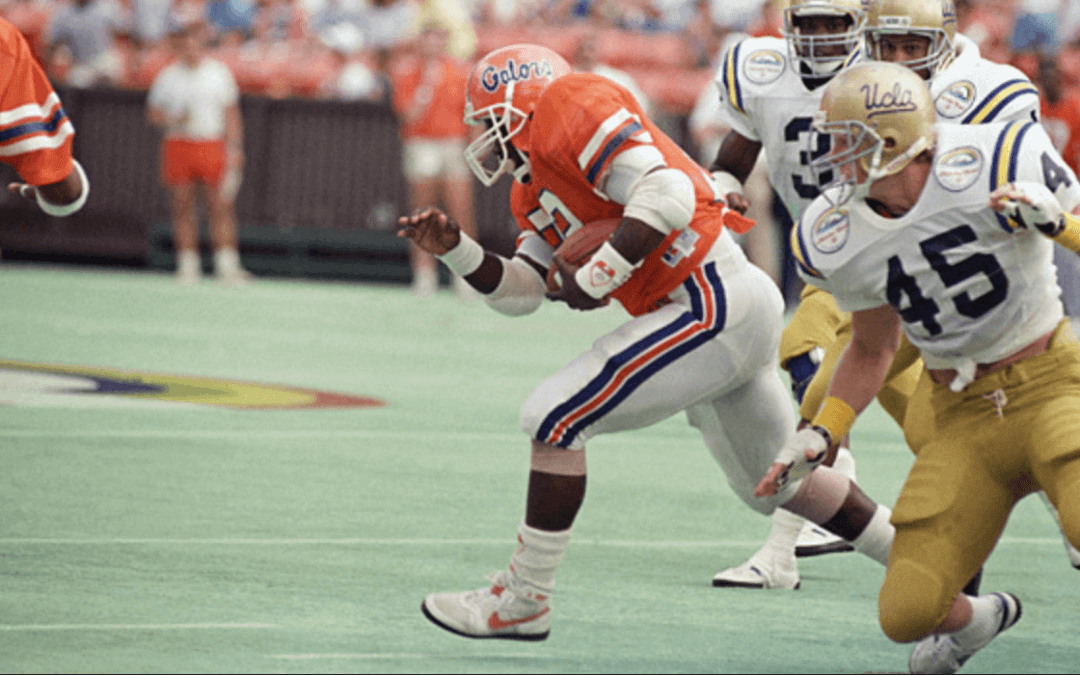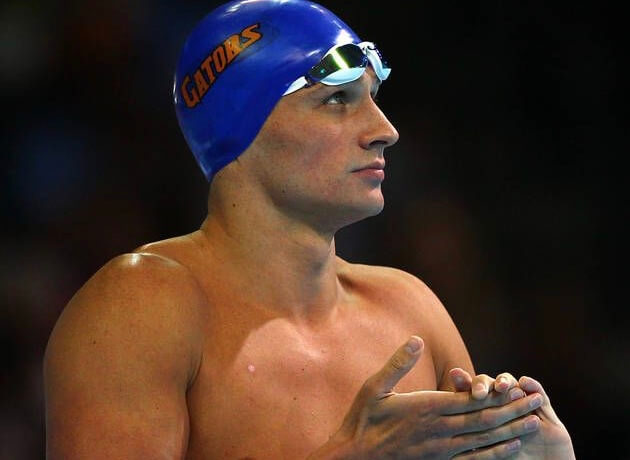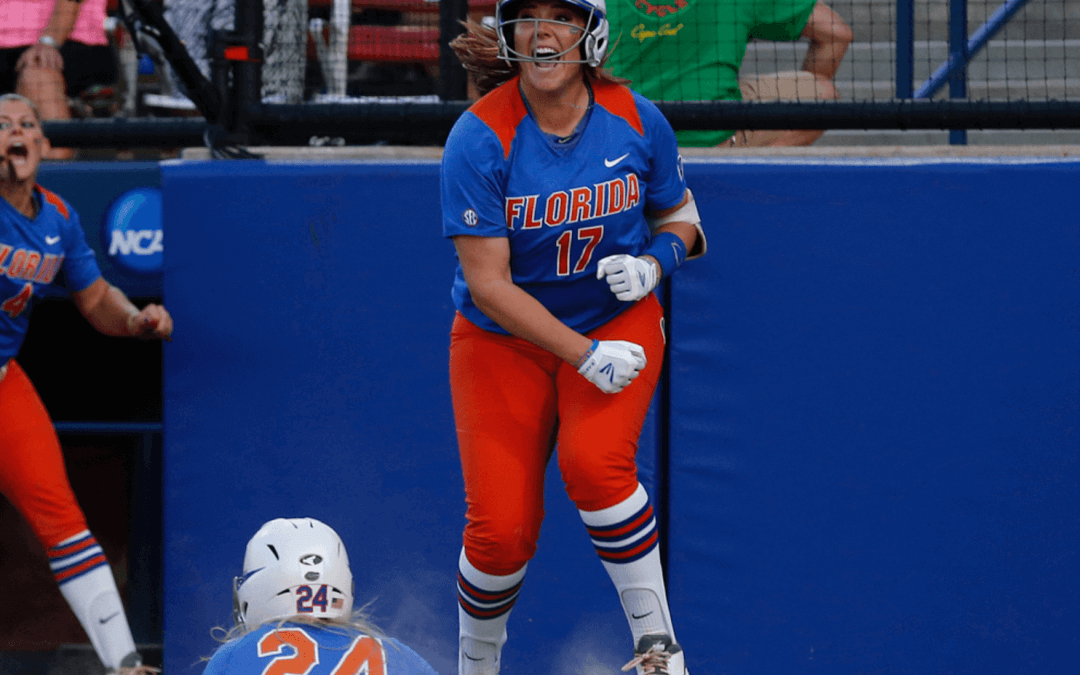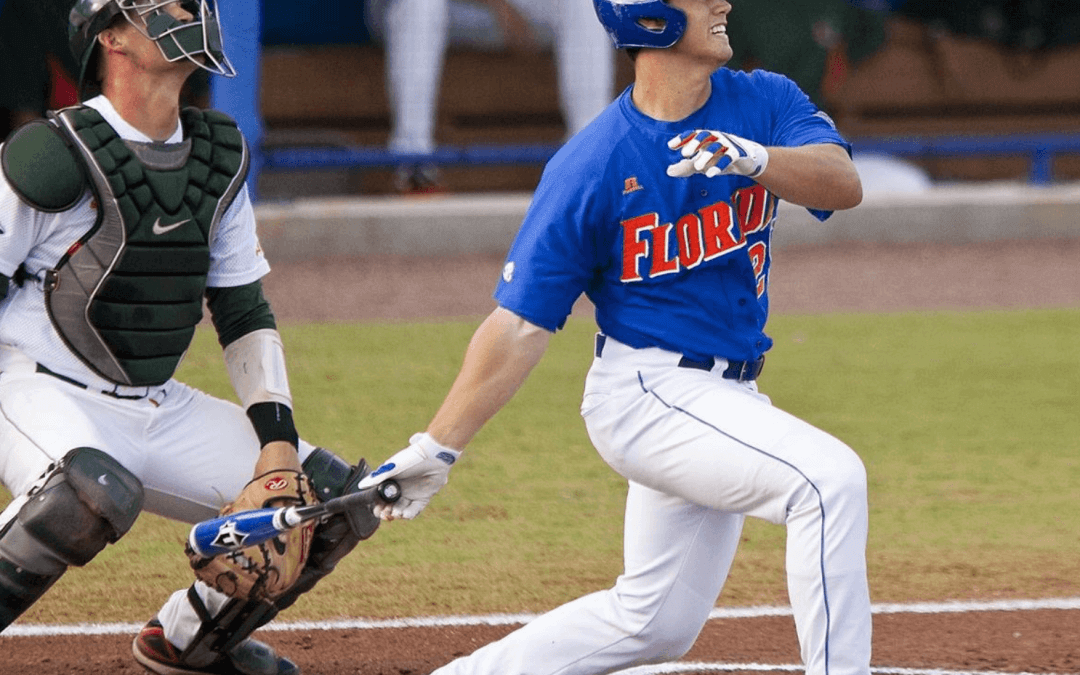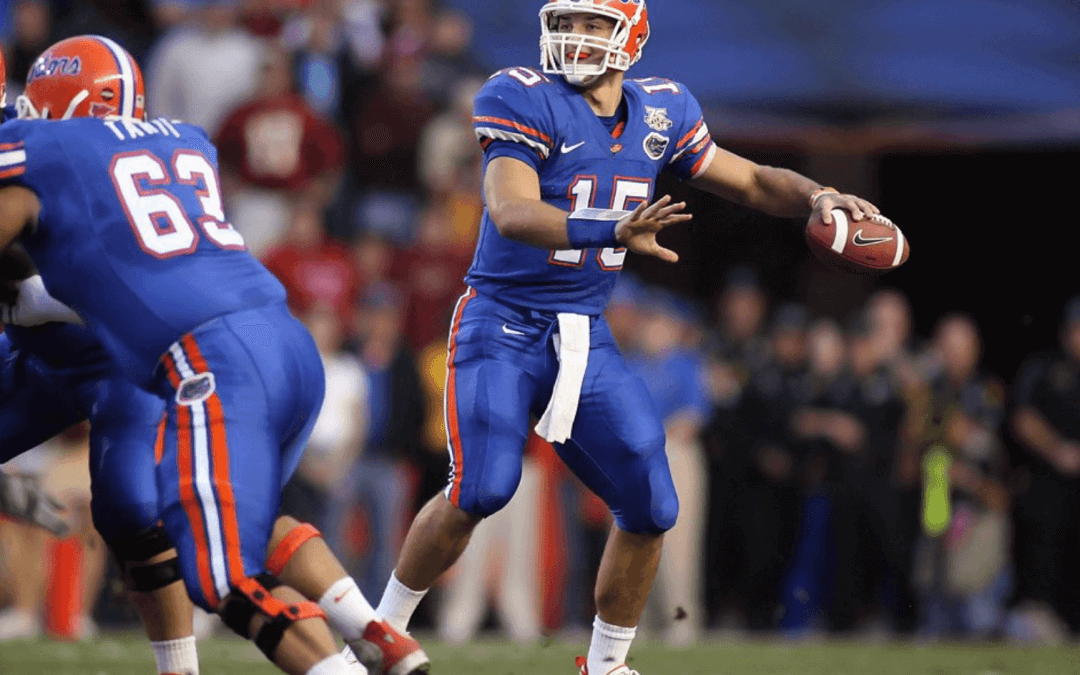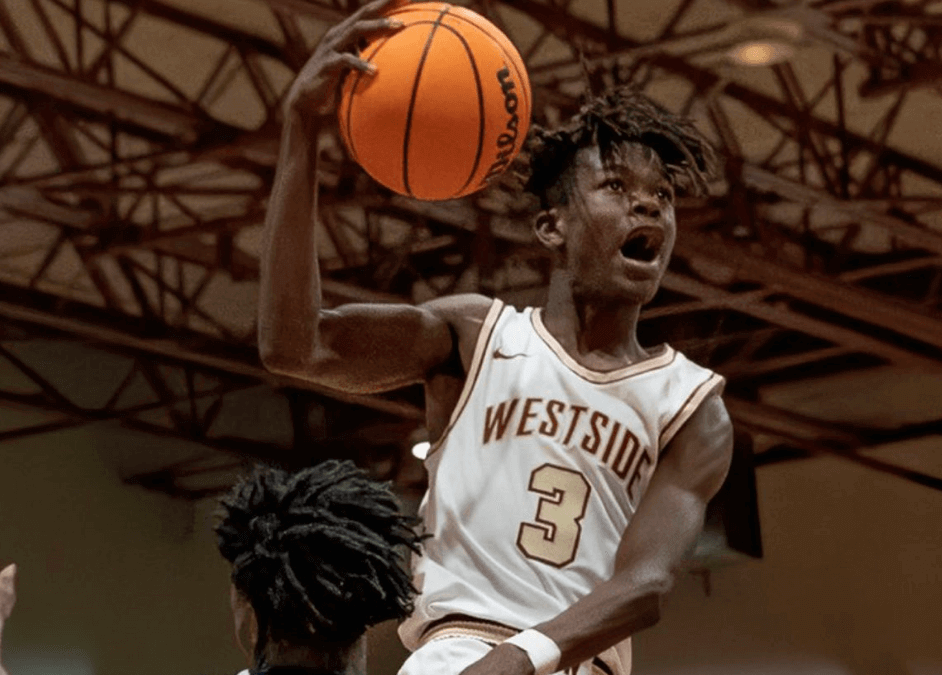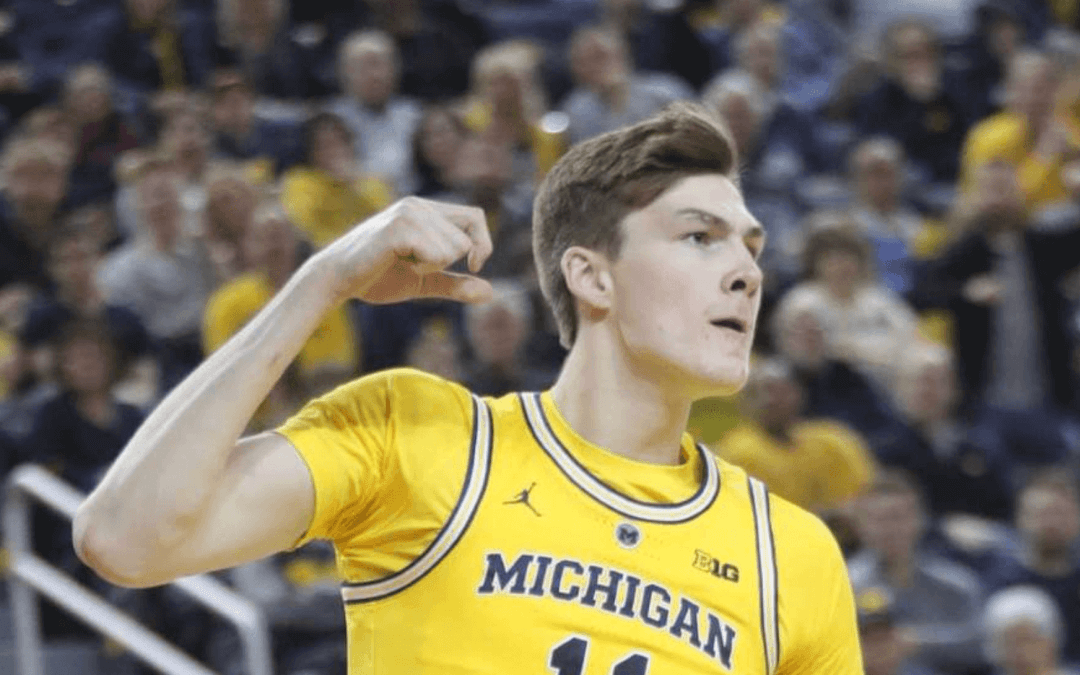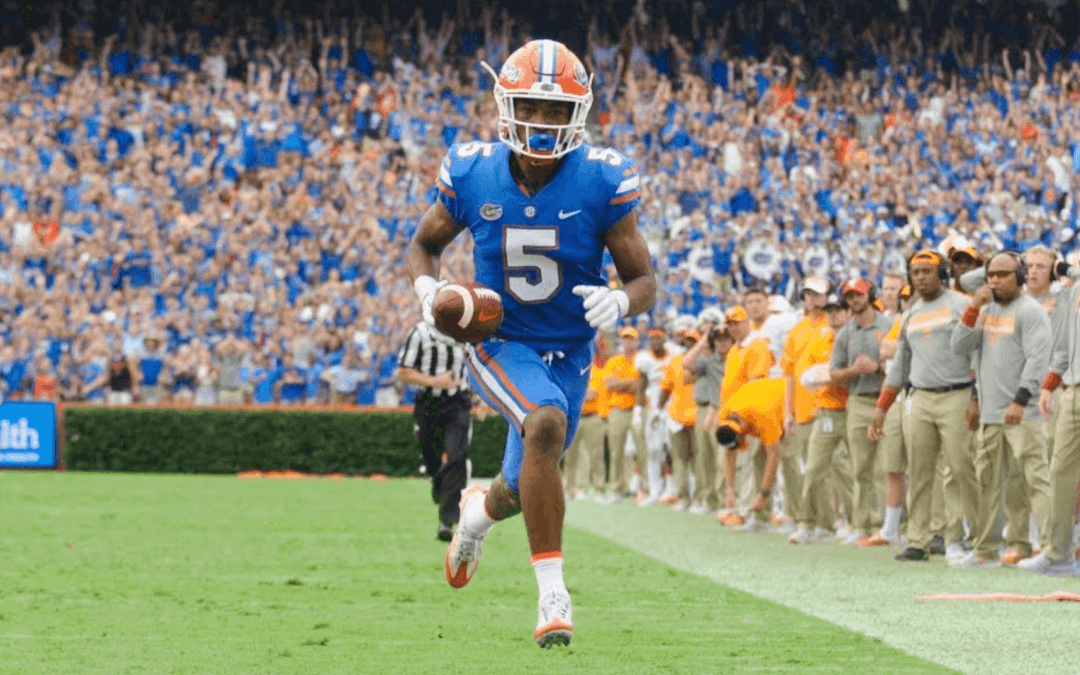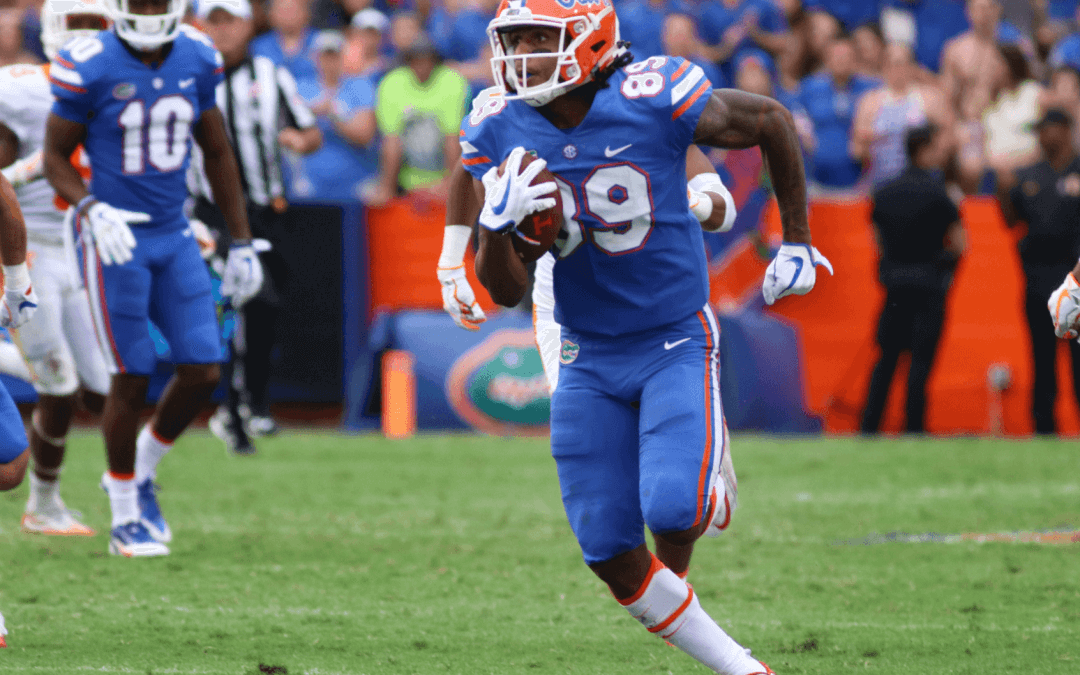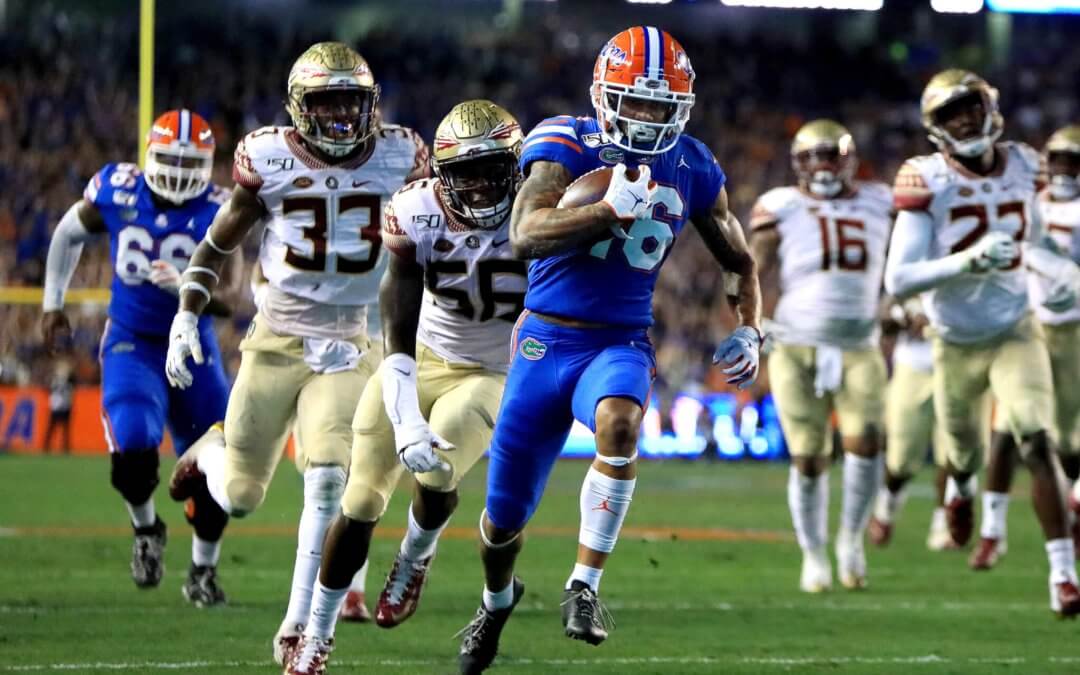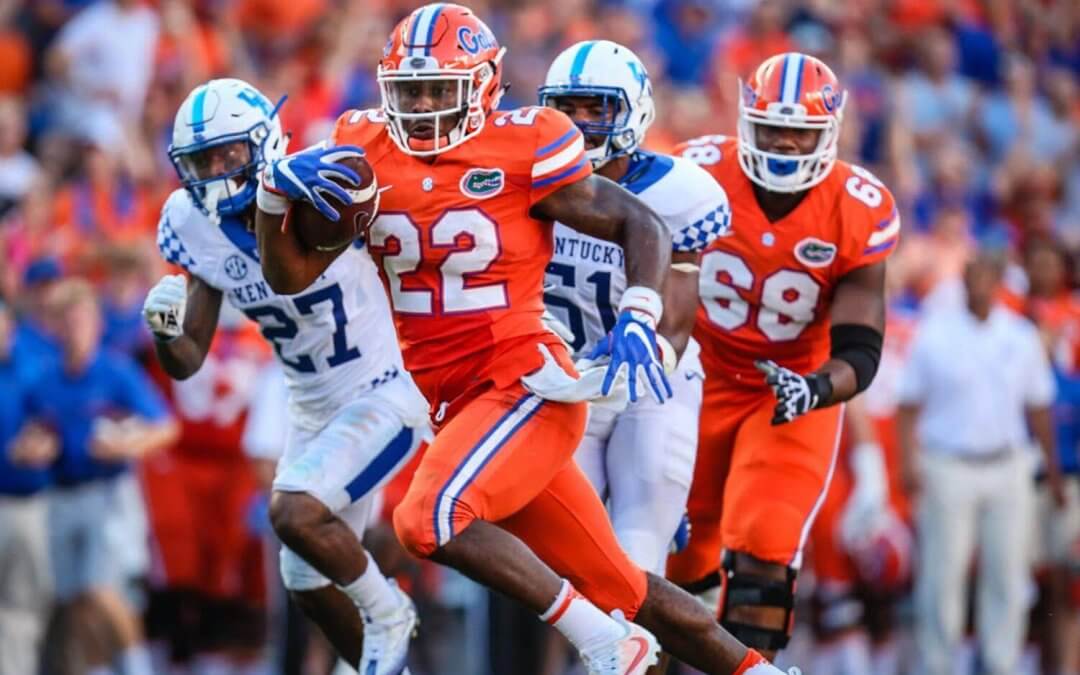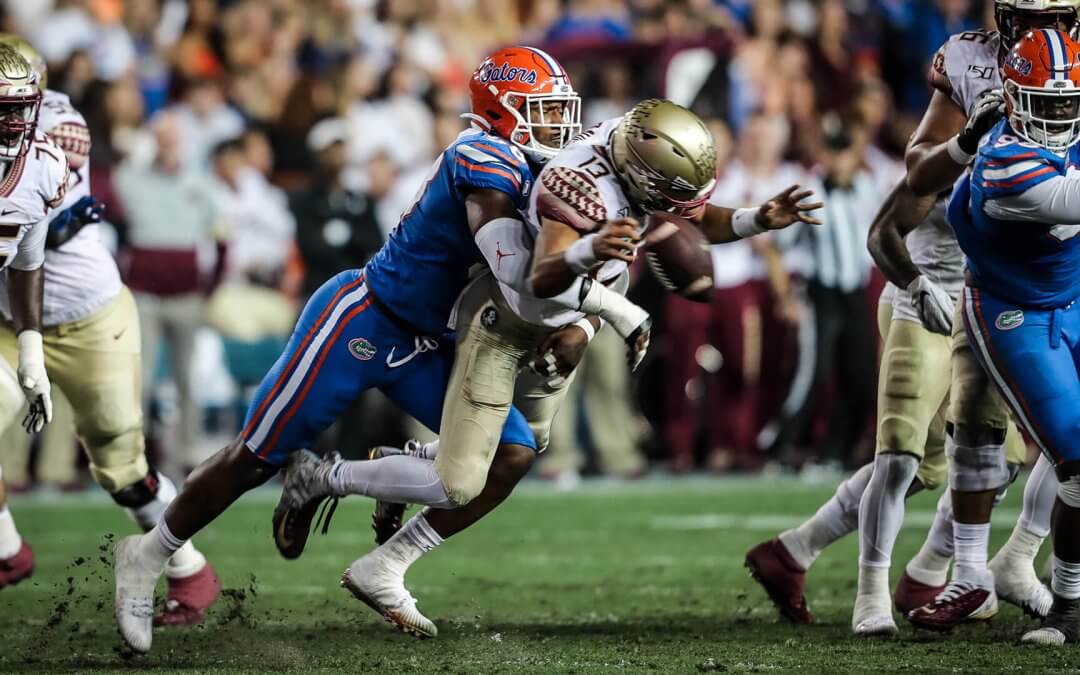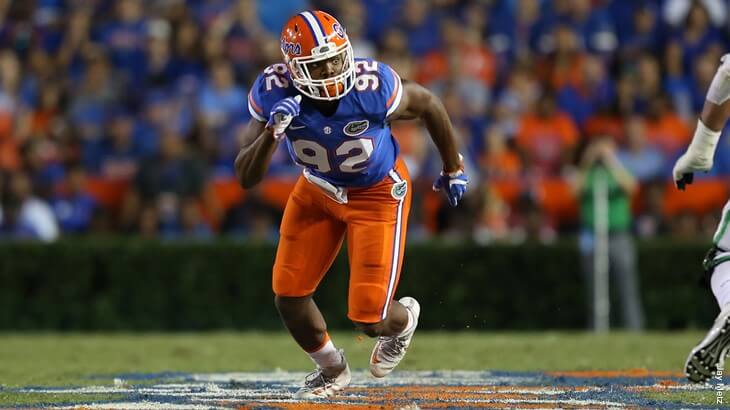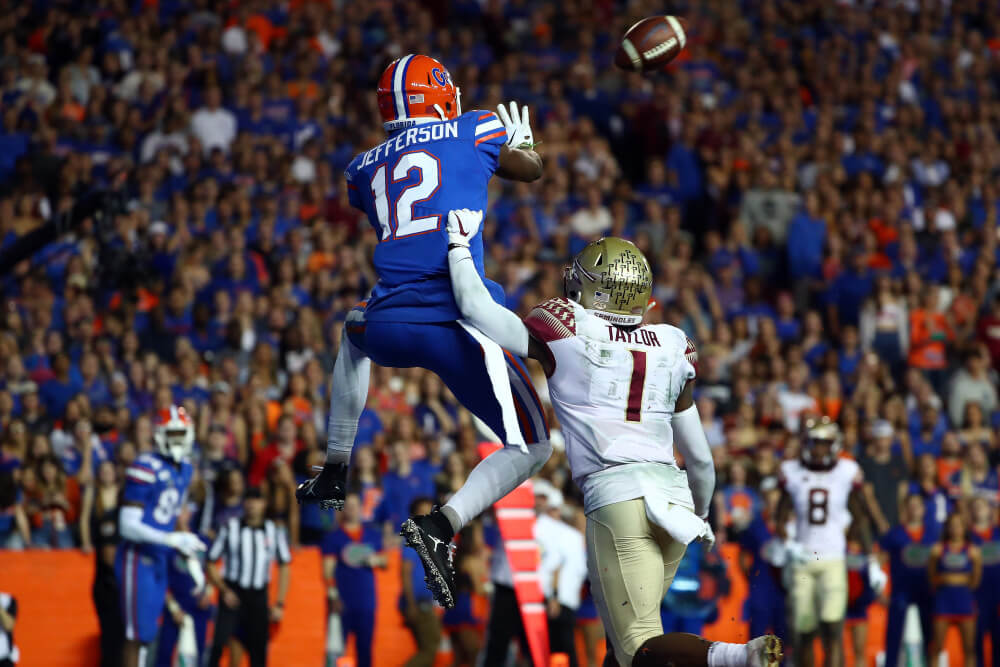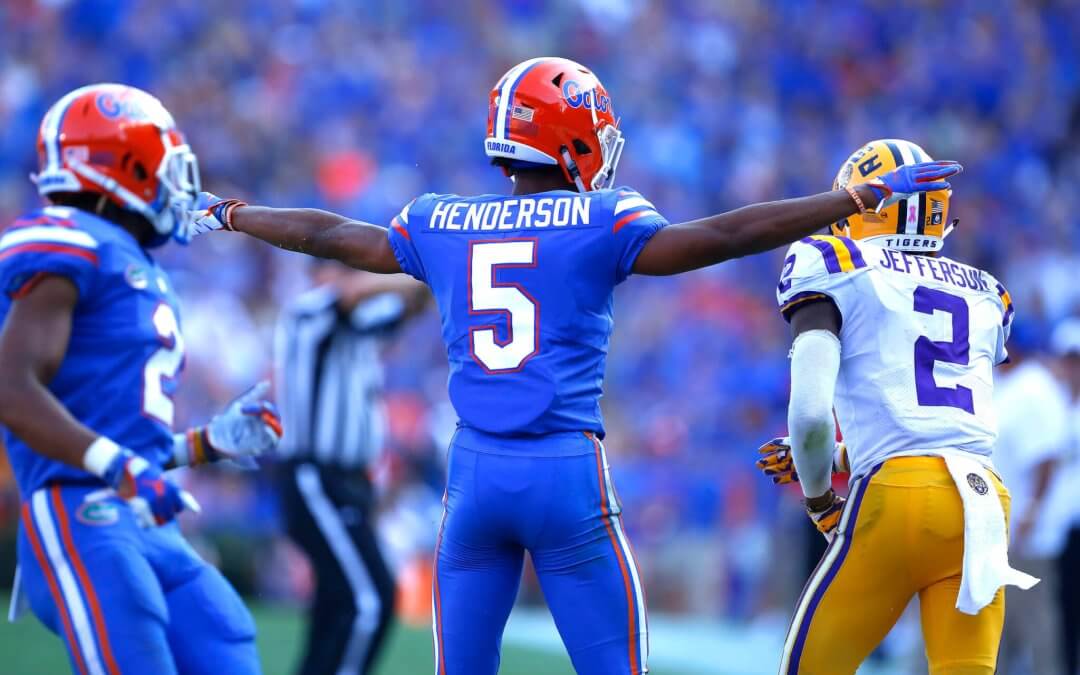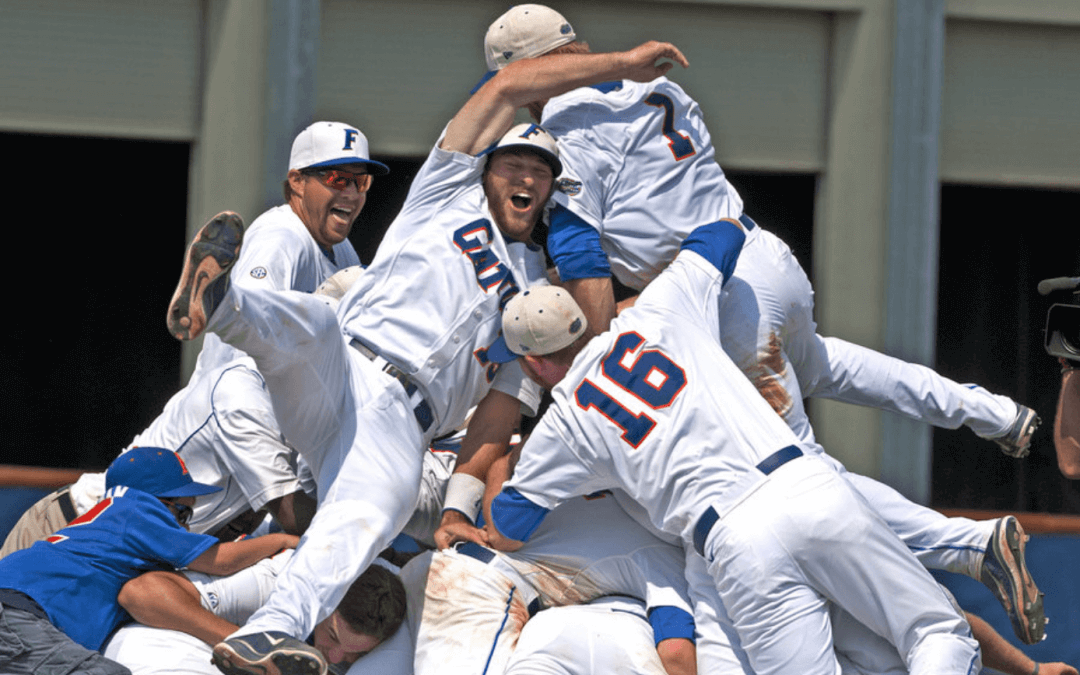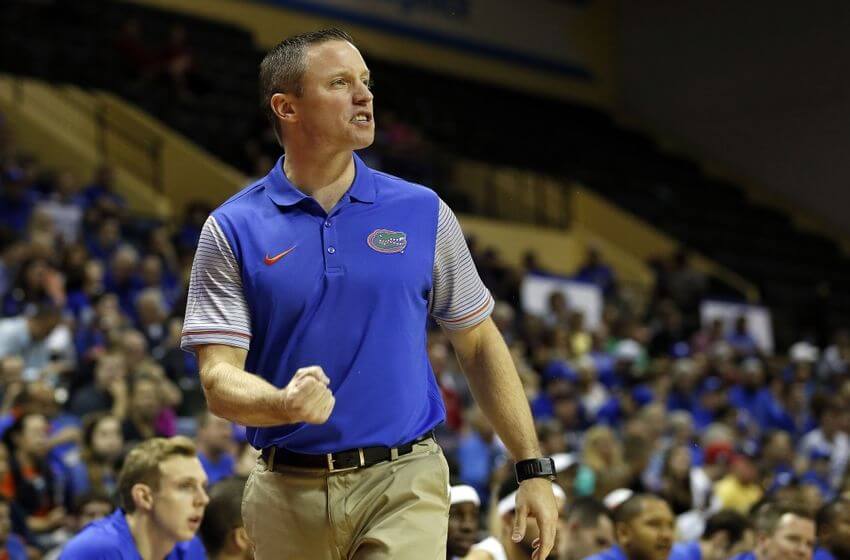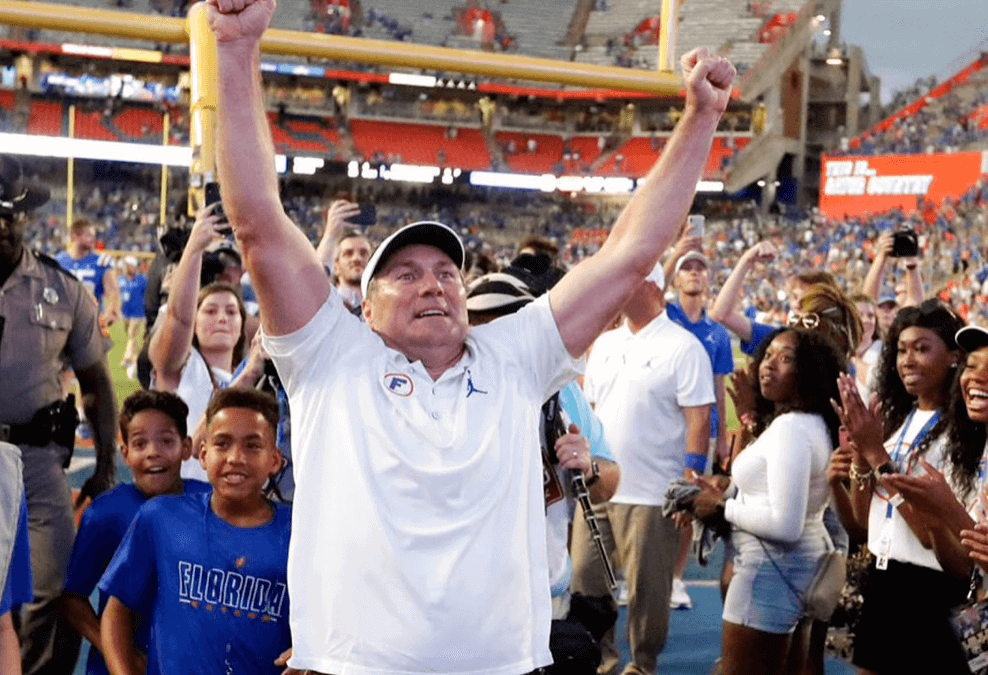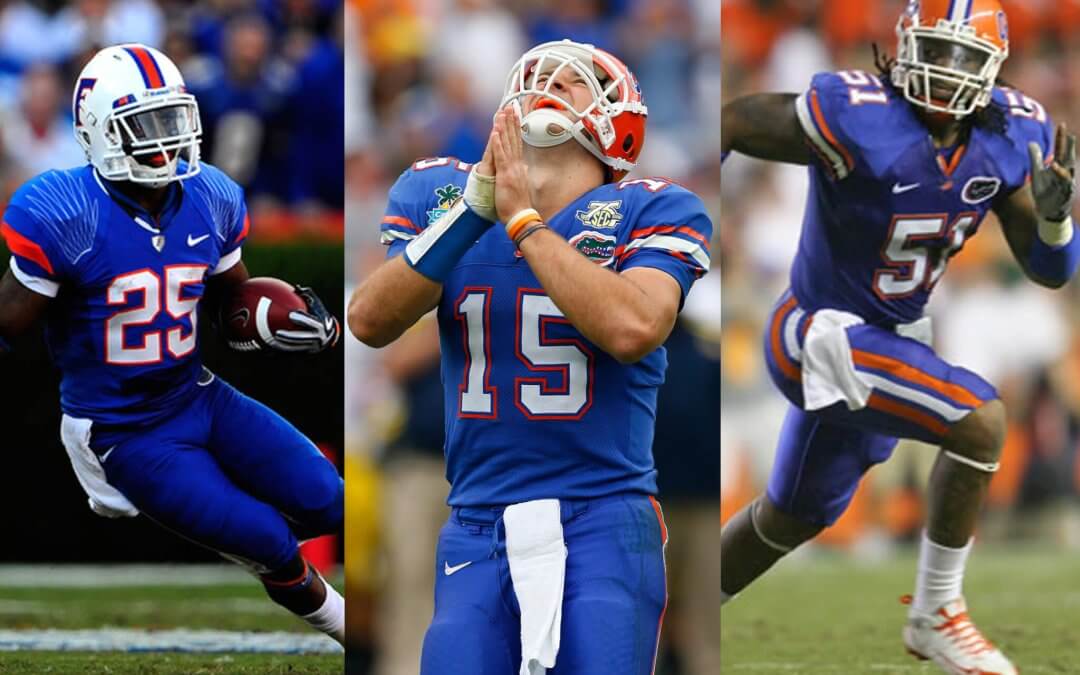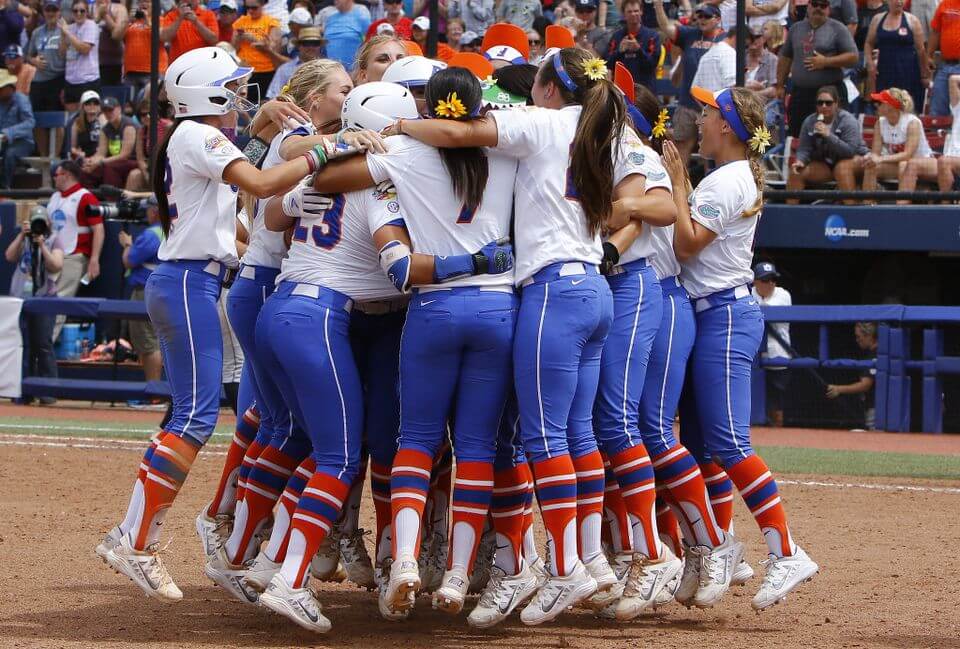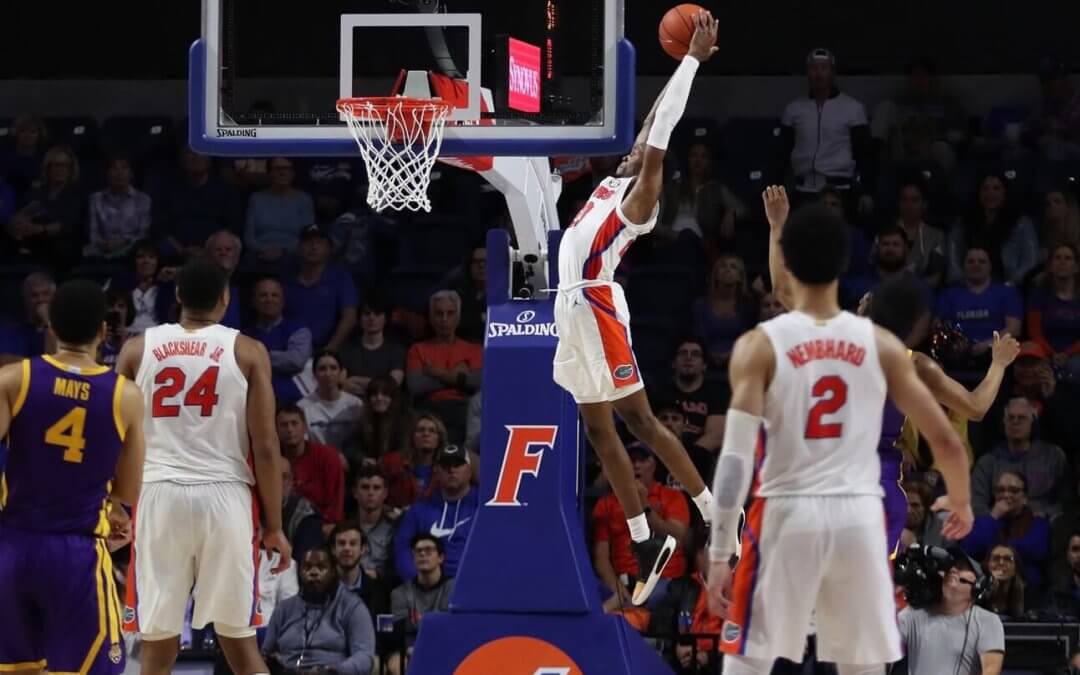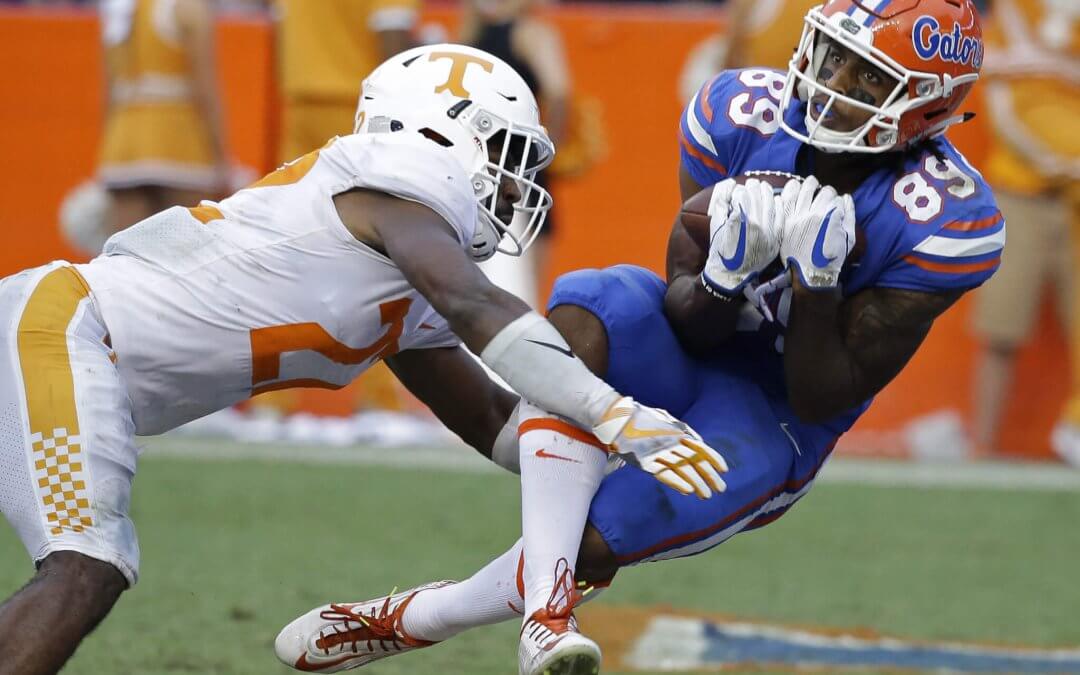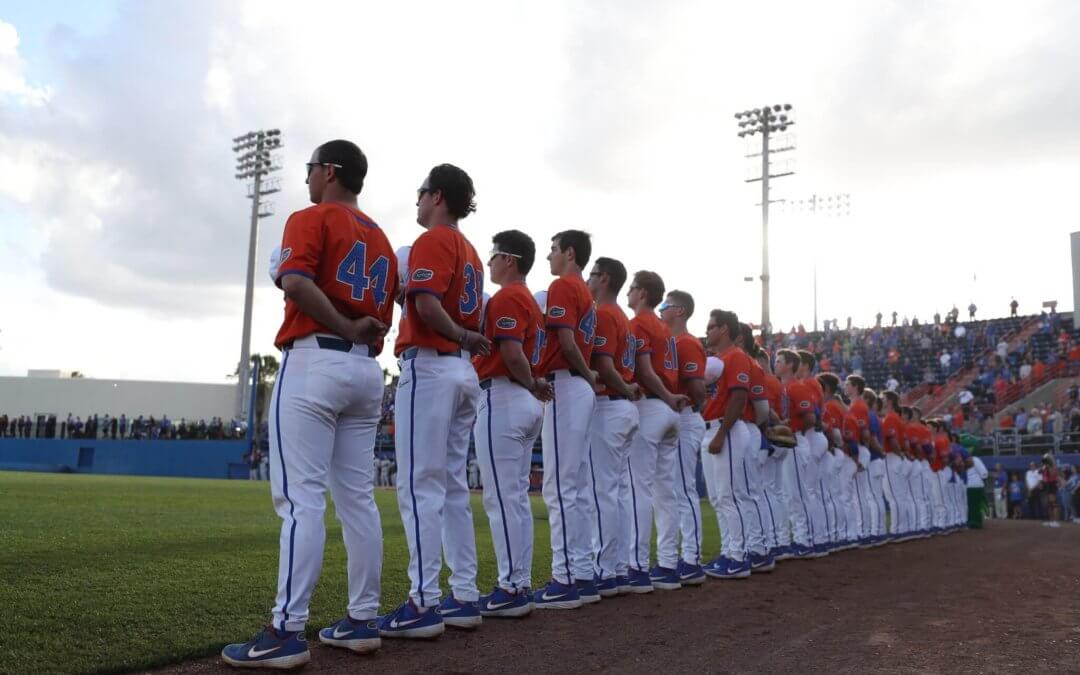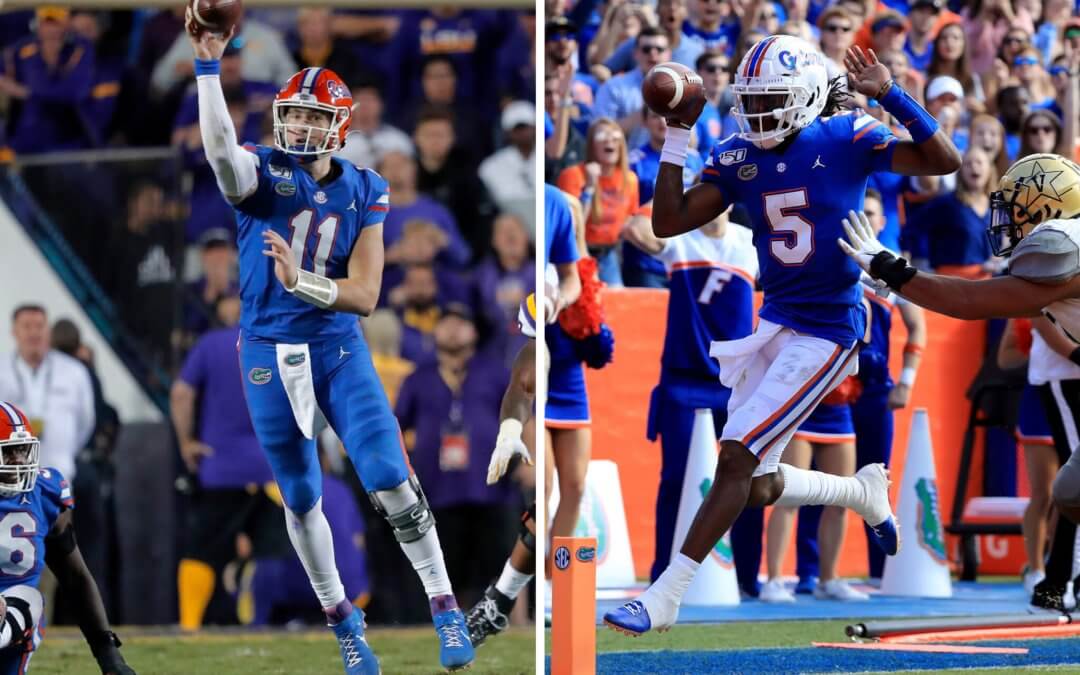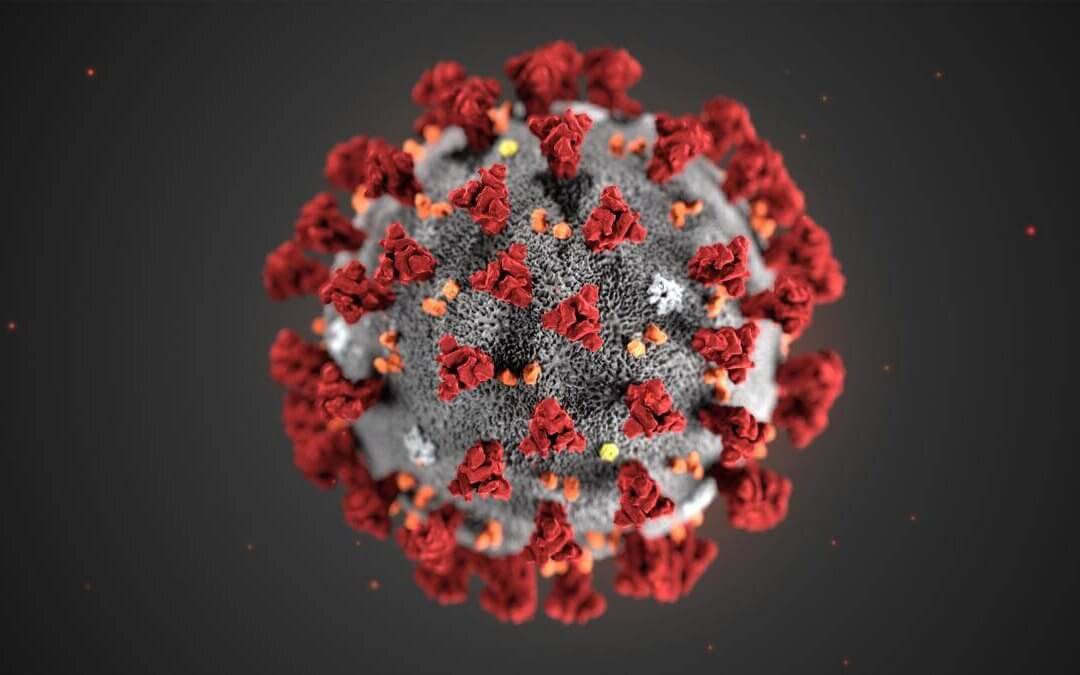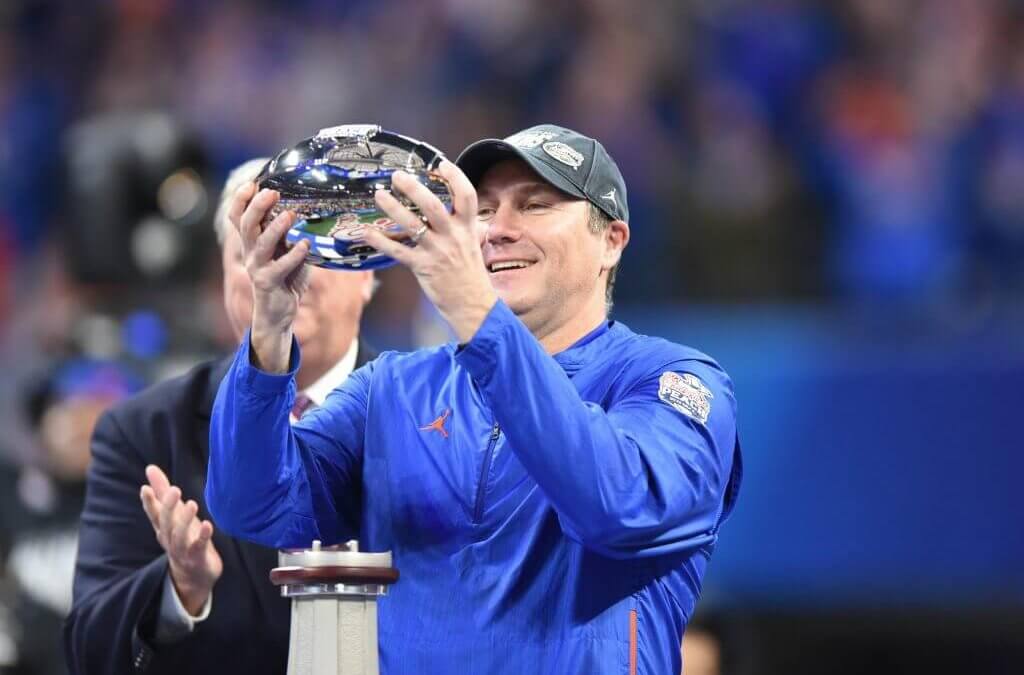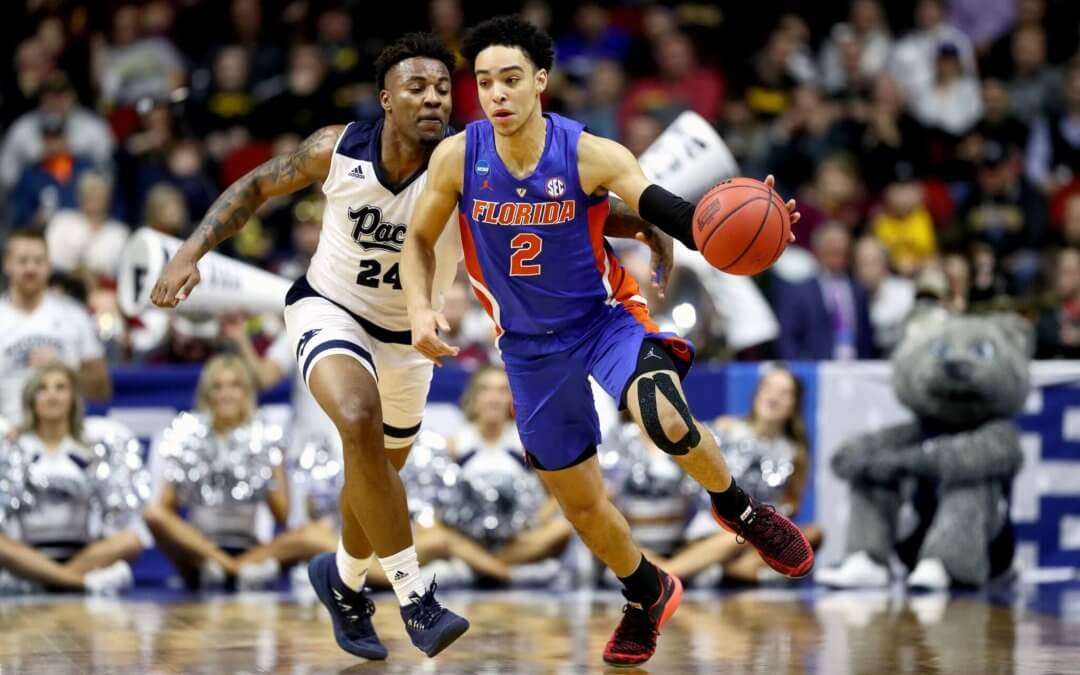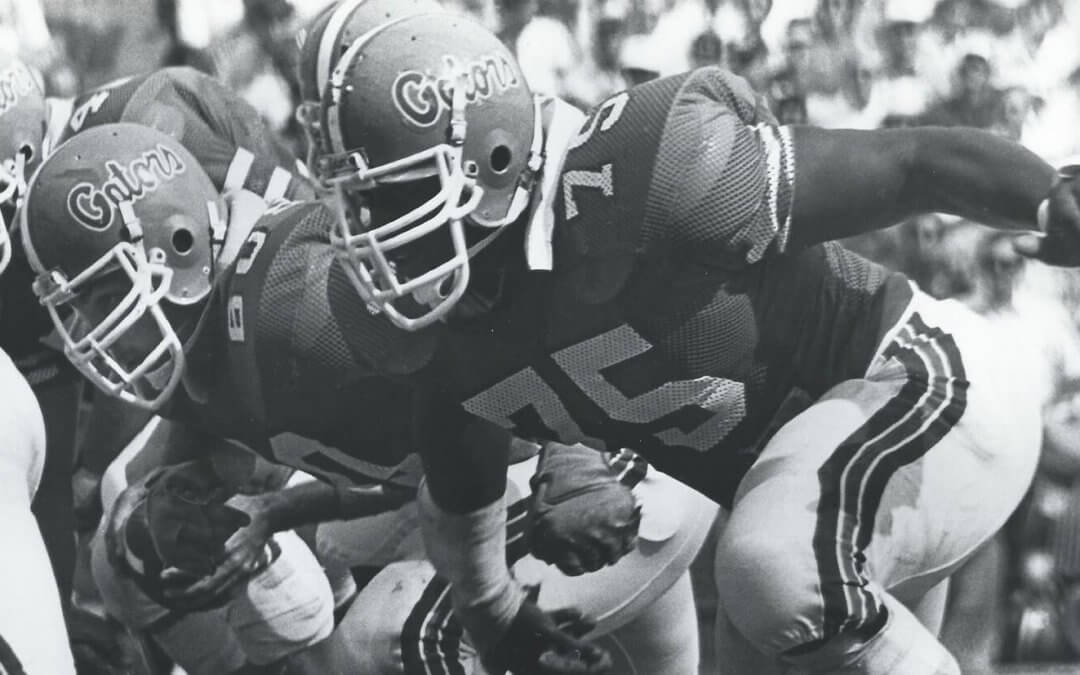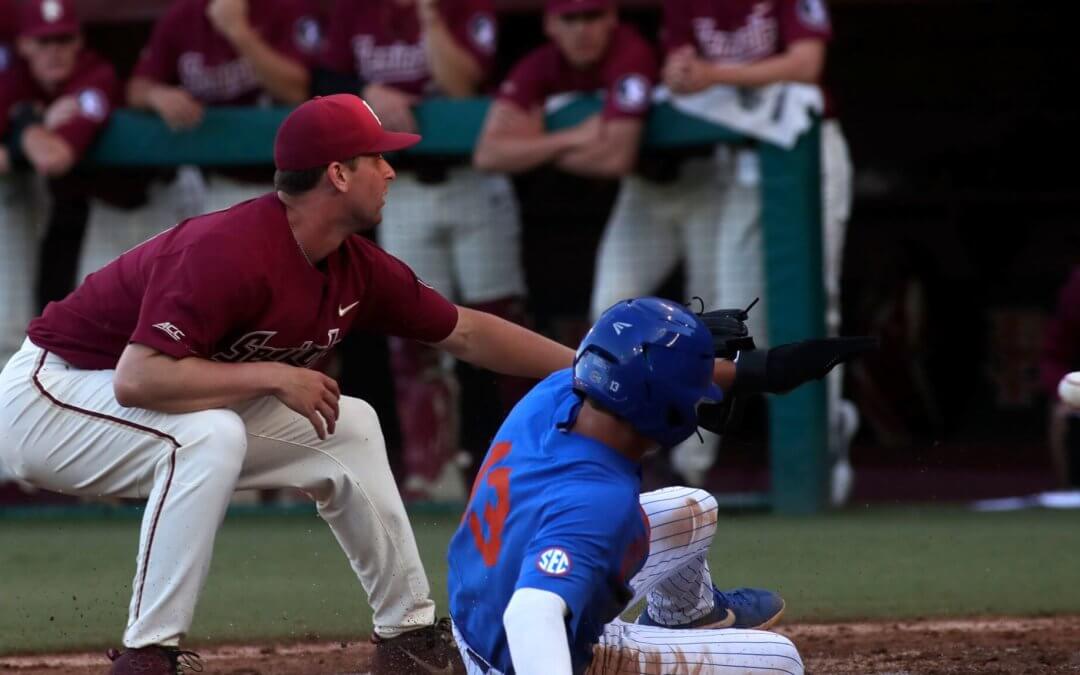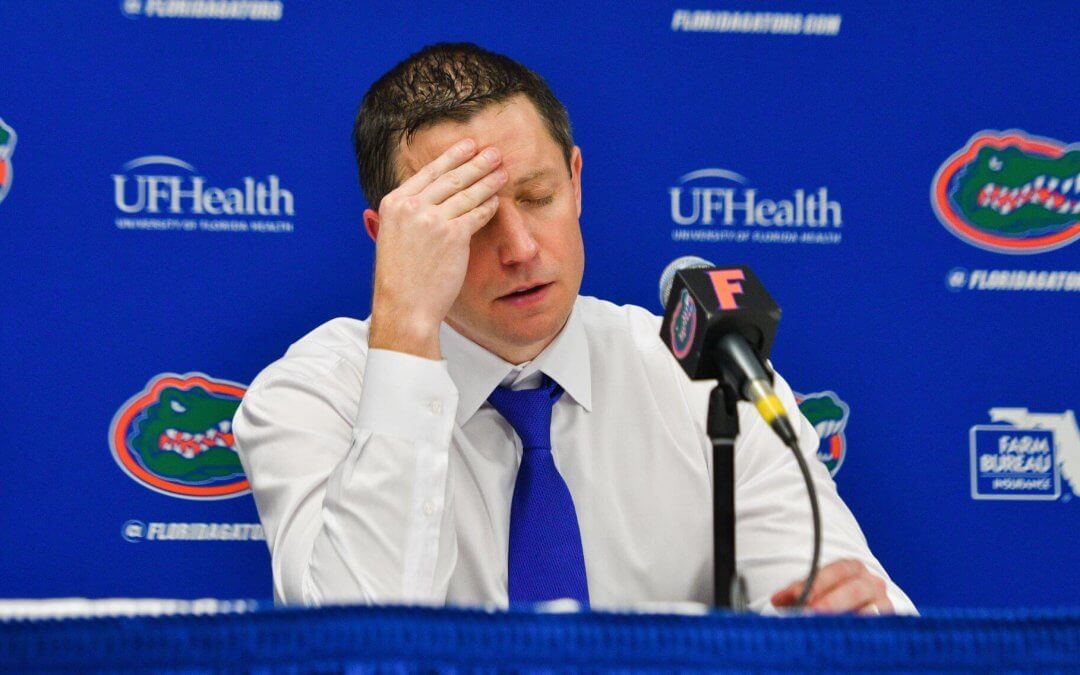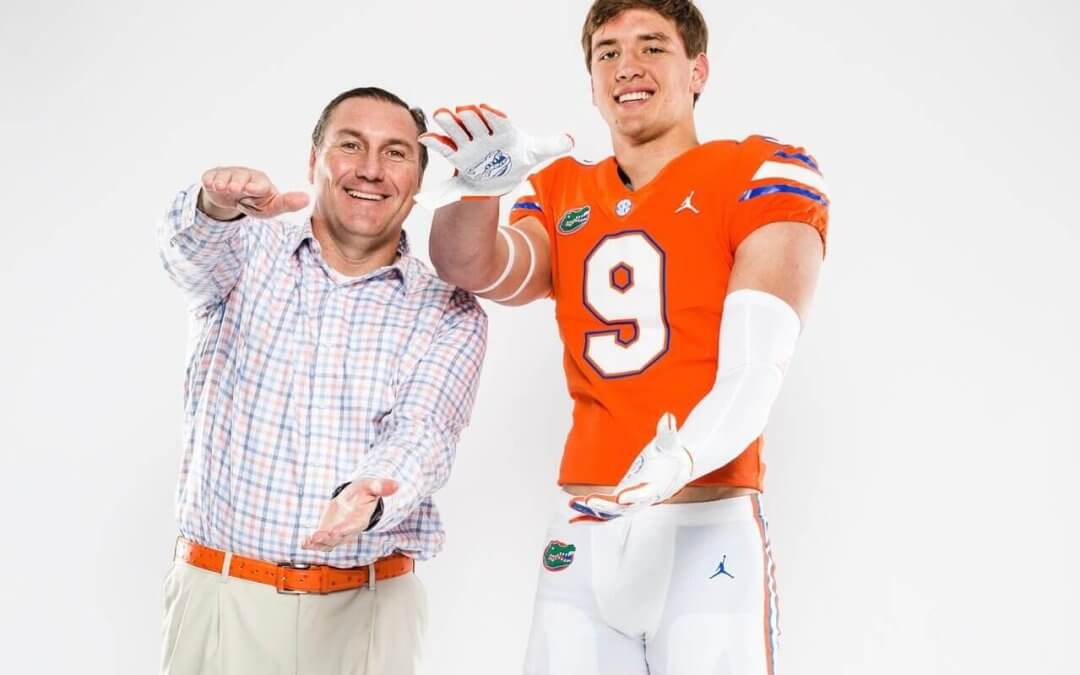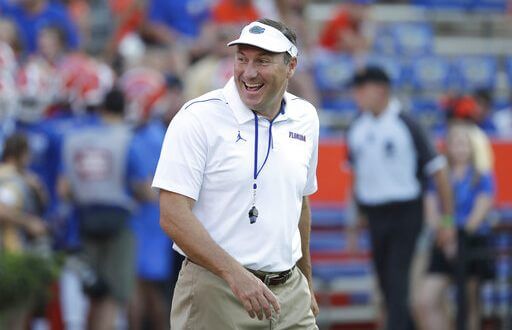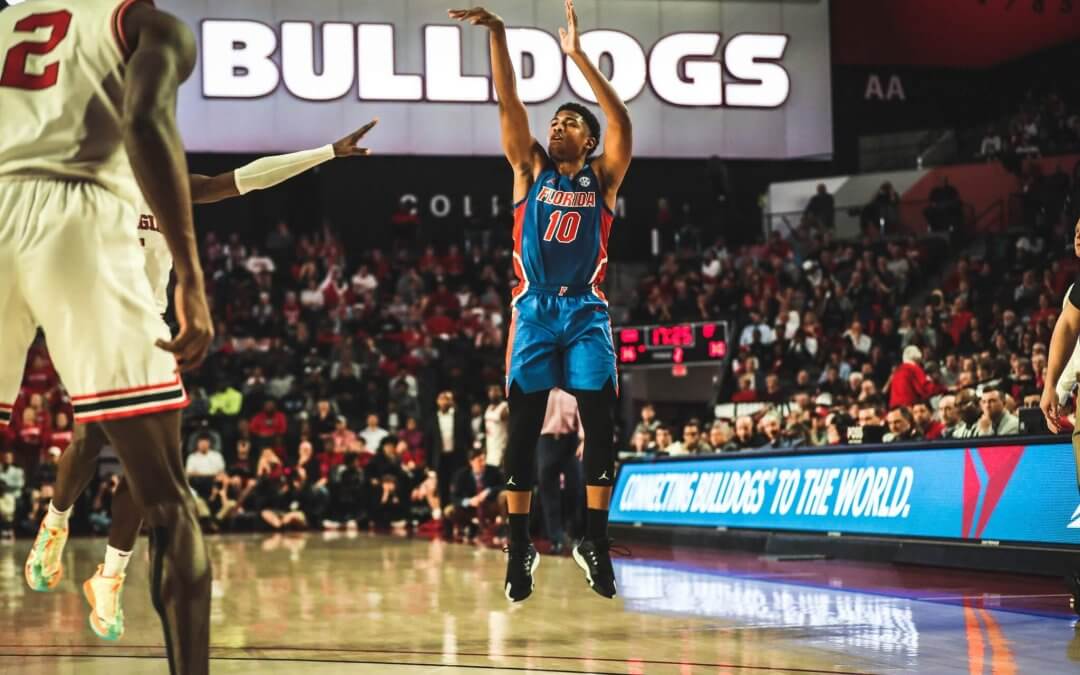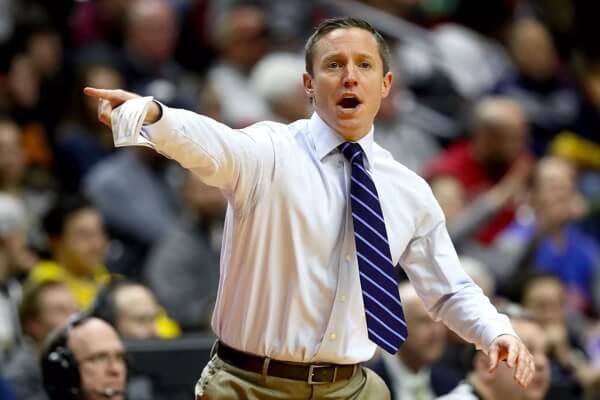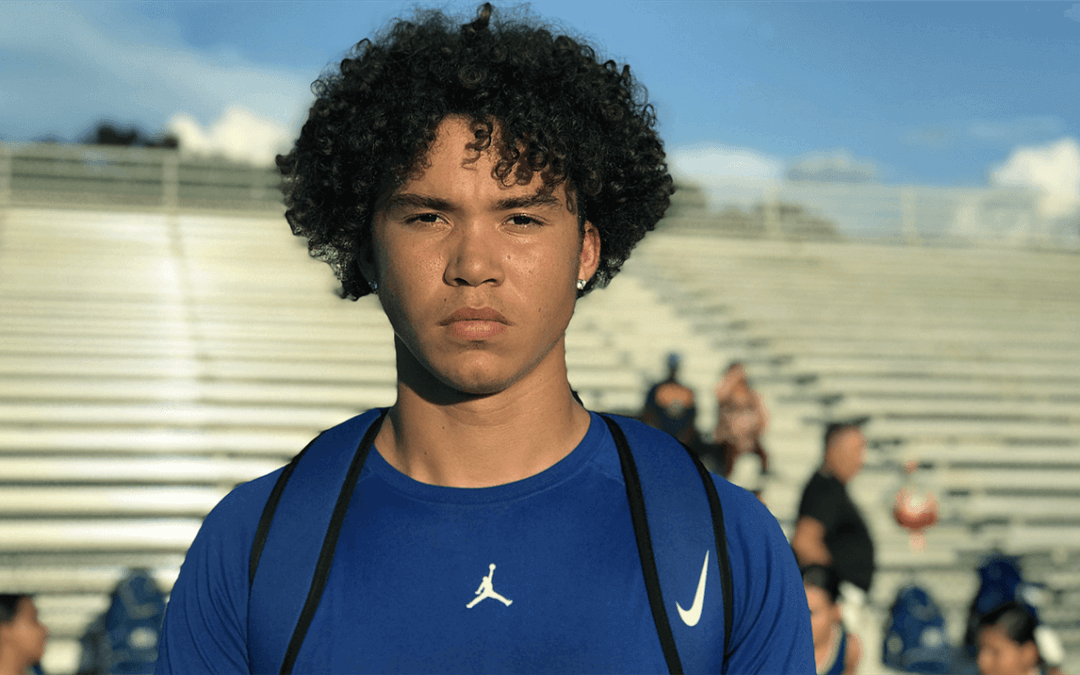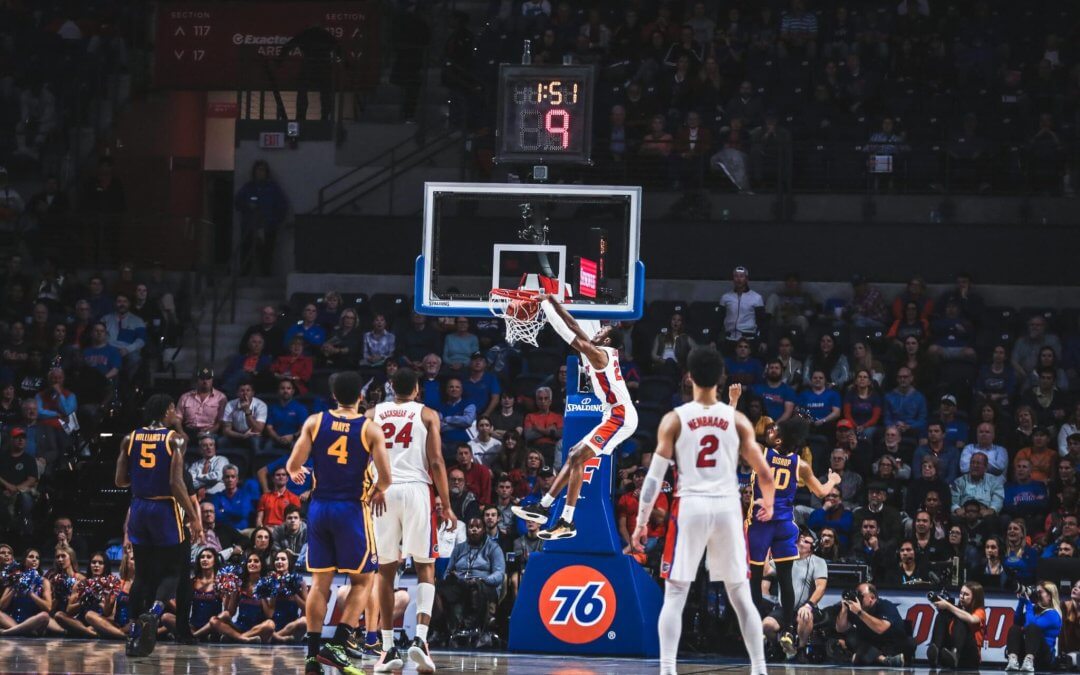Billy Napier is going to do things the way he wants to. But is that what’s best for the Gator football program? (Photo credit: David Rosenblum/Icon Sportswire)
Barring some pretty drastic turns in the NCAA’s ongoing investigation regarding Florida’s recruitment of Jaden Rashada, Billy Napier will be coaching the Gator football team in 2024. His plan, his vision, and his executive decision-making are going to be given the 2024 season to be seen through. So let’s start right away with the disclaimer that there’s no point getting emotionally revved up about what he does or doesn’t do this offseason, because it’s an exercise in futility.
At the same time, though, past results and logic tend to be the two best predictors of the future. And having just doled out that above disclaimer about Napier coaching in 2024, it’s becoming harder and harder to ignore the warning signs that he likely won’t last much longer than that.
After Florida lost to Arkansas on the first weekend of November in the Swamp, most fans started to agree that changes were needed. Eugene Wilson’s mysterious disappearance for most of that game and a pair of cataclysmic special teams meltdowns removed the final shreds of logic to the issues of the offensive coordinator duties and special teams coaching. Now, nobody would say the Gator defense has been a bright spot under Napier, but with a 29 year old first-year coordinator missing his best player for a third of the season does at least provide some reason to argue against the need for a change there. It’s on offense and special teams that changes are beyond desperately needed.
The problem of Billy Napier as a play-caller is only one of a laundry list of issues, though, and it’s best served to go into in more detail on another day. Because there were other glaring issues that were illuminated on Wednesday’s press conference. And they all stemmed from the same parent issue: the Gator football team is coming off of a historically bad two-year stretch, and Billy Napier is of the mindset that all he needs to do to turn the Gator program from a perennial loser into a winner is a small series of micro tweaks.
To be fair, Napier did more than nothing. He made a series of small tweaks, such as promoting Jacob LaFrance to the role of “General Manager” and Joe Hamilton to the Director of Scouting and Recruiting Operations. He also hired Gerald Chatman to replace Sean Spencer on the defensive line and Will Harris to replace Corey Raymond in the secondary. And then there were a few moves he made that seem to not serve much of a purpose other than to check the box of, “I made a change,” which defeats the entire purpose of making a change.
Most alarming of all, though, was the one position he didn’t address: the offensive line. There’s clearly nothing wrong with the fact that he’s paying two coaches to each do 50% of a job, and that under co-offensive line coaches Darnell Stapleton and Rob Sale, Florida’s offensive line surrendered a mortifying 3.25 sacks per game last year, which by the way is 114th out of 130 FBS teams. Nothing to see here, please disperse.
But more on that later. Let’s go back to Wednesday, and rehash Napier’s post-Signing Day press conference. (Yes, there still is a February Signing Day, even if Florida was dormant on that day beyond the inking of Washington transfer Asa Turner.)
There was a lot wrong with that press conference from hell. Let’s start small and work our way up to the biggest issue.
The very first question was: “How much money is it gonna take to compete at this level, is that going to be a problem at Florida?” Napier’s response:
The amount of time and energy that’s been put into creating a system that we have in place now, it probably took us 18 months to get a pulse on the landscape, what it would require to be competitive… and also more importantly, the type of people you want to attract to your program. We are built to be sustainable and repeatable, I can’t compliment Florida Victorious enough. There’s a ton of people who have invested a lot of time and resources, so we have great resources, we have an incredible alumni network, I think more importantly is the strategy behind it, how it’s constructed, what you’re using NIL for.
First reaction: well, you’re sure doing a great job building a sustainable program. Trevor Etienne and Princely Umanmielen will confirm that, after they both transferred to other SEC schools. Second reaction: taking 18 months to figure out how to operate in the new NIL world is a little hard to stomach when rival coaches Mike Norvell and Kirby Smart didn’t seem to need anywhere near that long to figure those same things out. But to be fair, it’s a little more complex than that.
Napier has to walk a pretty thin line here between promoting Florida Victorious, the Gators’ NIL entity, and breaking the NCAA’s new NIL laws. His program is already under investigation for that with its recruitment of Jaden Rashada, and for all we know, he’s already committed a bevy of violations. We’ll have to wait and see.
What we do already know, though, is that Florida AD Scott Stricklin and the UAA simply aren’t interested in driving people toward Florida Victorious, and bolstering the Gators’ NIL operation. We know this, as opposed to suspect this, because they’ve been aggressively encouraging top donors to donate funds for the Ben Hill Griffin Stadium renovation– a project that, by the way, probably 90% of Gator fans vehemently oppose– and those dollars that get sent for that project are dollars that take away from Florida’s NIL operation. Whether Stricklin and the UAA are just too stupid to realize this or they do realize it and don’t care (and it’s probably the latter) doesn’t make a difference, as by taking these actions to prioritize a stadium reboot over fielding top talent, they’ve left Napier to sink or swim on his own.
That’s probably what led to the follow-up question: “Is there an amount of money that Florida needs to compete with Alabama or Georgia?”
Poor Billy Napier. There are plenty of things to criticize him for, such as his play-calling, but what an absolutely truculent thing for Stricklin to do, feeding him to the wolves like that. Because it’s a perfectly legitimate question for a reporter to ask, and yet it’s one that Napier has to answer very carefully– both in terms of not breaking NCAA rules or antagonizing his preppy bosses.
Napier’s response was to compare each recruiting cycle to the market, which is very fluid. Which isn’t really wrong. And naturally, Napier won’t just throw out a number to appease the question.
However, the most truthful answer would have been: “No real number, but I need my AD to stop encouraging people to donate their Gator sports-allocated money to the UAA for a stadium renovation that nine out of ten fans don’t even want anyway, and redirect that money to Florida Victorious.” Naturally, Napier isn’t going to throw his bosses under the bus— and to be fair, it’s likely that he does realize that, for as large as the UF Alumni base is, those numbers do no good in the NIL race if the UAA is actively telling them to use it all on a non-NIL function. But if he does realize this, then he needs to make sure his bosses do. Because it doesn’t seem like a coincidence that Florida Victorious actually has fewer total members than its forerunner Gator Collective had in its final days.
The real alarm bells with this press conference, though, came a few minutes later, when the subject of new co-defensive coordinator Ron Roberts came up. “I don’t think executive HC is a title I’ve seen before,” a reporter stated. “Are there any specific new duties for that?”
Napier’s answer:
Yeah, I mean the head coach for the defense, basically a guy who oversees that side of the ball to some degree. Austin’s obviously the coordinator, he calls the plays and runs the unit meetings, but we’re getting a guy who can coach the coaches and improve the installation and game plan, he’s the head coach of the defense to some degree. And I think the coordinator relationship is one where they’re loving life right now.
Oh, boy. There are so many things wrong with that short statement, you could write a college thesis on it. Where to even begin?
The kindest, most benevolent approach to take here is to assume that Napier doesn’t think defensive coordinator Austin Armstrong is as qualified for his job as he did a year ago, so, not unlike the offensive line, he decided to have two people each do 50% of a job. Never mind that it hasn’t worked out when he tried that approach on the offensive line (and if anything it actually made things worse, as that cost Florida a staff spot for either an offensive coordinator or an on-field special teams coach).
Napier is saying essentially that Armstrong needs a babysitter. In fact, he almost said it literally with the “coaching the coaches” line. And here’s where it gets tricky.
I like Austin Armstrong— I like his energy, I like the “creeper defense” concept in general— and I do think he has a future in coaching, at the very least as a linebackers coach. I’m not even ready to give up on him in his current role as Florida’s defensive coordinator, as he is only 30 and was given a tough hand last year by coming in February and not really having a chance to work the transfer portal as much other coaches. Plus, you know, his best player and quarterback of the defense Shemar James got hurt two-thirds of the way through the season.
I also think highly of Ron Roberts, the other 50% of that co-defensive coordinator equation, as a football mind. It took him a little longer than most college coaches to rise through the coaching ranks, but his resume is pretty solid, with an impressive three-year stint as the DC at Baylor that really launched his stock. He’s also a master of the “creeper defense” concept that Armstrong loves to deploy… which should be helpful in the short term in 2024, but sends a disastrous message about the state of this Gator football program.
Additionally, I’m well aware that having two co-defensive coordinators works for some programs. It’s worked for Georgia, for example. But that’s only because it works in a different way than it seems to be working at Florida.
One of the reasons the two-DC system works well at Georgia is because under Kirby Smart, the Bulldogs have been stockpiling top-five recruiting classes with frightening regularity. Even if co-DCs Glenn Schumann and Will Muschamp— or now Travaris Robinson in 2024– didn’t mesh well together, having a natural talent advantage over every single team on your regular season schedule can override a lot of that. You just have to manage to not screw up in such a spectacular fashion— like calling Cover 4 on fourth and goal from inside the one yard line— that your more talented players are beaten before the snap, and you’ll likely get away with it.
But the other reason that it works at Georgia is because their two co-DCs specialize in different things and areas, and so they complement each other. Schumann, for example, has a long, decorated history of working with linebackers, dating back to when Kirby Smart was Alabama’s defensive coordinator under Nick Saban. He focuses on the Georgia linebackers, and likes to invent creative ways to get them involved. Muschamp, on the other hand, coached the defensive backs at Georgia, meaning the two co-DCs were each fully trusted with their responsibilities, and their differing perspectives worked well. That’s also why Smart selected Robinson to replace Muschamp as Schumann’s DC partner.
It’s obvious that Napier studies the Georgia program and tries to copy what Kirby Smart has done. He’s not even trying to hide it– he plagiarized that “coaching the coaches” line from a press conference Kirby Smart gave three years ago when he brought Will Muschamp on as an analyst in 2021, and then promoted him to co-DC a year later. And it’s because he seems to be such a fascinated student of what Smart is doing at Georgia that makes this distinction– and his failure to grasp it– so alarming.
The entire purpose of having two co-defensive coordinators is to create a hybrid of two great defensive coaches who, when pooling ideas and strategies together, create an offspring result that shares the best traits of different men. It’s not to have one co-defensive coordinator babysit the other one on the clock. It’s certainly not to pay two salaries for an effect that you could achieve by paying one. And it’s absolutely not for you to hedge your bets on the young, hotshot coordinator that everyone thought was a rising star four games into the season.
But what other conclusion is there to draw? Ron Roberts has made his living with the creeper defense that Armstrong loves to use. Both have worked a lot with linebackers in their coaching careers. Roberts is 56, Armstrong is 30, and, well, the Gator football team couldn’t stop a nosebleed in the final two-thirds of the 2023 season with Armstrong at the helm of the defense, with or without Shemar James. So how else is a logical person supposed to take that? What other reasonable assumption is there to think?
And yes, that is the most benevolent approach to take here. Because the alternatives give Napier a lot less credit, and border on the outright conspirational. And here’s where Napier remaining the OC and retaining Rob Sale and Chris Couch– even though now both of them have a co-position coach– comes into play.
It’s not crazy, for example, to truly believe that Napier knows he’s going down with the ship one way or another in the next nine months, also knows he would be owed $25,670,000 in buyout money if and when that happens within these next nine months, and realizes that since he’s destined to fail anyway, he may as well keep his friendships with his assistants intact. Why bother poaching a known special teams wizard like Todd Goebbel from NC State or a Robby Discher from Illinois– or even Joe Houston, who he actually did hire– and putting them in complete command of the unit when that would ruin your friendship with Chris Couch, right?
An even less pleasant theory is that Napier is making these bare-minimum microtweaks not out of loyalty to his friends, but out of sheer stubbornness, just for the sole reason to be able to prove that he’s right and all the outsiders screaming for an overhaul were wrong. Perhaps he genuinely believes that overall respectable offensive numbers matter more than his astonishing lack of situational awareness as a play-caller that kill the Gators down the stretch.
Or maybe it’s a combination of both.
Maybe he finally realizes his job is in jeopardy, truly believes that he is the best play-caller in the world, and doesn’t want to place his own head coaching future in the hands of another play-caller. Maybe he realizes his job is in jeopardy, realizes he’s getting paid $25.67 if he’s fired, and sees calling plays as a win-win where either he keeps his job… or he doesn’t. Maybe he realizes his job is in jeopardy, doesn’t even care about it, just wants to things his way above all else, and sees the $25.67 buyout as a bonus.
I don’t want to believe any of those possibilities. I want to believe that Billy Napier is capable of overhauling this program for the long term. He was my first choice to replace Dan Mullen for the same reason that South Carolina, Auburn, and LSU were all genuinely interested in hiring him as their next head coach before Florida did.
But I also like living in reality. I like facts. I like logic. I like reason. And liking those things means that I can see the warning signs blaring in bright flashing lights right up ahead.
Billy Napier is the first Gator football coach to have a losing record after two seasons since Charley Pell in 1979-80. But that’s a terrible comparison because Pell’s Gators took an enormous leap from his first season (0-10-1) to his second season (8-4). Napier, for his part, went the wrong way, overseeing a regression from 6-6 to 5-7.
To find an even somewhat congruent comparison between Napier’s results and any other coach in Gator football history, you have to go back almost a full century. Mere months after the United States dropped a pair of atomic bombs on the Japanese cities of Hiroshima and Nagasaki and ended World War II on the other side of the world, the Florida Gators hired Raymond Wolf as their head football coach. Wolf didn’t last very long, starting his tenure with a dreadful 0-9 season in 1946 and then going 4-5-1 in 1947. That marked the last time any Gator football coach would ever begin his Florida tenure with two losing seasons… until the arrival of a man named William Hall Napier.
That’s right. The Florida Gator football program went from the immediate aftermath of World War II all the way through the end of the COVID-19 pandemic without a new coach beginning his tenure with back-to-back losing seasons. Just be sure to remember that the next time you clamor for patience.
Again, I want to believe that Billy Napier is going to overhaul this program. If he succeeds, the Gators succeed, which is the emotional benefit each and every one of us wants to get out of being Gator fans. That’s why we shell out the money we do to attend games, buy food, and contribute to Florida Victorious. And I’ll even admit that some of my desire to see him succeed is because I publicly vouched for him so strongly in the wake of Dan Mullen’s implosion. But for anybody to think that I, or the In All Kinds Of Weather brand, is rooting for him to fail is absurd. All I’m doing is presenting a combination of facts and common sense.
Maybe things truly will get better in 2024. Maybe a few more breaks go the Gators way, and those few breaks are the difference between going 5-7 and 8-4 or even 9-3. I certainly want that to be the case– at the end of the day, we all want the Gator football team to produce better results. I simply don’t know that a band-aid fix is going to achieve them.
For better or worse, Billy Napier is betting his job that they will.
